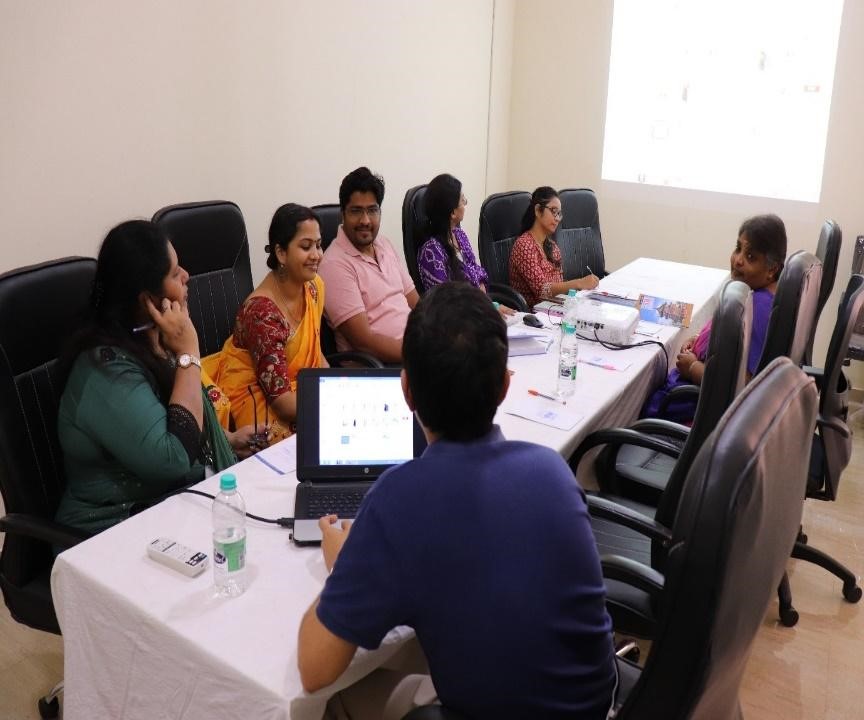Events Conducted by VISH
Industry Guest Lecture: Empowering Rural India through Human-Centered Design – Prototyping Solutions for Sustainable Development in 2024
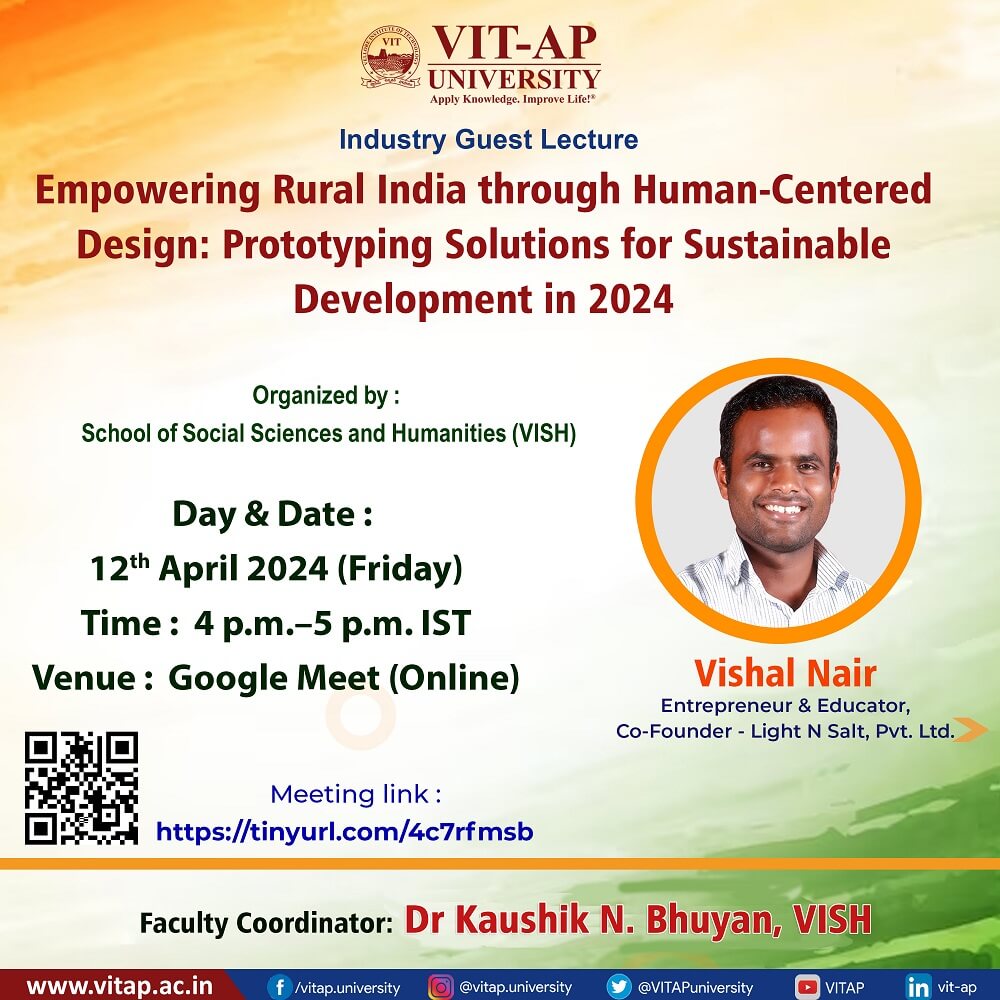
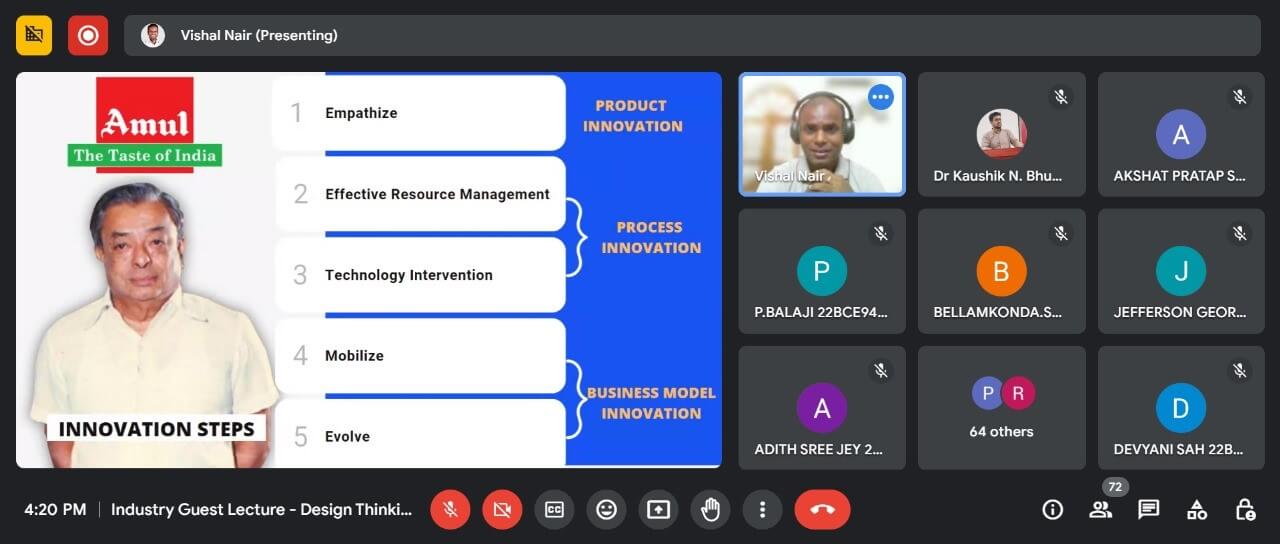
VIT-AP School of Social Sciences and Humanities (VISH) at VIT-AP University hosted a guest lecture on 12 April, 2024 on “Empowering Rural India through Human-Centered Design: Prototyping Solutions for Sustainable Development in 2024.” The lecture was delivered by Mr. Vishal Nair, an Entrepreneur, Educator, and Co-Founder of Light N Salt, Pvt. Ltd.. It explored how design thinking can empower rural communities and turn them into a centre of opportunity and success. The speaker used the power of storytelling to explore different products and their journey of prototyping. Mr. Nair commenced the session by highlighting the Amul (Anand Milk Union Limited) success story, which originated due to a milk crisis. He explained how empathy-driven prototyping played a crucial role in Tribhuvandas Patel and Dr. Verghese Kurien’s solution to the milk crisis. Following his introduction, the speaker unpacked the five key stages of human-centered design: empathize, effective resource management, technology Intervention, mobilization, and evolution. The lecture further showcased inspiring innovations crafted by individuals working towards rural development. It included Jane Chen’s Embrace: Infant Warmer. Further, he went on to discuss James Joseph’s Jackfruit 365, an initiative inspired by the abundance of wasted jackfruit; Joseph saw an opportunity to use it as an alternative for non-vegetarian products. Lastly, the speaker’s reference to Saloni Malhotra, founder and CEO of DesiCrew, an IT-enabled service company that provides back-office and support services in rural areas, was another substantial concept regarding sustainable innovations for rural communities. Mr. Nair’s lecture offered valuable insights on empowering rural India by emphasising the importance of human-centred design principles. The lecture concluded with a lively Q&A session where students actively engaged with Mr. Nair on various topics. A vote of thanks was delivered by the student moderator, Ms. Devyani Sah. The guest lecture was coordinated by Dr Kaushik N. Bhuyan.
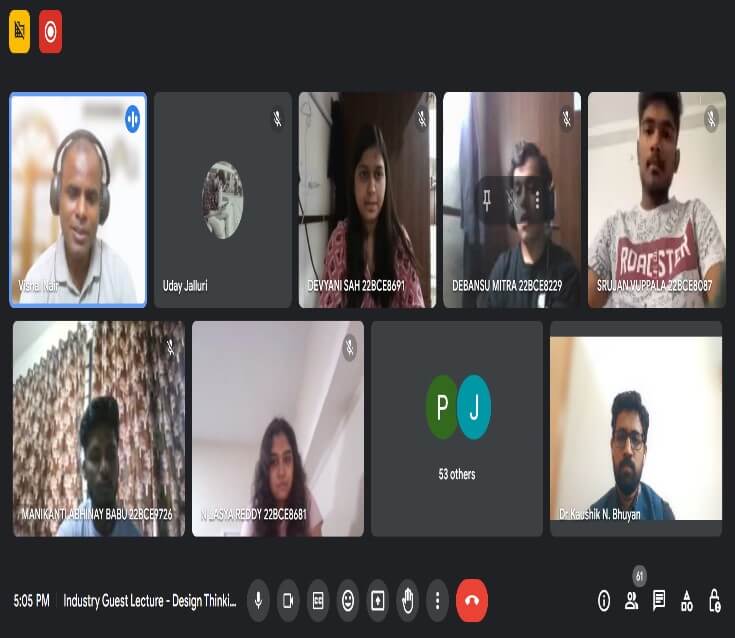
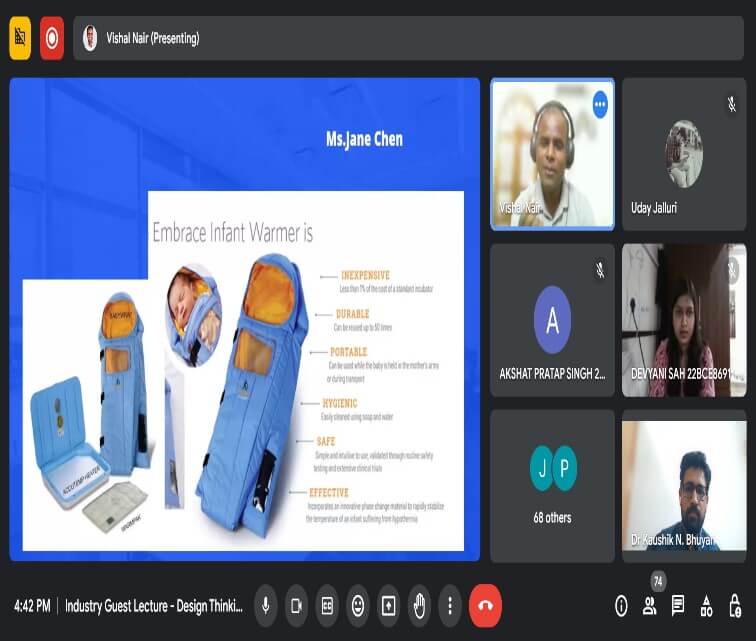
Guest Lecture on Regulation of Sexual Harassment in India
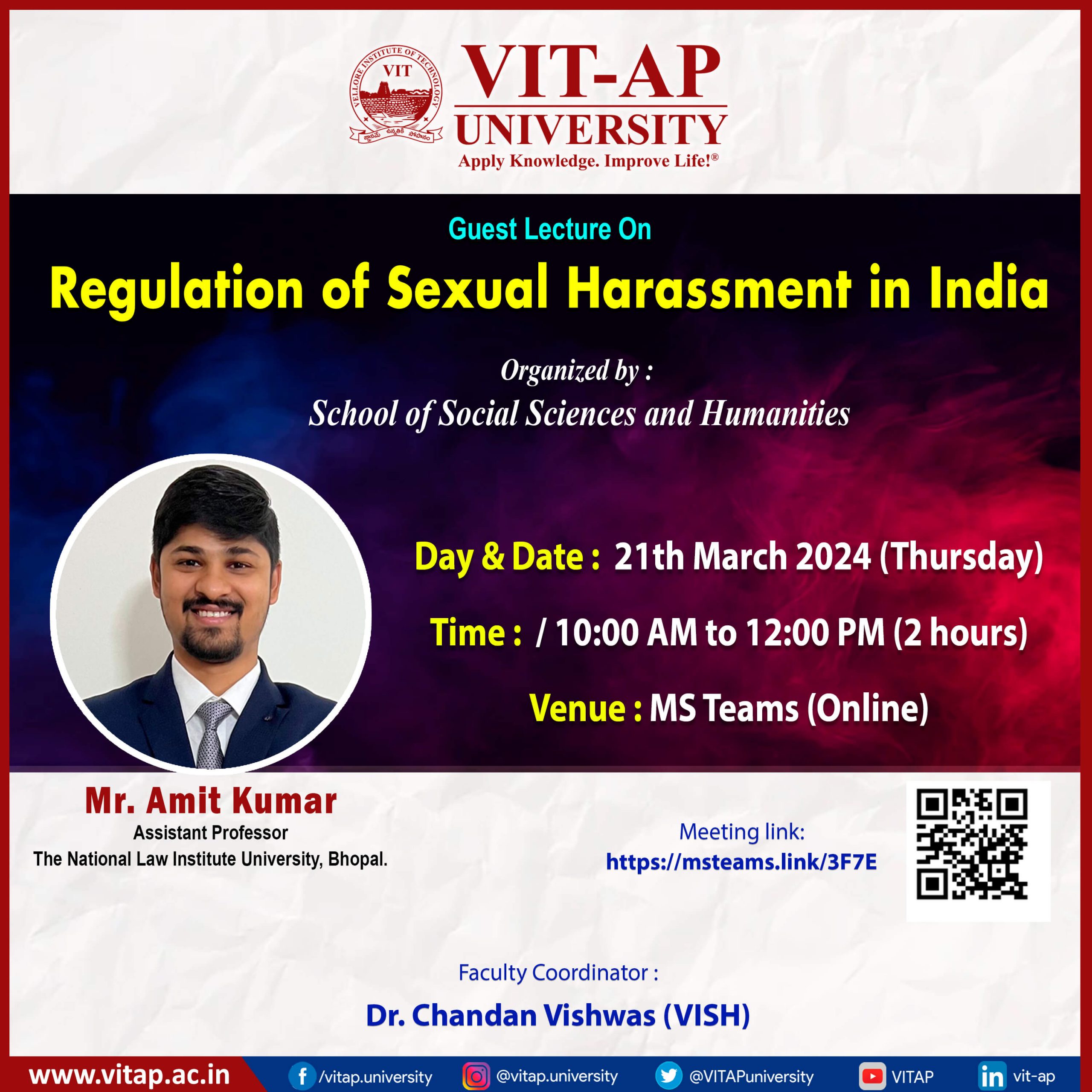
On March 21, 2024, VIT-AP University’s School of Social Sciences and Humanities hosted an online guest lecture titled “Regulations of Sexual Harassment in India.” The resource person of the session was Mr. Amit Kumar, Assistant Professor at The National Law Institute University, Bhopal.
Mr. Amit Kumar spoke about Sexual Harassment; he started his lecture by illustrating the importance of Supreme Court judgments on this subject. He defined sexual harassment and explained the acts which can be considered as sexual harassments. He gave the example of the ‘Bhanwari Devi’ case and highlighted how regulation related to sexual harassment started with the Vishakha guidelines. Then, he elaborated on the Sexual Harassment of Women at Workplace (Prevention, Prohibition, and Redressal) Act, 2013, and explained the pillars of the POSH Act in terms of Articles 14, 15, 19, and 21.
Mr. Amit Kumar highlighted how the victim’s perspective is significant in deciding what constitutes sexual harassment. He discussed the meaning and definition of workplace in the POSH Act and highlighted the constitution of ICC and LCC and the complaint procedure. He concluded the talk with punishments and the challenges in implementing the punishments. This was followed by a question and answer session. This event was coordinated by Dr. Chandan Vishwas.
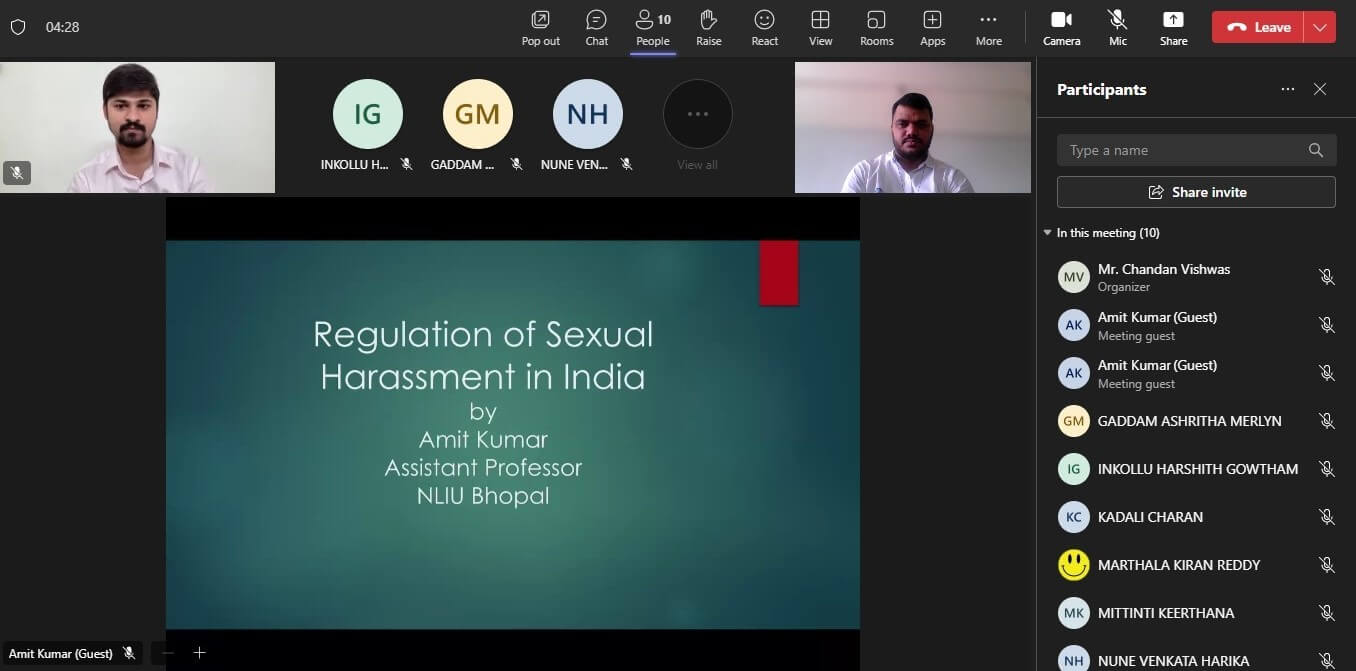
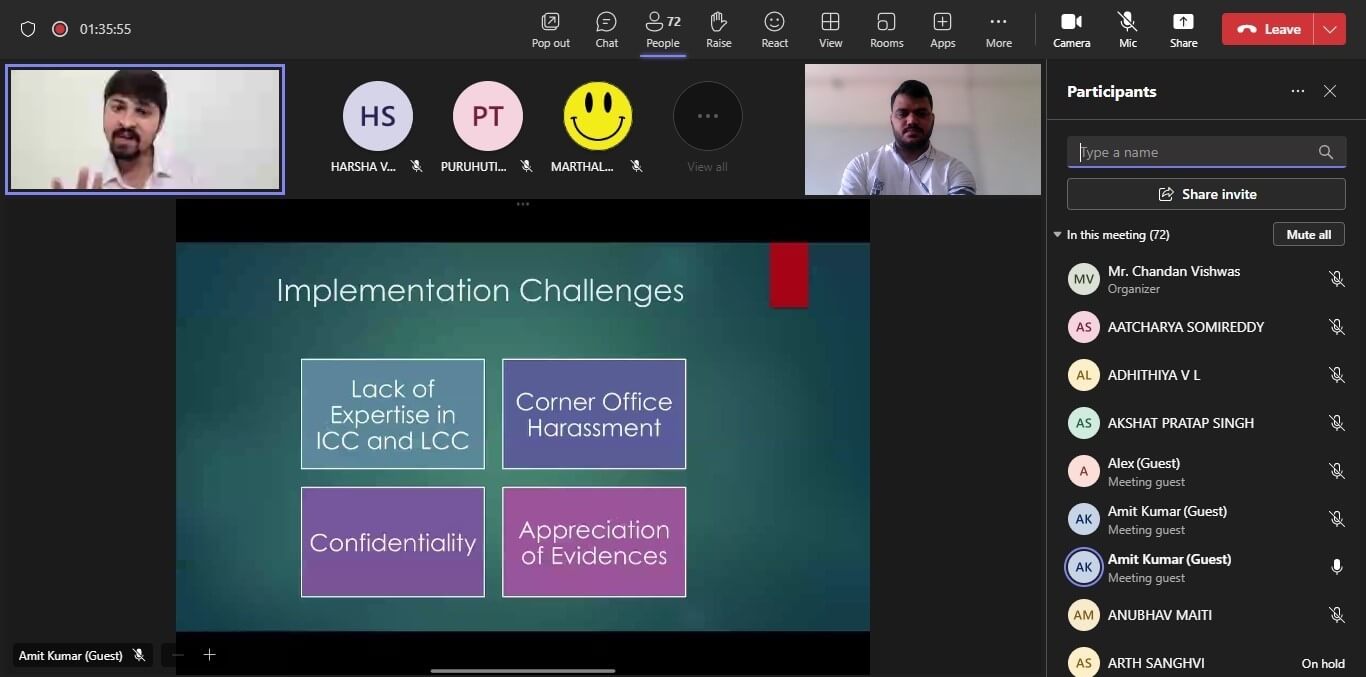
Industry Guest Lecture on The Basics of Journalism: How to Report, Write, and Edit
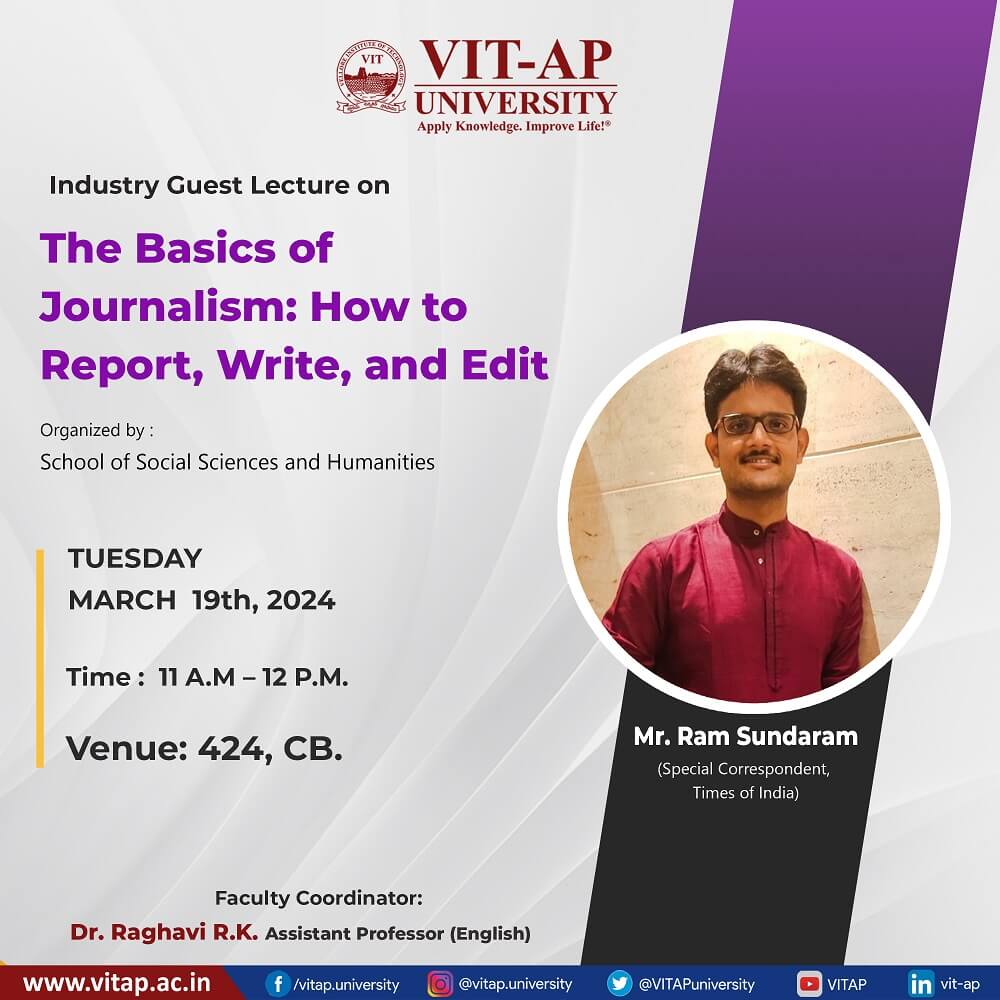
On March 19, 2024, VIT-AP University’s School of Social Sciences and Humanities hosted an industry guest lecture, titled “The Basics of Journalism: How to Report, Write and Edit.” The session was graced by Mr. Ram Sundaram, a Special Correspondent from the Times of India, Chennai. His expertise was sought to enlighten the students enrolled in LIB1013 – Introduction to Comics and Graphic Narratives gathered in room 424 of the Central Block.
The discussion commenced with Mr. Sundaram elucidating the profound impact of the written word, supplemented by personal narratives from his illustrious career. He underscored the imperative of conciseness and lucidity in crafting news stories, advocating for the integration of pictorial elements, particularly in crime and technical reporting. This visual dimension, he argued, not only enhances narrative engagement but also aids in the comprehension of complex subjects.
In an era increasingly dominated by digital media, Mr. Sundaram introduced innovative tools such as image creators and chat GPT technologies. He demonstrated their utility in constructing compelling visual sequences for journalistic pieces, thereby equipping the students with modern storytelling techniques.
The lecture’s interactive component was particularly noteworthy. It provided a platform for students to present their comics journalism projects, receiving direct feedback from Mr. Sundaram. He encouraged them to pinpoint the climactic moments within their narratives, leveraging these as visual anchors to captivate their audience’s attention. As the lecture neared its conclusion, Mr. Sundaram imparted a word of caution regarding journalistic responsibility. He reminded the students to exercise ethical consideration towards the subjects of their stories, ensuring that their portrayal is both respectful and just.
This event was coordinated by Dr. Raghavi R. K.
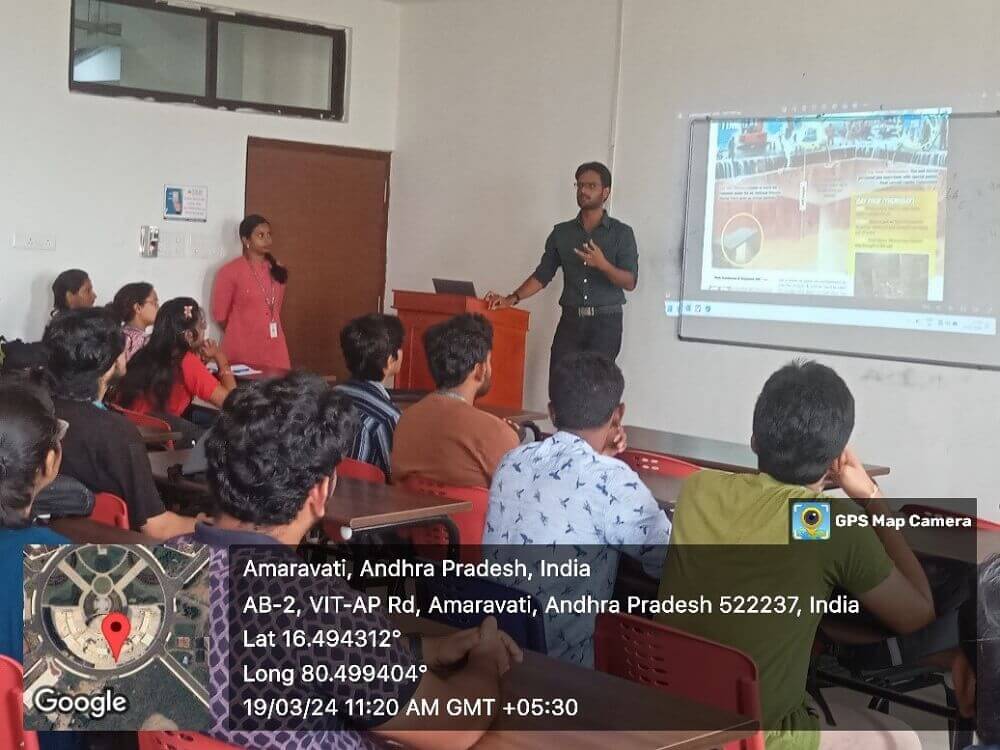
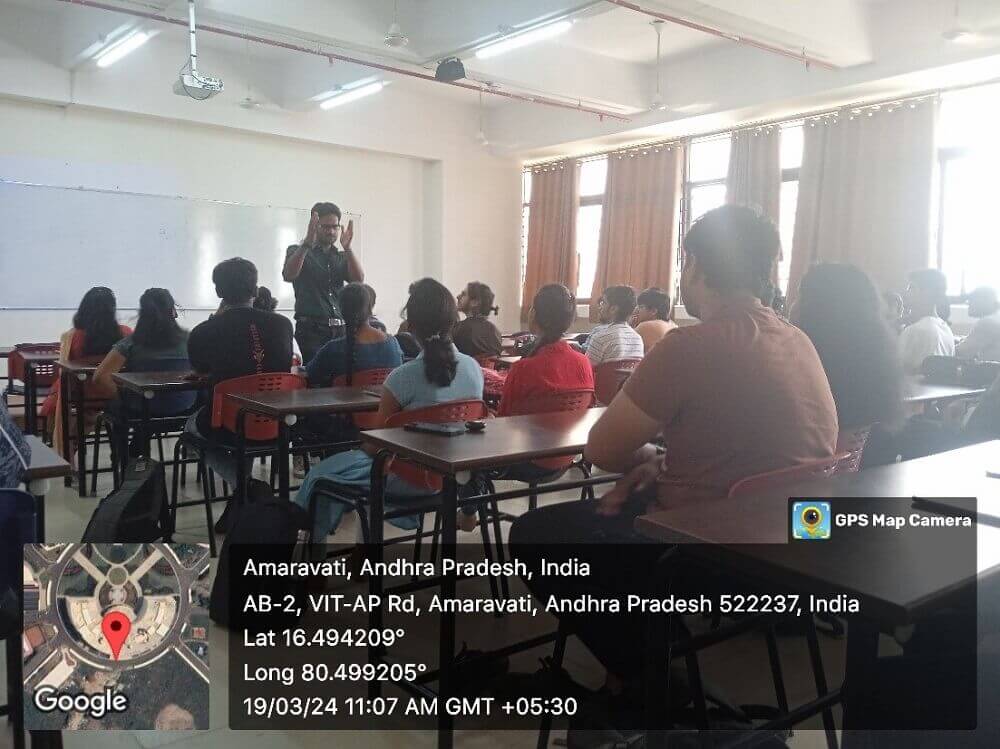
Foreign Guest Lecture on Beyond Borders: Engineering Futures in the Korean Realm
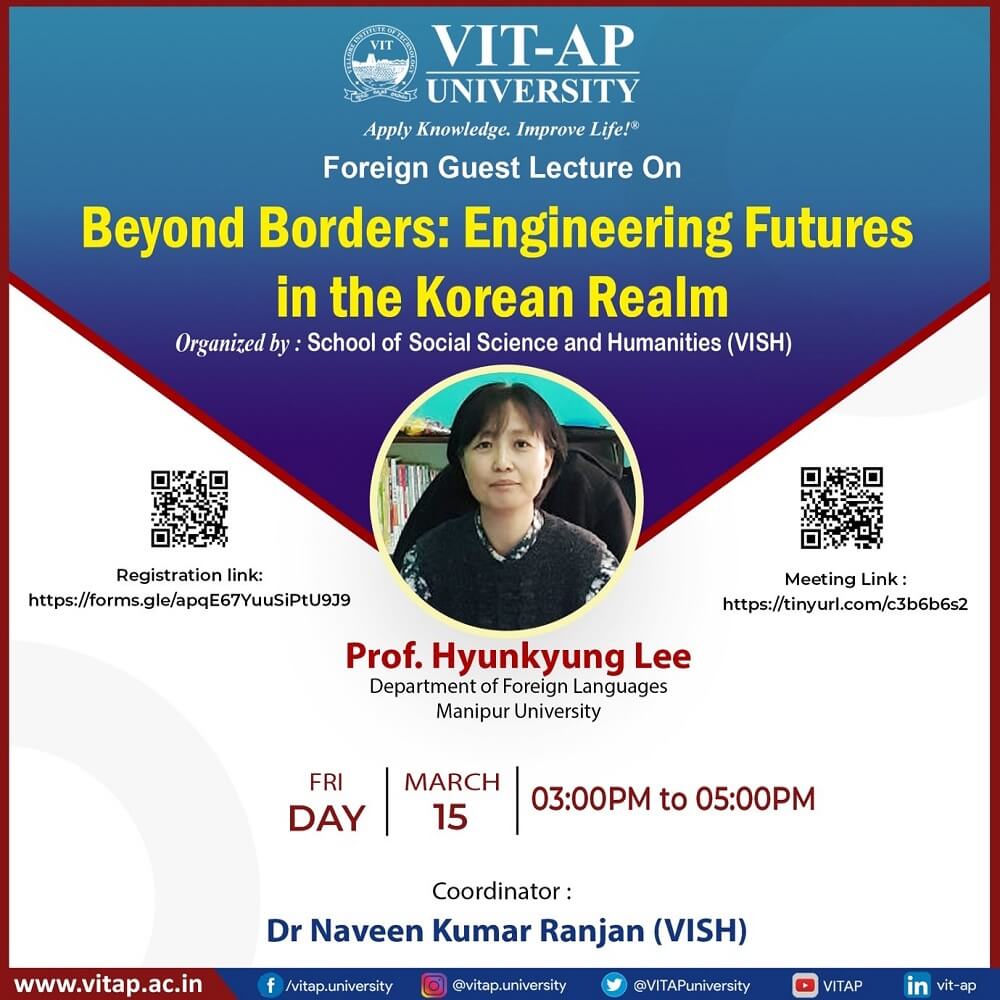
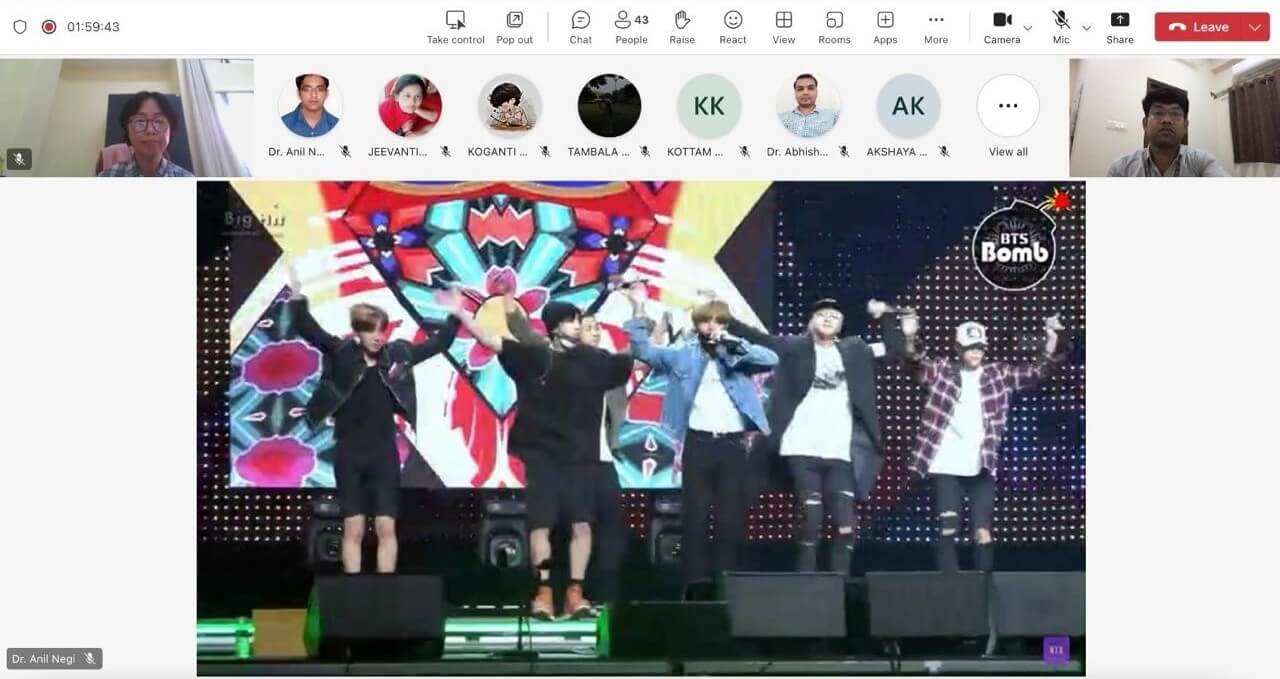
The foreign guest lecture titled “Beyond Borders: Engineering Futures in the Korean Realm” was organized by the School of Social Sciences and Humanities (VISH) at VIT-AP University on Friday, March 15, 2024. The lecture was delivered by Prof. Hyunkyung Lee, Department of Foreign Languages, Manipur University. Prof. Lee, a renowned academician and well known for her ground-breaking researches in Korean language and linguistics. The two hours lecture (3 pm to 5 pm), commenced with opening remarks delivered by Dr Sudesh Manger (School-In-Charge). The focus of the lecture was to illuminate the scope and opportunities available to engineering students, particularly those with Korean language proficiency. During the first half of the session, Prof. Lee delved into the significance of the Korean language, its scope, and the job opportunities it presents for engineers in India, particularly in Korean multinational corporations (MNCs).
In the latter half, she discussed the job opportunities and scholarships available for higher education in the Republic of Korea. This segment aimed to provide insights into avenues for further academic and professional growth for engineering students. The session concluded with a 15-minute question-and-answer session, allowing participants to engage directly with the speaker and further clarify their queries. The lecture was coordinated by Dr Naveen K. Ranjan.
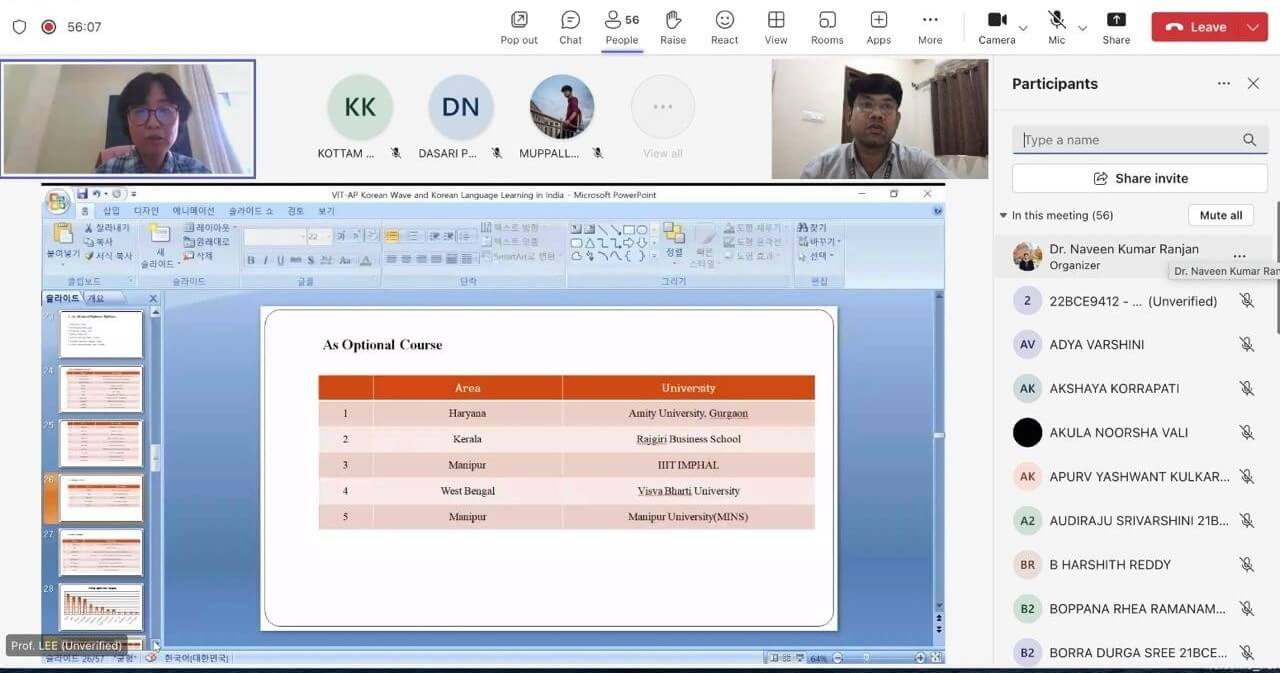
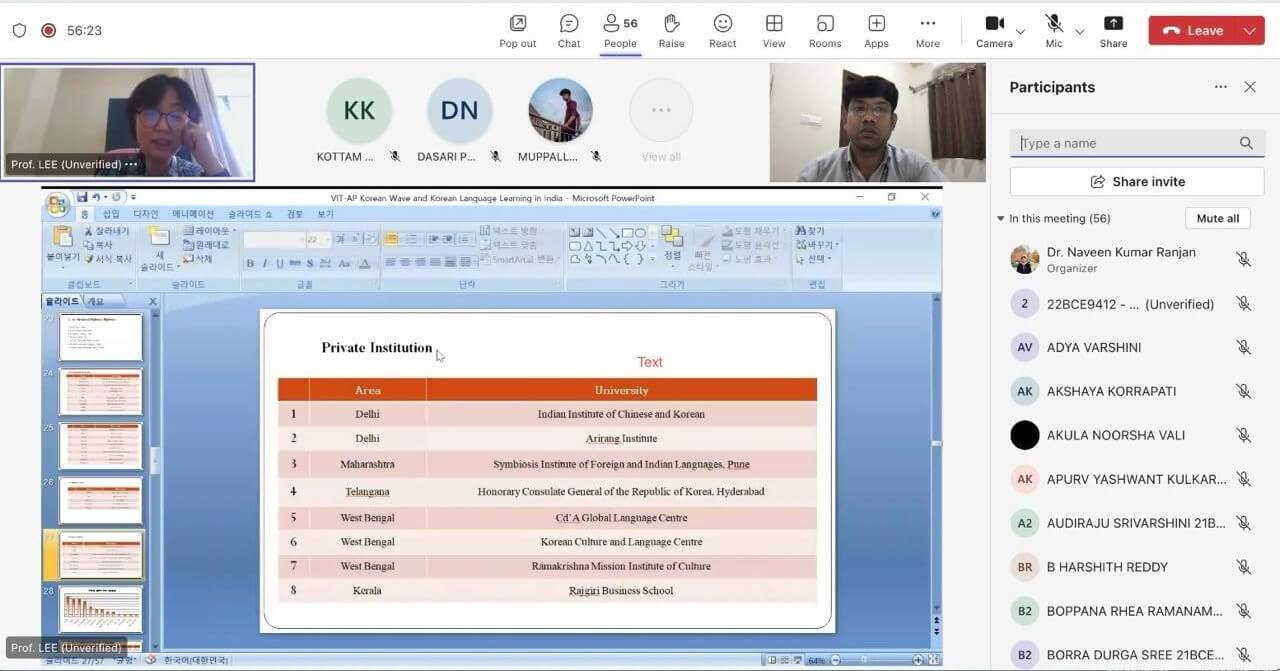
Foreign Guest Lecture What was Television?
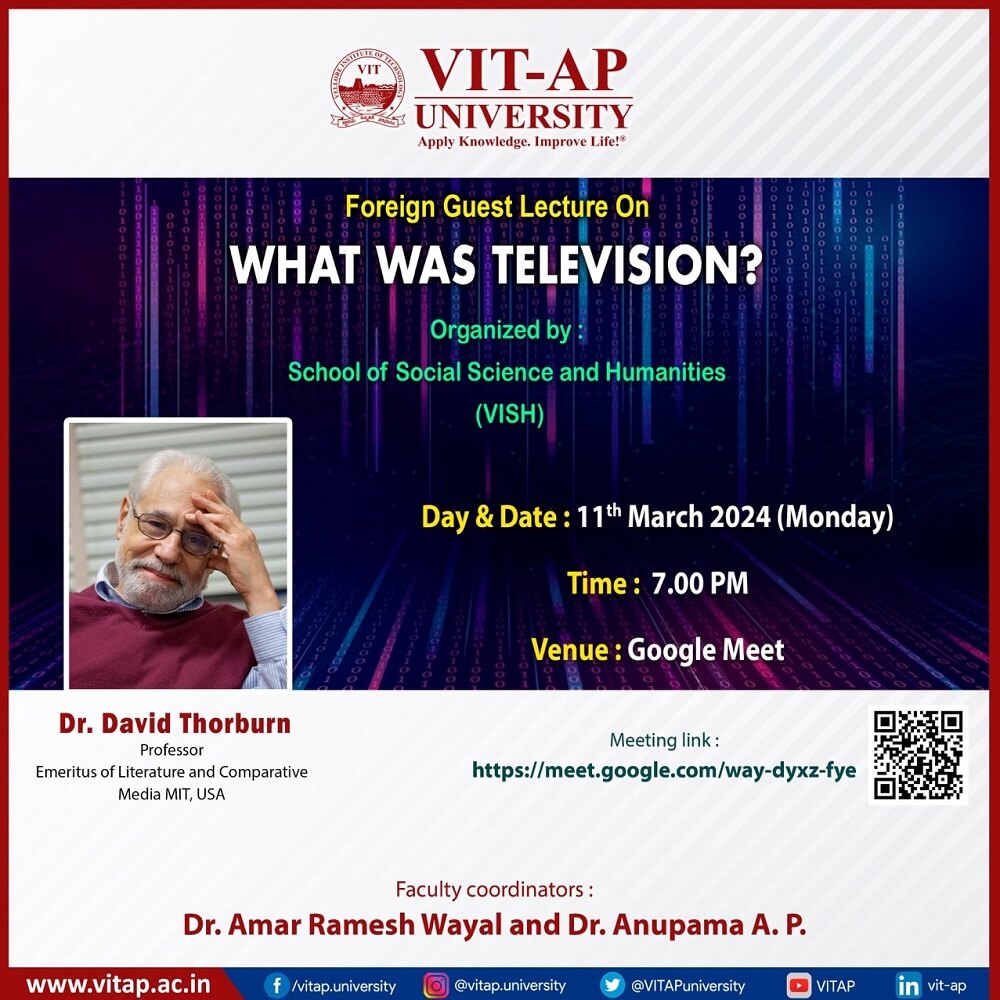
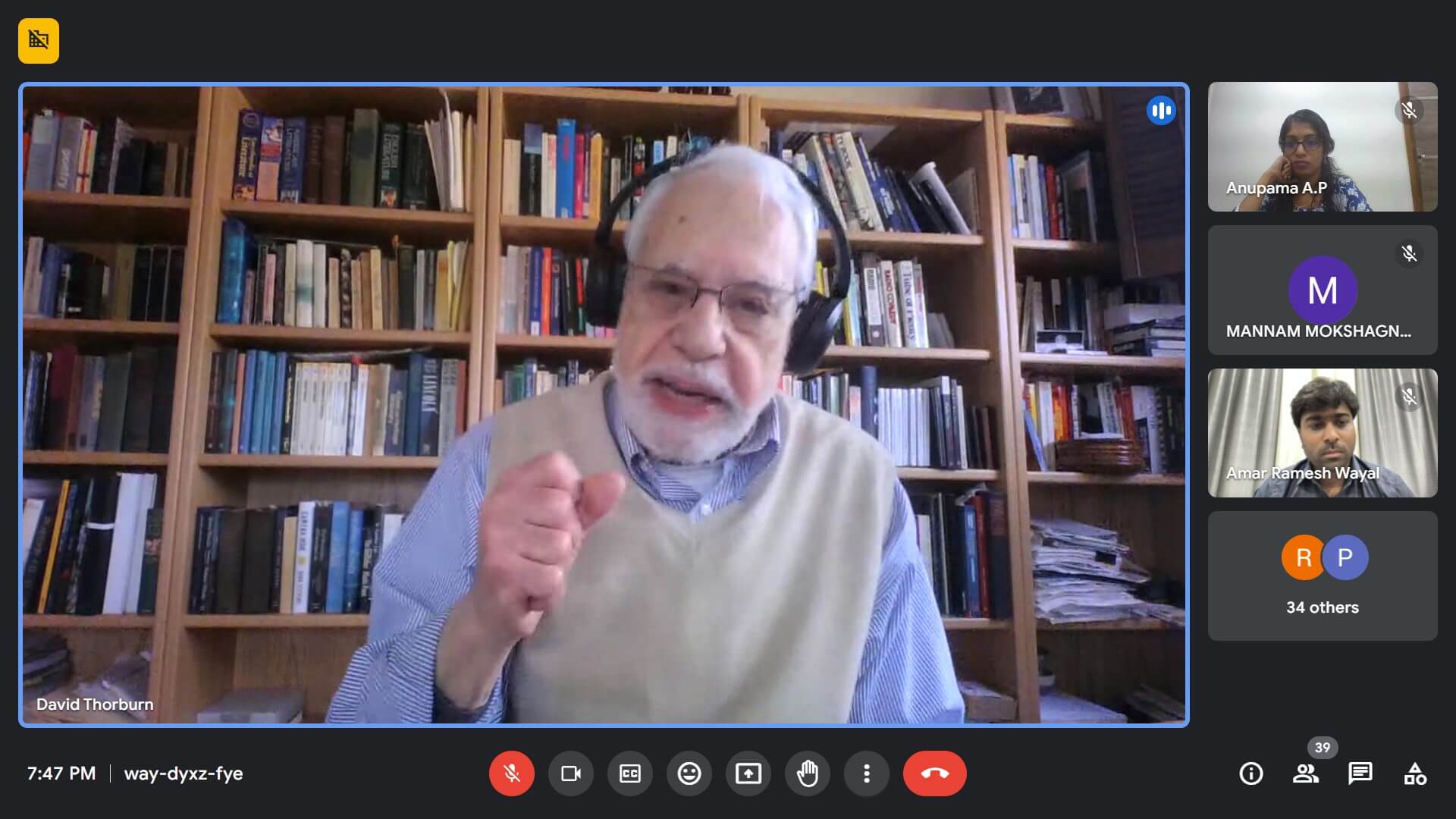
The foreign guest lecture on “What was Television?” was organised by the School of Social Sciences and Humanities at VIT-AP University on Monday, March 11, 2024. Dr. David Thorburn, Professor Emeritus of Literature and Comparative Media at MIT in the United States of America, delivered the talk. He is currently the director of the MIT Communications Forum, which sponsors, along with the Programme in Comparative Media Studies, a series of lectures, forums, and web-based activities comparing our current experience of changing media with earlier periods of cultural and technological transformation. In 2002, Prof. Thorburn received the MacVicar Faculty Fellow title for his contributions to undergraduate education.
The lecture compared our current experience of technological and cultural disruption with ‘the network era’ (1946–2000) and American TV’s first great age. Further, the lecture demarcated the medium’s relative stability over the past half-century, enabling an evolution that helps to explain its cultural centrality and narrative art. Prof. David Thorburn also suggested that students look at the ongoing instability of post-network television—its welter of platforms, devices, viewing choices, and economic and technological churn—which has no counterpart in older TV. Students have benefited from this lecture by gaining a historical perspective on technological and cultural disruptions in television, understanding the evolution of the medium, and being able to analyse the ongoing instability of post-network TV, which can provide insights into the current media landscape and future trends in television and media consumption. In addition to examining the evolution of television, students have gained insights into the contemporary media landscape, including the role of streaming platforms like Netflix in reshaping both television and film consumption patterns. Dr. Amar Ramesh Wayal and Dr. Anupama A. P. coordinated the foreign guest lecture.
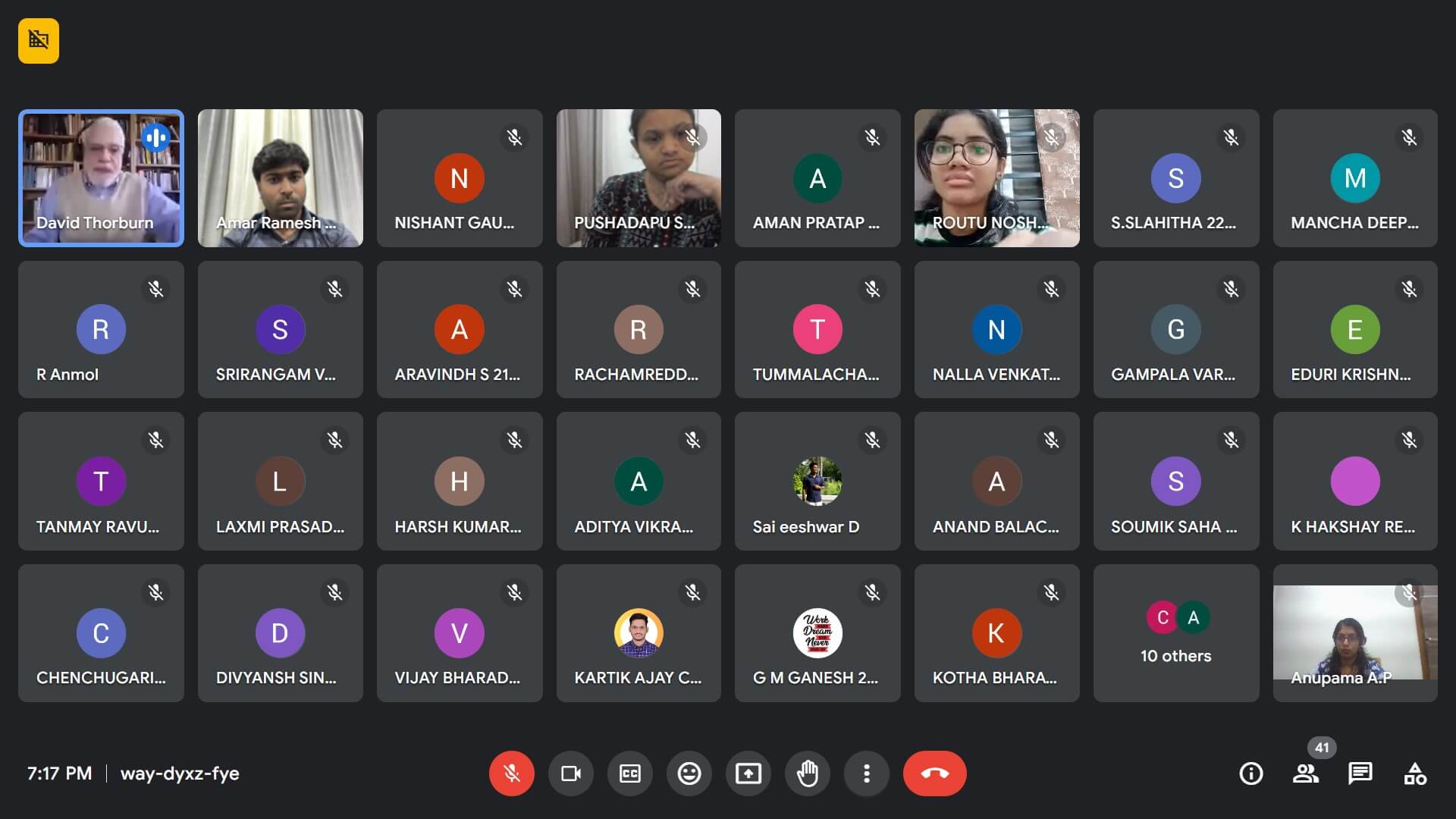
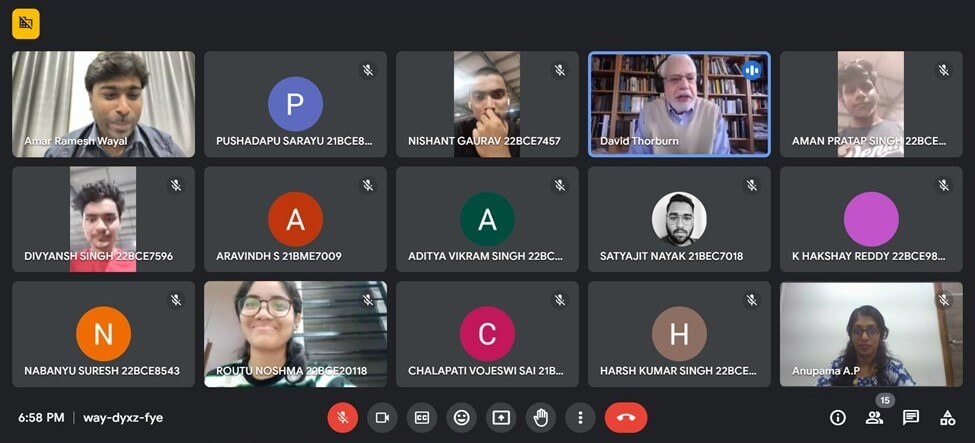
Guest Lecture: The Relevance of Classical Political Economy in Today’s World
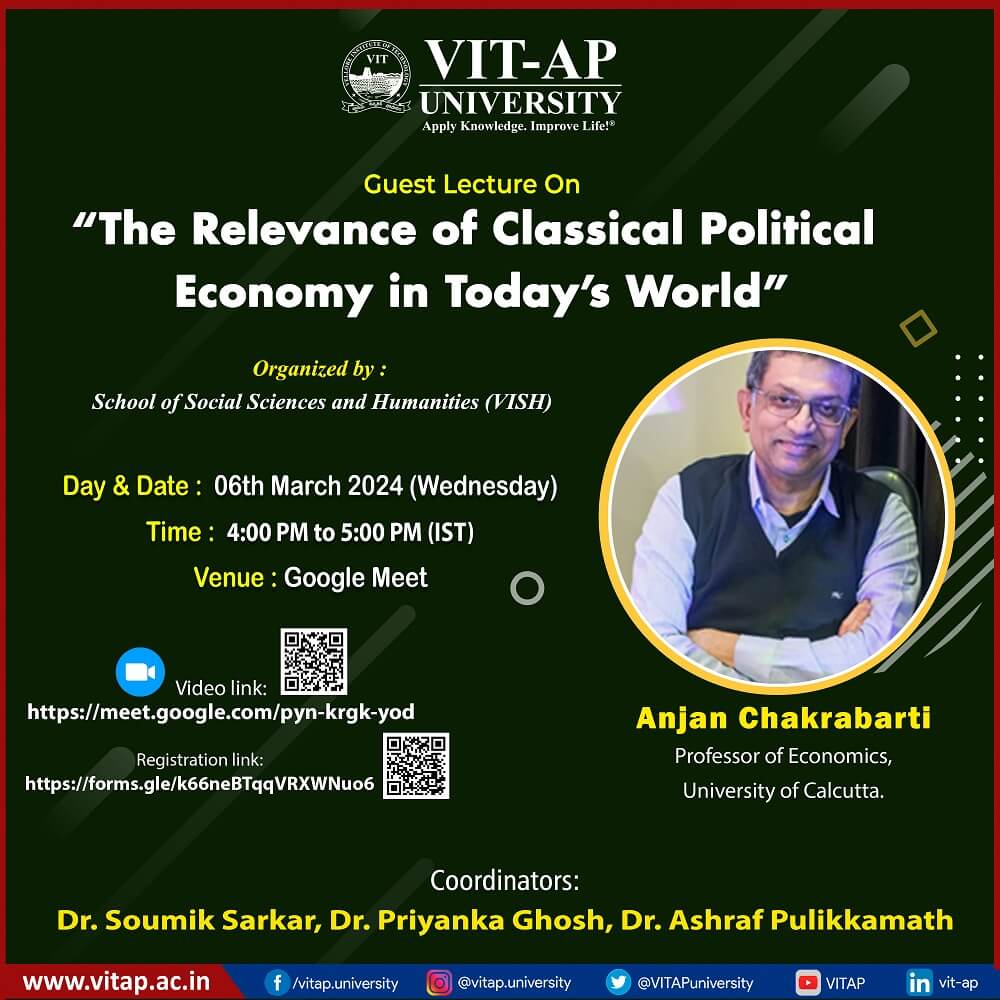
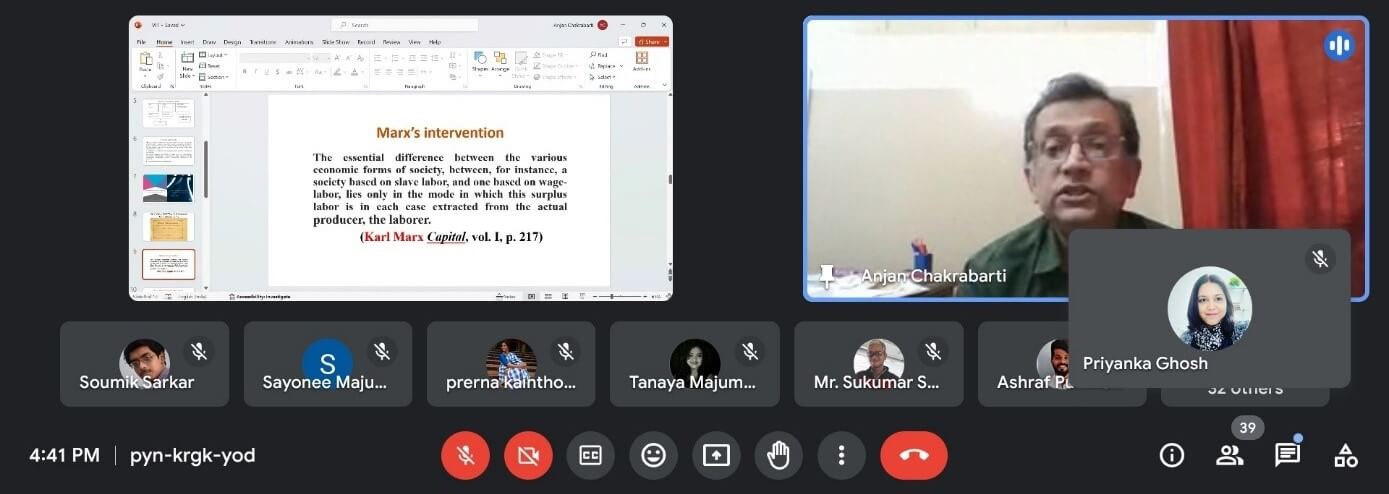
The guest lecture on “The Relevance of Classical Political Economy in Today’s World” was organized by the School of Social Sciences and Humanities, VIT-AP University, on Wednesday, March 6, 2024. The lecture was delivered by Prof. Anjan Chakrabarti, Department of Economics, University of Calcutta. Prof. Anjan Chakrabarti, a renowned teacher and prolific writer, delivered an insightful lecture on the evolution of classical political economy and its significance in the modern economy. The lecture was attended by undergraduate and postgraduate students, research scholars, faculty, and professionals from various academic institutions across India.
This special lecture sought to provide a chronological overview of political economic thought and its relevance to current economic issues. Prof. Chakrabarti explored the ideas of classical political economists, starting with the ideological battle between physiocracy and mercantilism and moving on to the evolution of the market economy with Adam Smith, as well as the idea of the division of labor put forth by Adam Smith and David Ricardo. Prof. Chakrabarti emphasized that many of the economic practices in today’s globalized world, such as the division of labor based on specialization (outsourcing, subcontracting, offshoring, and body shopping) and technological development (capital accumulation, productivity, and innovation), can be traced back to the ideas of classical economists. He argued that the differences between economic theories stemmed from their different logics and entry points, resulting in different worldviews.
Starting with a brief discussion of Adam Smith’s labor theory of value in his “Wealth of Nations,” Prof. Chakrabarti elaborated on how Karl Marx provided a detailed critique of classical political economy in his “Capital,” notwithstanding his own admiration for Smith and Ricardo. The discussion also focused on understanding the concept of exploitation in Marx’s theory. The lecture highlighted the fact that many of today’s problems can be better understood through a close reading of classical political economy, such as the injustice of exploitation, income and wealth inequality, the fundamental disorder of the business cycle/instability of the capitalist system, as well as the ecological crisis arising from the need for rapid production, delivery, and profit, resulting in the “irreparable rift” in the metabolic interaction between humans. The lecture delivered by Prof. Anjan Chakrabarti served as an important reminder for students and scholars to go beyond textbooks and develop a comprehensive understanding of how economic models are applied to real-life problems. The lecture was coordinated by Dr. Soumik Sarkar, Dr. Priyanka Ghosh, and Dr. Ashraf Pulikkamath.
Guest Lecture:In Search of Methodology – Reading Global South Cinemas
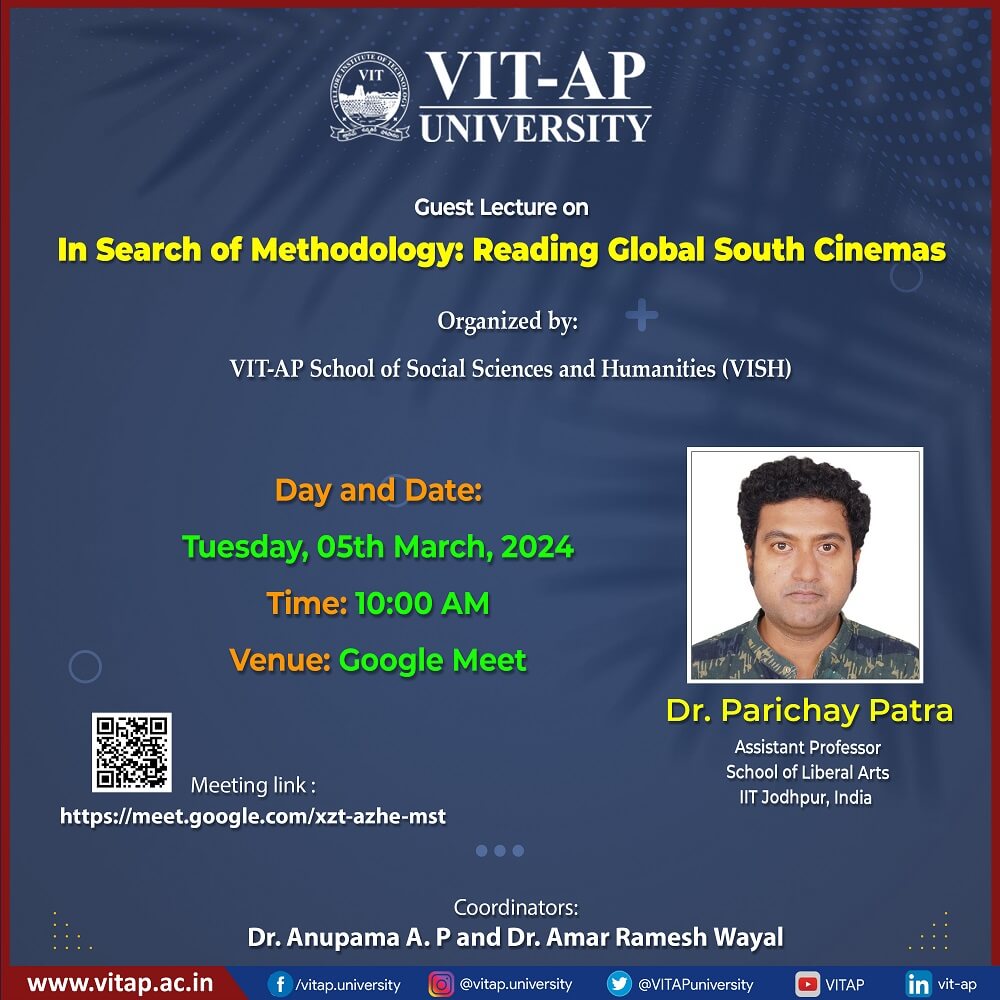
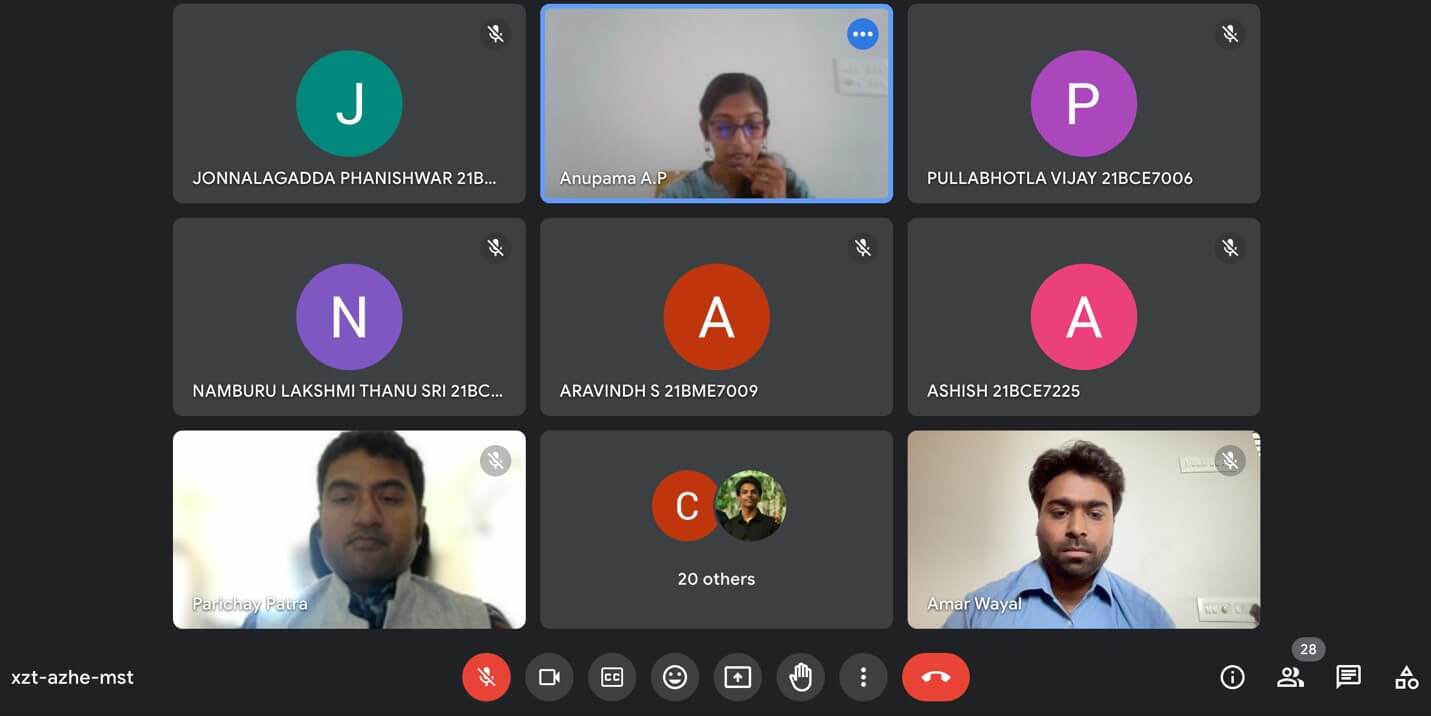
The guest lecture on “In Search of Methodology: Reading Global South Cinemas” was organised by the School of Social Sciences and Humanities, VIT-AP University, on Tuesday, March 5, 2024. The talk was delivered by Dr. Parichay Patra, Assistant Professor at the School of Liberal Arts and the Coordinator of the Digital Humanities Interdisciplinary Research Forum at IIT Jodhpur. Dr. Patra, an esteemed scholar in the field of global cinema studies, provided an enlightening discourse to the students, offering insights into the expansive realm of global cinema, its historical trajectory, and the emergence of transnational cinema.
The lecture underscored cinema’s dynamic nature as a reflective art form that both mirrors and shapes our understanding of the world, serving as a medium for cultural exchange and social commentary across borders. Additionally, the lecture focused on the significance of Mrinal Sen’s films within the context of transnational cinema, highlighting their role in bridging cultural divides and providing global dialogue. Through the lecture, students stand to gain a multifaceted understanding of cinema’s global evolution, from its early roots to contemporary transnational exchanges. They can develop an appreciation for the diverse cultural narratives and cinematic traditions that shape our collective cinematic landscape. Furthermore, by examining the work of filmmakers like Mrinal Sen, students can glean valuable insights into the ways in which cinema serves as a medium for cultural exchange and social commentary across borders. In fact, the lecture offers students an opportunity to engage with cinema as more than mere entertainment but as a dynamic and reflective art form that mirrors and shapes our understanding of the world. The guest lecture was coordinated by Dr. Anupama A. P. and Dr. Amar Ramesh Wayal.
Foreign Guest Lecture: Bhopal Industrial Disaster – The Aftermath Is Still Unfolding, And It Is Gendered
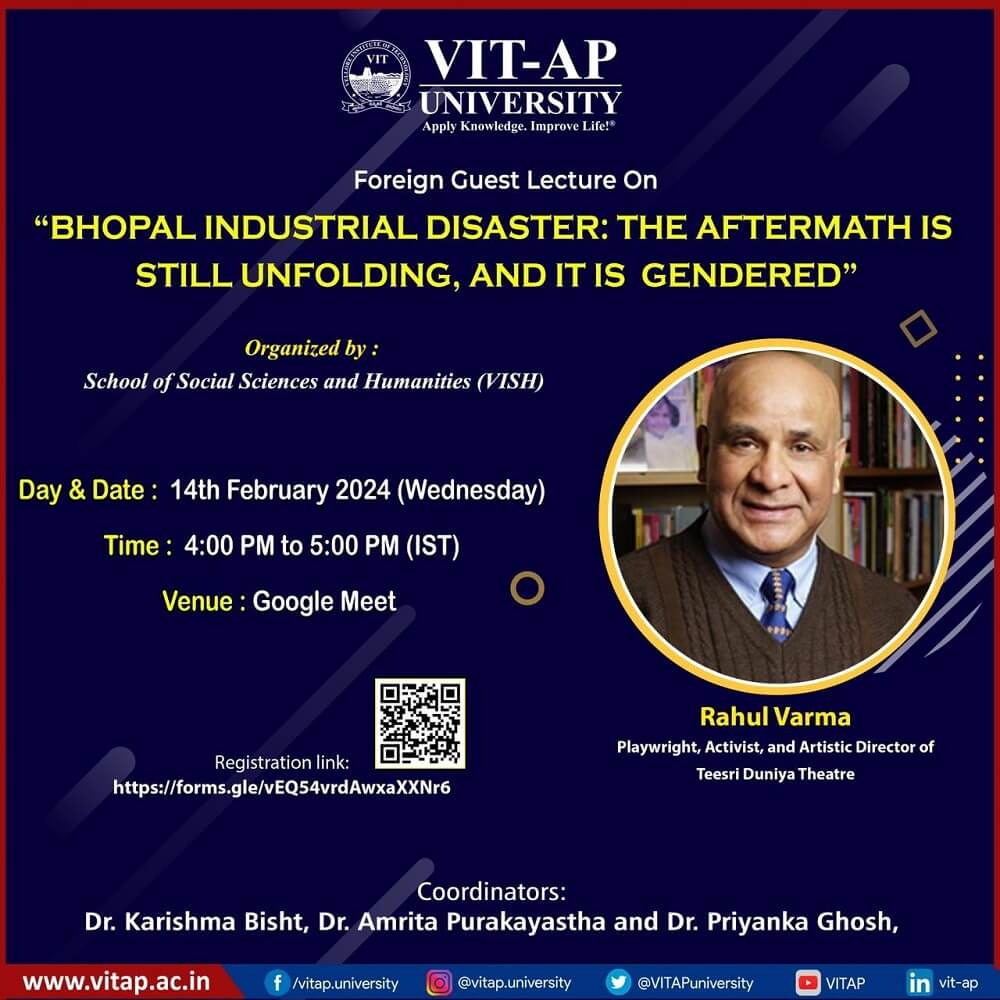
Rahul Varma, an Indo-Canadian playwright, Activist, and Artistic Director of “Teesri Duniya Theatre” delivered a guest lecture titled “Bhopal Industrial Disaster: The Aftermath Is Still Unfolding, And It Is Gendered” on Wednesday, 14th February 2024. The lecture was attended by undergraduate students, research scholars, faculty, and professionals from various institutions across India. In his poignant discourse on the aftermath of the Bhopal Industrial Disaster, Varma delved deep into the multi-layered repercussions that continue to haunt not just the survivors but also the generations to come. Drawing inspiration from personal experiences and insights gained from his father, Varma elucidated the hidden, gendered nature of the catastrophe and its enduring impact. Varma’s narrative revolves around the unsaid, the unseen, and the silenced voices that reverberate through the tragedy. Through the lens of his play, aptly titled “Bhopal,” his lecture portrayed the essence of the pain, suffering, and systemic injustices perpetuated by the collusion between the state and multinational corporations.
Central to Varma’s discourse was the portrayal of Zarina, an unborn child symbolizing the unseen casualties of capitalism. Her silent suffering speaks volumes about the indescribable pain inflicted upon innocent lives, echoing the larger question of what standard of living is permissible for children in the developing world. Through Zarina’s presence, hidden beneath a rug, Varma prompts introspection, challenging audiences to confront the realities obscured by corporate agendas and government collaboration. The playwright also discussed other fictional and nonfictional characters present in the play. Moreover, Varma highlights the gendered dimensions of the disaster, emphasizing how women bore the brunt of its consequences, both immediately and intergenerationally. The harrowing accounts of mothers giving birth to deformed babies underscore the long-lasting effects of the toxic exposure, perpetuating a cycle of suffering and injustice. In his discourse, Varma advocates for the power of fiction to reveal profound truths, asserting that while facts are immutable, imagination offers a pathway to deeper understanding and inquiry. By fictionalizing the events, Varma seeks to dismantle dominant narratives and expose the underlying conspiracies perpetuating systemic injustices.
In essence, Rahul Varma’s talk on the Bhopal Industrial Disaster serves as a poignant reminder of the ongoing struggle for justice and accountability, highlighting the enduring legacy of tragedy and the urgent need for collective action to address its gendered ramifications. The lecture was coordinated by Dr. Karishma Bisht, Dr. Amrita Purakayastha, and Dr. Priyanka Ghosh.
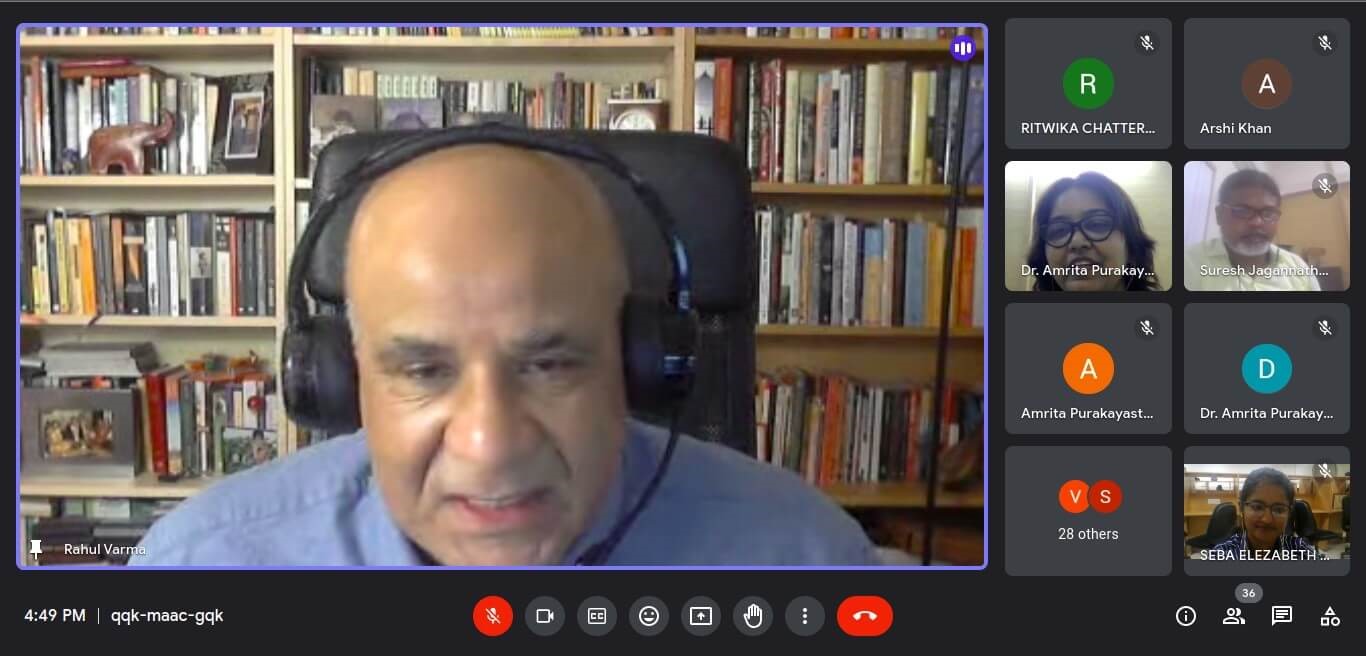
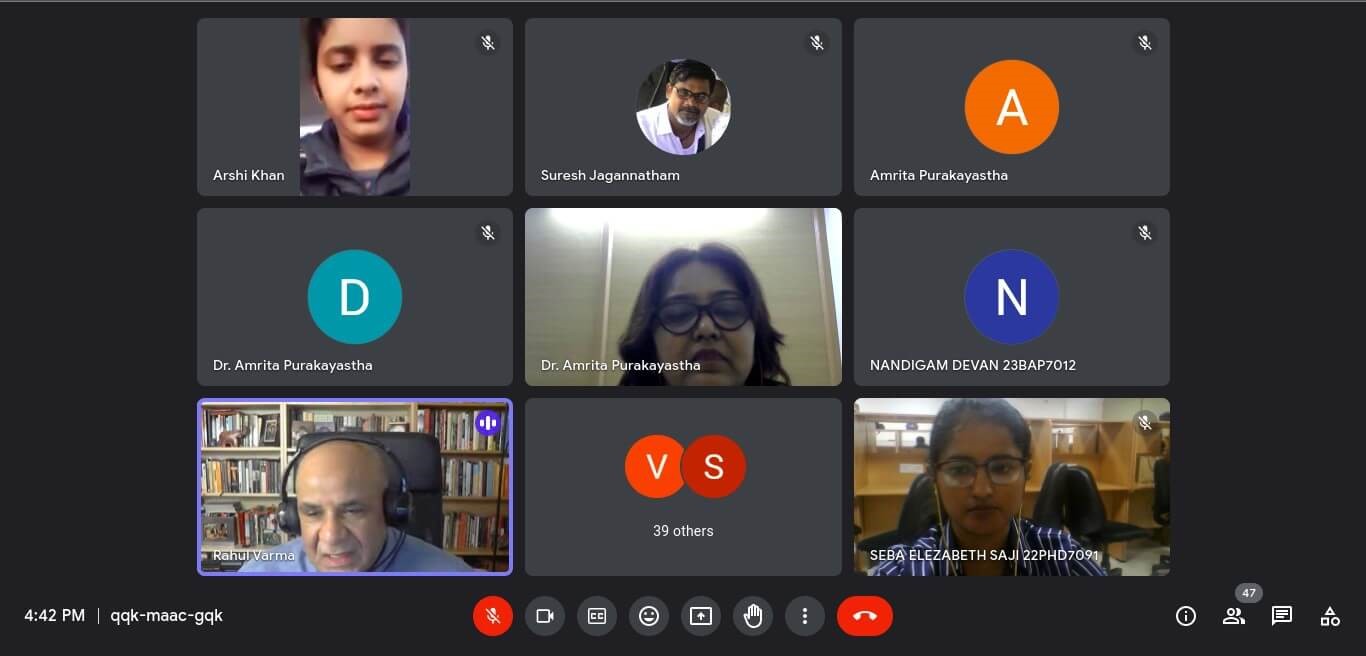
Guest Lecture: Navigating the Path to Net Zero Neutrality – Evaluating the Environmental Impact of G20 Summit 2023
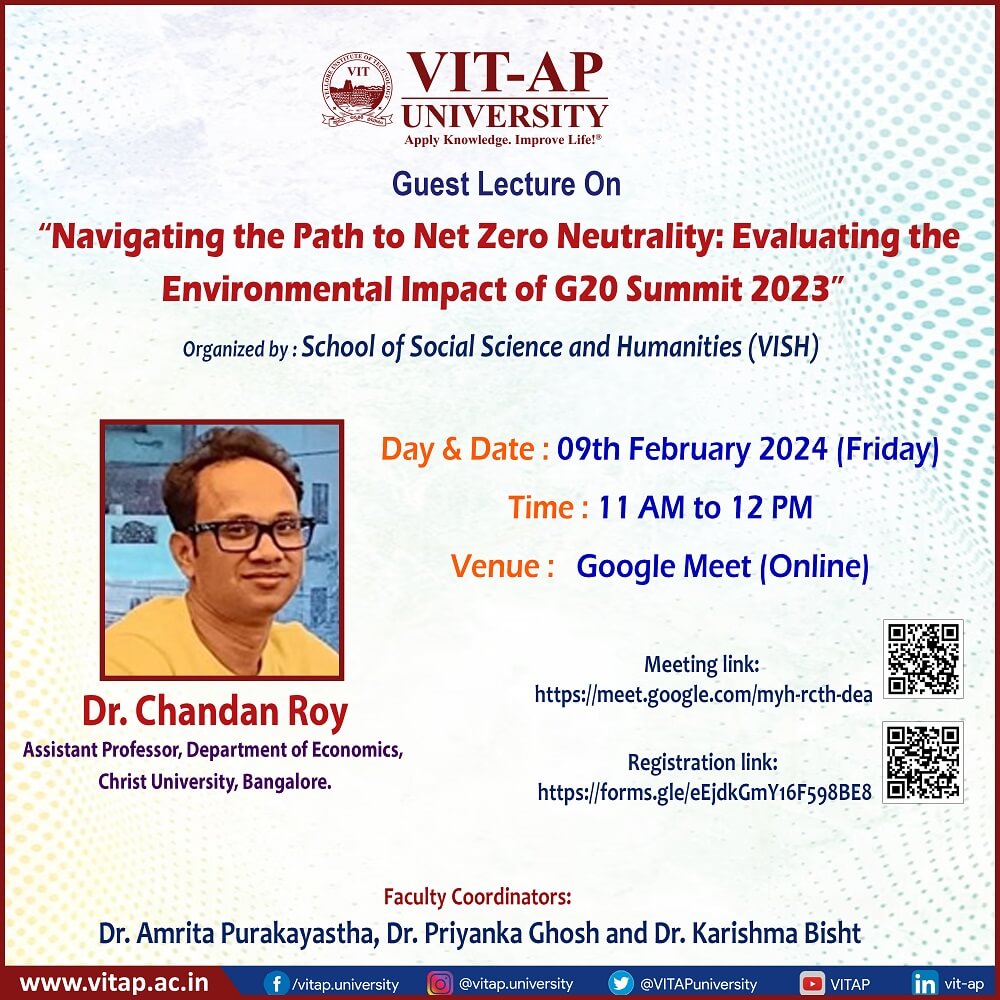
Dr. Chandan Roy, Assistant Professor at the Department of Economics, Christ University, delivered a guest lecture titled “Navigating the Path to Net Zero Neutrality: Evaluating the Environmental Impact of the G20 Summit 2023” on Friday, the 9 February, 2024. The lecture was attended by undergraduate students, research scholars, faculty, and professionals from various institutions across India. The guest lecture focused on the environmental impact of the G20 Summit 2023. Dr. Roy elaborated on how this summit emerged as a critical juncture in addressing the global climate crisis, given that member nations collectively account for 80% of global emissions. He underscored their pivotal role in combatting climate change. The summit embraced a decisive agenda, endorsing the ambitious target of tripling global renewable energy capacity and stressing the urgency of peaking emissions before 2025. Moreover, to cap global warming at 1.5 degrees Celsius, the G20 emphasized a substantial imperative: a 43% reduction in greenhouse gas emissions by 2030 compared to 2019 levels. There was a pressing call for financial mobilization, seeking US$5.8-5.9 trillion for developing countries before 2030 and an annual commitment of US$4 trillion for clean energy technologies by 2030, crucial components of the broader strategy to achieve global net-zero emissions by 2050. Additionally, Dr. Roy highlighted the significance of individual-level lifestyle changes in emission reduction. Students were encouraged to embrace sustainable living practices such as reducing, reusing, and recycling waste. The lecture was coordinated by Dr. Amrita Purakayastha, Dr. Priyanka Ghosh, and Dr. Karishma Bisht.
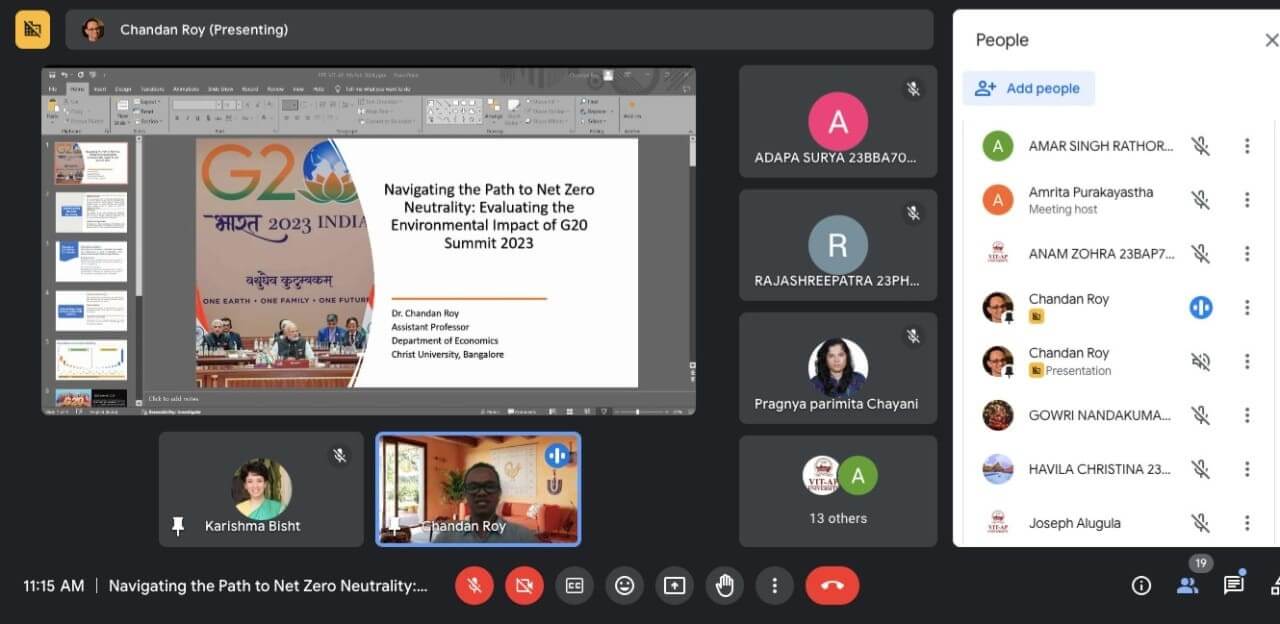
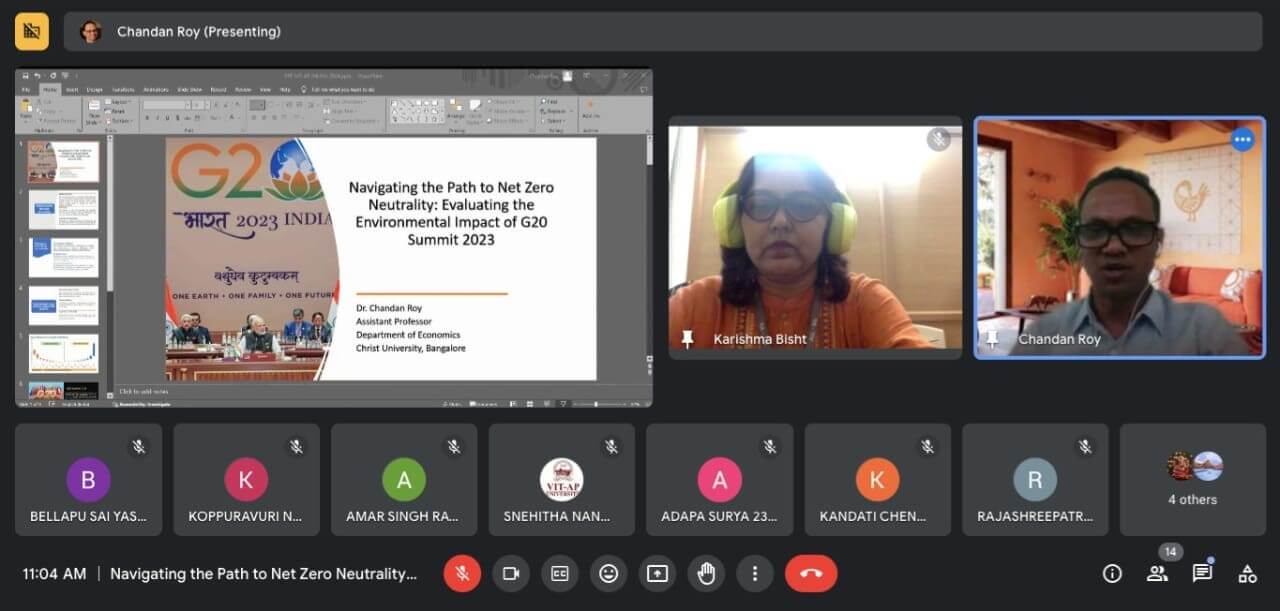
Guest Lecture: Strategic Communication Skills in the Social Media Era
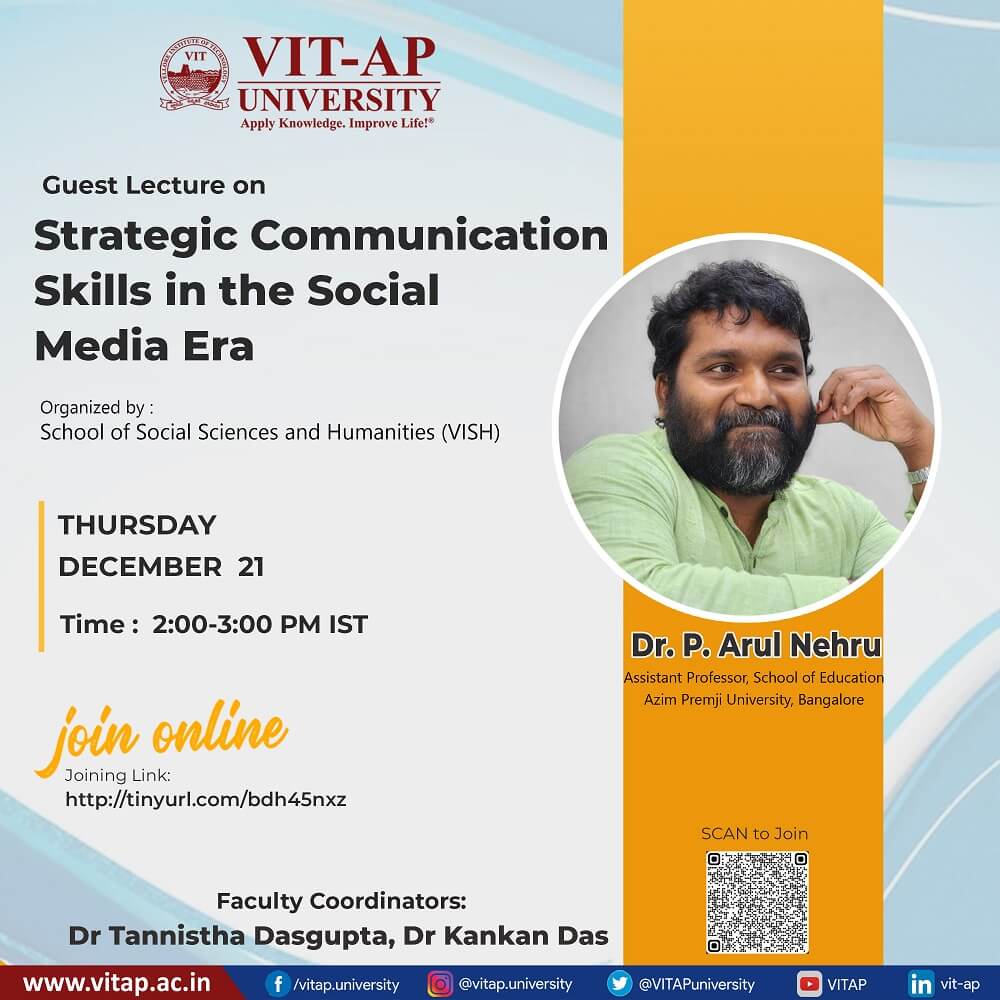
On December 21, 2023, Dr. P. Arul Nehru, Assistant Professor at the School of Education, Azim Premji University, Bangalore, delivered a compelling virtual lecture on “Strategic Communication Skills in the Social Media Era.” The lecture aimed to enhance the understanding of undergraduate engineering students on effective communication strategies within the dynamic landscape of social media platforms. The virtual session, scheduled from 2:00 to 3:00 PM IST, provided a valuable opportunity for students to gain insights into the significance of strategic communication skills in the context of their academic and professional journeys. Dr. Nehru commenced the lecture by highlighting the pervasive role of social media in contemporary society. One of the key objectives of the lecture was to equip students with practical skills for leveraging social media platforms for professional networking. Dr. Nehru shared practical tips on crafting a compelling online profile and using social media to stay updated on industry trends and opportunities. Furthermore, the lecture addressed the potential pitfalls of social media and the importance of maintaining a professional and ethical online presence. Dr. Nehru cautioned students about the risks associated with inappropriate use of social media and emphasized the need for a thoughtful and strategic approach to digital communication. He facilitated discussions on real-world scenarios, encouraging students to share their experiences and challenges related to social media usage. The event was coordinated by Dr Tannistha Dasgupta and Dr Kankan Das.
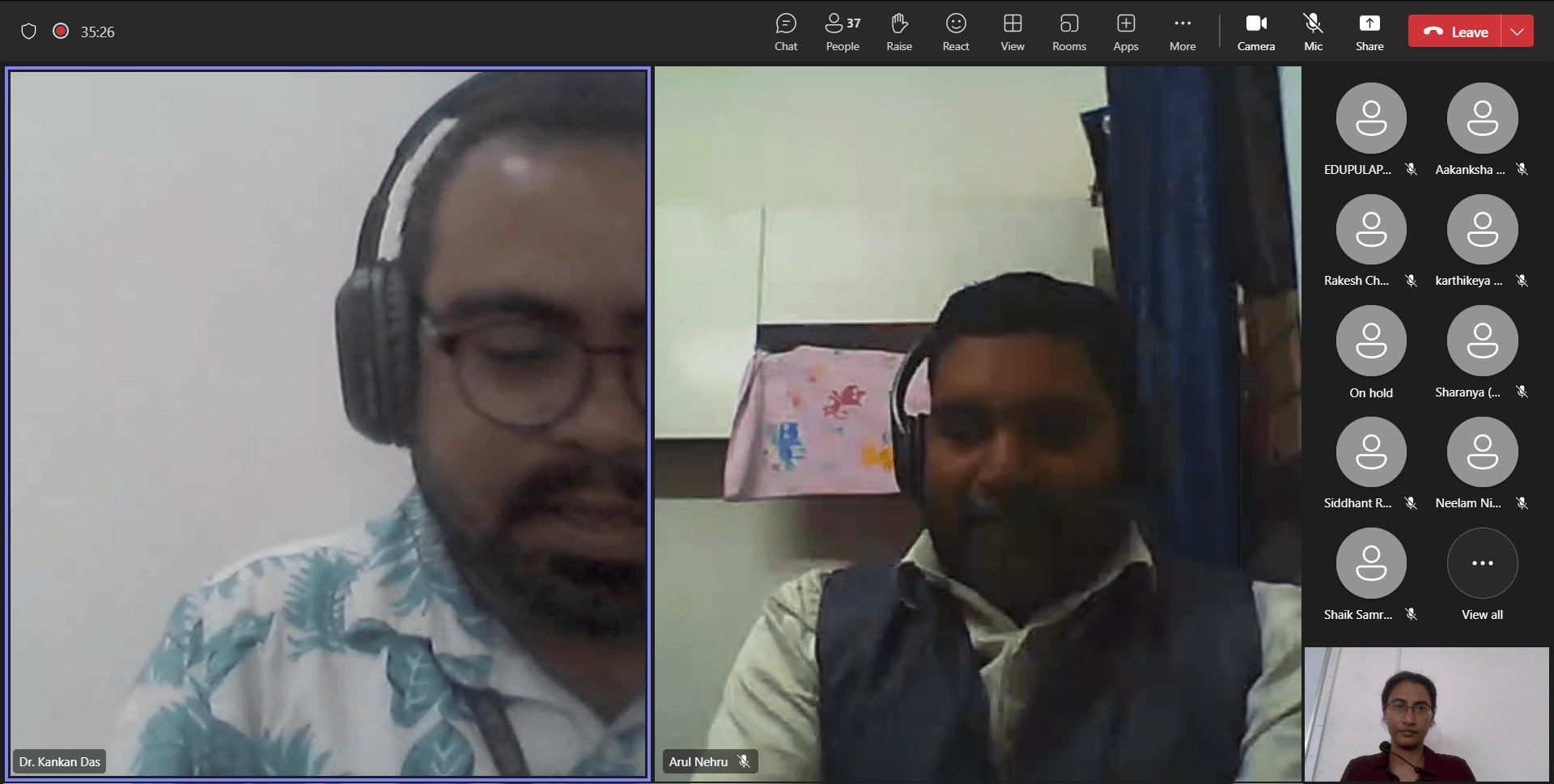
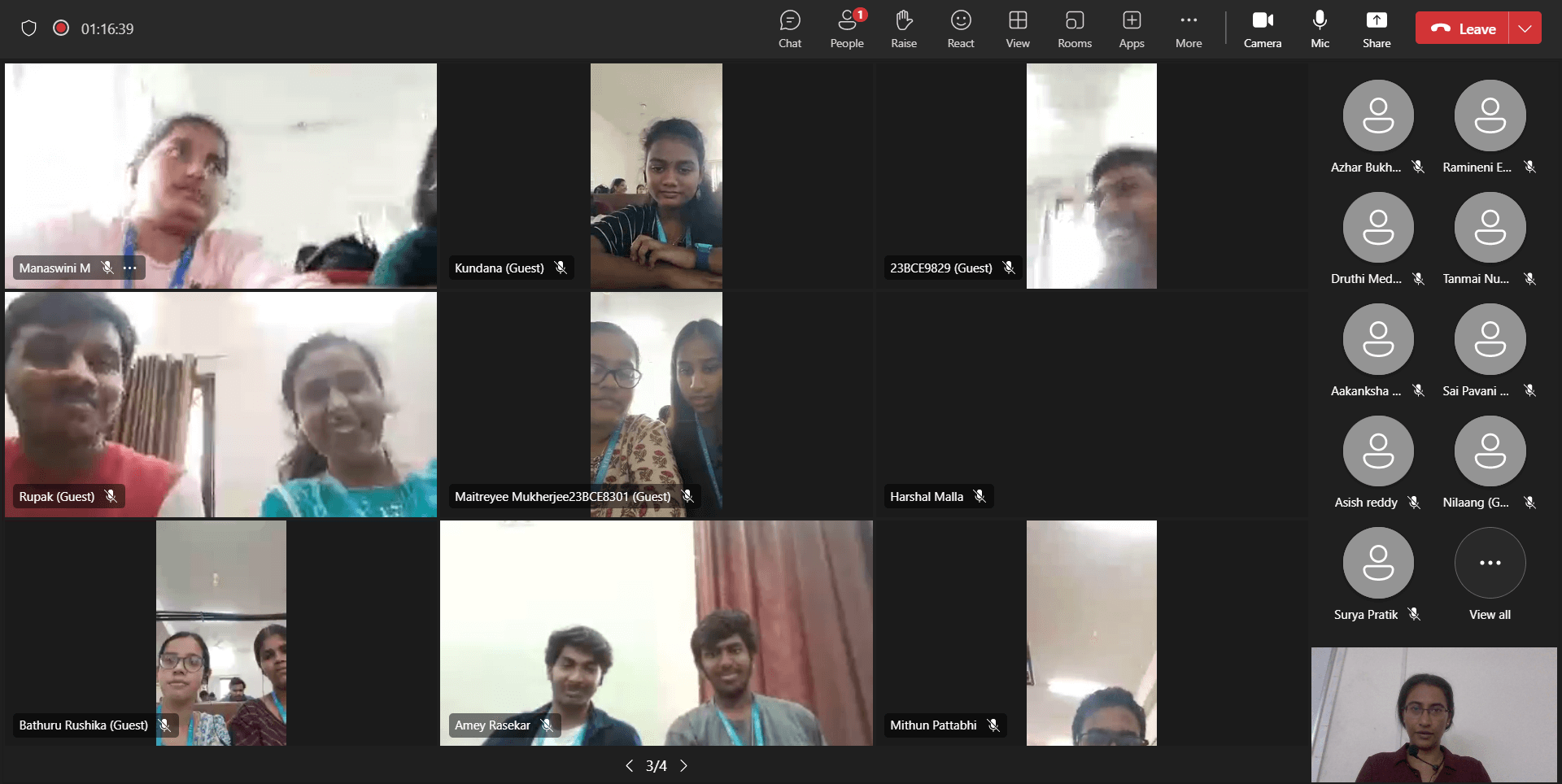
ATHENA 2023 – 3rd Annual International Conference
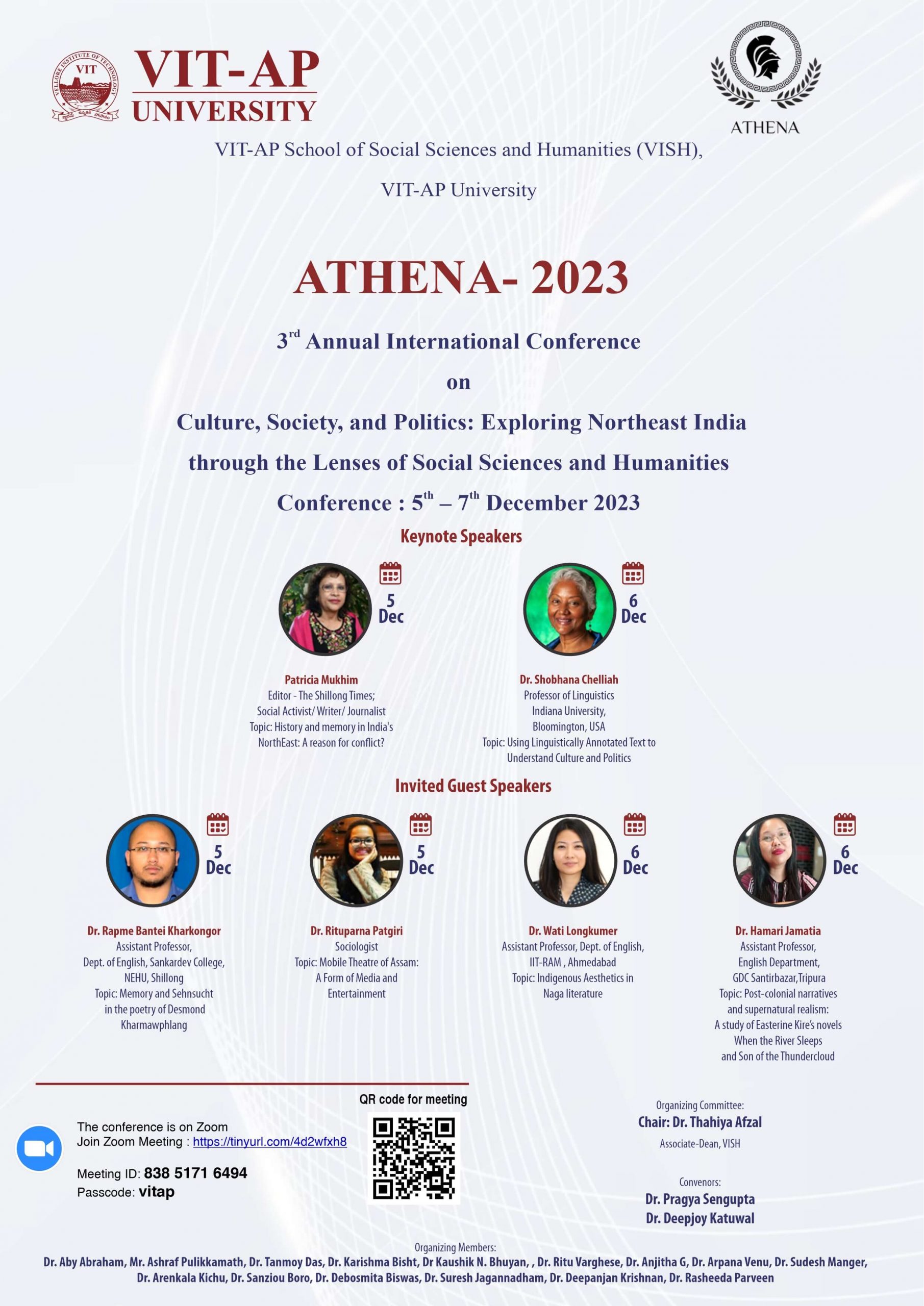
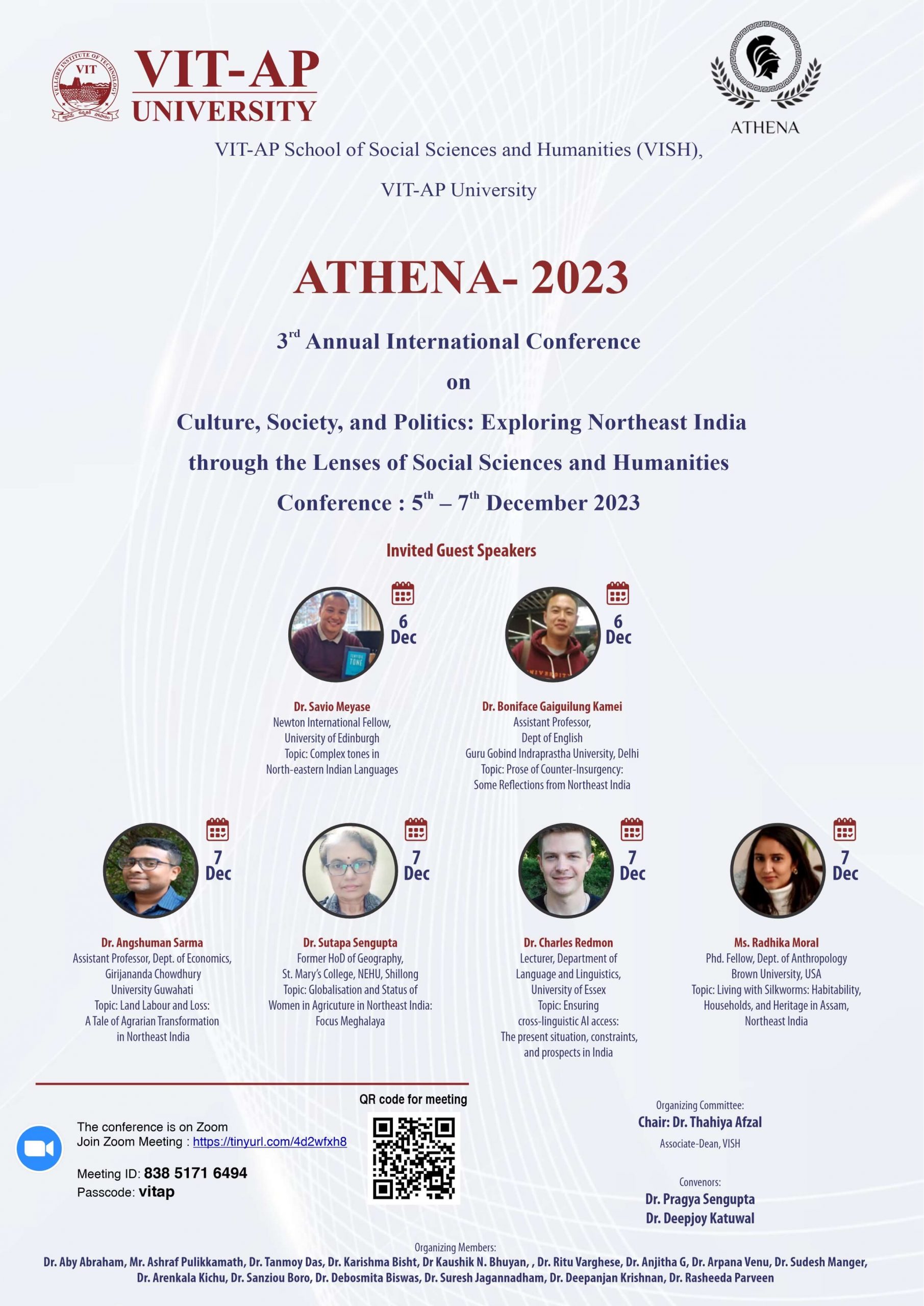
VIT-AP School of Social Sciences and Humanities (VISH) successfully organized the 3rd Annual International ATHENA 2023 Conference on “Exploring Northeast India through the Lenses of Social Sciences and Humanities” from December 5-7, 2023, in an online mode.
Former Air Chief Marshal Arup Raha, currently the Chancellor of Assam University, was the chief guest in the inaugural session of the conference. His powerful speech laid the foundation for the rest of the conference. Renowned journalist and activist Ms. Patricia Mukhim (Editor, The Shillong Times) and Dr. Shobhana Chelliah (Professor, Indiana University) graced the conference as keynote speakers, providing insightful perspectives on Northeast India. Moreover, the scholarly plenary lectures delivered by distinguished faculty members from various universities in India and abroad further ignited scholarly dialogue, fostering interdisciplinary debate and discussion. The Vice-Chancellor, Dr. S. V. Kota Reddy, Registrar Dr. Jagadish Muduganti and Dr. Thahiya Afzhal, the Associate Dean of VISH also graced the occasion and addressed the august gathering.
Over the three days, sixty-five academic papers were presented at the conference, spanning diverse themes related to Northeast India across seventeen single and parallel sessions. The attendance across the sessions was robust, with lively discussions and Q&A.
The ATHENA 2023 conference served as a significant platform for scholars to delve into the social, cultural, and political intricacies of Northeast India. With an impressive lineup of keynote and plenary speakers, along with diverse sessions covering a broad spectrum of themes, the conference significantly contributed to the scholarly understanding of the region. It helped in fostering interdisciplinary collaboration in the broader field of Social Sciences and Humanities. Overall, ATHENA 2023 provided a rich intellectual space for exploring and dissecting the multifaceted realities of Northeast India and contributed to knowledge production in the field.
The feedback collected from the participants revealed that the conference greatly benefited the academic community and stimulated further interest in the nuanced study of Northeast India. Moreover, the inclusion of awards for outstanding papers not only recognized and celebrated academic excellence but also motivated scholars to elevate the quality of their contributions.
Additionally, the positive impact of ATHENA 2023 extended beyond the immediate conference period. Many attendees expressed their intent to integrate the knowledge gained into their ongoing research and teaching endeavours. The collaborative spirit fostered at the conference is expected to result in joint research projects, publications, and other scholarly activities that will further enrich the academic landscape focused on Northeast India.
As convenors of the conference, Dr. Deepjoy Katuwal and Dr. Pragya Sengupta coordinated the event with the active assistance and participation of every faculty member and research scholar from the School of Social Sciences and Humanities at VIT-AP.
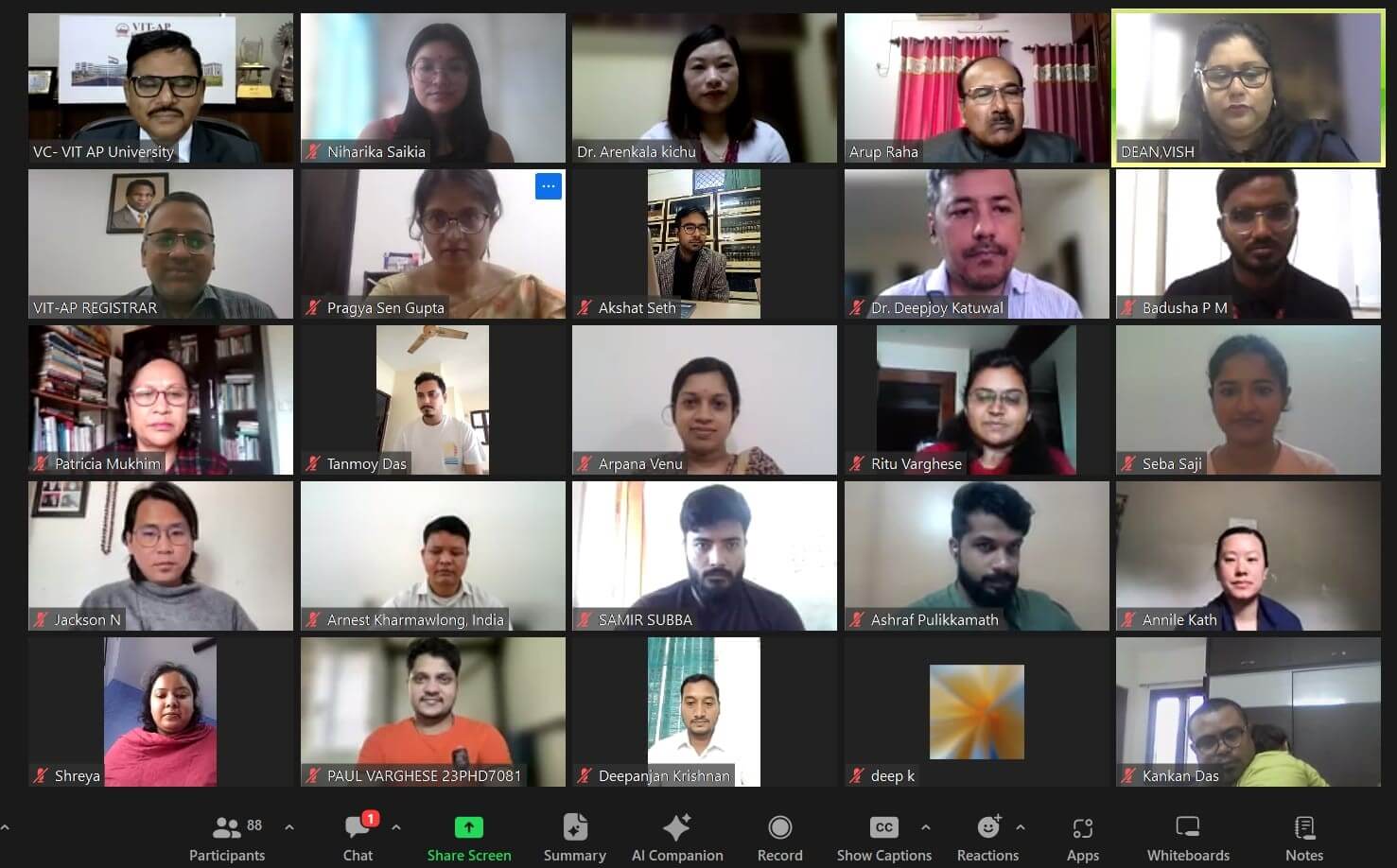
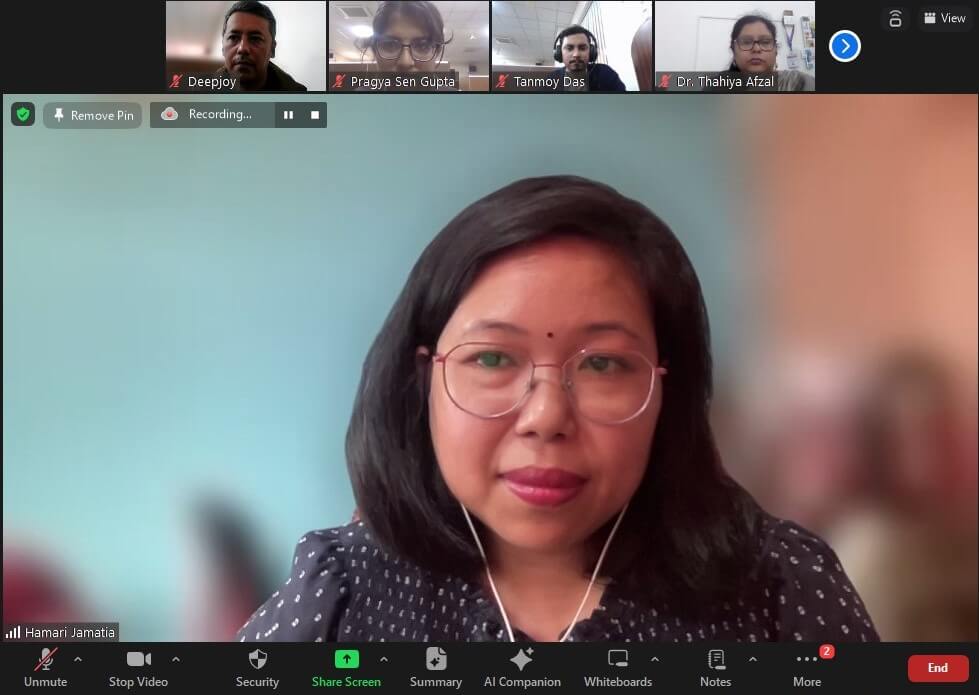
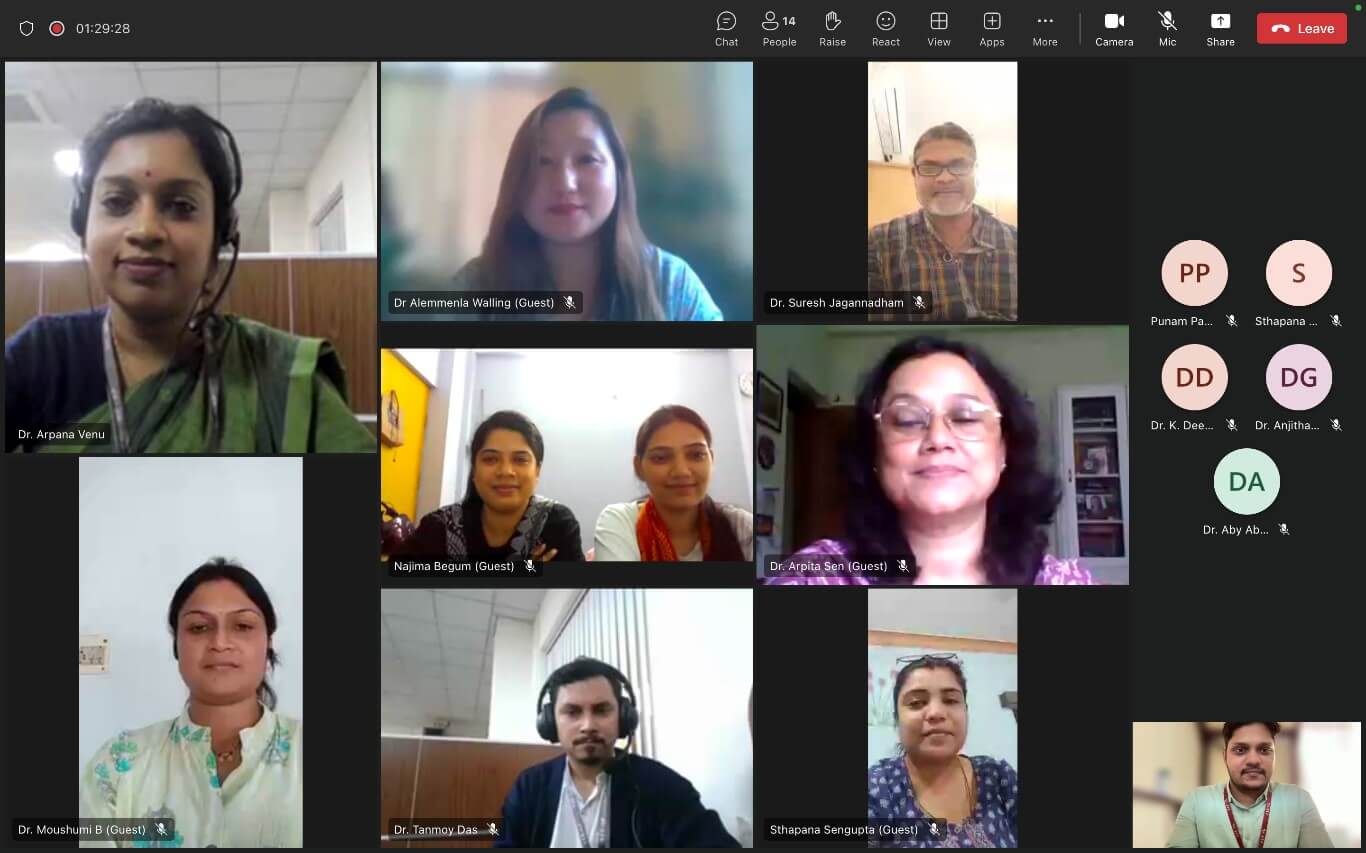
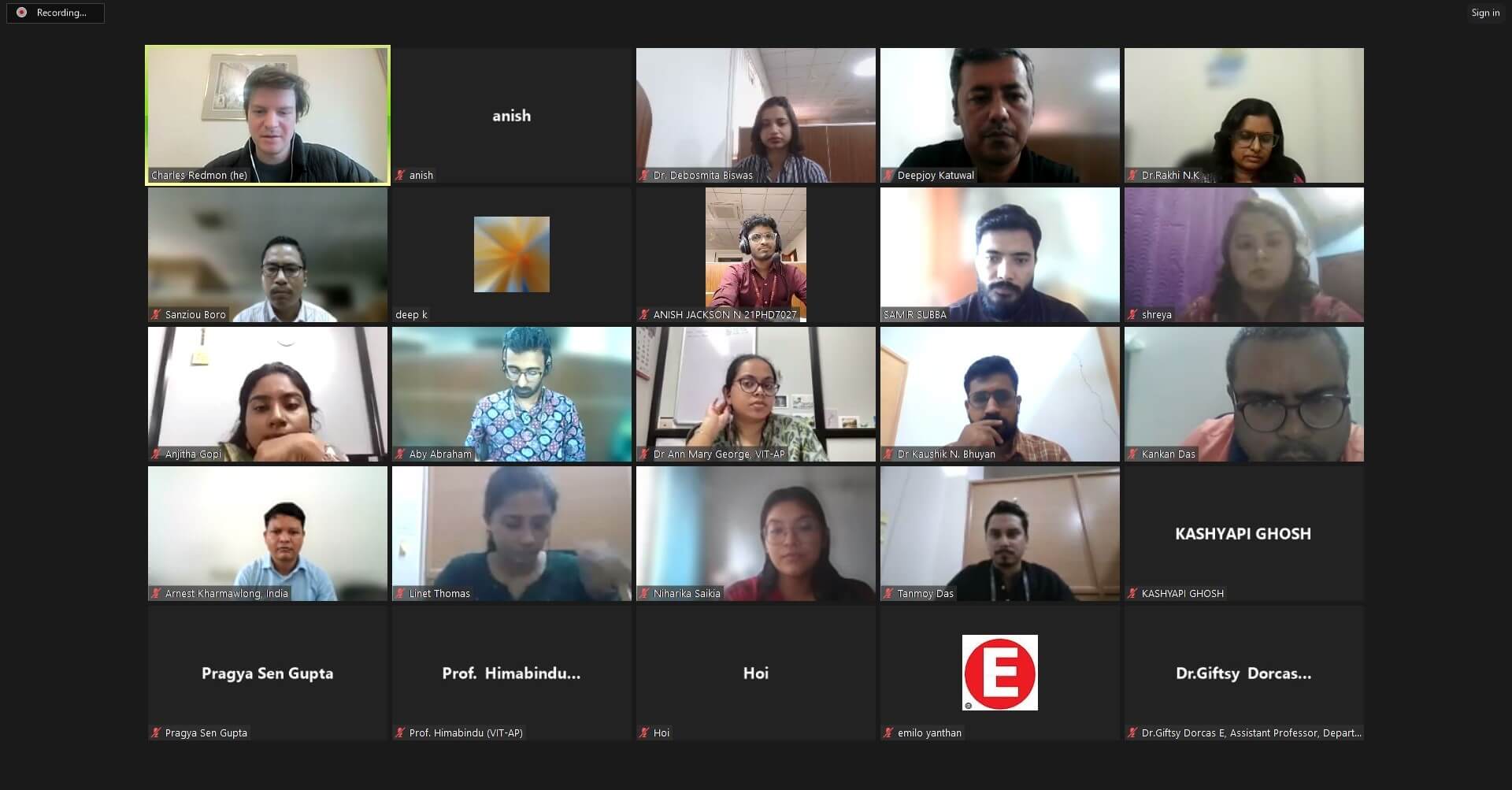
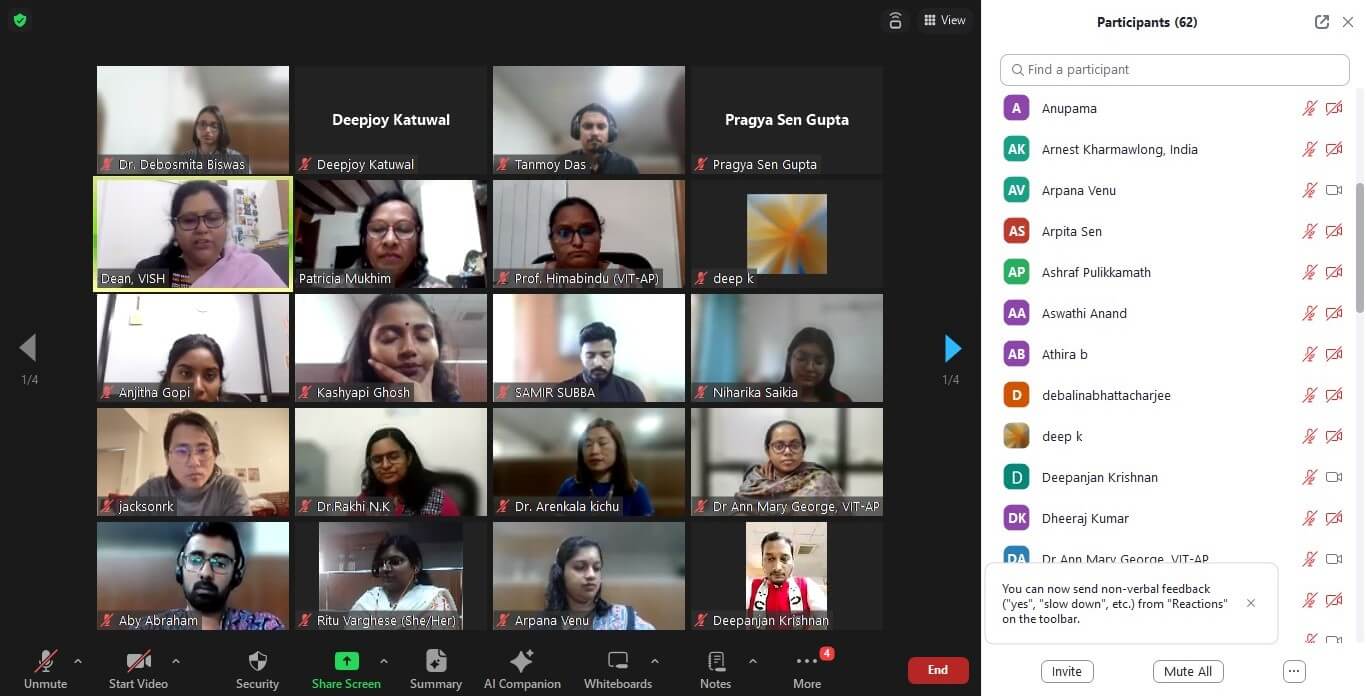
Athena 2023 Photography Competition
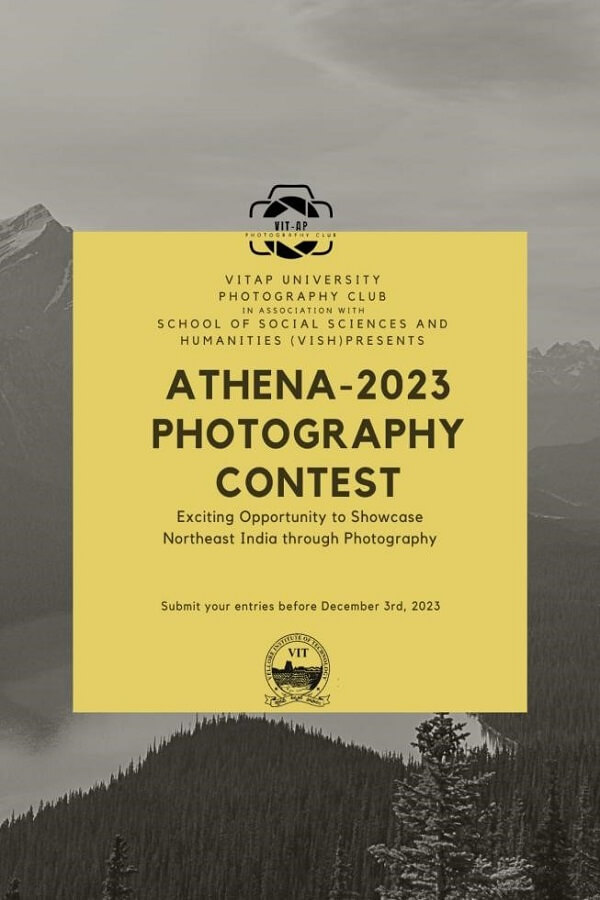
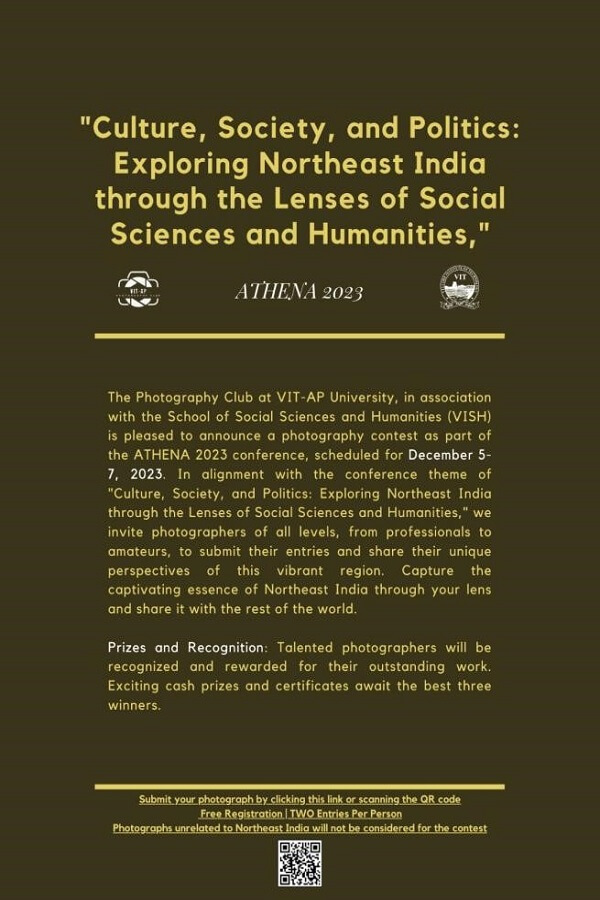
VIT-AP School of Social Sciences and Humanities (VISH), in collaboration with the Photography Club at VIT-AP University, organized a national-level photography competition. This event took place in conjunction with the prestigious Athena 2023- International Conference organized by VISH (December 5-7, 2023).
The overarching theme of the competition was aligned with the conference’s focus on “Culture, Society, and Politics: Exploring Northeast India through the Lenses of Social Sciences and Humanities.” The intent behind the competition was to provide a platform for photographers of all calibers, ranging from seasoned professionals to passionate amateurs, to contribute their creative insights and perspectives on the rich and diverse tapestry of Northeast India.
Enthusiastic participants from across the length and breadth of the country actively engaged in this event. The submissions showcased a myriad of interpretations and visual narratives, each reflecting the unique lens through which photographers perceived the multifaceted aspects of Northeast India.
After careful evaluation by a panel of judges, the top honours were given to three exceptional photographers. Najima Begum from Assam claimed the first prize, capturing the everyday life of the region with remarkable finesse. Gautham N C from Kerala secured the second prize for his outstanding portrayal, while Sayan Mazumder from West Bengal clinched the third prize with a wonderful portrait.
The competition not only celebrated the art of photography but also served as a commendable avenue for fostering a deeper understanding of the cultural, societal, and political dynamics within Northeast India. The success of this event is a testament to the collaborative efforts of VISH and the Photography Club, reinforcing their commitment to promoting artistic expression and cultural exploration within the academic community at VIT-AP University. The photography competition was coordinated by Dr. Aby Abraham.
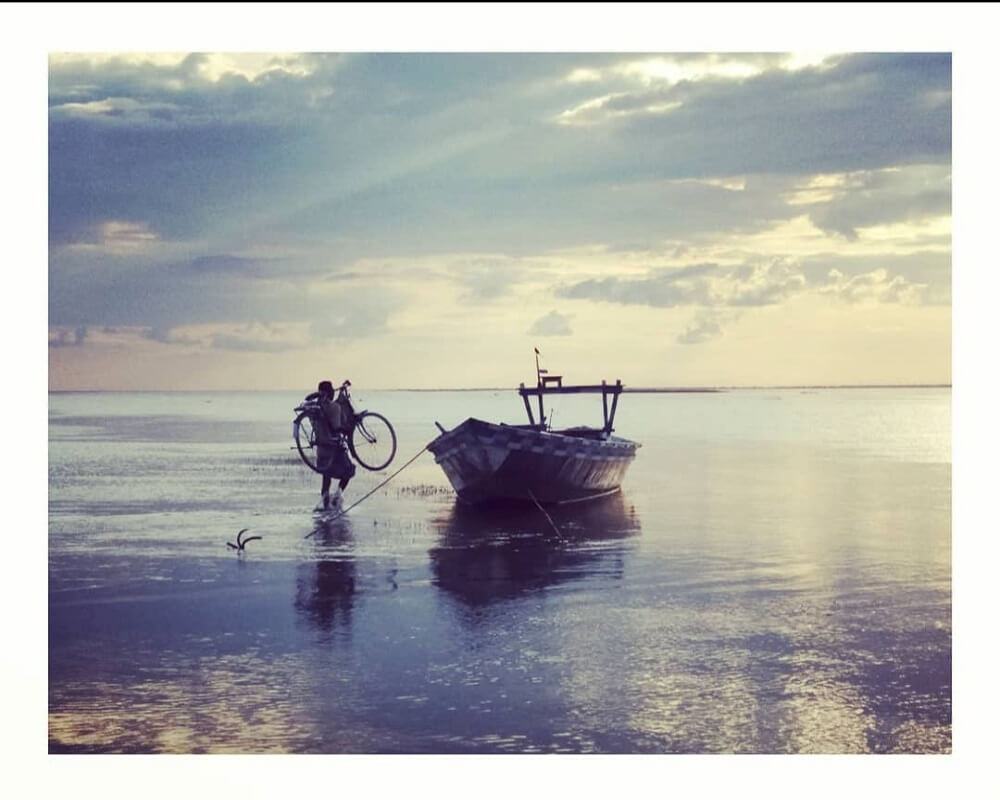
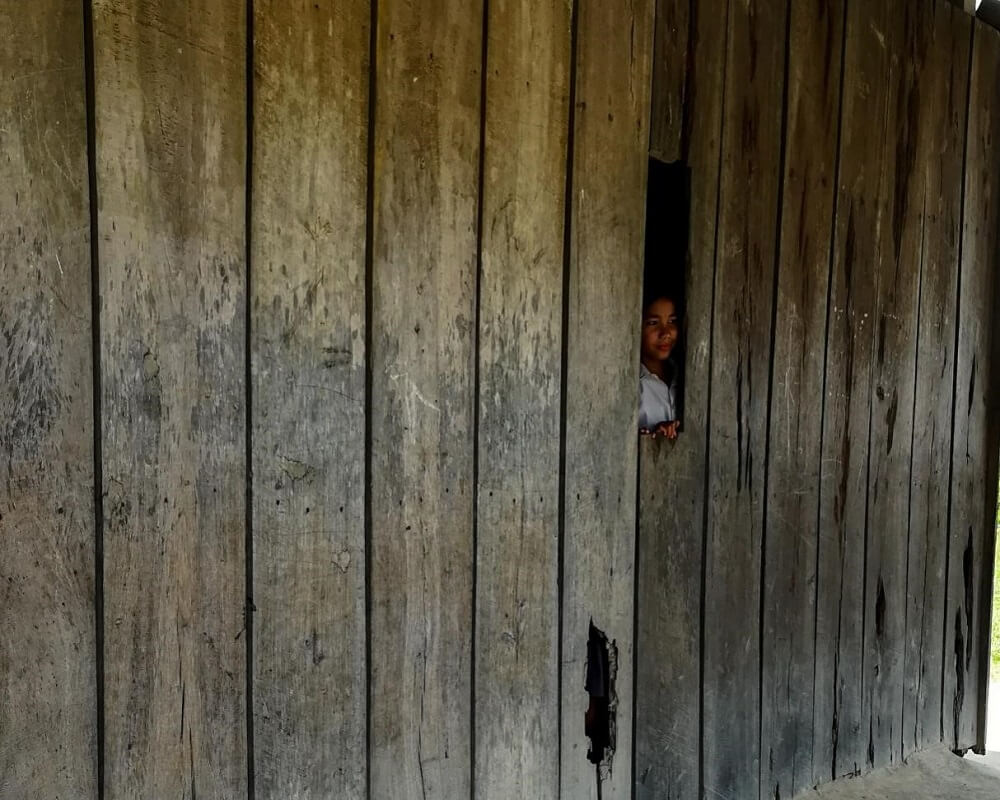
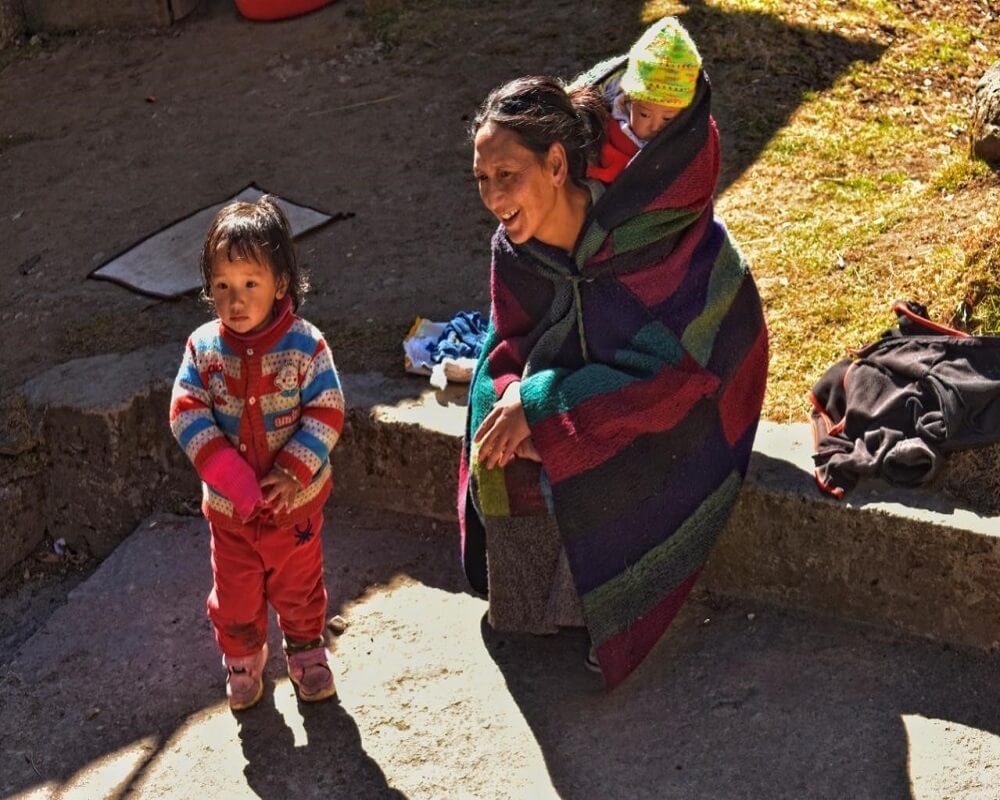
Industry Guest Lecture Design Thinking: From Insights to Viability
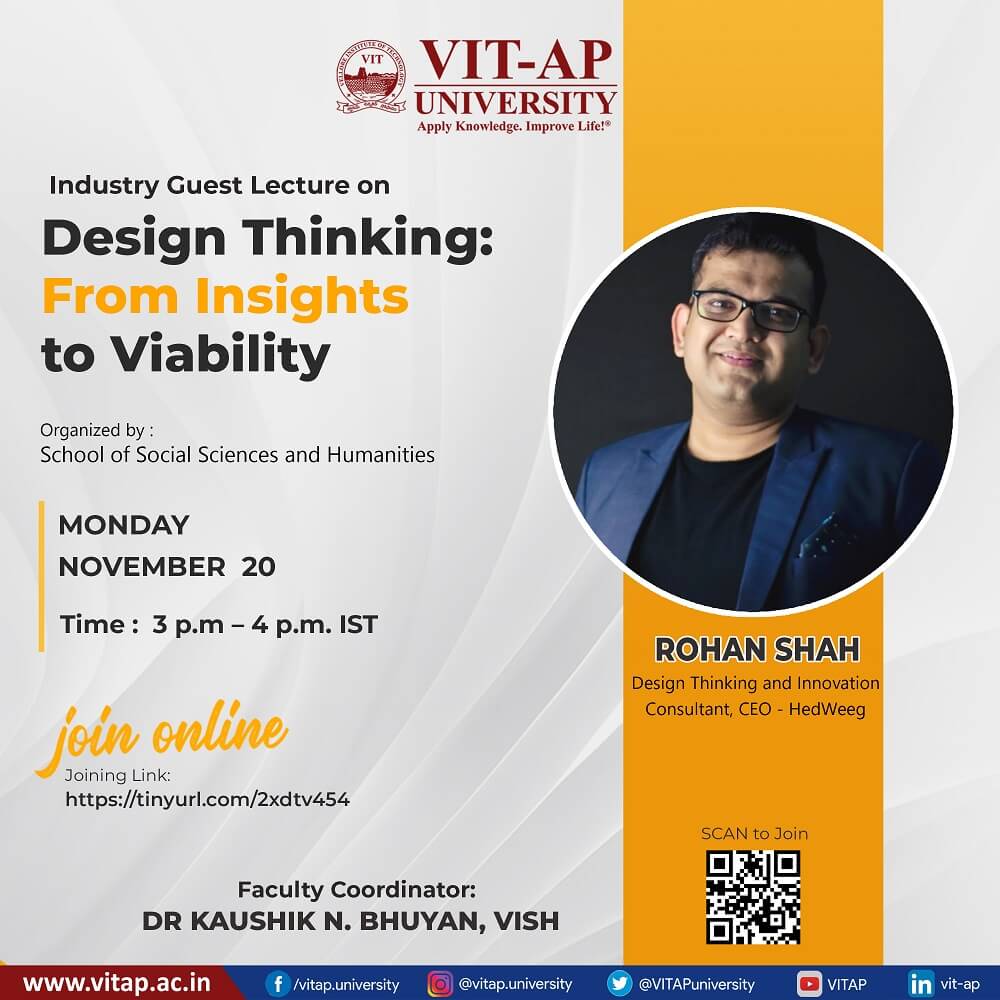
A guest lecture on ‘Design Thinking: From Insights to Viability’ was organized on November 20, 2023. The lecture was delivered by Mr. Rohan Shah, a Design Thinking and Innovation Consultant, and CEO of HedWeeg. The session began by highlighting that every person is unique and has their creative way of solving problems.
The speaker discussed the different eras of design thinking for creating a product. First, he spoke about the production era, where the focus was on the scale and consistency of production. Then, he mentioned the specialization era, where the emphasis was on the quality and continuous improvement of the product. Finally, he spoke about the service era, where it became important for a product to be convenient to use. He emphasized the significance of pushing our imagination to innovate or redesign a product, and stressed the importance of imagining solutions without worrying about whether these ideas will be successful or fail in the future, or if they are even possible in the real world. The speaker engaged the participants in an activity of designing their ‘ultimate desk,’ and many of them came up with wonderful and innovative ideas, making the session more interactive and lively.
During the Q&A session, students were actively engaged with the speaker on several issues such as the steps of redesigning and the future opportunities of specific courses in the field of design thinking. The session was attended by more than 105 students, faculties, and guests across all disciplines. The lecture ended with a vote of thanks by the student moderator, Ms. Pratibha Mishra. The guest lecture was coordinated by Dr. Kaushik N. Bhuyan.
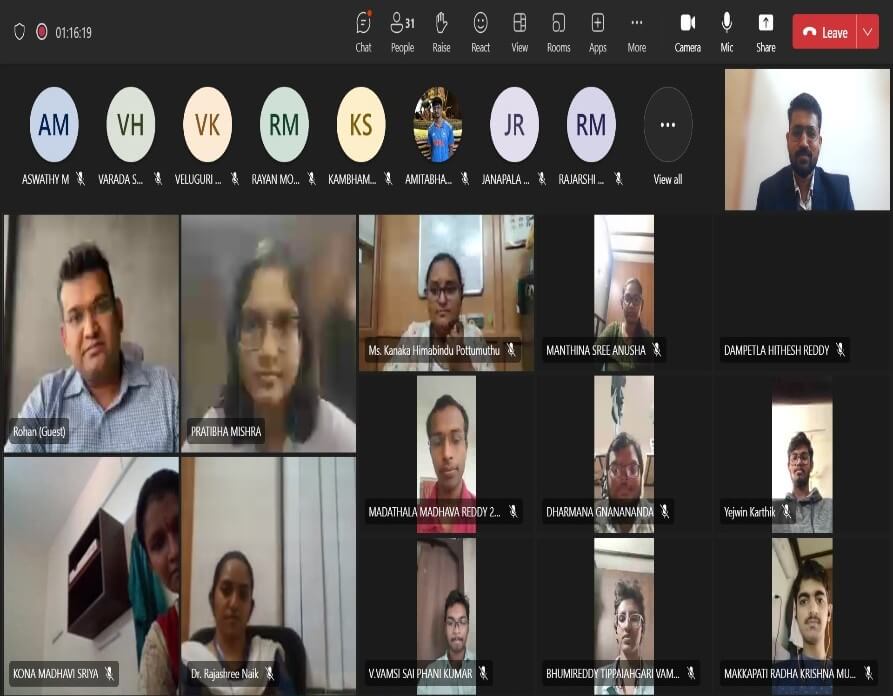
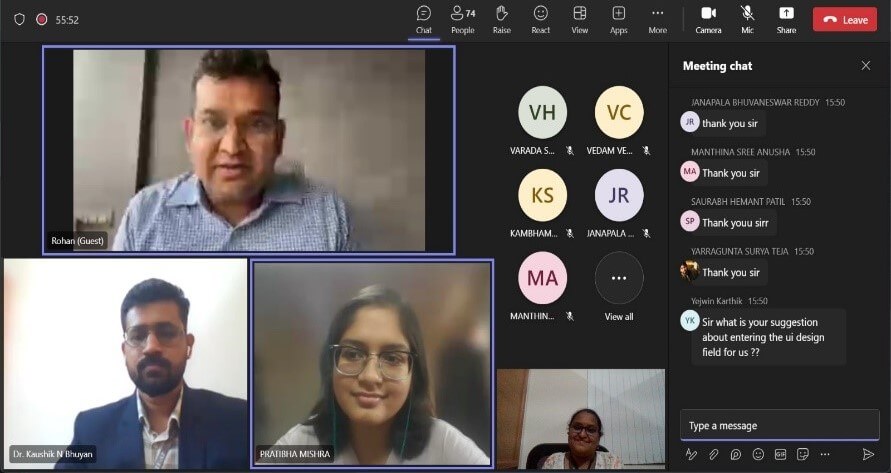
Field Visit: 2nd-century Buddhist history of Amaravati
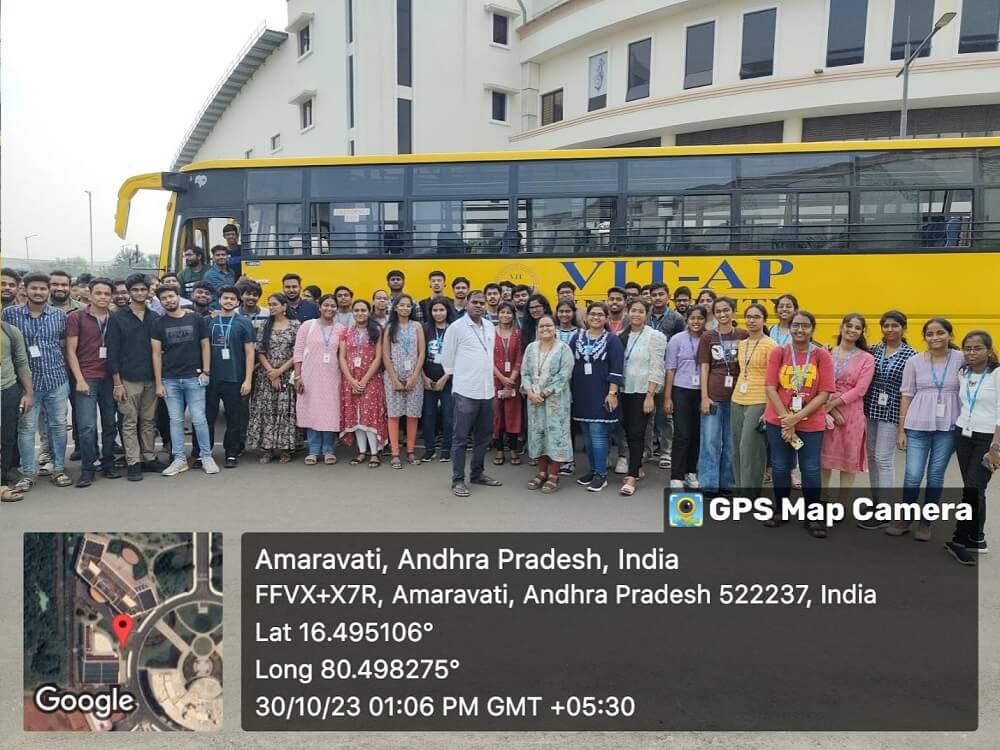
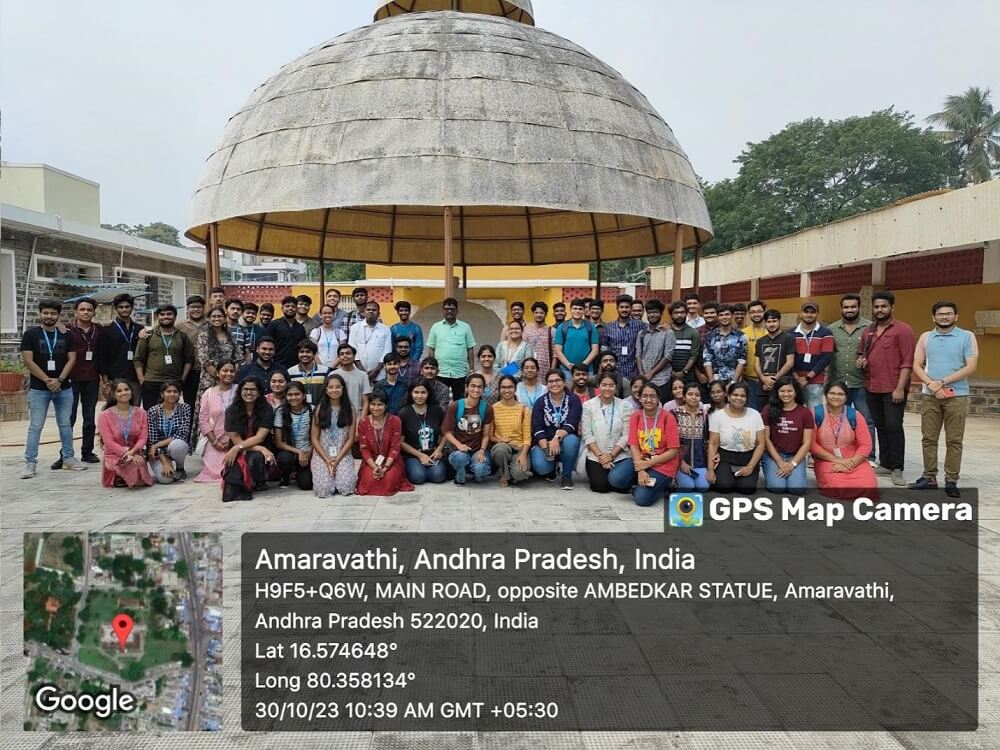
A field visit was organized for LIB1001 Anthropology: An Introduction during the Fall Semester 2023-23 on 30 October 2023, as part of the curriculum. The field visit focused on understanding the heritage and culture of the place where the university is situated, Vijayawada, Andhra Pradesh. In the field visit, students were explained about the 2nd-century Buddhist history associated with the Amaravati region through the artefacts that are restored in the museum. Through an anthropological perspective, Prof. Himabindu explained the importance of participant observation and excavation. All the students enrolled in the course and Dr. Naveen Kumar Cherupally of VISH attended the field visit. The students actively interacted with the people of the museum and stupa; and understood various aspects of the place. The feedback from the students was incredible and they said they thoroughly enjoyed the brief trip. The field visit was coordinated by Prof. Kanaka Himabindu Pottumuthu.
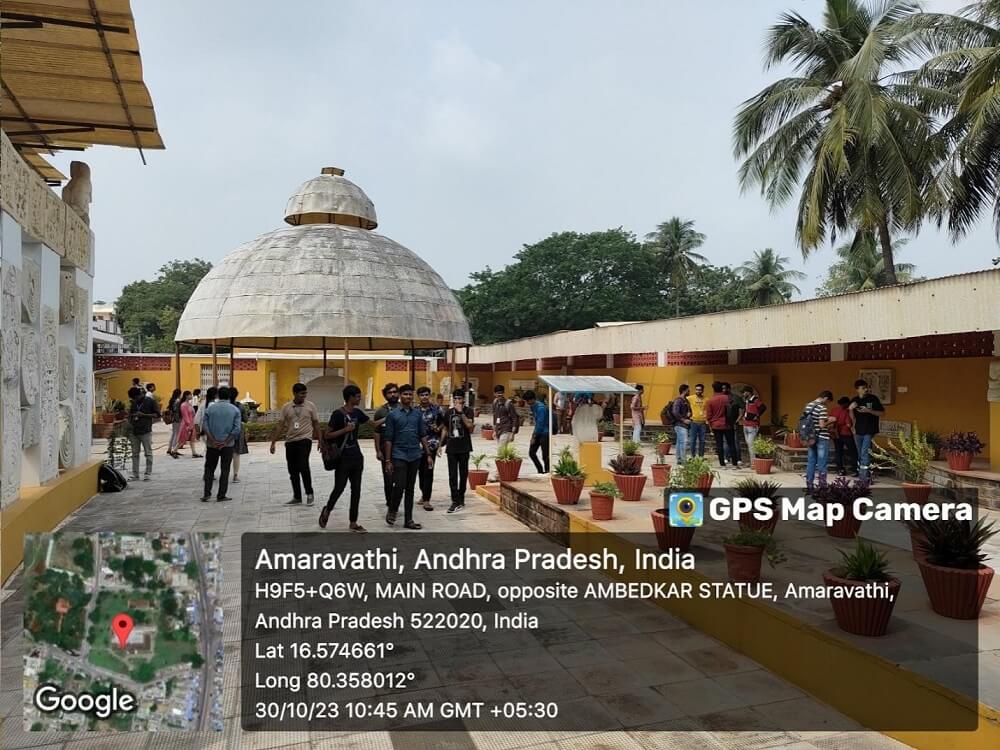
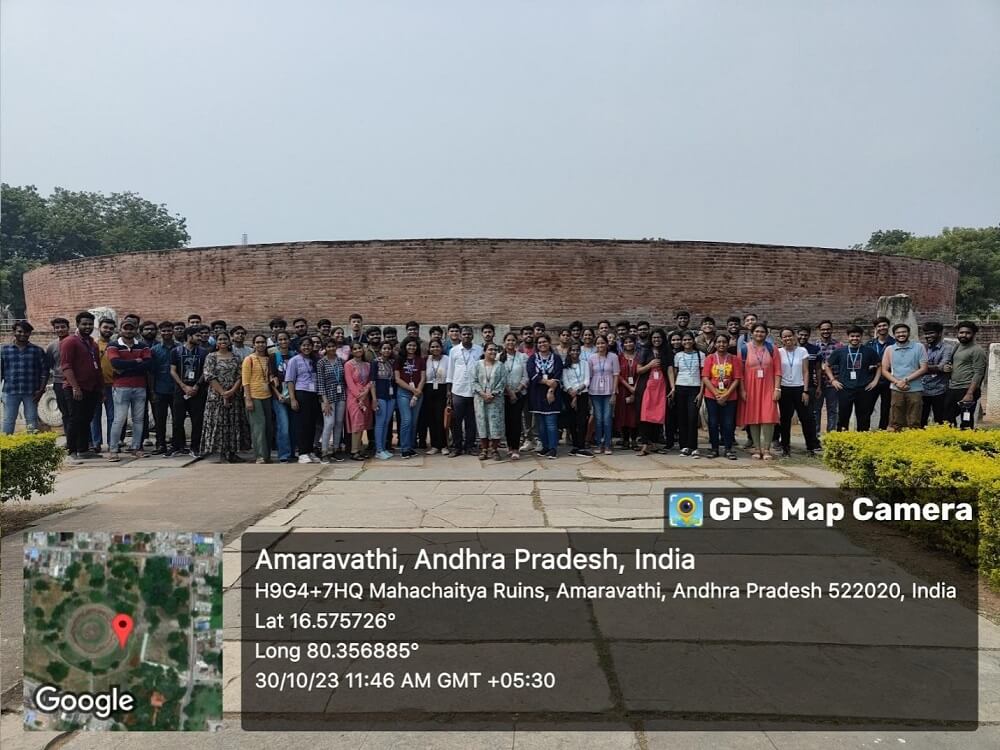
FGL: Navigating Intercultural Interactions at the Workspace
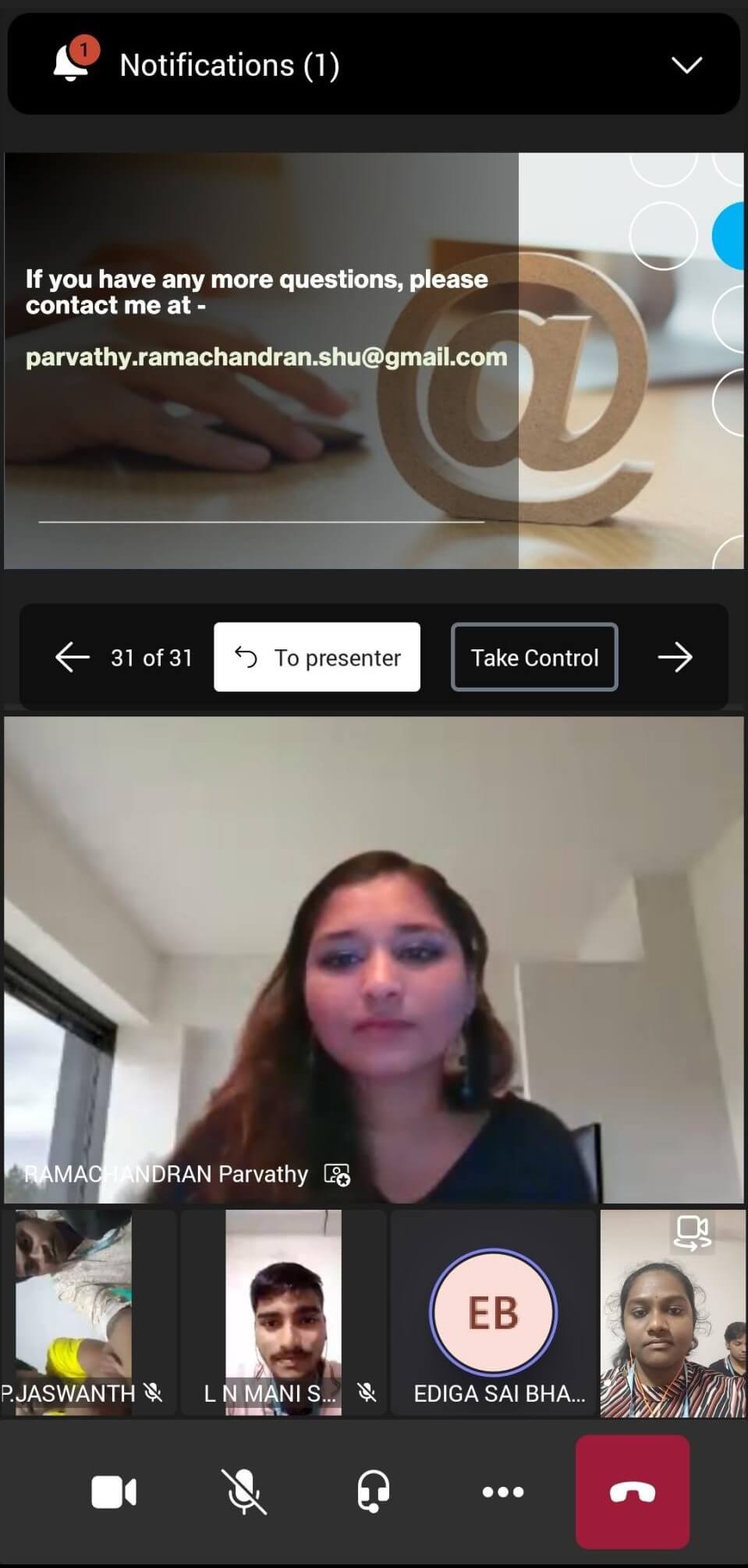
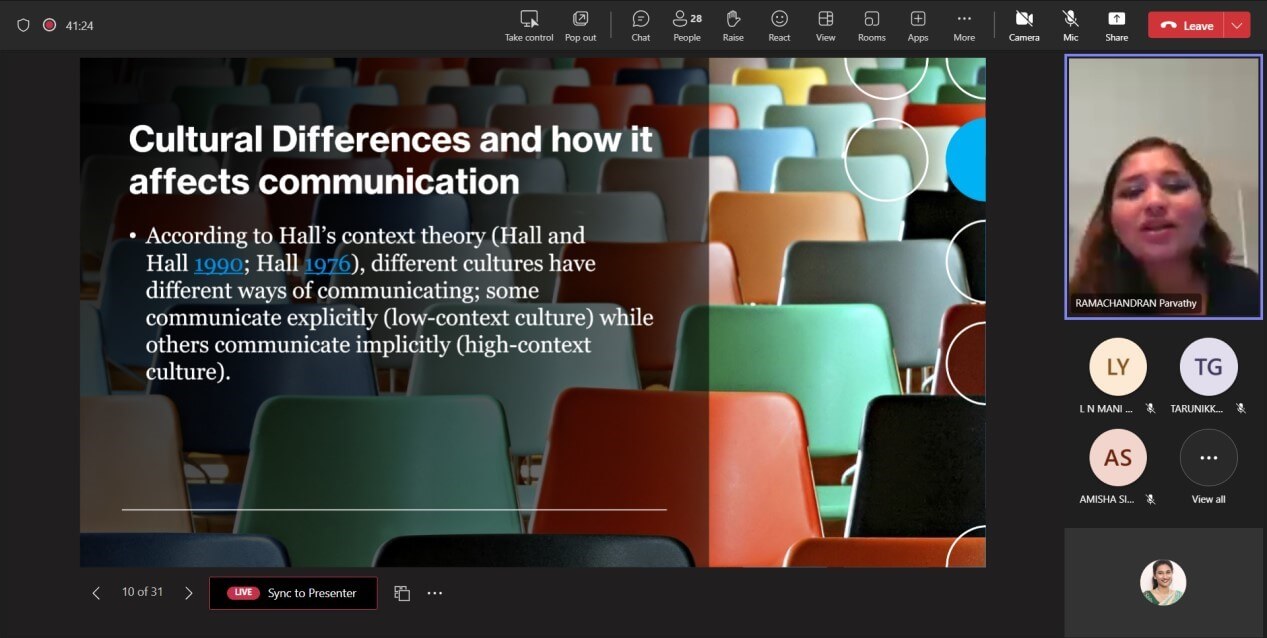
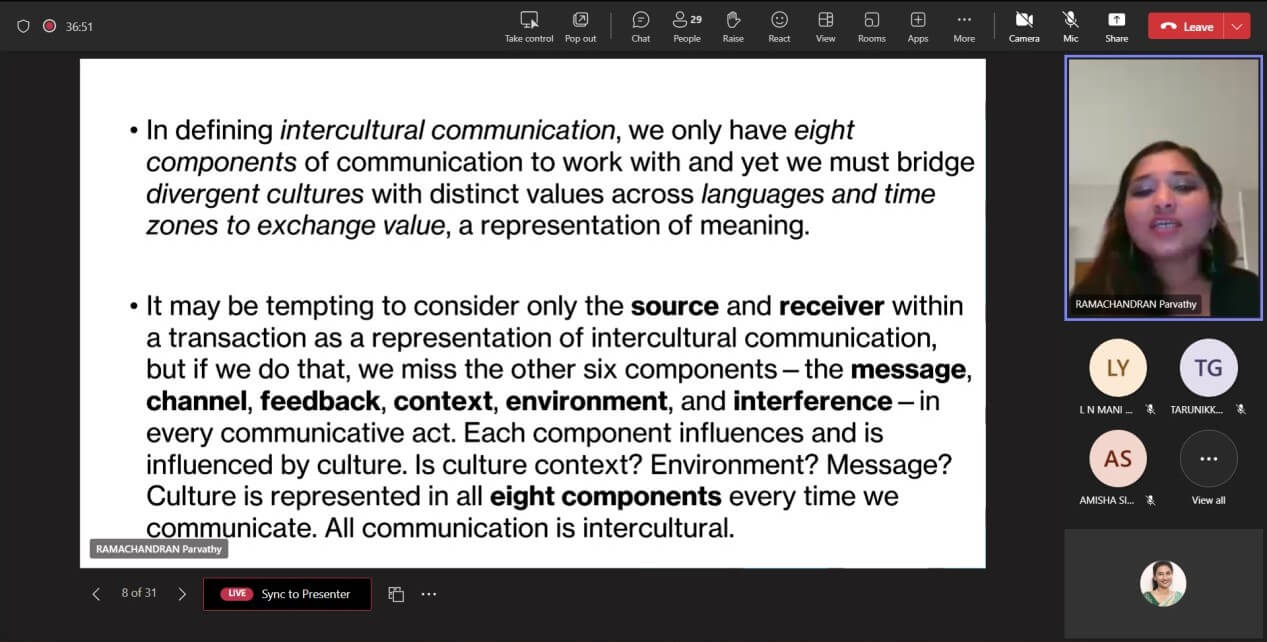
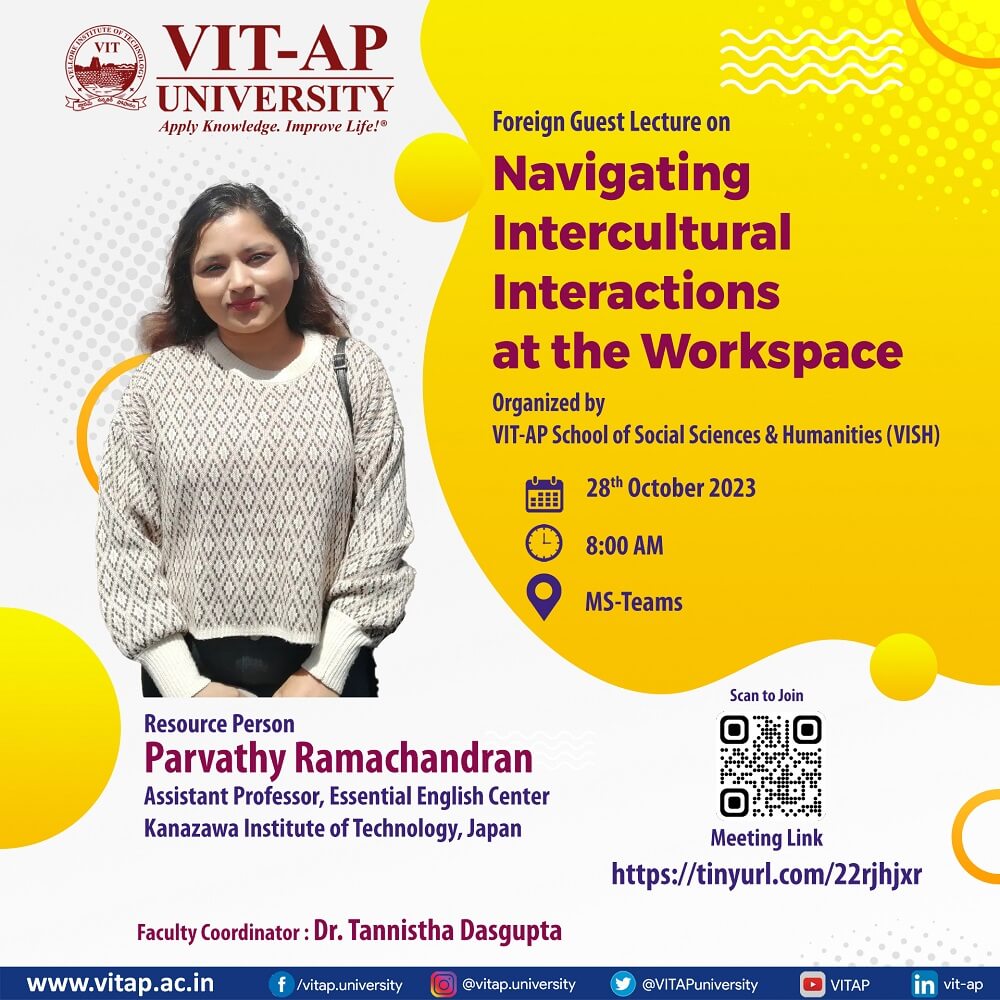
The guest lecture, titled “Navigating Intercultural Interactions at the Workspace,” took place on October 28, 2023, from 8:00 AM to 9:00 AM IST. It aimed to explore challenges arising from differences in intercultural interactions within a professional context, particularly between low-context and high-context cultures. The objective was to equip students with strategies to address these challenges effectively. The lecture provided valuable insights into understanding and managing cross-cultural conflicts in the workplace. It emphasized the importance of effective communication and cultural sensitivity in a globalized world. Students gained a better understanding of the nuances of intercultural interactions and acquired practical strategies to navigate through such encounters successfully. The lecture was conducted by Parvathy Ramachandran, Assistant Professor at the Kanazawa Institute of Technology in Ishikawa, Japan, specializing in the English Language Program. With her extensive expertise in linguistics and cross-cultural communication, Ms. Ramachandran offered valuable insights into the topic, drawing from her experiences in a high-context culture in Japan. The talk was a valuable learning opportunity that equipped participants with the tools and knowledge to effectively manage intercultural dynamics in the professional space. It fostered cultural awareness, empathy, and effective communication, all essential skills in today’s globalized work environment. The event was coordinated by Dr. Tannistha Dasgupta.
National Seminar: Exploring Diverse Perspectives of Ecocriticism in the Anthropocene- Culture, Literature and Environmental Consciousness
The School of Humanities and Social Sciences (VISH) organized a national seminar on “Exploring Diverse Perspectives of Ecocriticism in the Anthropocene: Culture, Literature, and Environmental Consciousness” from October 17th to 21st, 2023. The seminar aimed to provide a platform for participants to delve into ecocriticism and gain insights into its significance in contemporary society. Attended by 132 scholars, faculty, and professionals from reputed institutions such as the University of Lucknow, University of Kalyani, University of Burdwan, IIT Kanpur, and IIT Kharagpur, the seminar featured seven sessions from India and abroad. The inaugural session on October 17th began with a welcome address by Dr. Thahiya Afzal, the school’s Associate Dean. The international guest speaker, Dr. Scott Slovic from the University of Idaho, Moscow, USA, addressed the audience. Dr. Slovic discussed environmental awareness and communication strategies, emphasizing the role of literature, art, and photographs in shaping environmental values and attitudes. He highlighted how awareness of environmental degradation has led to ecological action.
The second session featured Dr. Nibedita Bandyopadhyay, who spoke on “The Relevance of Postcolonial Ecocriticism in the Anthropocene.” She underscored the significance of postcolonial ecocriticism in unraveling connections between colonial histories, environmental degradation, and cultural diversity. Dr. Bandyopadhyay drew attention to the marginalization of nature in the face of current-day natural calamities, paralleling the uncertainty experienced by tribal communities.
On the second day, Dr. Rajashree Bargohain from Cotton University, Guwahati, delivered a talk on “Climate Refugees of the Anthropocene: Reading Moria Hula as Cli-fi fiction.” Her critical examination of the narrative contributed to the discourse on literature’s role in addressing climate challenges and fostering empathy for those impacted by environmental changes.
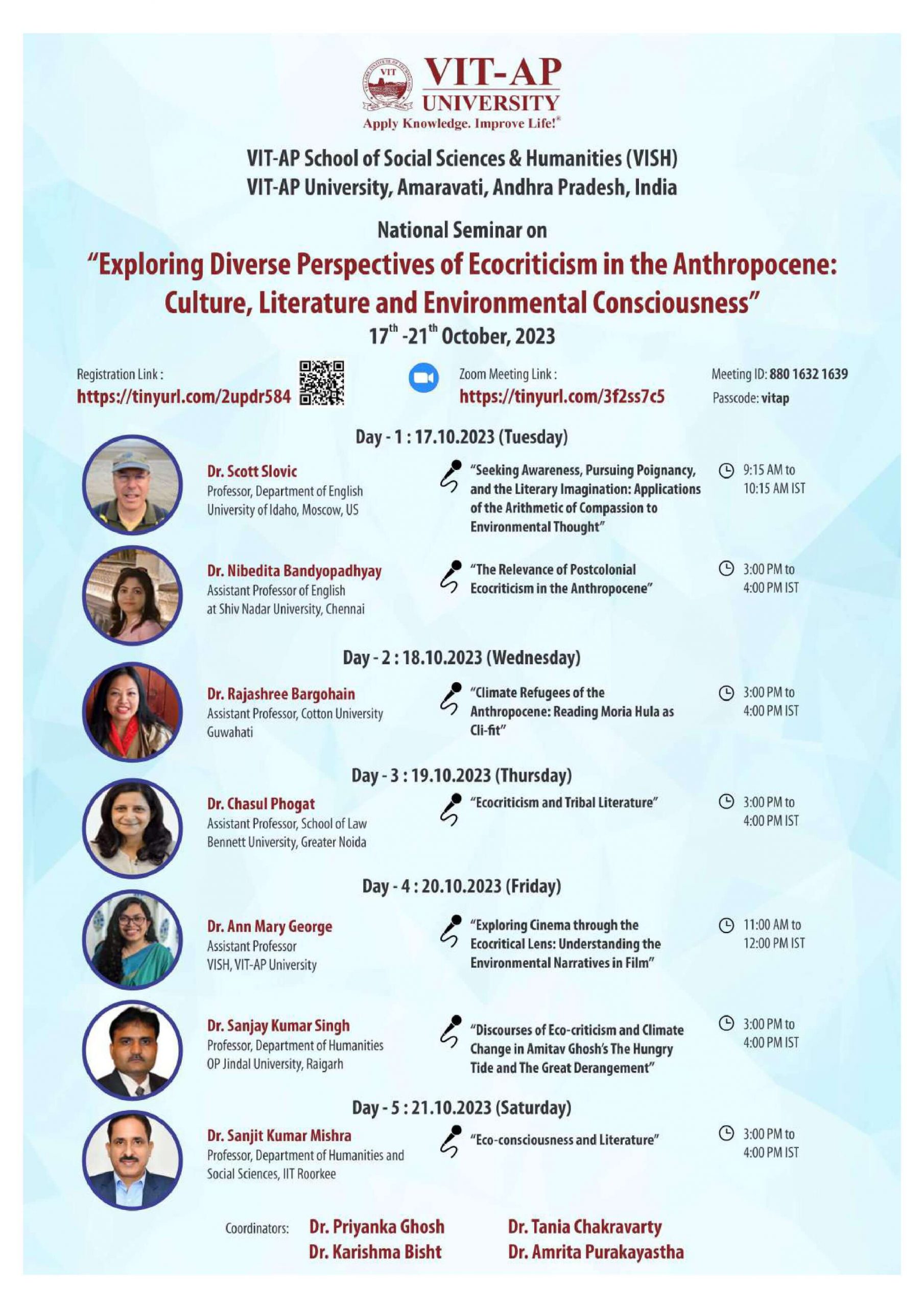
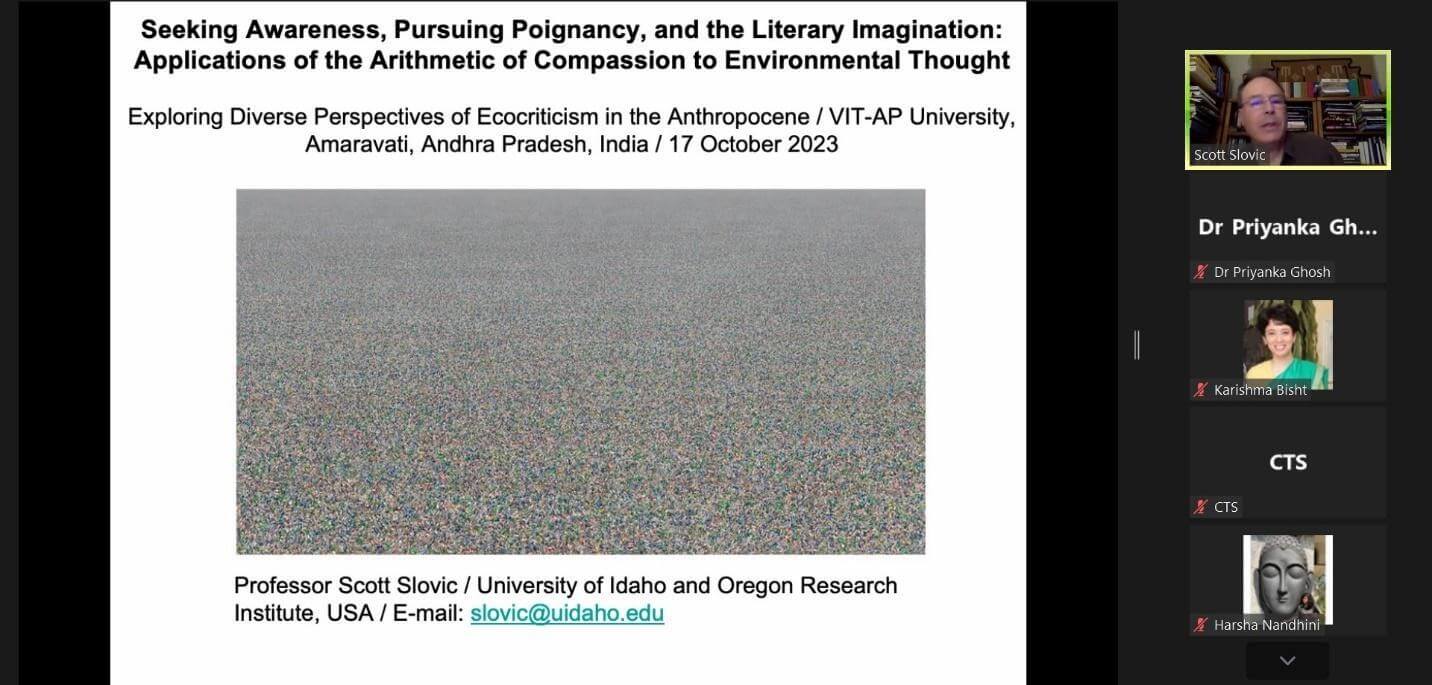
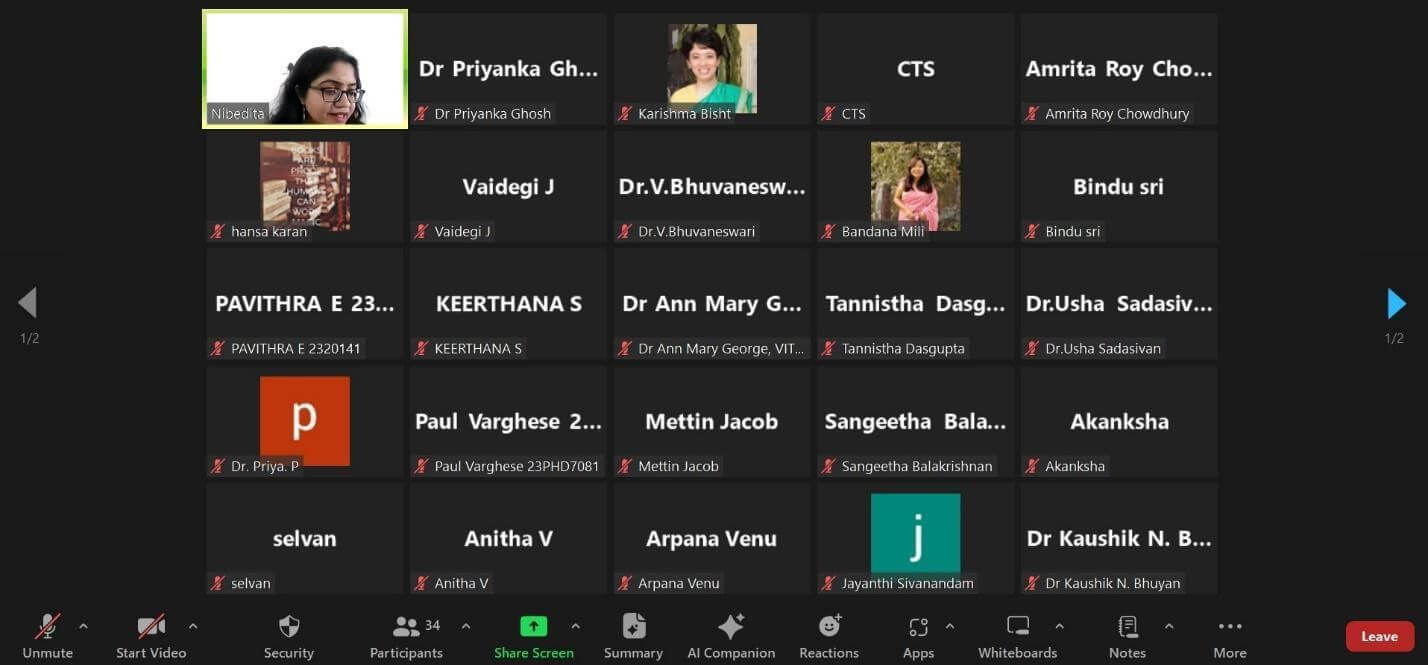
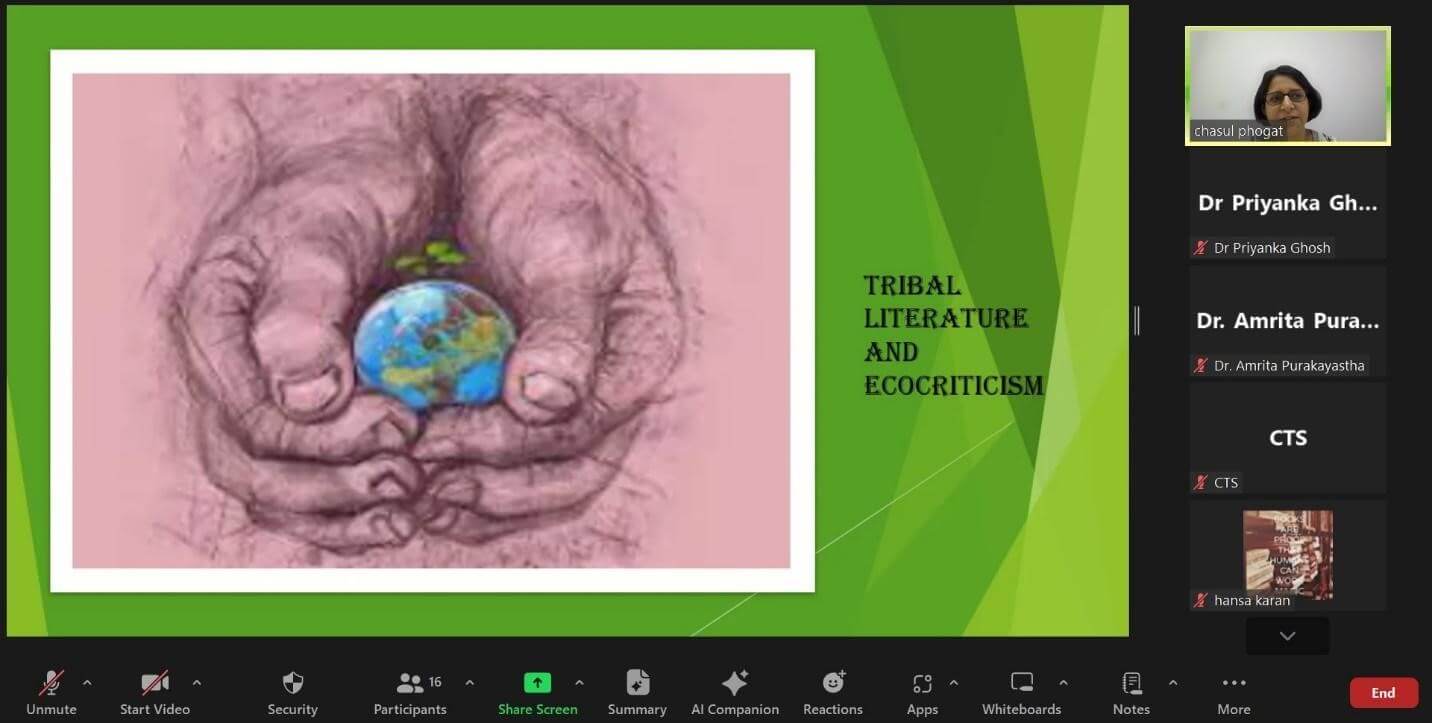
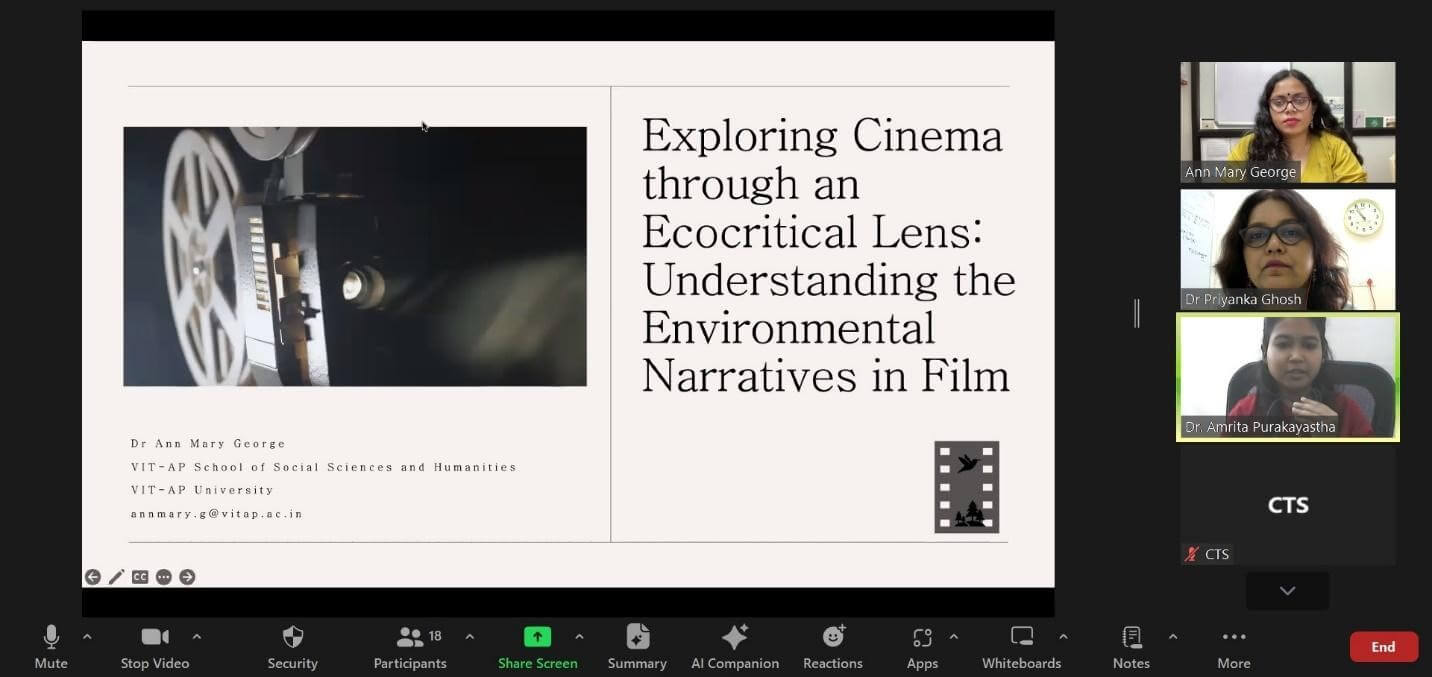
In Session 4, Dr. Chasul Phogat from Bennett University explored the intersection of ecocriticism and tribal literature, discussing learning sustainable practices from indigenous people and tribal literature. She used stories from Temsula Ao’s work to demonstrate the non-human world’s concern about human exploitation and the need for symbiotic living. The fifth session, delivered by Ann Mary Joseph from VIT AP University, focused on “Exploring Cinema through the Ecocritical Lens: Understanding the Narratives in Film.” Her talk contributed insights into how cinematic narratives shape societal attitudes towards the environment. Dr. Sanjay Kumar Singh from OP Jindal University discussed “Disclosures of Ecocriticism and Climate Change in Amitav Ghosh’s The Hungry Tide and The Great Derangement” in the sixth session. His analysis highlighted Ghosh’s contribution to literature and the discourse on environmental issues.
The seminar concluded with Dr. Sanjit Kumar Mishra from IIT Roorkee discussing “Eco-consciousness and Literature.” He explored the interdisciplinary nature of eco-consciousness, tracing the path from primitivism to modernity and illustrating the interconnection between nature and culture through the works of Kalidasa, Wordsworth, Keats, and Shelley. The event was coordinated by Dr. Priyanka Ghsoh, Dr. Karishma Bisht, Dr. Tania Chakravarty and Dr. Amrita Purakayastha.
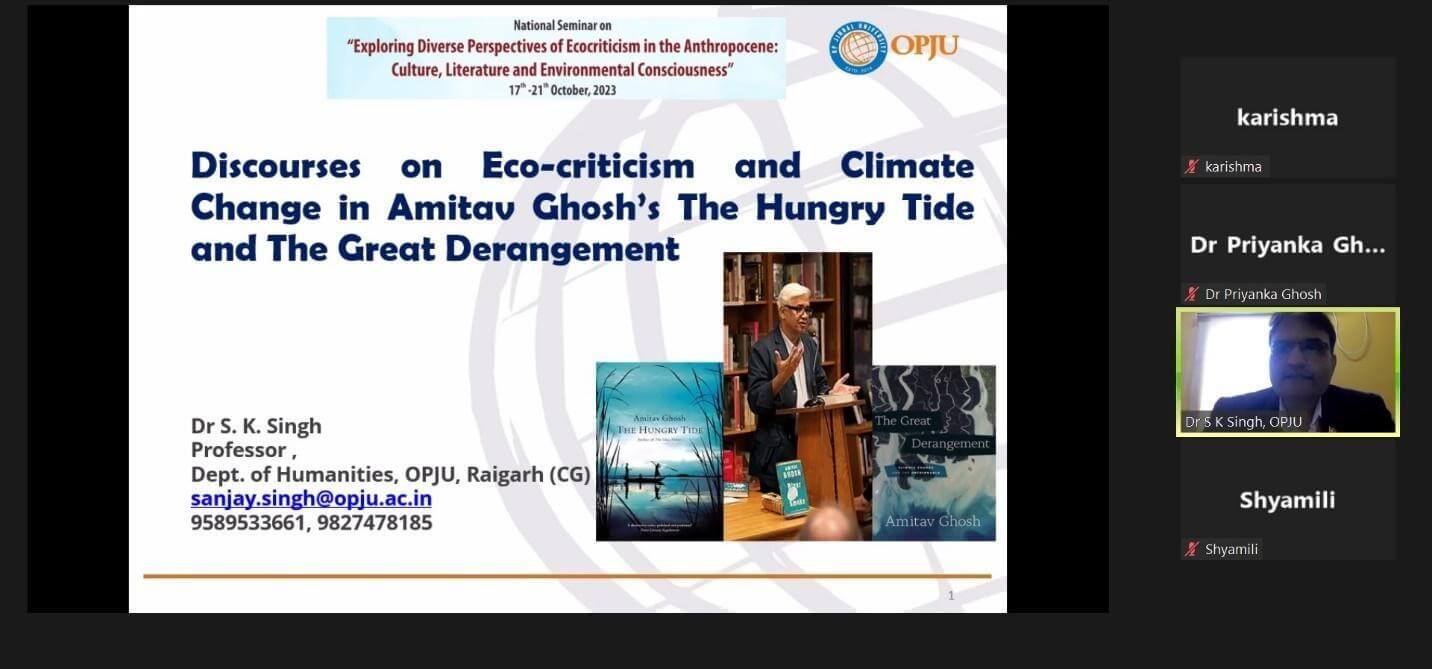
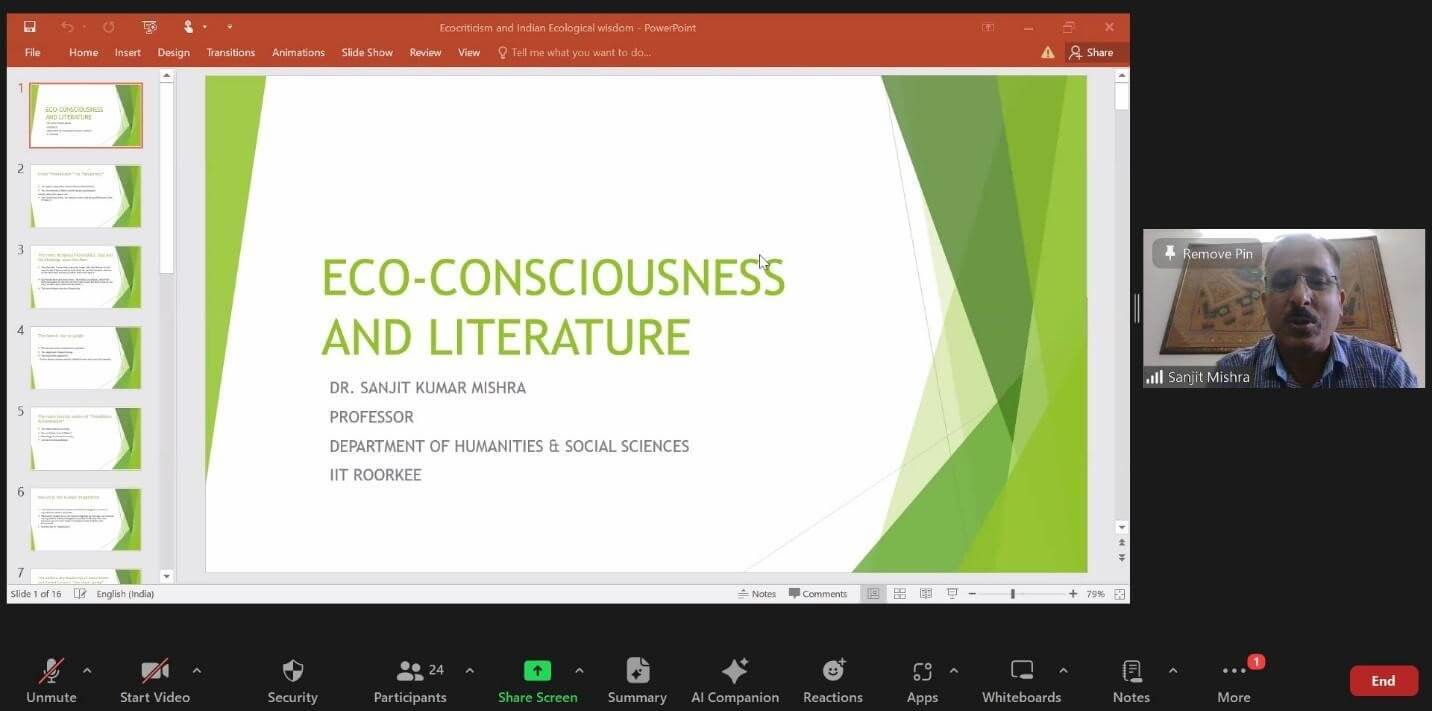
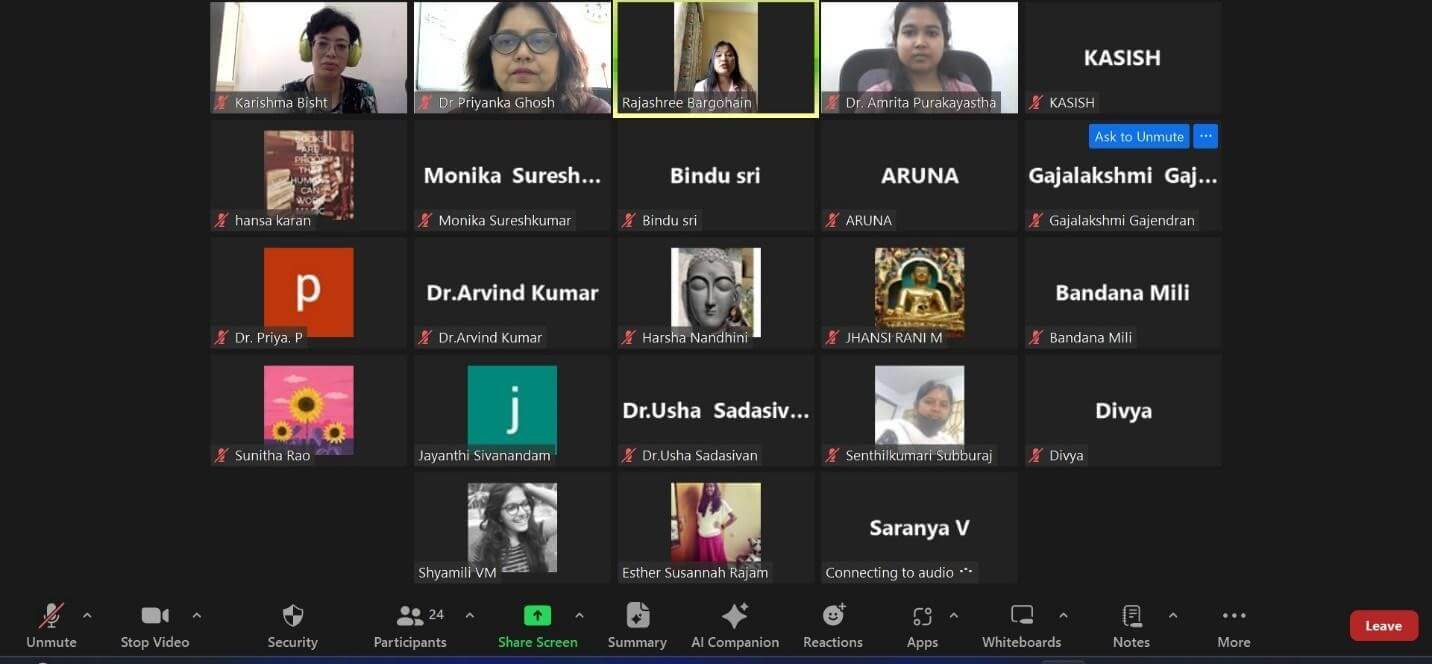
Foreign Guest Lecture: Innovation Principles for Sustainable Entrepreneurship for Least Developed and Developing Countries
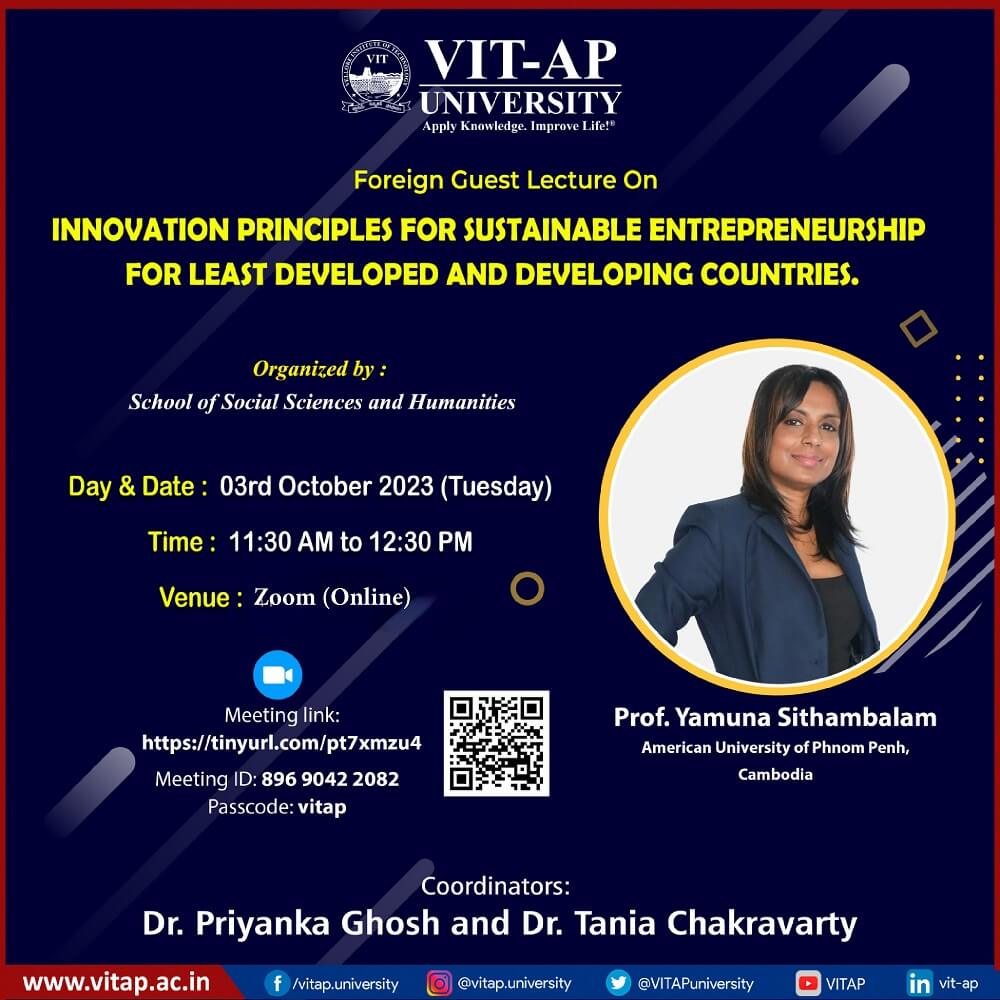
The School of Social Sciences & Humanities (VISH), VIT-AP University organized a foreign guest lecture for undergraduate students on Tuesday, 3rd October, 2023. Professor Yamuna Sithambalam, an Assistant Professor and Associate Dean in the Business Department at the American University of Phnom Penh in Cambodia, delivered a lecture titled “Innovation Principles for Sustainable Entrepreneurship for Least Developed and Developing Countries.” She began her lecture by introducing the concept of Least Developed Countries (LDCs) and Developing Countries and explained the common characteristics of both groups of countries. In her speech, she discussed the concept of sustainable development. She traced the origin of the idea of sustainable entrepreneurship dated back to 2017 when the United Nations emphasized the role of integration of entrepreneurship and innovation across all economic and social dimensions to implement seventeen sustainable development goals (SDGs). Dr. Sithambalam also discussed the pivotal role entrepreneurs play in creating sustainable businesses, especially in developing countries like Malaysia and India. Among the other roles of entrepreneurs in developing countries involve the creation of new jobs and fostering innovative thinking. Providing a historical background of Cambodia and drawing examples from the same, she elucidated how sustainable business practices differ in both developing countries and LDCs. Finally, she enlightened the students on how to build a sustainable business model. The guest lecture was coordinated by Dr. Priyanka Ghosh and Dr. Tania Chakravarty.
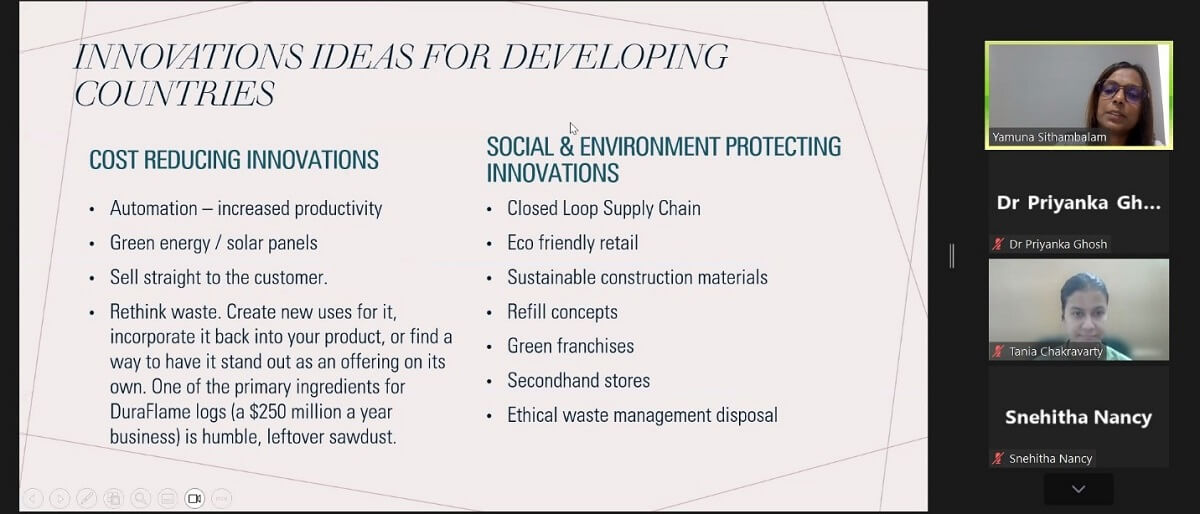
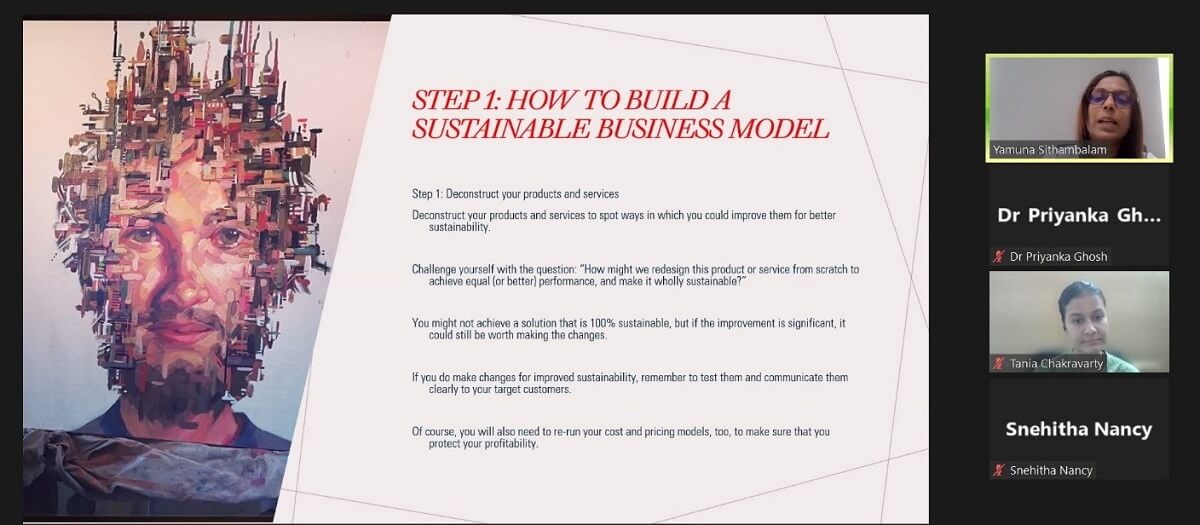
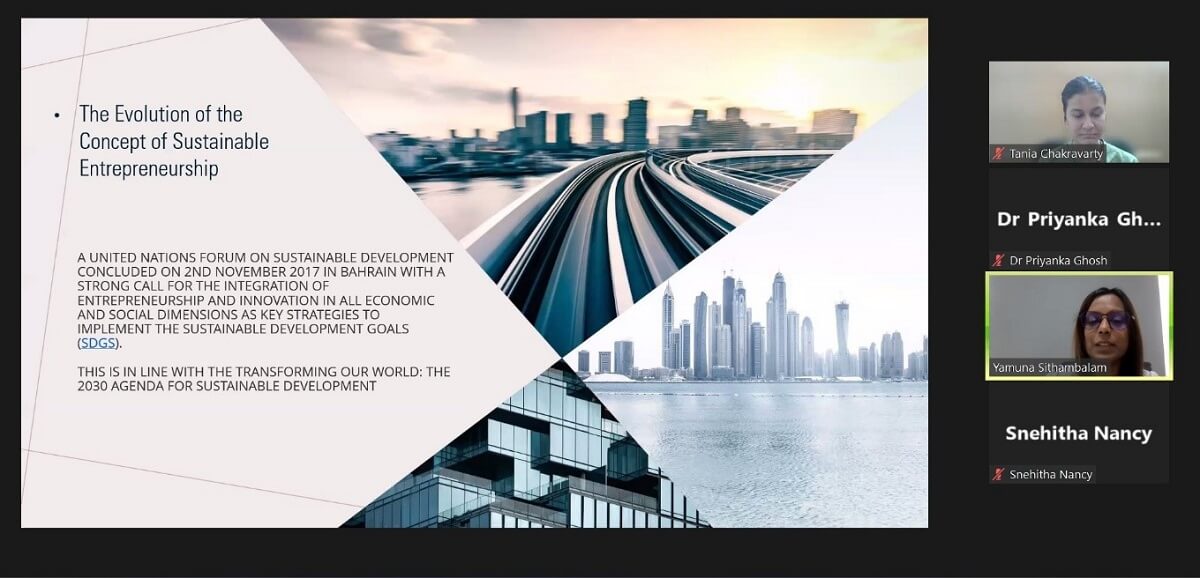
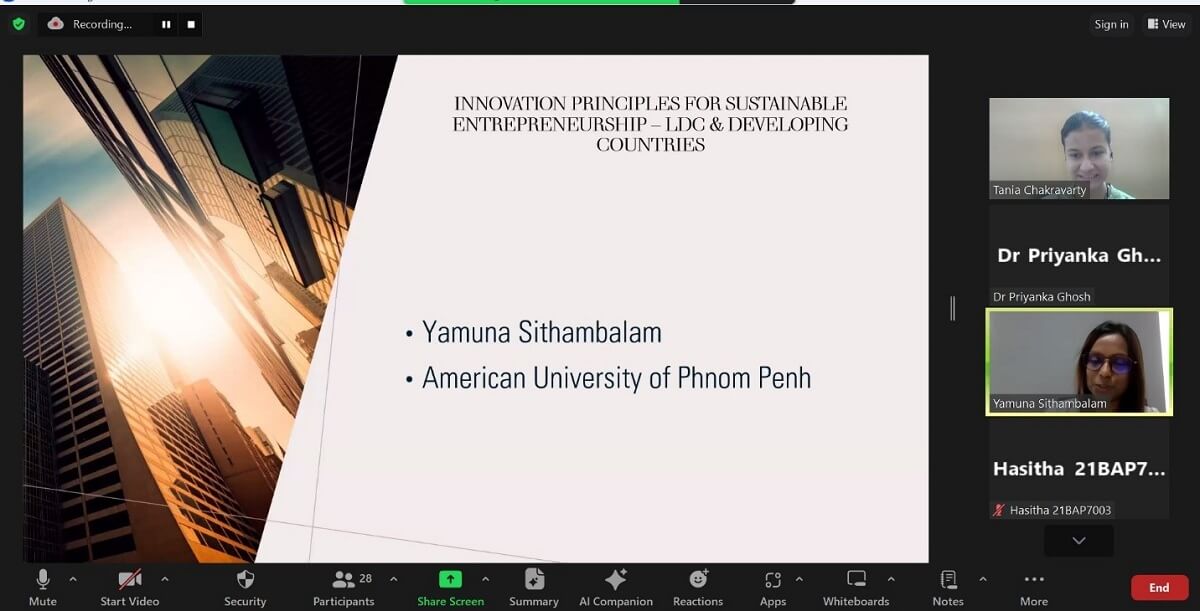
Guest Lecture for LIB1001 and HUM1104
Understanding Caste and its Impact on the Social Organisation in India
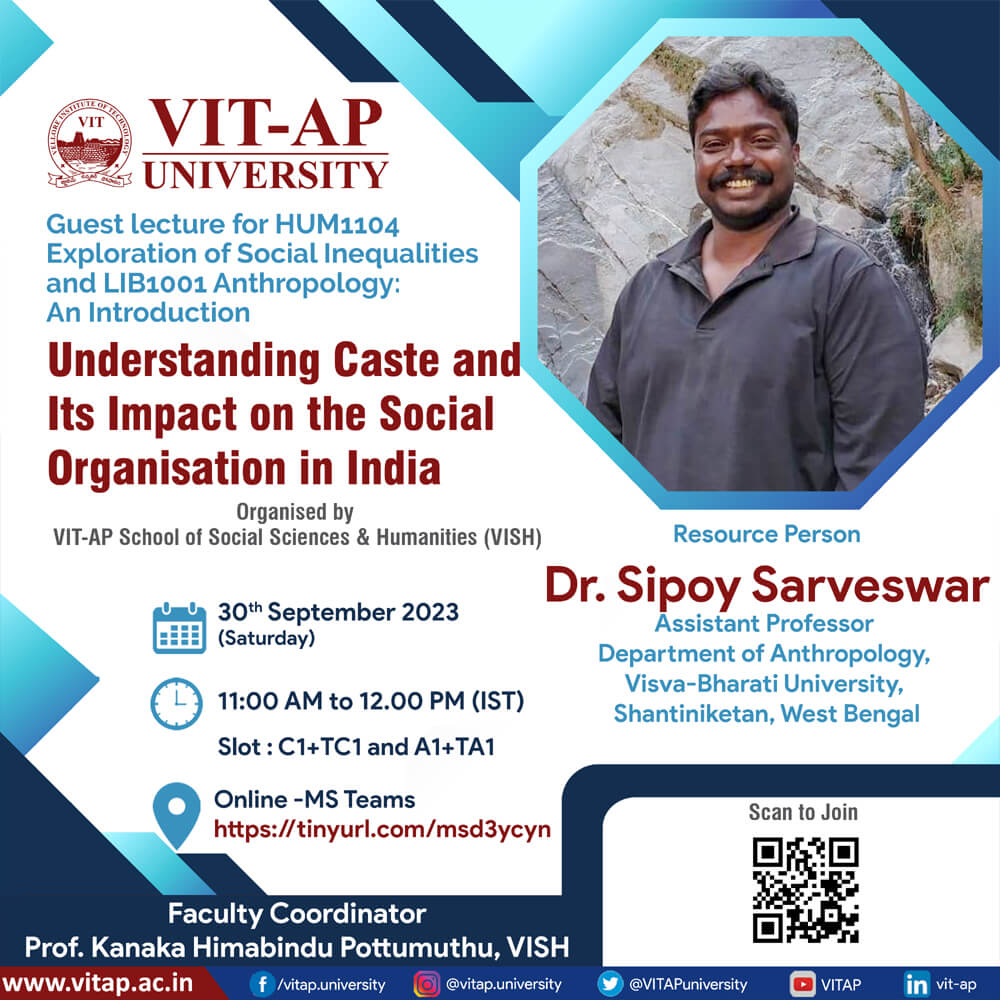
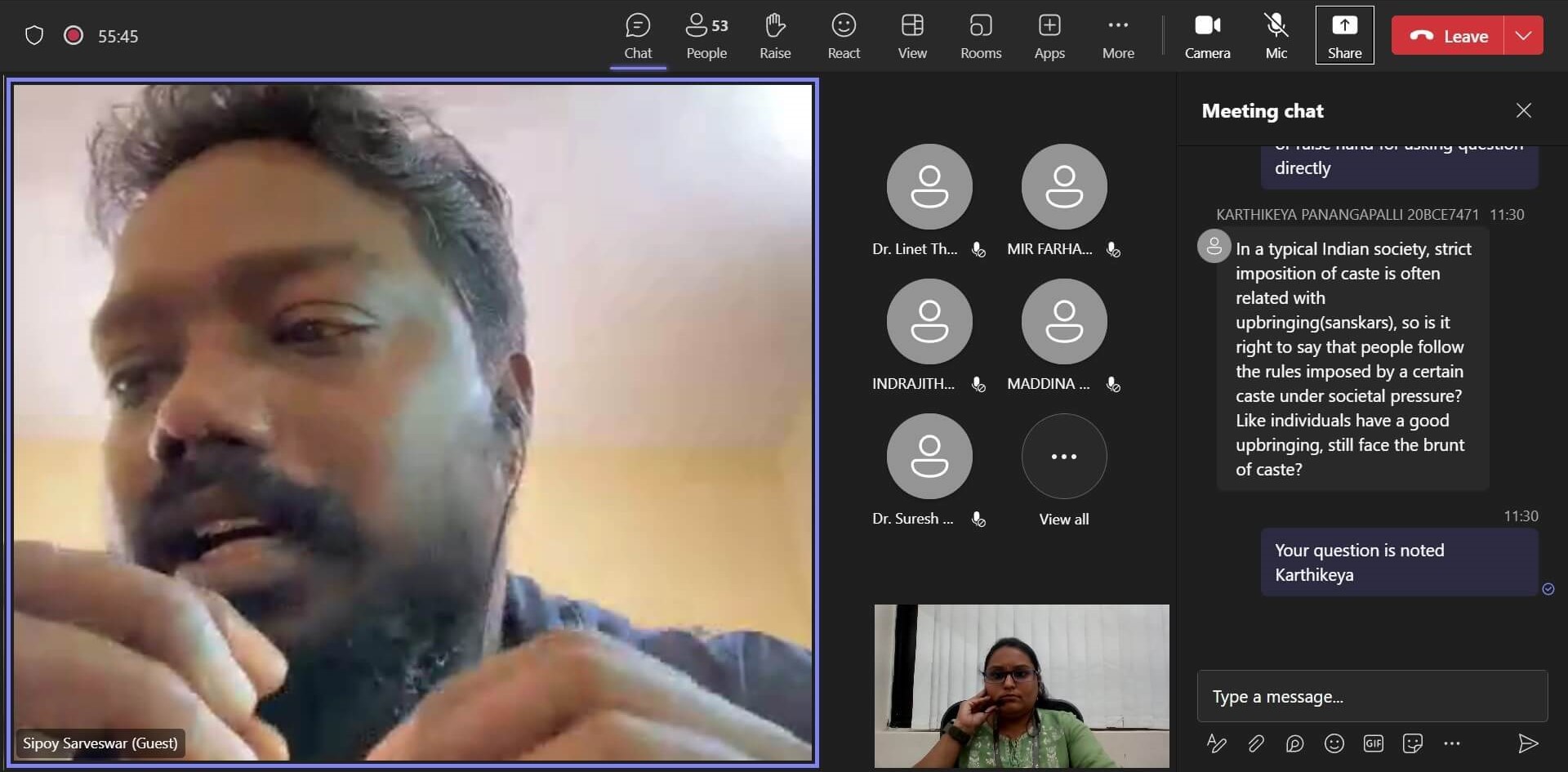
A guest lecture was organised for LIB1001 Anthropology: An Introduction and HUM1104 Exploration of Social Inequalities during the Fall Semester 2023-24. Dr. Sipoy Sarveswar, an Assistant Professor of Anthropology at Visva-Bharati, Shantiniketan, West Bengal, is a passionate researcher in understanding social organisation, kinship, etc. The talk focused on explaining the basic understanding of caste inequalities in the Indian context. He further explained the real-life examples of caste in various social aspects like politics, food, place of living, etc. Through an anthropological perspective, he explained statistical representations of inter-caste marriages, untouchability, and vegetarianism. All the students enrolled in the courses and some of the VISH faculty members attended the talk. The students actively interacted with him and asked thought provoking questions about his opinion on caste. The lecture was coordinated by Prof. Kanaka Himabindu Pottumuthu.
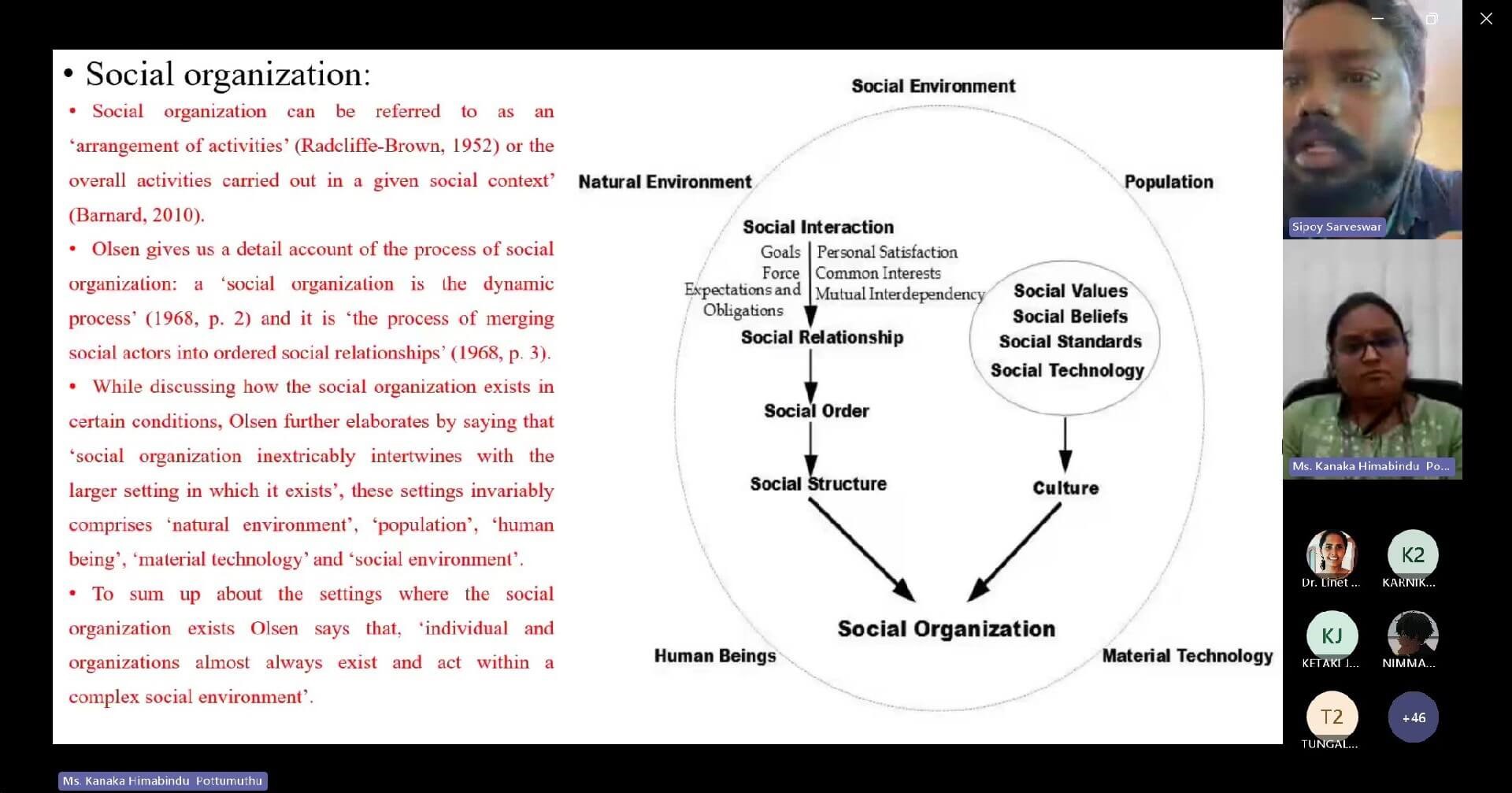
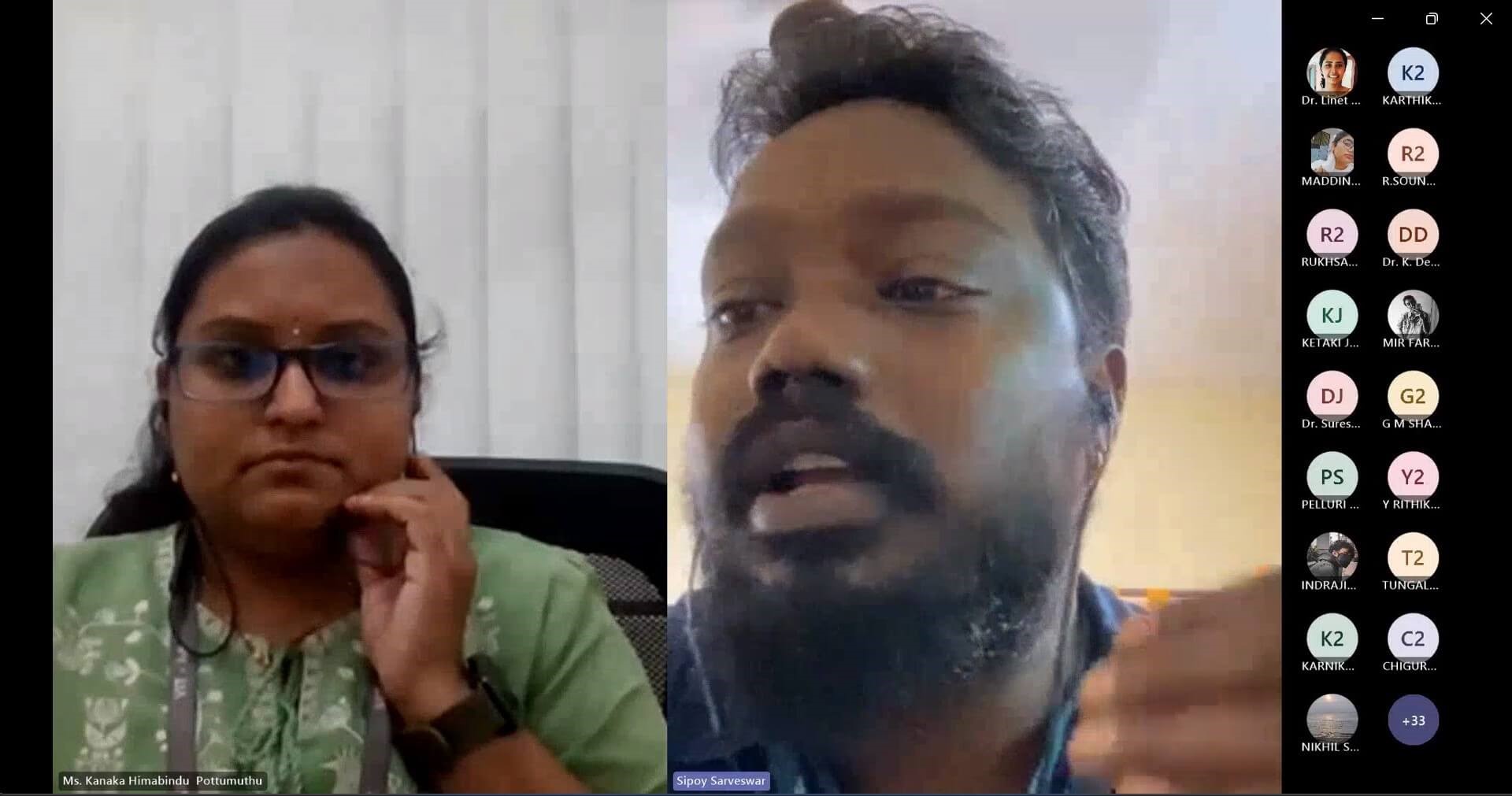
Guest Lecture: Intersecting Paths: Psychology and Engineering
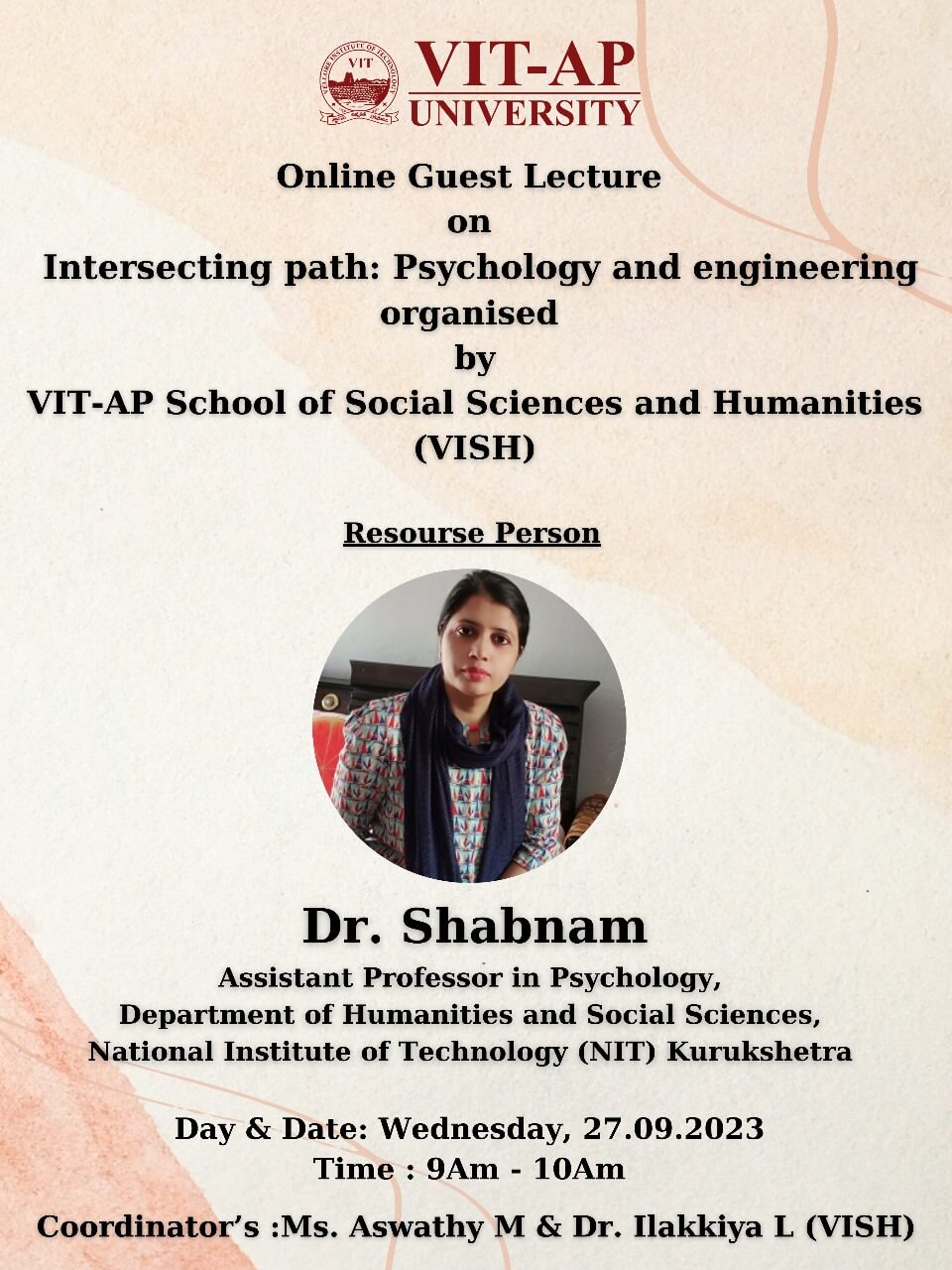
An online guest lecture was conducted for the ‘Introduction to Psychology’ cohort students on 27th September 2023, from 9 am to 10 am. The resource person for the event was Dr. Shabnam, an Assistant Professor in Psychology at the Department of Humanities and Social Sciences, NIT, Kurukshetra. This guest lecture aimed to explore the intersection of psychology and engineering, highlighting the relevance of psychological principles in engineering practices and projects. Dr. Shabnam explored many areas, including psychology in Engineering Design, Human-Machine Interaction, Team Dynamics, and Collaboration. She discussed how human factors and ergonomics influence product design, designing for user experience and usability, and the psychology behind effective human-machine interfaces, as well as user-centered design principles. The lecture also covered real-world examples of successful and unsuccessful interface designs. Later on, there was a discussion and a Q&A session with students, with almost 60 students attending the event. The event was coordinated by Dr. Ilakkiya L and Dr. Aswathy M.
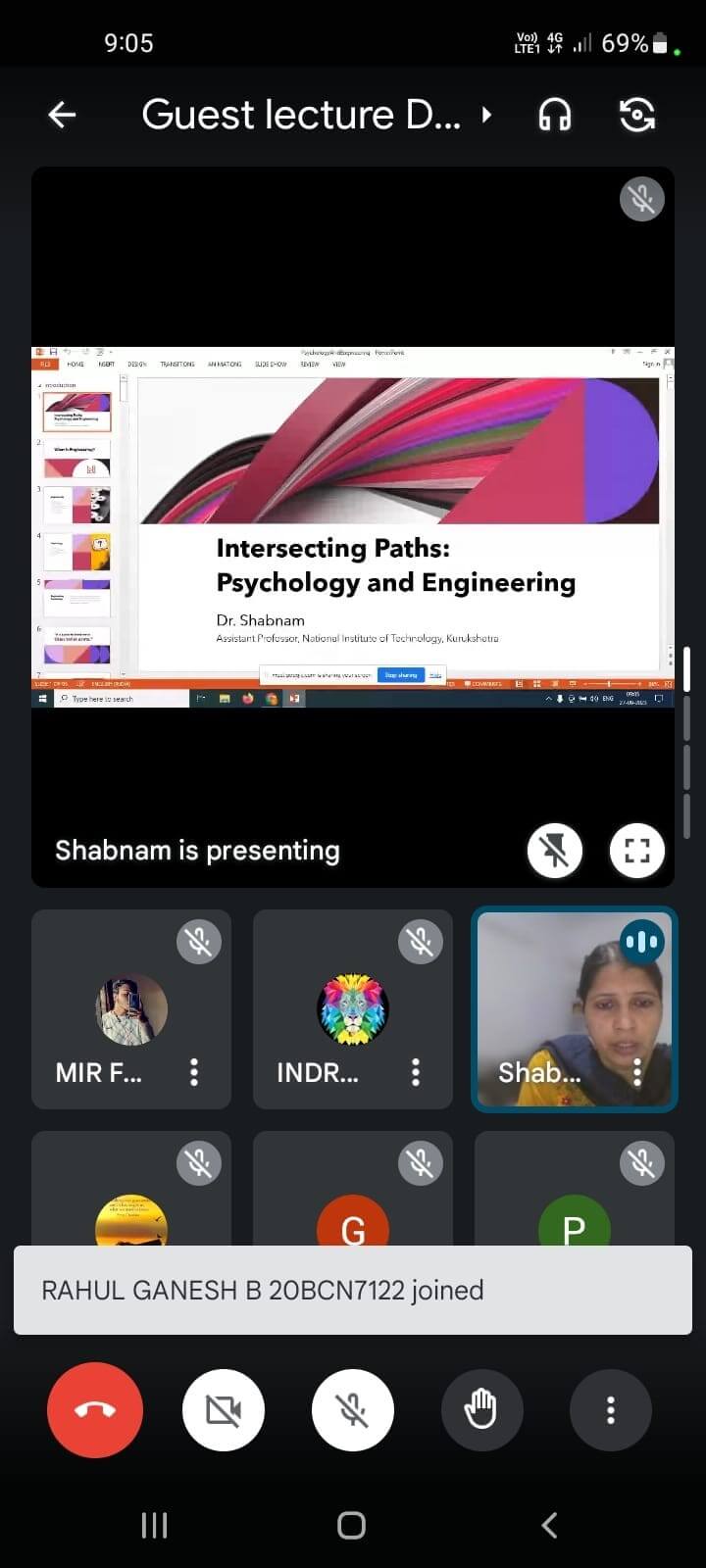
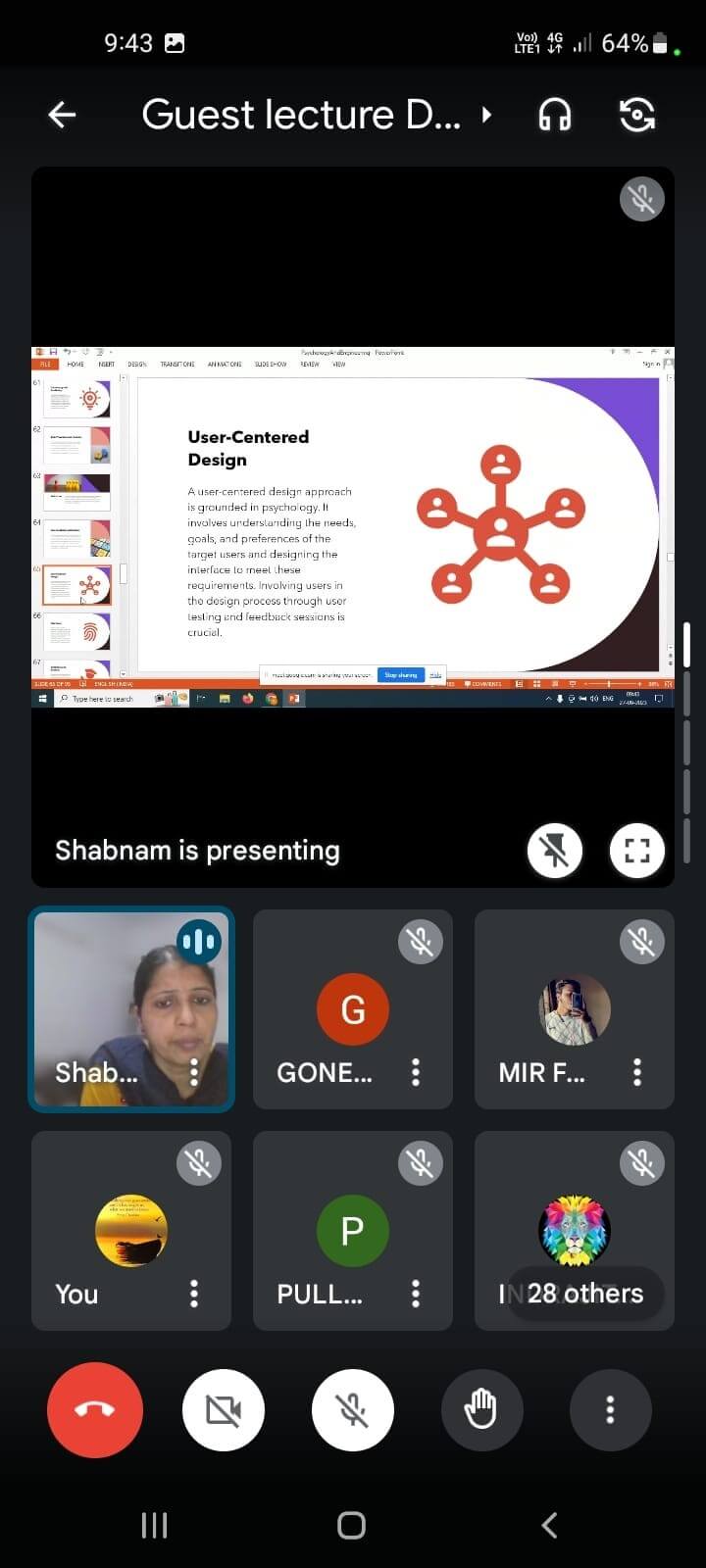
Workshop: Effective Manuscript Writing
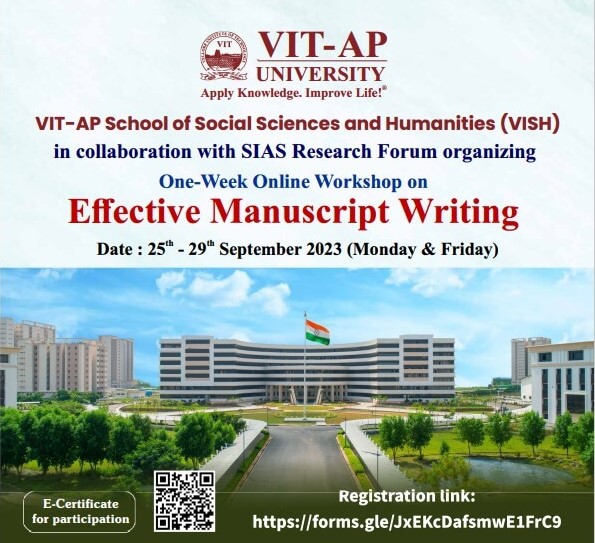
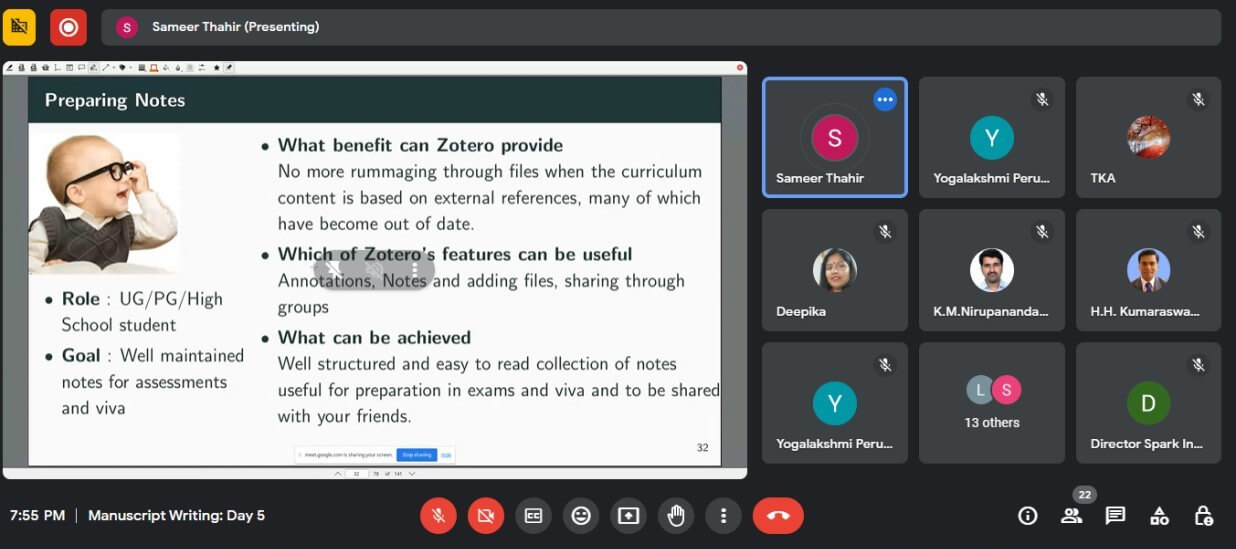
From September 25th to 29th, 2023 (Monday and Friday), the School of Humanities and Social Sciences (VISH), in collaboration with the SIAS Research Forum, held a workshop on academic writing for researchers from Indian colleges and universities. The primary aim of this workshop is to equip participants with the essential skills and knowledge required to craft compelling and well-structured manuscripts. By providing expert guidance and fostering interactive learning, the workshop aims to empower scholars and writers in enhancing their scholarly communication abilities. It offers a valuable opportunity for individuals, from novices to seasoned authors, to refine their manuscript writing skills and effectively contribute to their respective fields. The workshop was conducted in a physical mode at [insert location, if applicable] and was attended by approximately 70 faculty members, scholars, and students from Indian universities.
Participants immersed themselves in in-depth discussions, grasped essential techniques for manuscript structuring, and received valuable feedback on their writing. The workshop provided a platform for scholars and writers to refine their scholarly communication skills. Through interactive sessions, they delved into the intricacies of crafting compelling manuscripts. This event facilitated the honing of their writing abilities, ensuring that they can make more impactful contributions to their respective fields by presenting their research and insights in a well-structured and engaging manner.
The workshop concluded with participants feeling more confident and equipped with enhanced manuscript writing skills, ready to apply their new found knowledge in their academic and professional endeavours. The workshop was coordinated by Dr. Sudesh Manger, Dr. Raghavi R, and SIAS Research Forum members, who served as the organizing team.
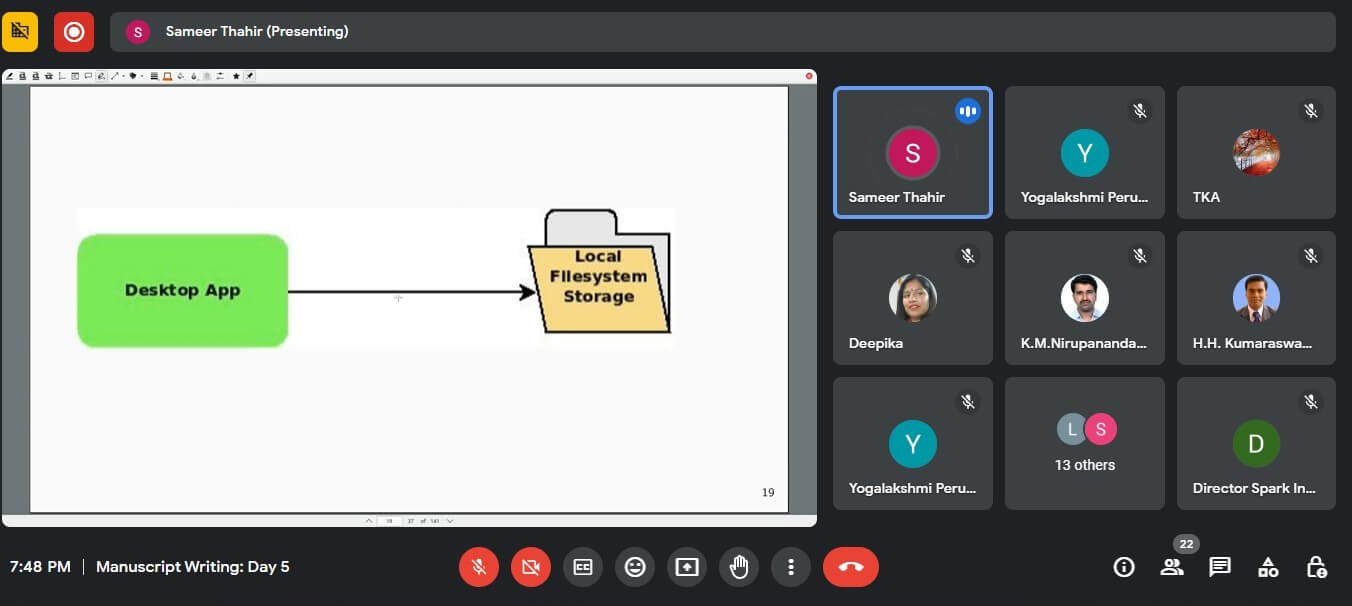
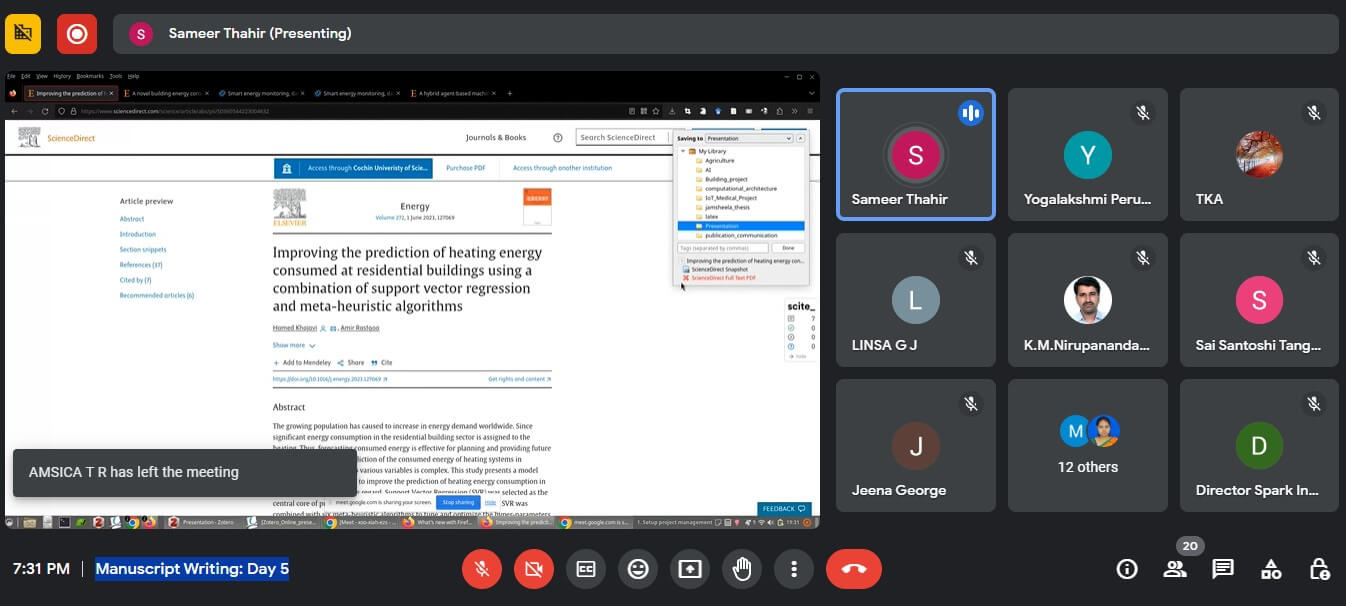
Workshop Five-Day Academic Writing Workshop for Research Scholars of VIT-AP (12-09-2023 to 16-09-2023)
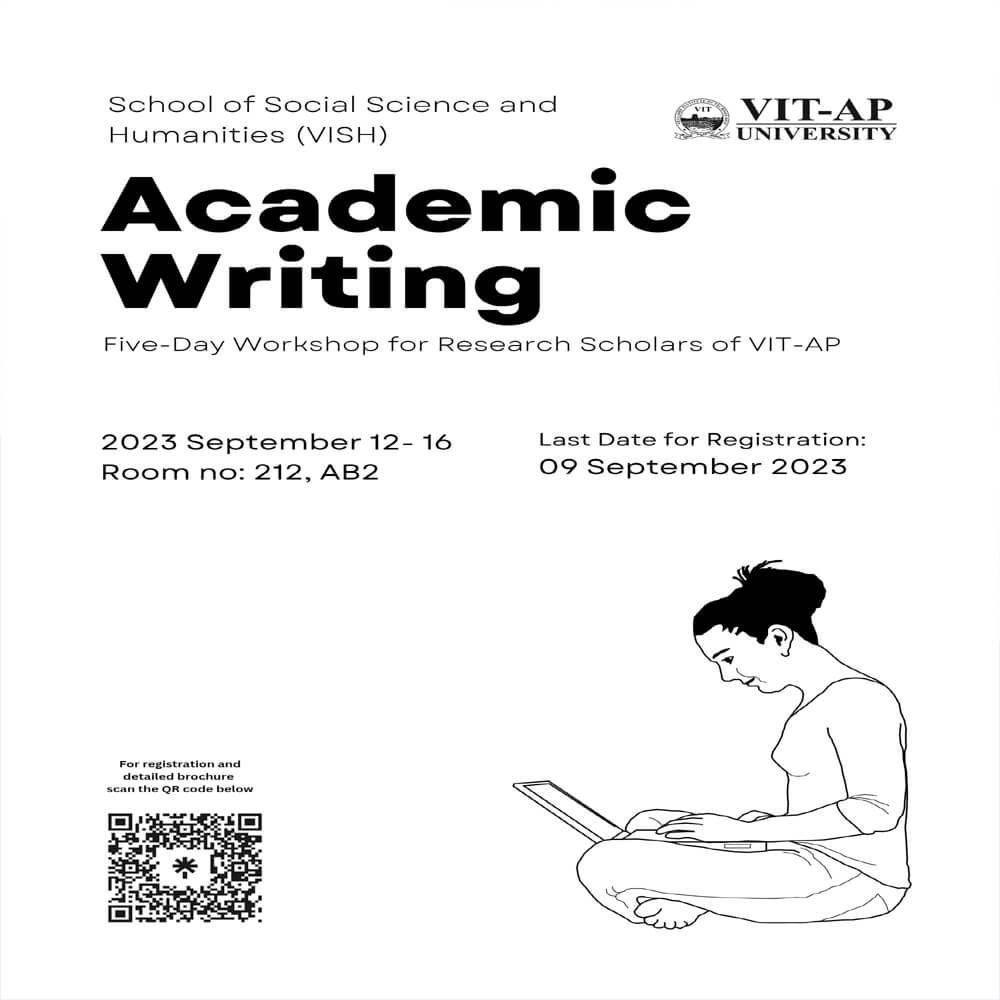
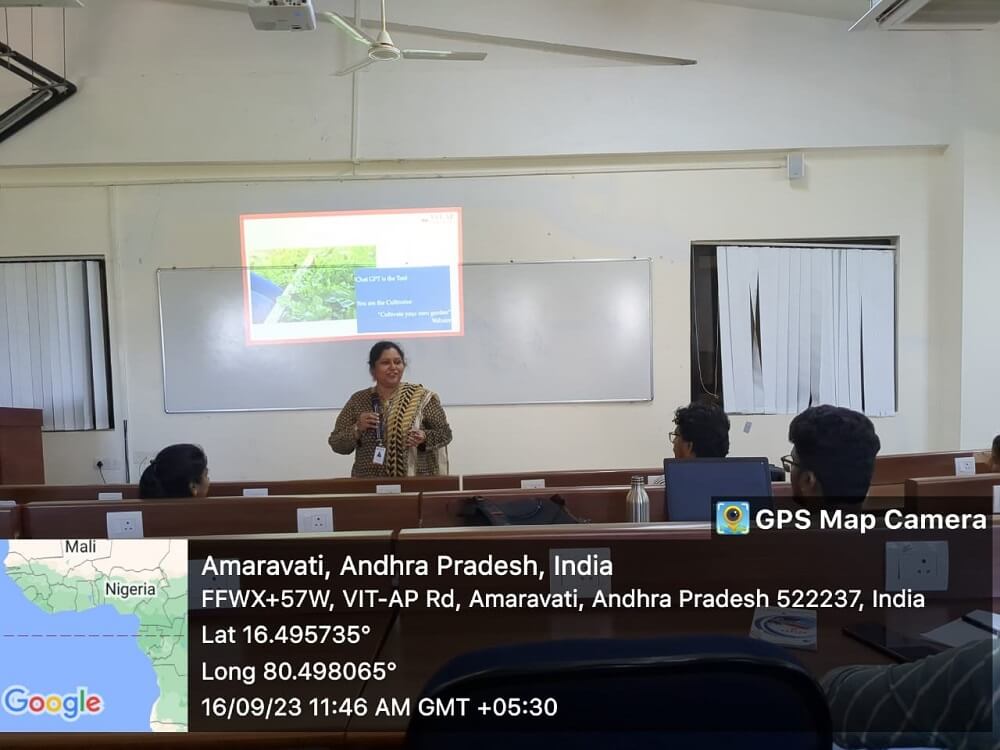
From September 12th to 16th, 2023, the School of Humanities and Social Sciences (VISH) held a workshop on academic writing for research scholars at the university. The workshop aimed to enhance the language skills and writing abilities of scholars, familiarize them with the standards and conventions of their disciplines, and enable them to demonstrate their credibility and authority as researchers. The workshop was conducted in physical mode and attended by approximately 60 scholars from various schools, including the School of Advanced Sciences, the School of Computer Science Engineering, the School of Electronics and Engineering, and the School of Social Sciences and Humanities.
The workshop began with a welcome address by Dr. Thahiya Afzal, the Associate Dean of the School. The workshop was divided into three sessions based on specializations: engineering, science, and the humanities. Each session was chaired by a faculty member with expertise in the respective field: Dr. Raghavi R. K., Dr. Amar Ramesh Wayal, and Dr. Pragya Sengupta. The fifteen faculty members from the School of Social Sciences and Humanities served as resource persons for each session. The resource persons discussed topics such as research ethics, mechanics of writing, research proposals, AI, and qualitative analysis.
The workshop was coordinated by Dr. Thahiya Afzal and Dr. Raghavi R. K. Dr. Anupama A. P., Dr. Amar Ramesh Wayal, Dr. Aby Abraham, and Dr. Pragya Sen Gupta served as the organising team members. The session ended with the school dean reiterating the significance of academic writing among research scholars. The workshop was a significant event for research scholars, as it provided them with a platform to enhance their writing skills and develop their knowledge of the conventions and standards of their respective disciplines. The scholars from various schools benefited from the workshop as it helped them demonstrate their authority and credibility as researchers. The workshop was a successful initiative by VISH to promote language enhancement and academic writing among research scholars.
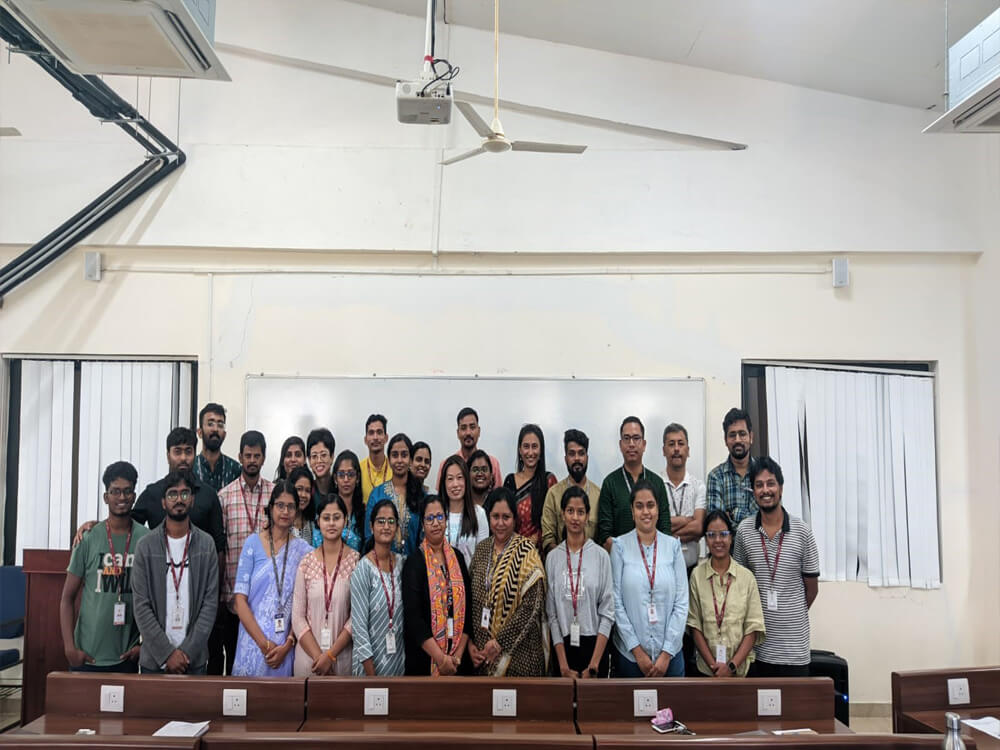
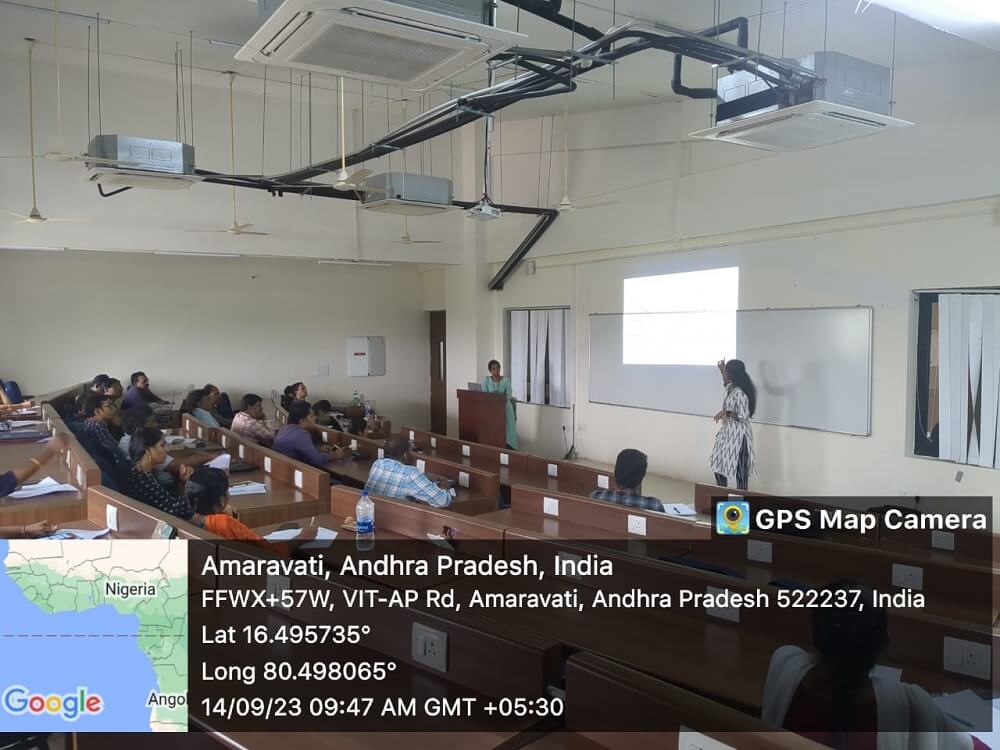
Industrial Visit – ASR Natural Farms, Kunchanapalli, Guntur District
Day & Date: Saturday, 2nd September, 2023
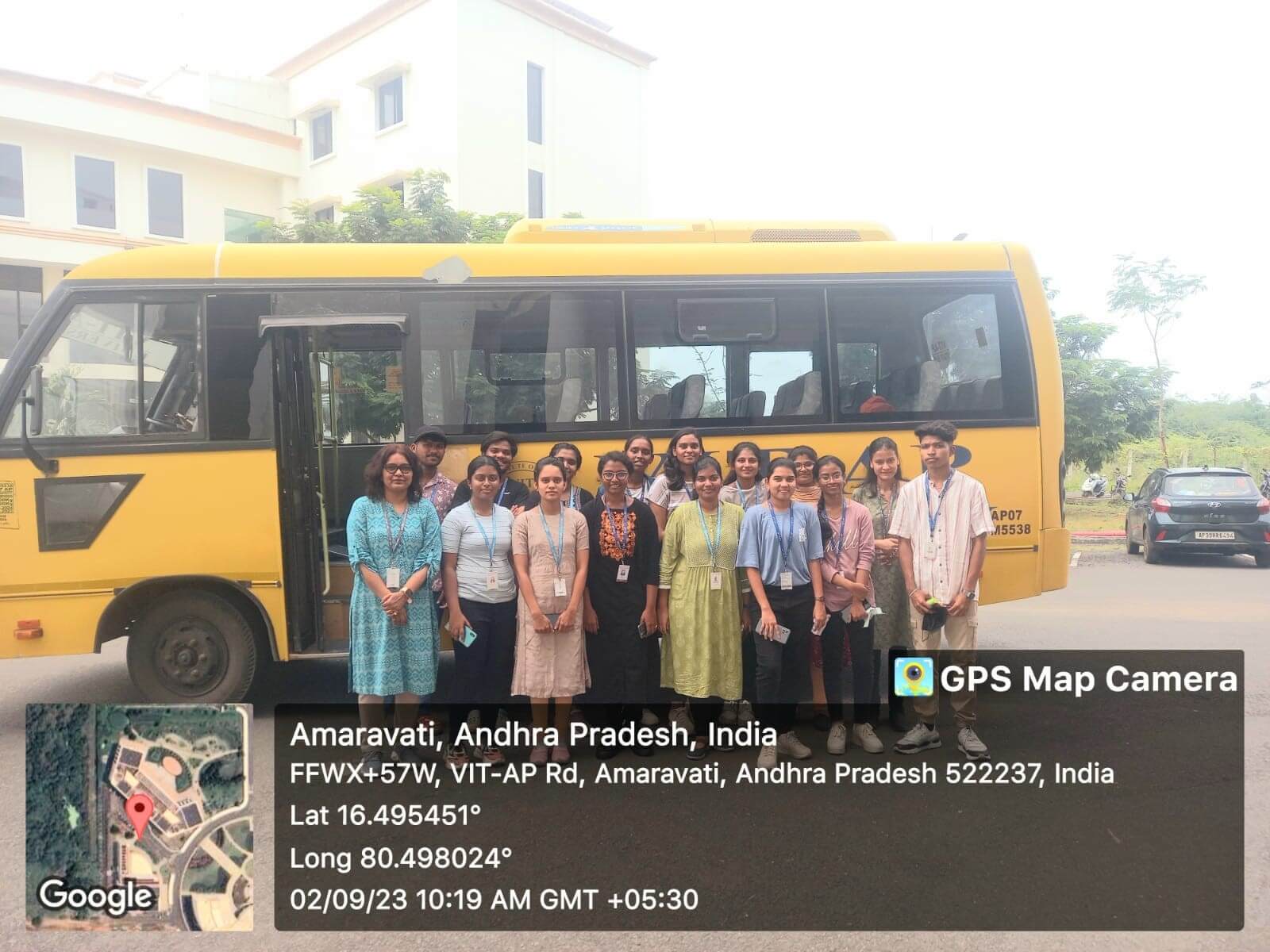
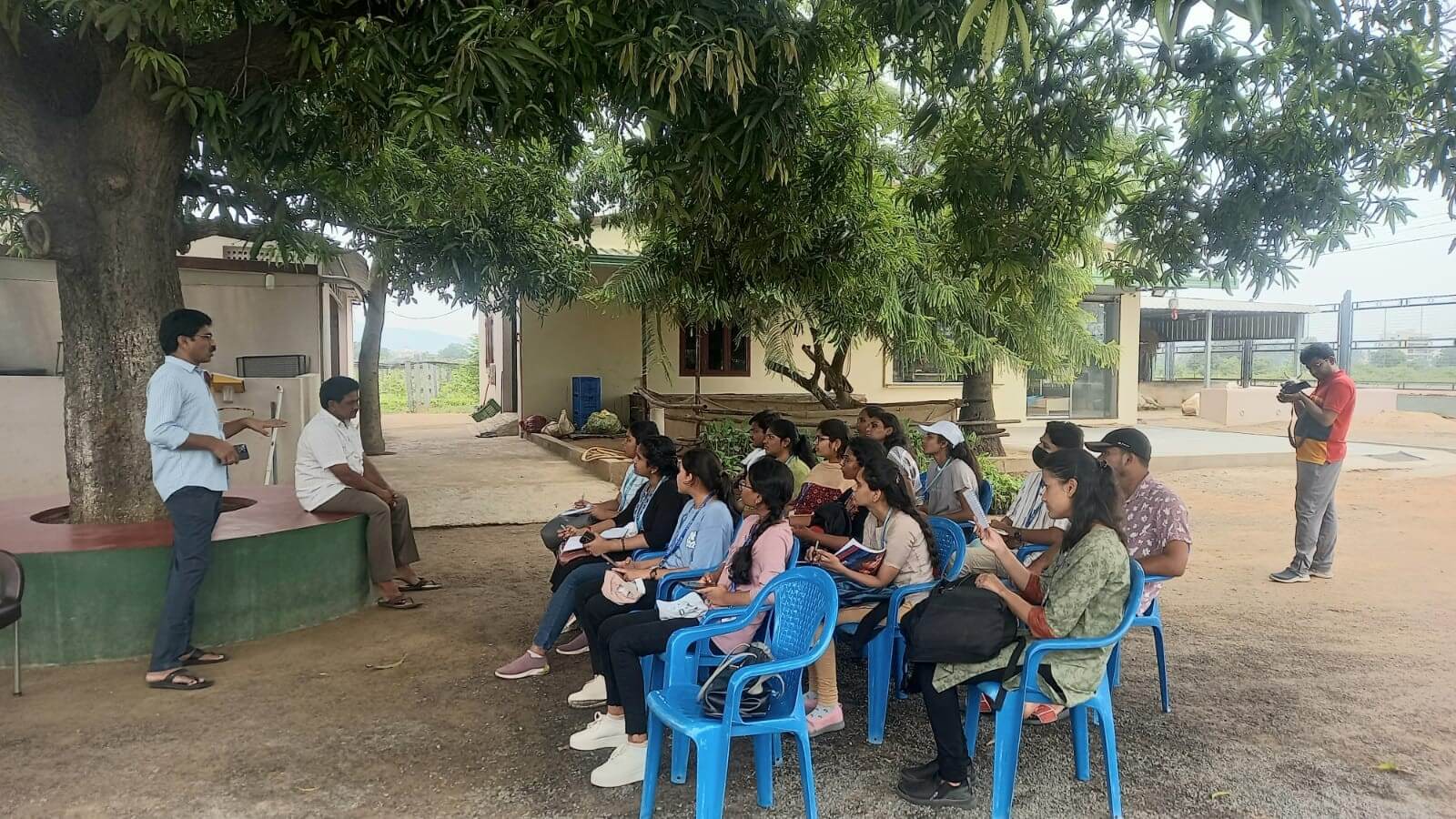
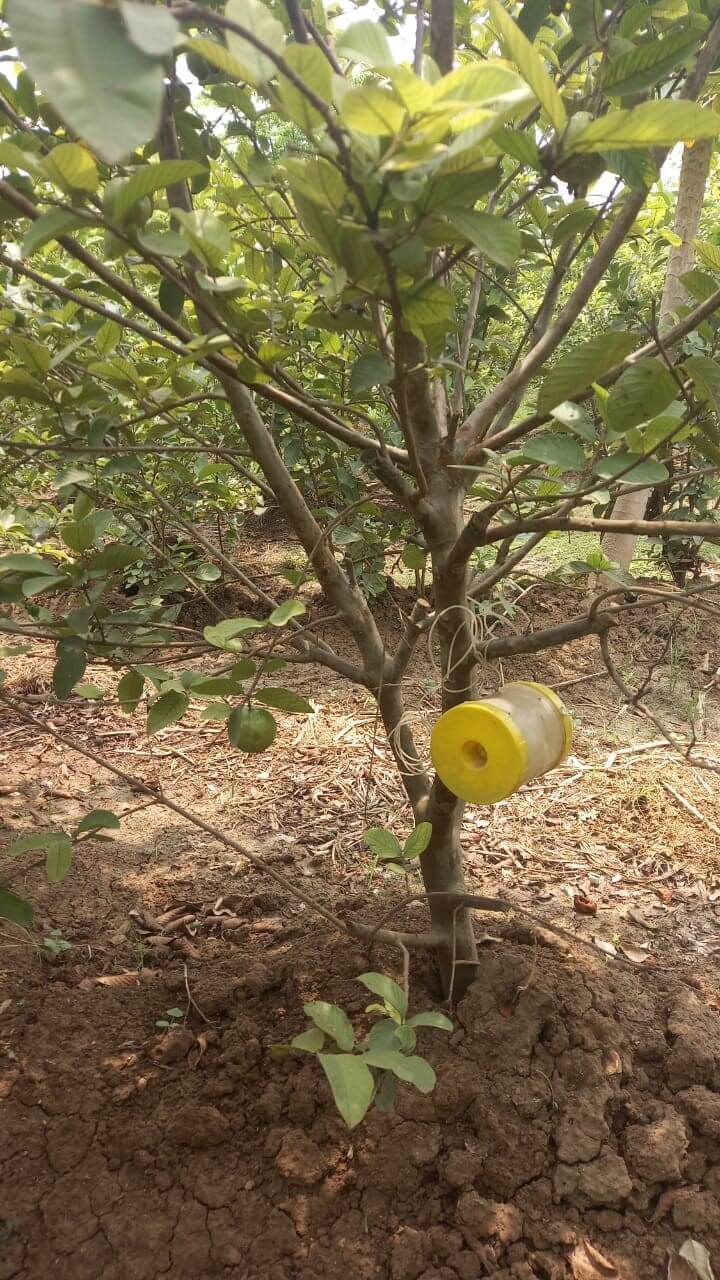
A one-day industrial visit to ASR Natural Farms was conducted on September 2, 2023 (Saturday) for B.A./M.A. 2nd year Public Service students. Fourteen students and two faculty members participated in the industrial visit. This industrial visit aimed to understand the fundamental processes of organic farming. Mr. Sambi Reddy and Mr. Veera Reddy, who own the organic farm at Kunchanapalli, organized an interactive session with students to explain the significance of organic farming in protecting the soil from degradation. They informed us that ASR Natural Farms produces 30-40 varieties of leafy vegetables and 3-4 types of fruits throughout the year. They also explained the environmental and nutritional benefits of organic farming. Mr. Veera Reddy provided a tour of the entire farm, explaining the organic farming processes, including multi-cropping, natural ways of maintaining soil fertility, and pest control without pesticides. Students also learned about the challenges of organic farming, such as soil conversion, the availability of labour for certain types of work like removing weeds from the field, and preparation of eco-friendly fertilizers and pesticides. The industrial visit was organized by Dr. Priyanka Ghosh, Dr. Tania Chakravarty, and Dr. Suresh Jagannadham.
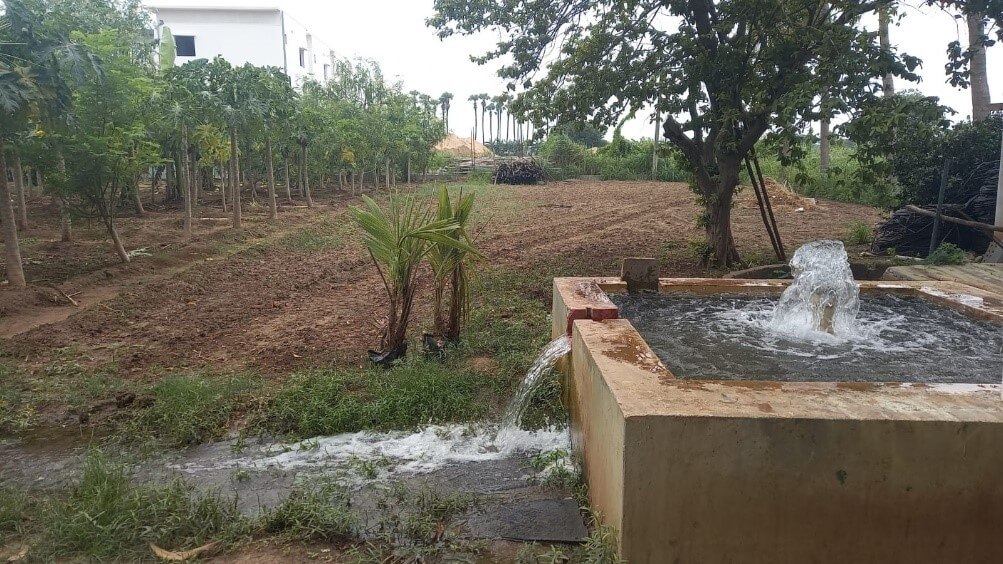
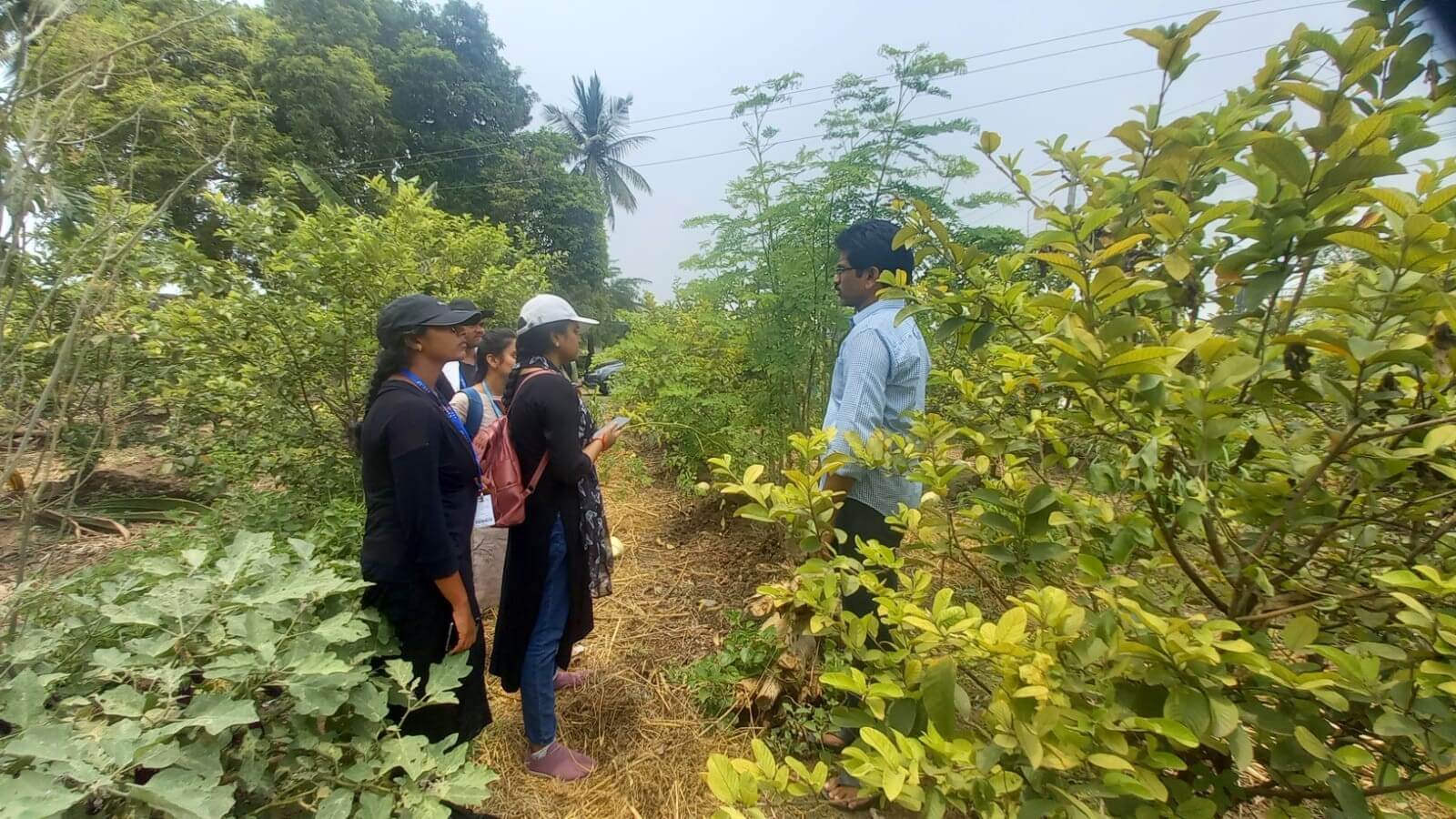
Two-Day International Virtual Conference on Rethinking Disability Across Disciplines:
New Directions and Emerging Trends
The School of Humanities and Social Sciences (VISH) recently hosted an International Conference on Disability Studies from August 10th to 11th, 2023. The event, conducted virtually, brought together a diverse array of scholars, researchers, professors, and experts from different parts of the country, representing various multidisciplinary fields. The conference aimed to delve into the complex dimensions of disability, challenge existing stereotypes, and advocate for inclusivity and accessibility across society.
Commencing on August 10th, the Inauguration Ceremony set the tone for the conference’s intellectual pursuits. Dr. Karishma Bisht, the Master of Ceremonies, commenced proceedings by inviting Dr. Thahiya Afzal, Associate Dean, VISH, VIT-AP, for the welcome address. This was followed by the inaugural address by Dr. S.V. Kota Reddy, Vice Chancellor of VIT AP University. The Honorable Justice A. Muhammed Mustaque, the chief guest, emphasized the importance of fostering an inclusive mindset within the social fabric to promote collective growth. Dr. Jagadish Mudiganti, the Registrar of VIT-AP University, also addressed the attendees, with Dr. Ankita Swetaparna expressing gratitude through the vote of thanks.
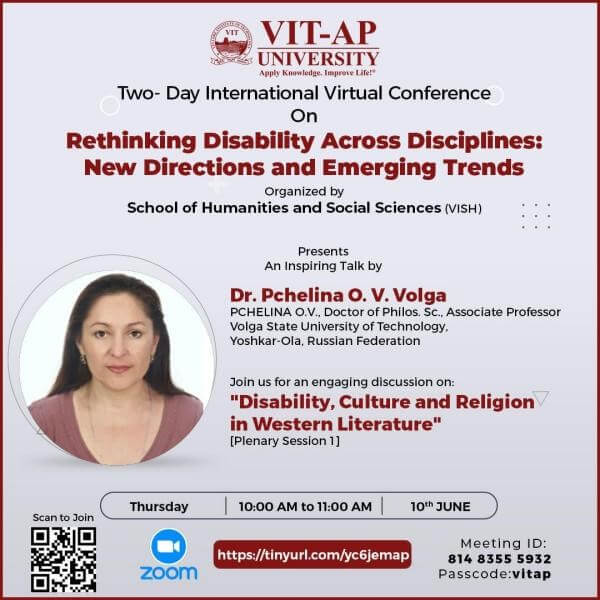
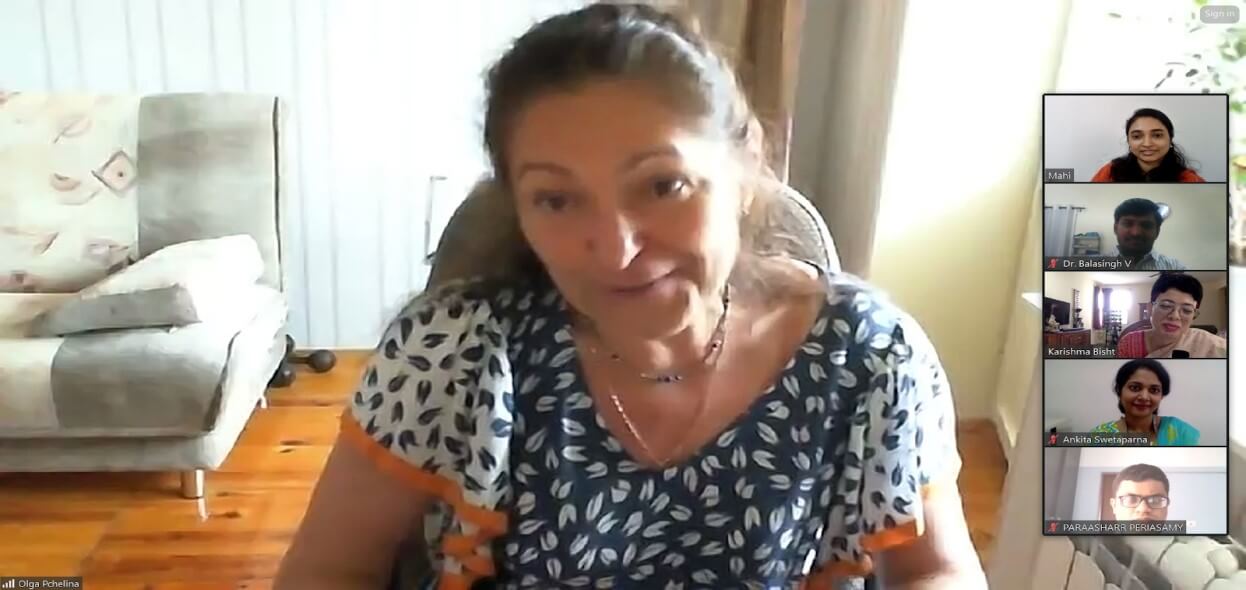
The conference’s first plenary session featured Dr. Pchelina O. from Volga State University of Technology, who spoke on “Disability, Culture, and Religion in Western Literature.” Her insights shed light on Russian cultural practices that sensitize the public and counter social taboos surrounding disability. The subsequent parallel sessions, themed around “Literature and Disability,” continued to engage participants.
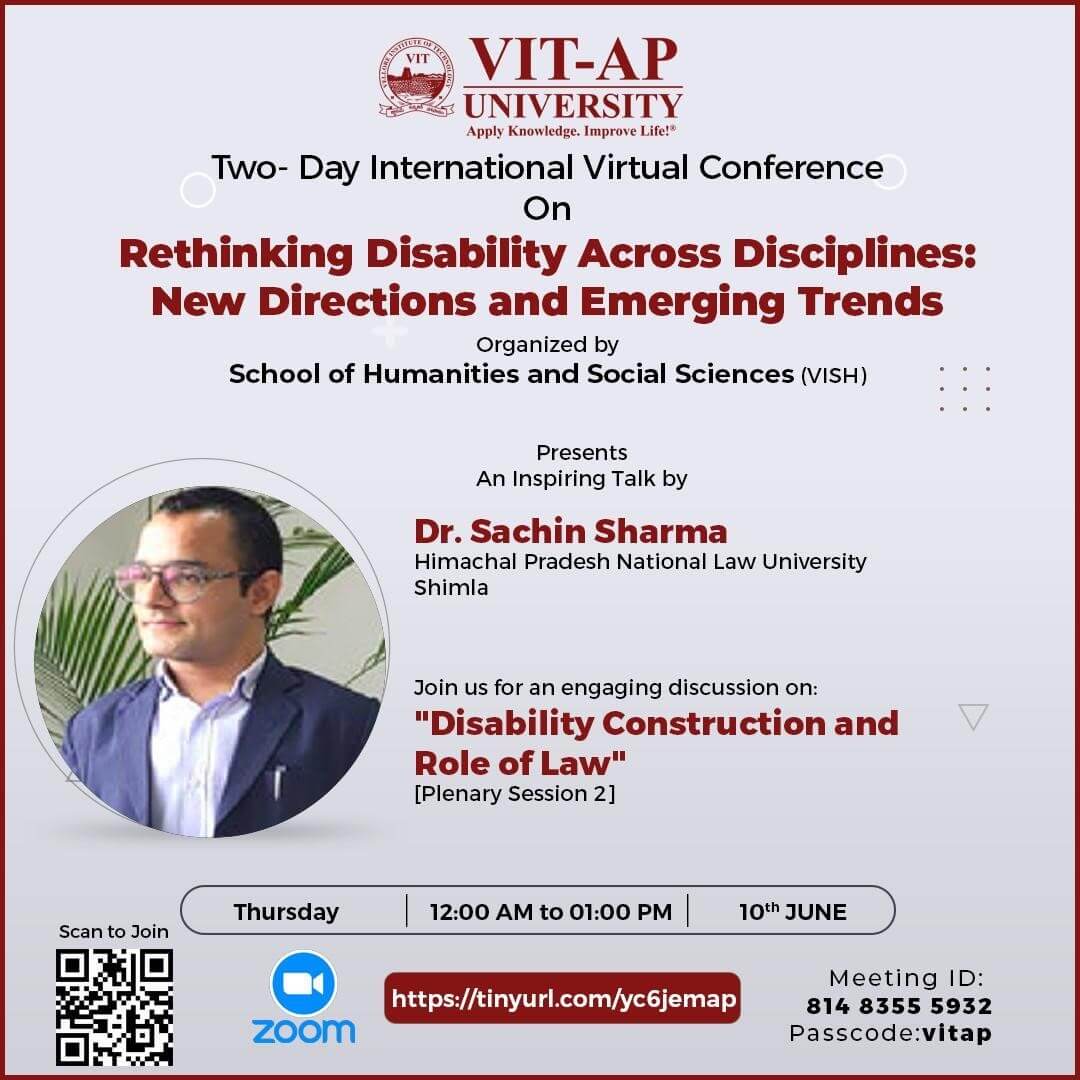
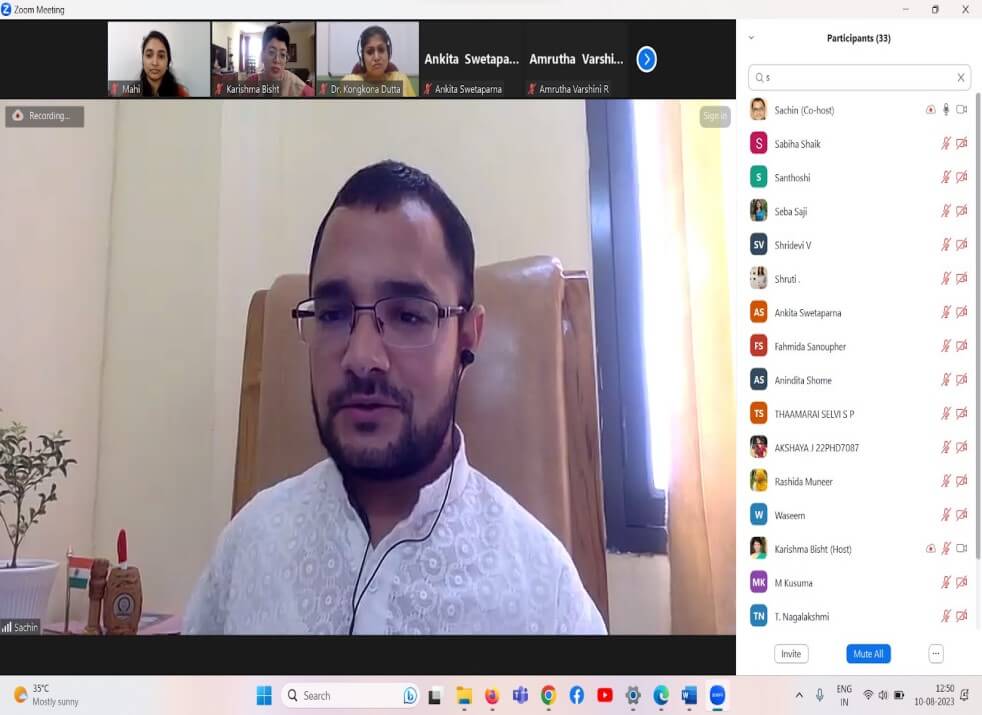
The second plenary session, held from 12:00 PM to 1:00 PM, featured Dr. Sachin Sharma from Himachal Pradesh National Law University, Shimla, discussing “Disability Construction and the Role of Law.” The ensuing sessions, “Disability and Law” and “Disability in Popular Culture and Media,” delved into various facets of the subject matter.
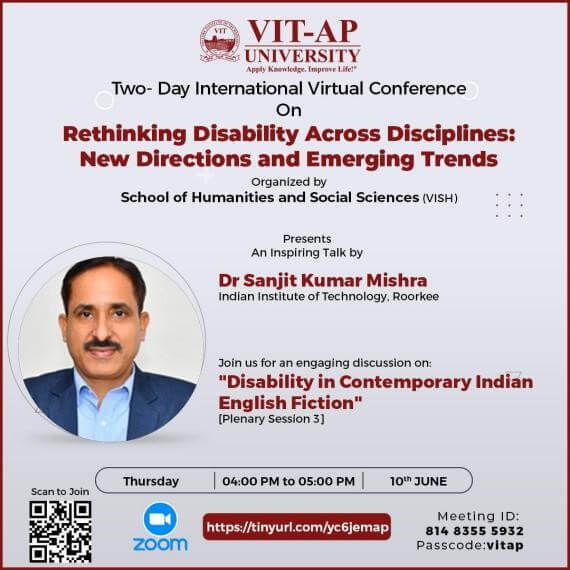
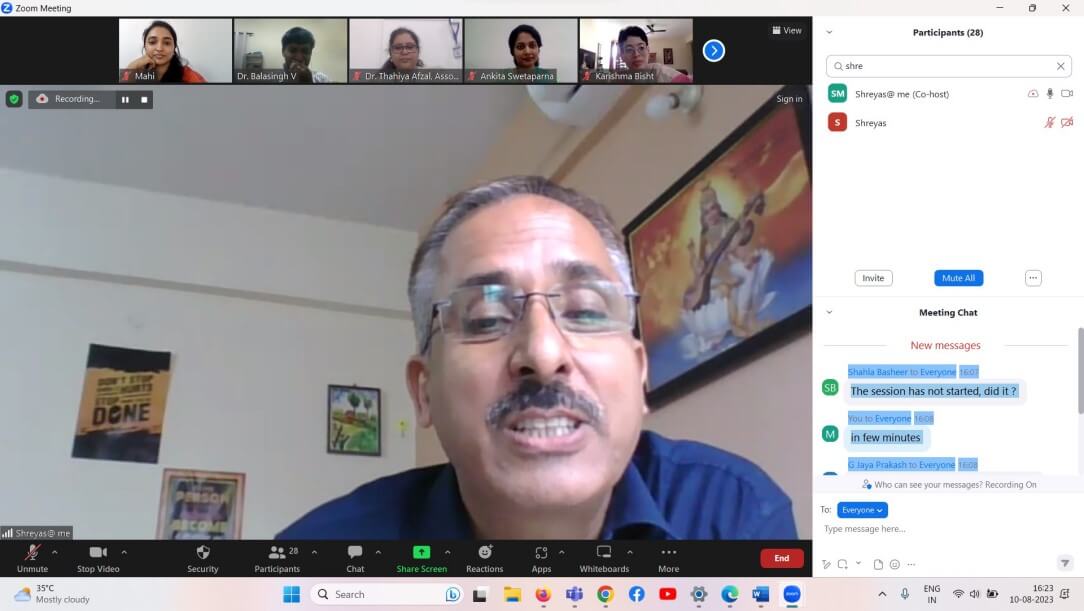
Dr. Sanjit Kumar Mishra from the Indian Institute of Technology, Roorkee, delivered the third plenary session on “Disability in Contemporary Indian English Fiction”. The second day of the conference commenced with Dr. Tariq Khan from the Central University of Indian Language (CIIL) presenting a plenary address on “Disability from the Vantage Points of Language Sciences”. This was followed by a sequence of presentation sessions covering diverse themes within disability studies. “Disability and Language,” “Disability and Health, Polity, and Economy in India,” and “Gender and Disability” were the focal points of these sessions, each chaired by esteemed professors.
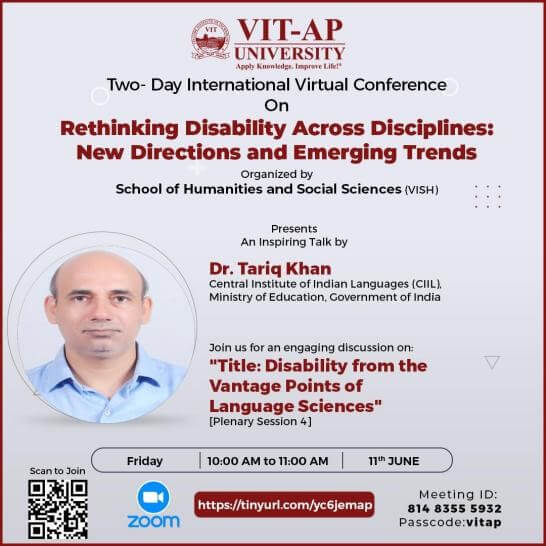
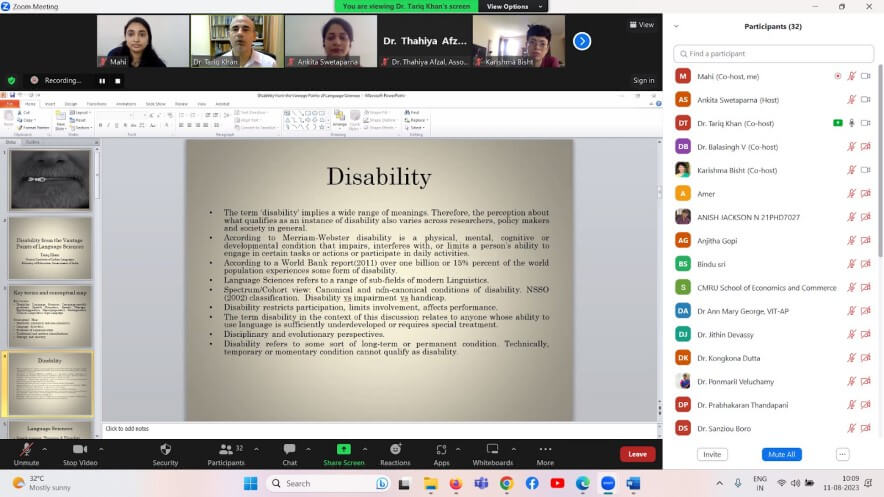
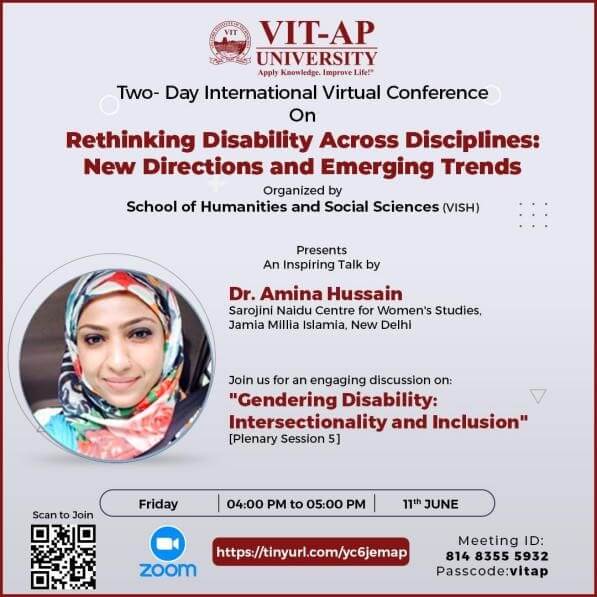
The conference’s culmination involved a plenary address by Dr. Amina Hussain from Sarojini Naidu Centre for Women’s Studies, Jamia Millia Islamia, New Delhi. Her topic, “Gendering Disability: Intersectionality and Inclusion”, added an essential layer to the discussions. The valedictory address by Dr. Mahi Thavarathu reflected on the conference’s accomplishments. It highlighted the event’s success in amalgamating concerns from diverse fields and charting a path towards inclusivity and independent representation for the disabled community, in alignment with the motto “Nothing about us without us”. The conference’s coordination was managed by faculty members from VISH, including Dr. Mahi Thavarathu, Dr. V. Balasingh, Dr. Ankita Swetaparna, and Dr. Karishma Bisht. In sum, the International Conference on Disability Studies facilitated a profound exchange of ideas, contributing to a more inclusive and accessible society for all.
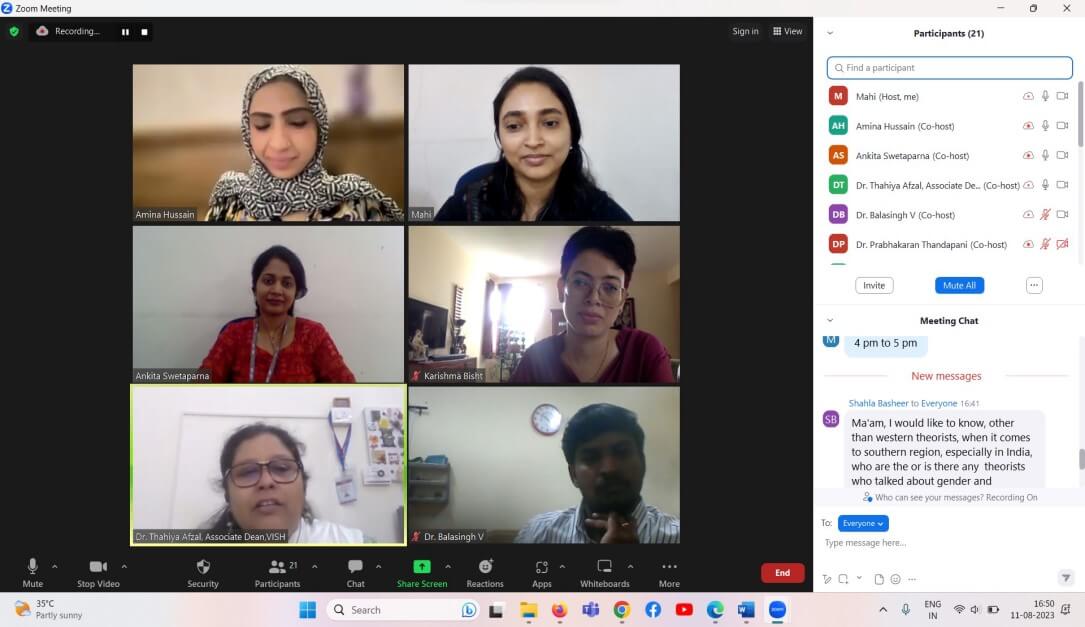
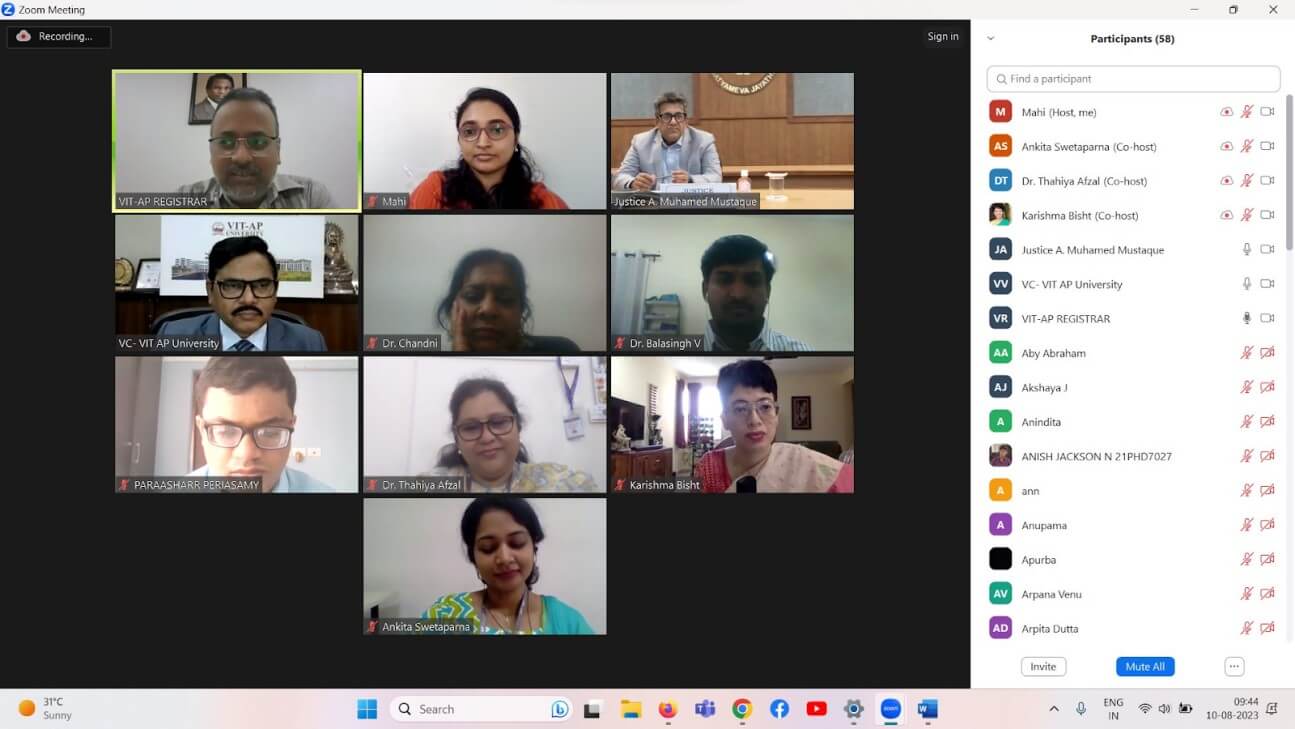
FDP:
Enhancing Teaching Practices in Language and Literature
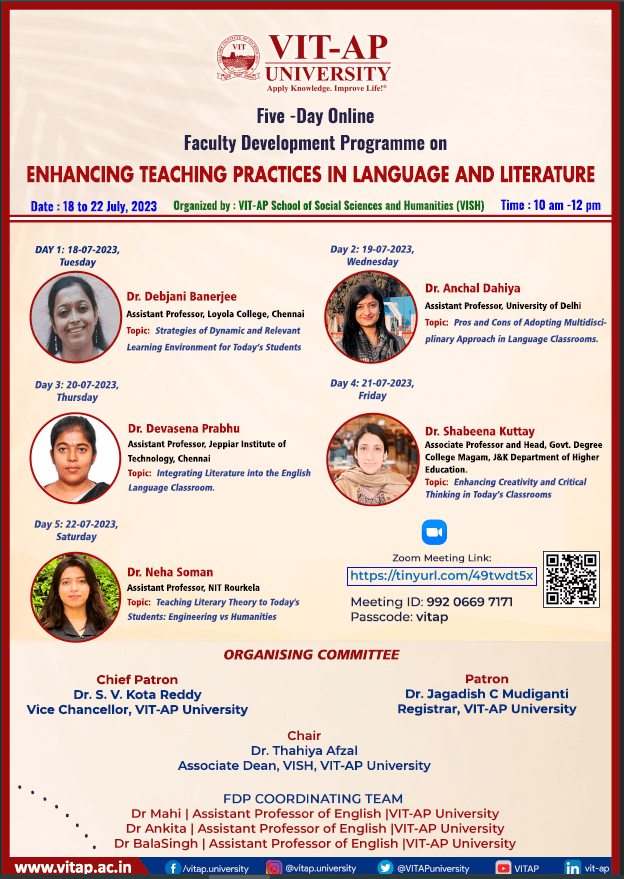
A five-day Faculty Development Program on “Enhancing Teaching Practices in Language and Literature” was organized by VIT-AP School of Social Sciences and Humanities from 18 – 22 July to equip the educators with innovative approaches, pedagogical strategies, and technological advancements to elevate the teaching and learning experience in the domain of language and literature. The program aimed to foster an enriching academic environment and enable faculty members to adapt to the evolving needs of the students. The resource persons for the event came from all over India to share their knowledge and expertise in this particular domain. The program successfully empowered faculty members and other academicians with the skills and knowledge to enhance their teaching practices. Participants expressed enthusiasm about implementing the newly acquired strategies in their classrooms and the sessions provided a good platform for discussions and interactions with the resource persons.
The FDP served as a platform for educators to upgrade their skills and knowledge, enabling them to create a dynamic and inclusive learning environment. By adopting modern pedagogies and integrating technology, faculty members are now better equipped to nurture the intellectual and personal growth of their students in the language and literature domain. This FDP was coordinated by Dr. Mahi S Thavarathu, Dr. Ankita Swetaparna, and Dr. Balasingh V.
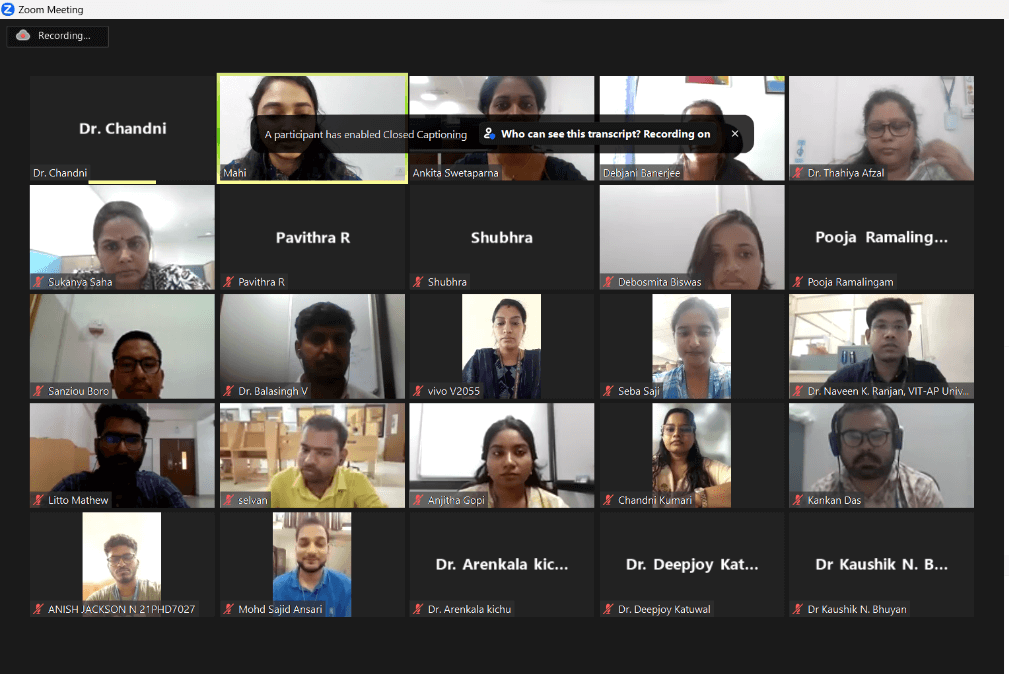
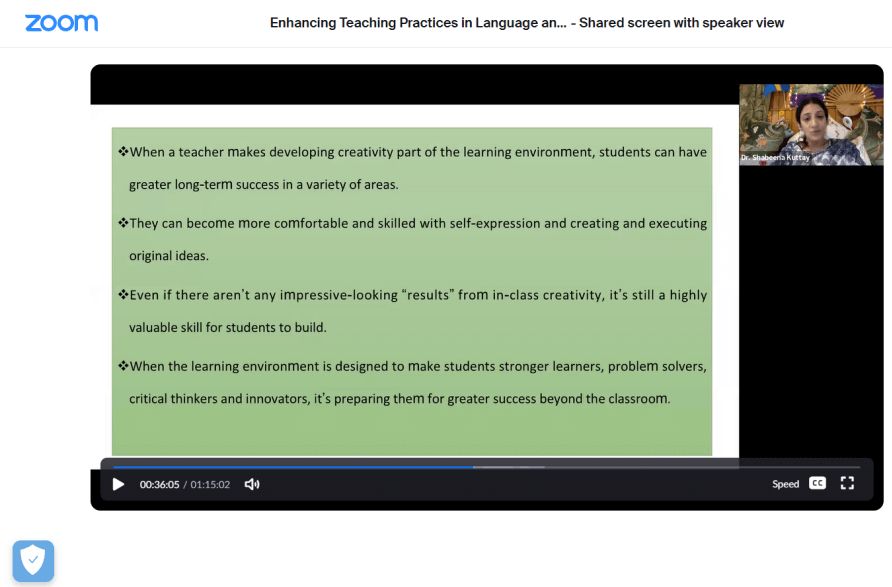
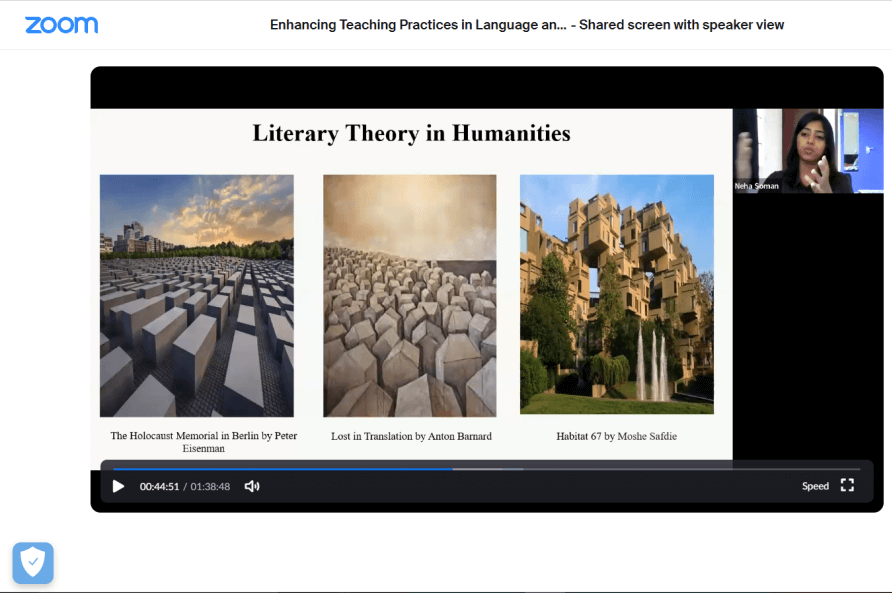
Guest Lecture:
Gender and Technology: A Power Struggle
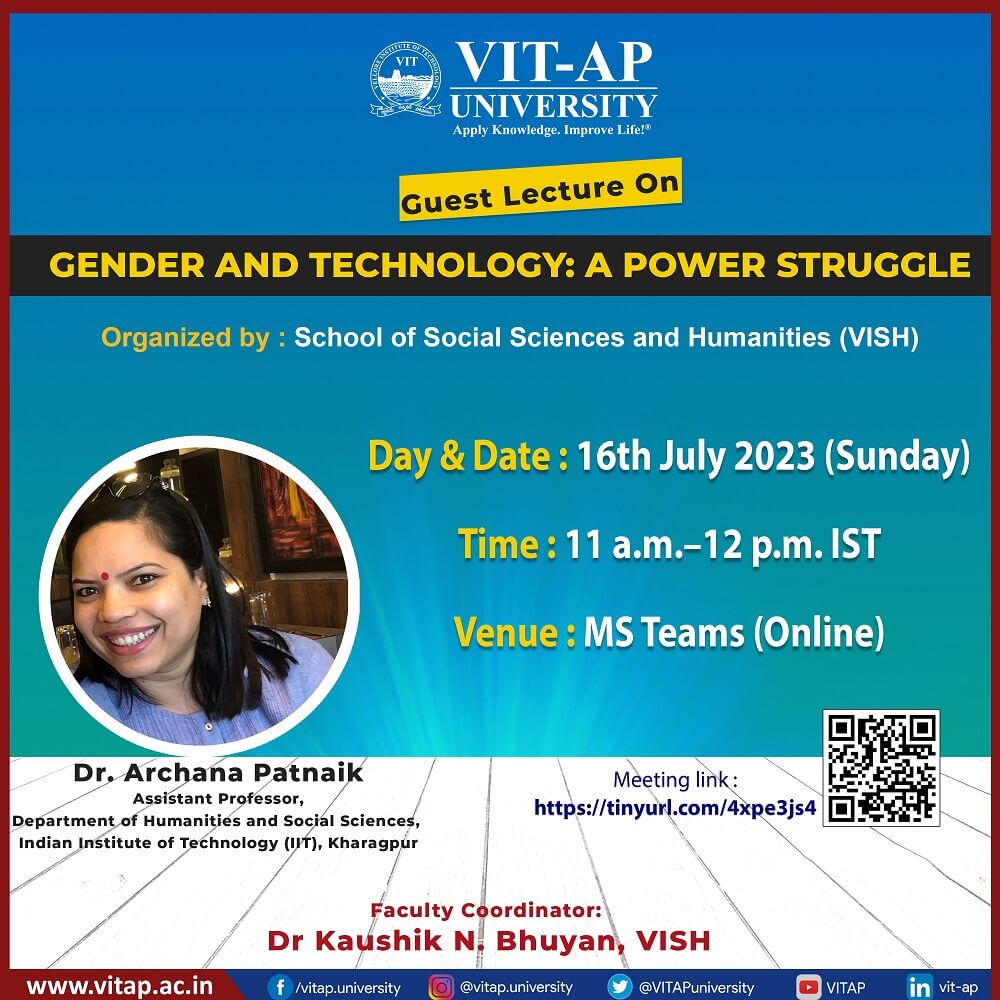
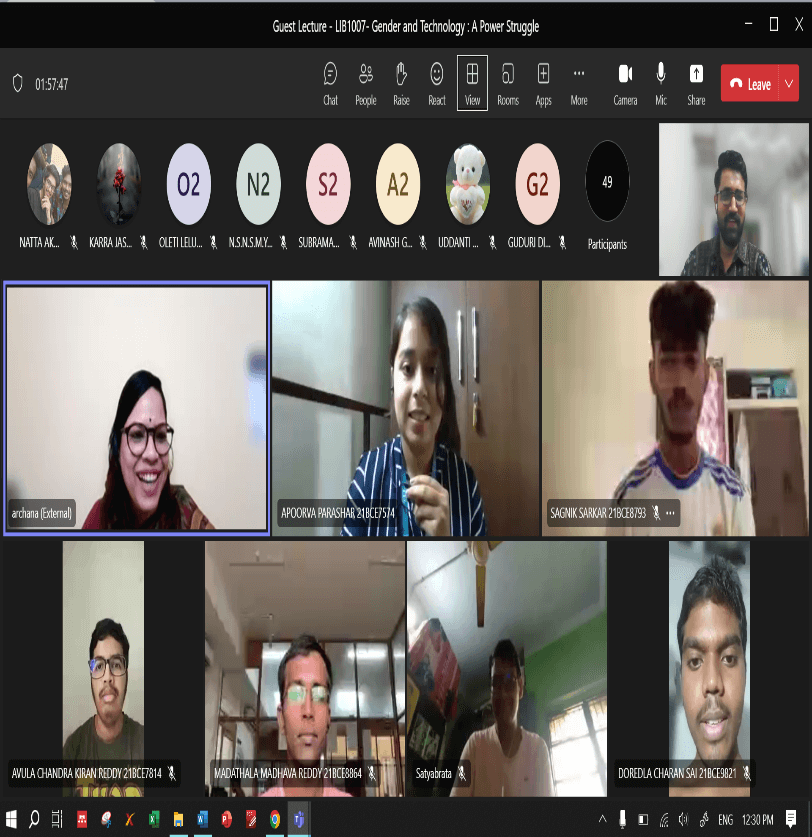
A guest lecture on “Gender and Technology: A Power Struggle” was organized by VIT-AP School of Social Sciences and Humanities (VISH), VIT-AP University, on 16 July, 2023. The lecture was delivered by Dr. Archana Patnaik, Assistant Professor, IIT Kharagpur.
The deliberation explored the intersectionality of gender and technology in recent times. The speaker discussed various aspects of technology and how it plays a vital role in shaping the perceptions about gender roles. Citing instances of cockpit designs in aeroplanes that have historically favoured male pilots, the speaker gave emphasis on the challenges for women in the navy or air force, as technology did not consider their specific needs. Dr. Archana spoke about the importance of empathy in understanding the unique challenges women face in technology, and she suggested adopting inclusive design practices to remove barriers and provide equal opportunities for all individuals. She longs for a better environment, being empathetic, and understanding women’s experiences which can create an environment of equality and sustainability for everyone.
During the Q&A session, students were actively engaged with the speaker on several issues such as new innovations, policies, and practices to cater the purpose. The session was attended by more than 70 students, faculties and guests across all disciplines. The lecture ended with a vote of thanks by the student moderator, Ms. Apoorva Parashar. The guest lecture was coordinated by Dr. Kaushik N. Bhuyan.
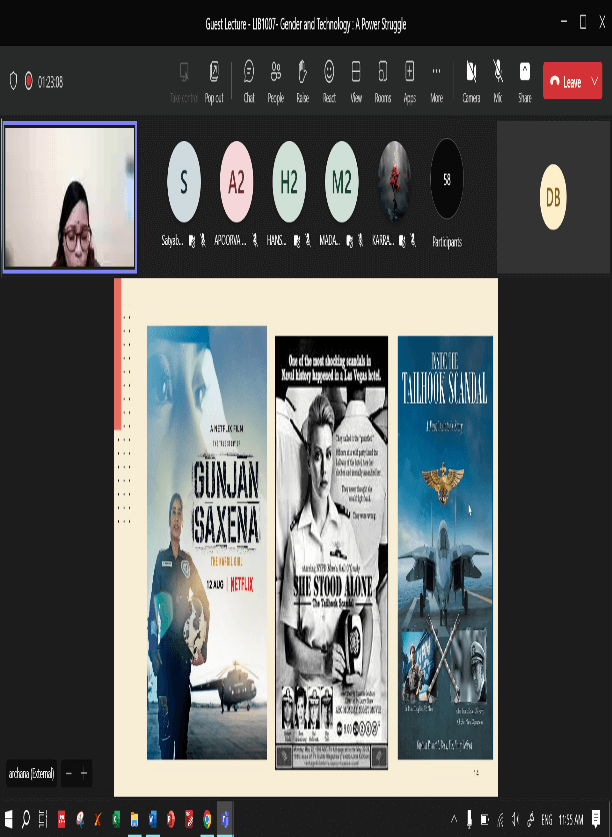
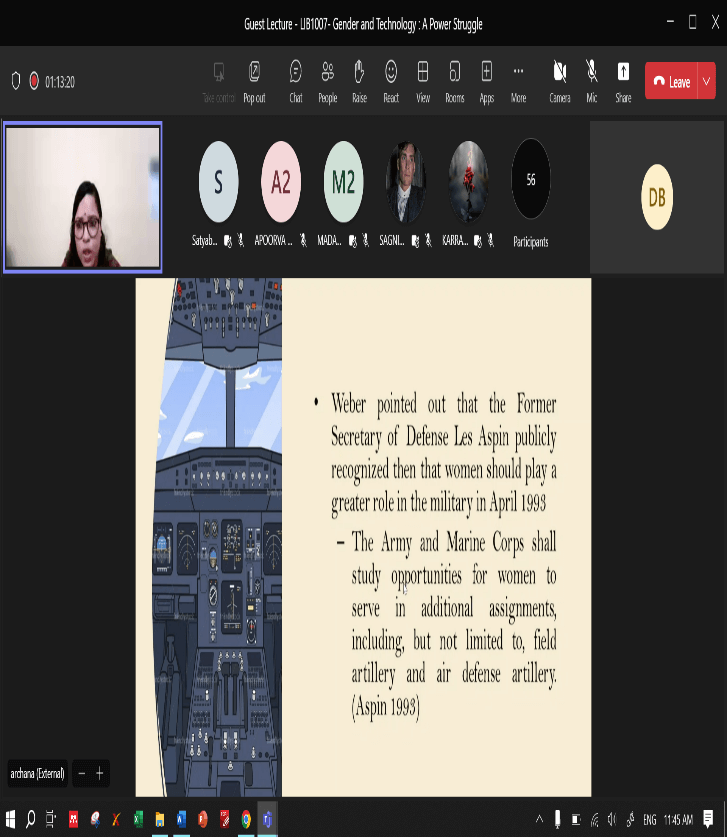
Three-Day Virtual International Conference on Gender Perspectives and Representations: Breaking Barriers and Building Bridges
20.06.23 – 22.06.23
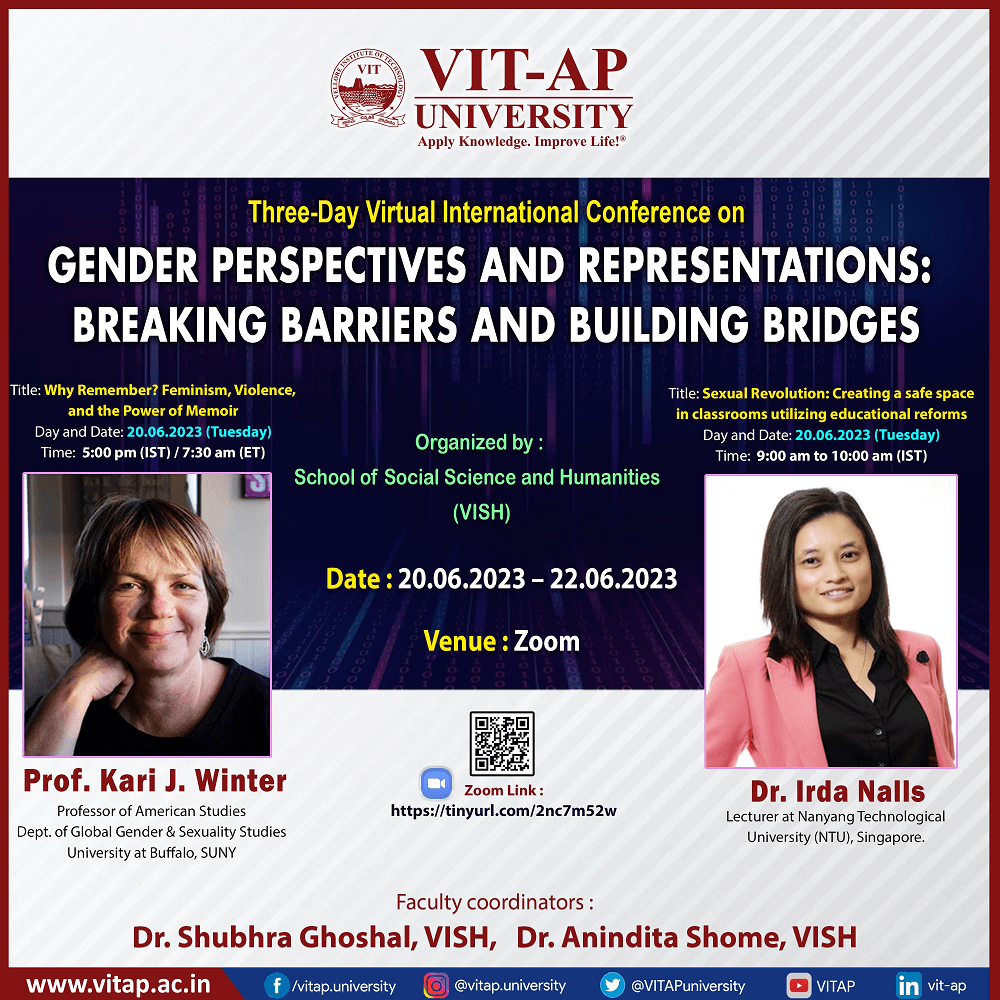
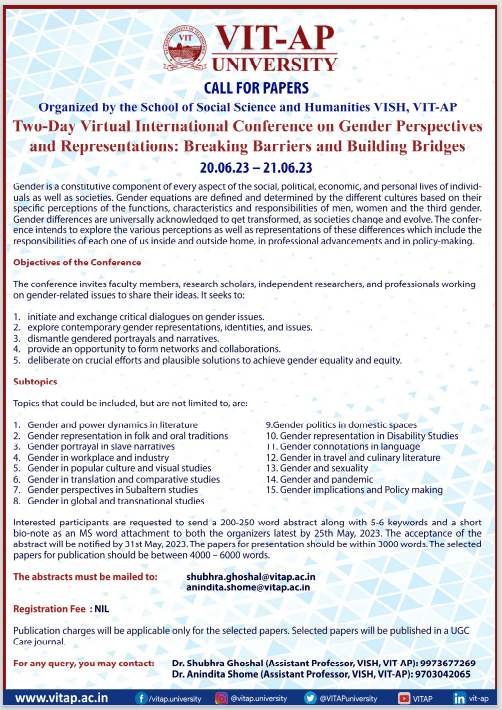
The three-day virtual international conference on “Gender Perspectives and Representations: Breaking Barriers and Building Bridges” was organised from 20.06.23 to 22.06.23 by the School of Social Sciences and Humanities (VISH). It received approximately 350 abstracts. After a thorough review process, 75 abstracts were selected for presentation across 13 sessions spanning 3 days. Two prominent plenary speakers- Prof. Kari J. Winter, Professor of American Studies at the University at Buffalo, State University of New York, and Dr. Irda Nalls, a lecturer at Nanyang Technological University (NTU), Singapore, addressed the conference. The paper presenters hailed from Algeria, Morocco, Sri Lanka, Pakistan, and different states of India- Kerala, Tamil Nadu, West Bengal, Assam, Himachal Pradesh, Mizoram, Uttar Pradesh, Jammu, New Delhi, Gujarat, Punjab, and so on. The conference, being interdisciplinary in nature, included discussions and deliberations on literature, partition narratives, education, sociological issues, comics, fan-fiction, cyber world, speculative fiction, sports, myths and folktales, cultural studies, theatre studies, cinema, disability studies, management studies, domestic spaces, and many more. The conference aimed to dismantle gendered portrayals and narratives. It also aided in providing an opportunity to form networks and collaborations. The sessions were highly interactive and opened new avenues for further research on gender. The conference was coordinated by Dr. Shubhra Ghoshal and Dr. Anindita Shome.
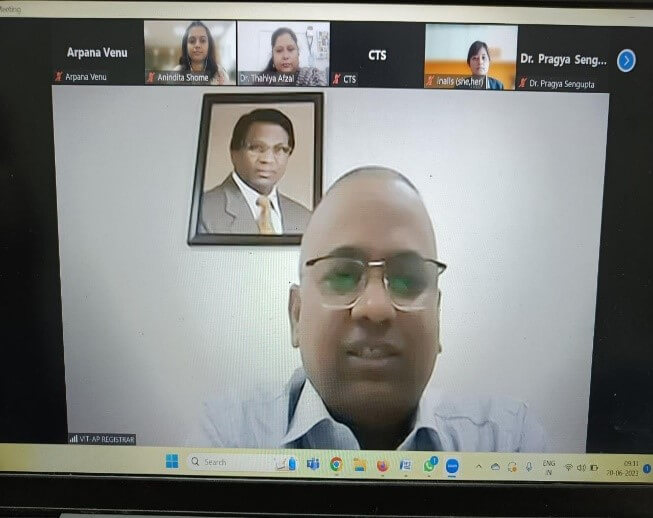
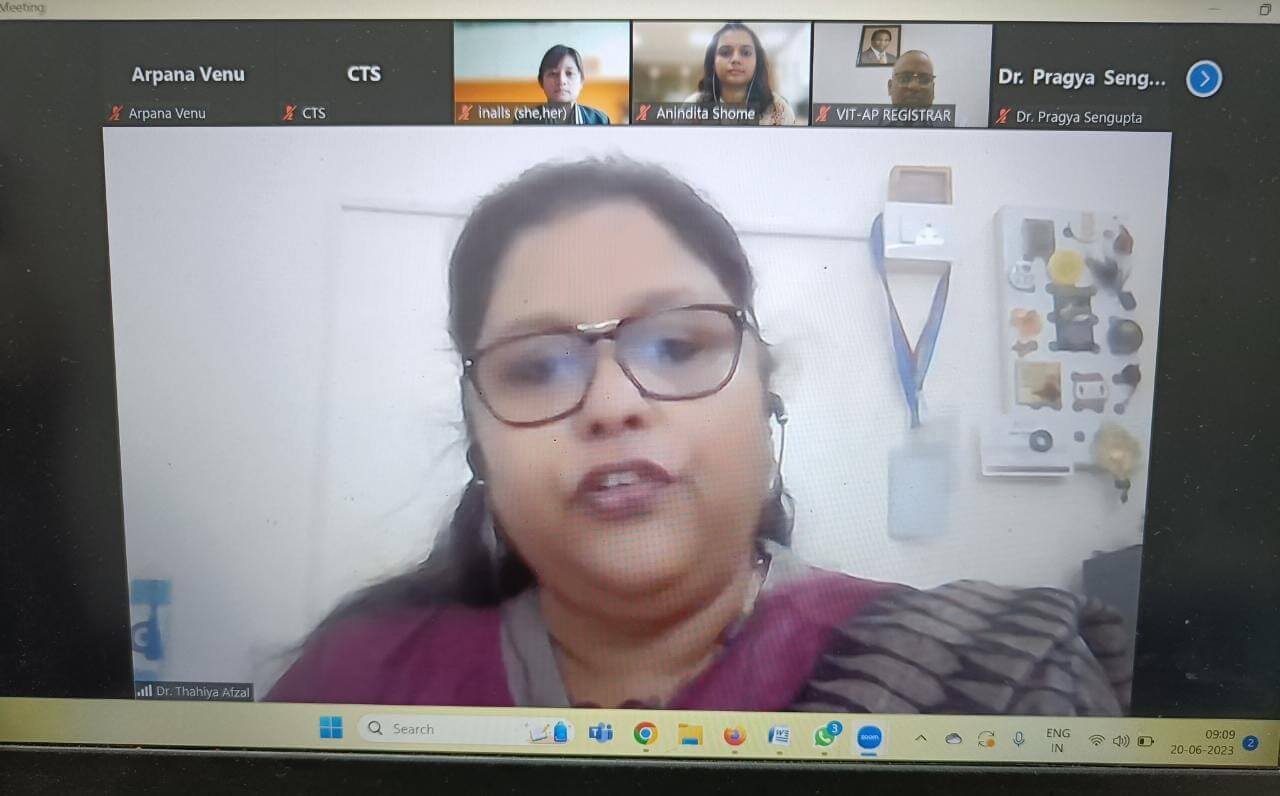
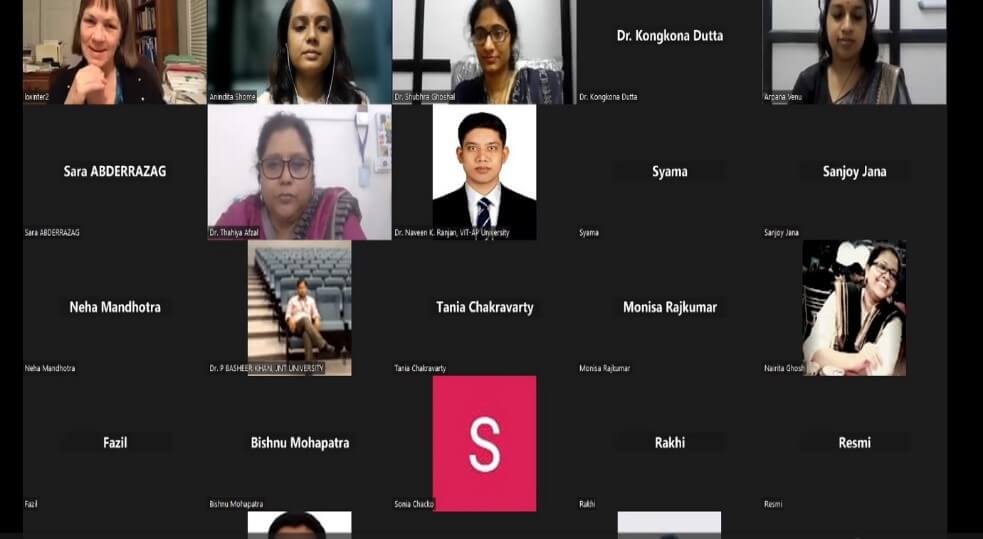
International Webinar-
La Coopération internationale: de l’idée à l’action
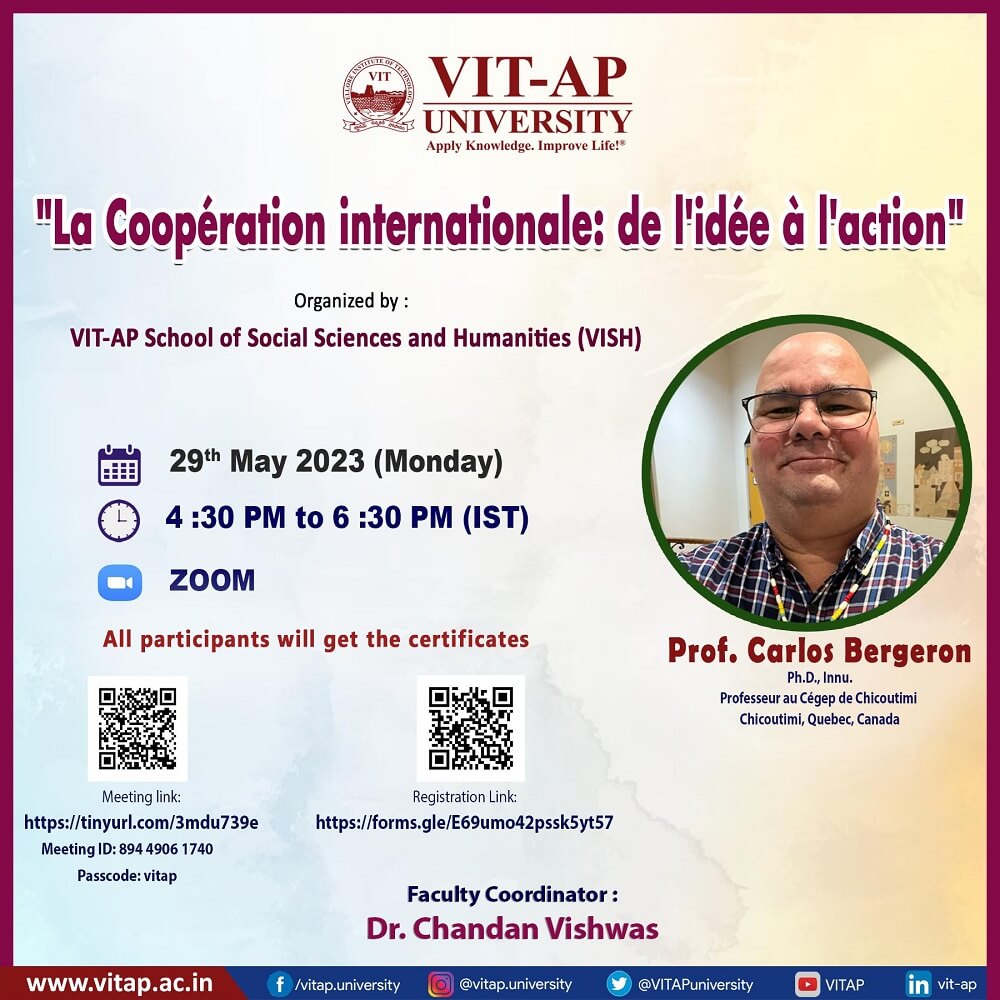
The School of Social Sciences and Humanities organized an International webinar on the topic “La Coopération internationale: de l’idée à l’action” to provide participants with essential information about how to carry out international project and collaboration. The event took place on May 29th, 2023, and was hosted by Dr. Chandan Vishwas along with Dr. Dheeraj Kumar, and Mr. Carlin. The speaker of the webinar is Prof. Carlos Bergeron, Professor at Cégep de Chicoutimi Quebec, Canada the webinar aimed to provide participants with an understanding of the nuances to carry out projects.
Prof. Carlos has talked in detail about the nuances of how to carry out international projects. He has given the example of his own international projects like establishment of the largest Quebec Literature Library in Goa, His projects in Morocco etc. and given a valuable insight to put your ideas into action and highlighted some of the personal traits like passion, believe in yourself, hard work, perseverance etc. to carry out international projects.
The session concluded with a Q&A session, where participants had the opportunity to ask questions and clarify their doubts about the topics discussed. Finally, the event concluded with a vote of thanks from Dr. Dheeraj. The webinar is coordinated by Dr. Chandan Vishwas.
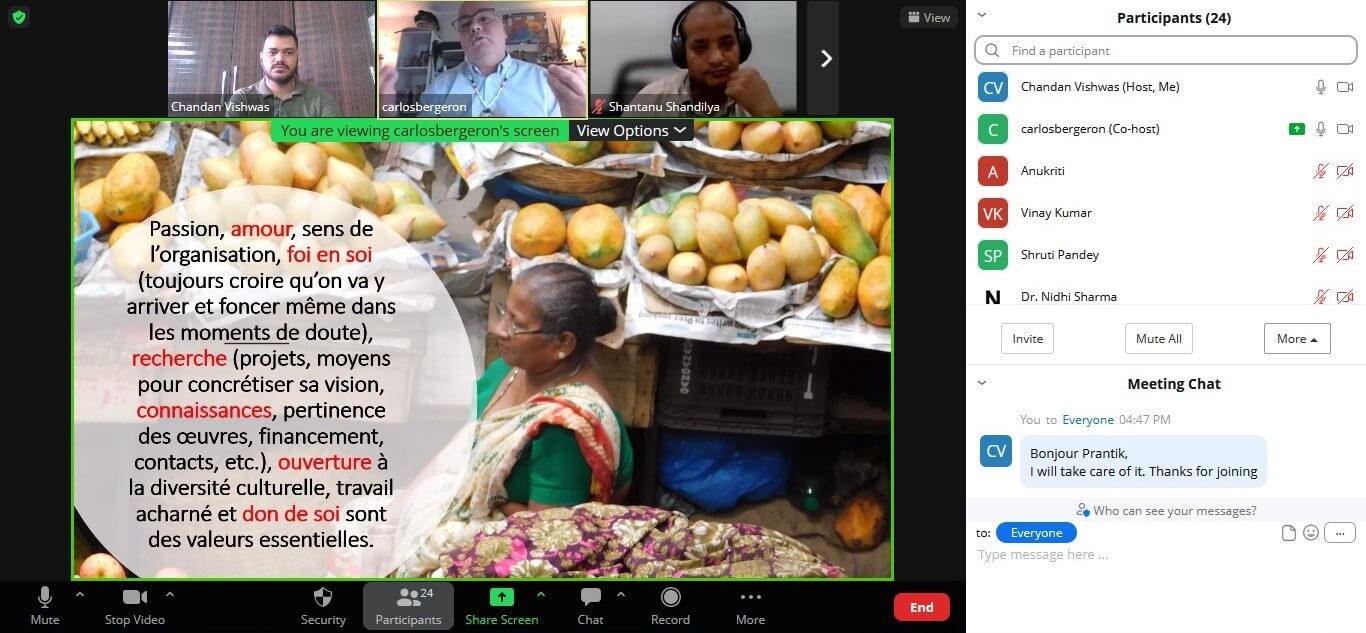
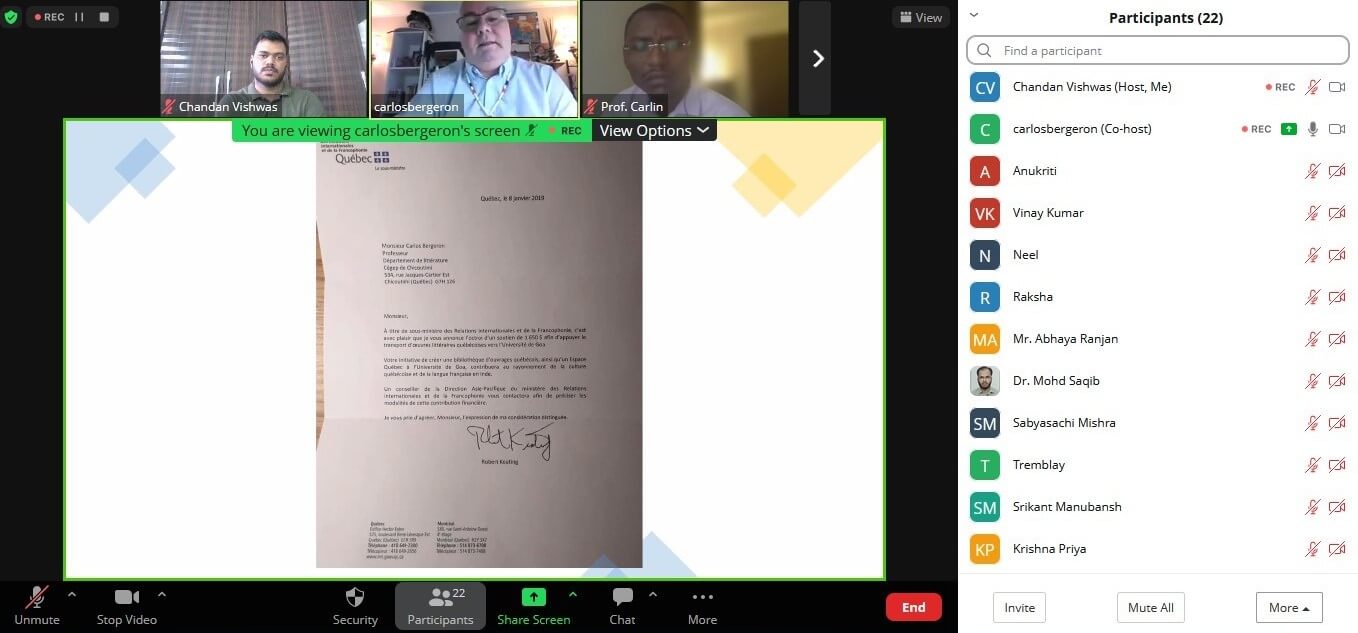
Guest Lecture:
Strategies for Effective Interview Skills
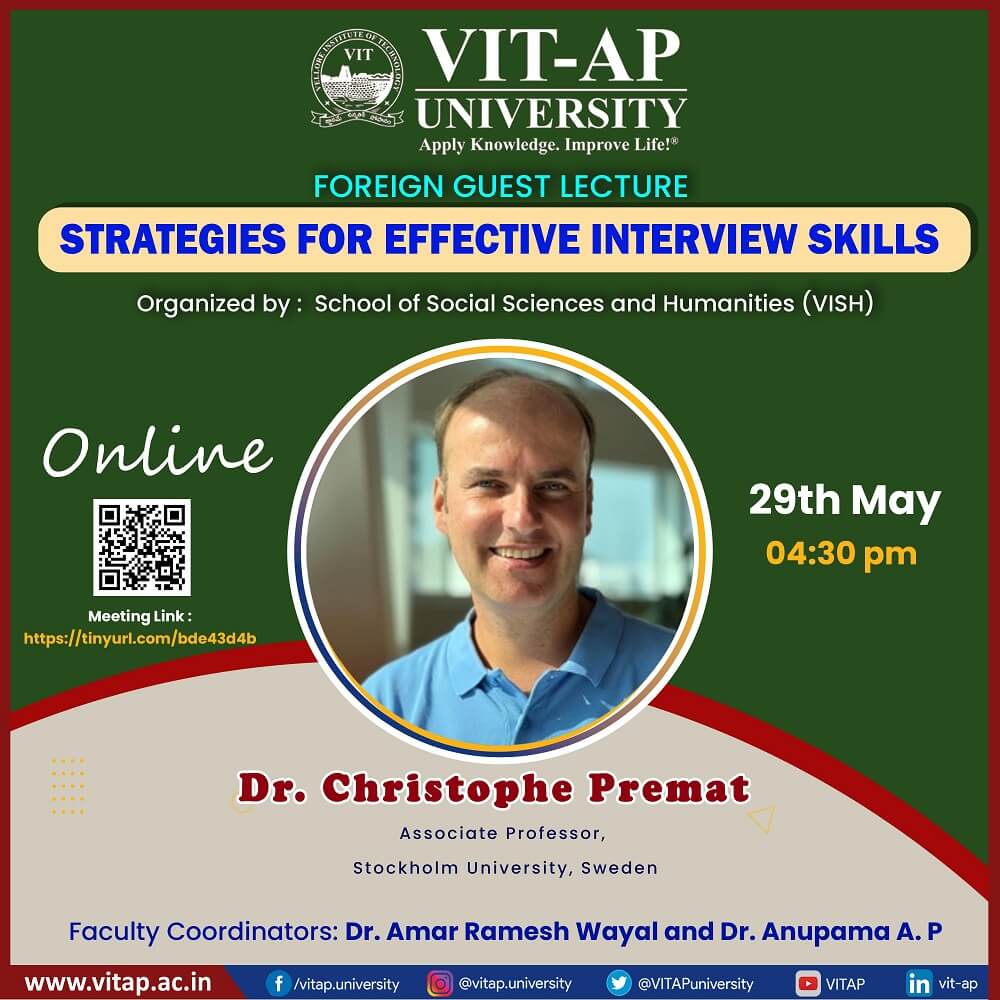
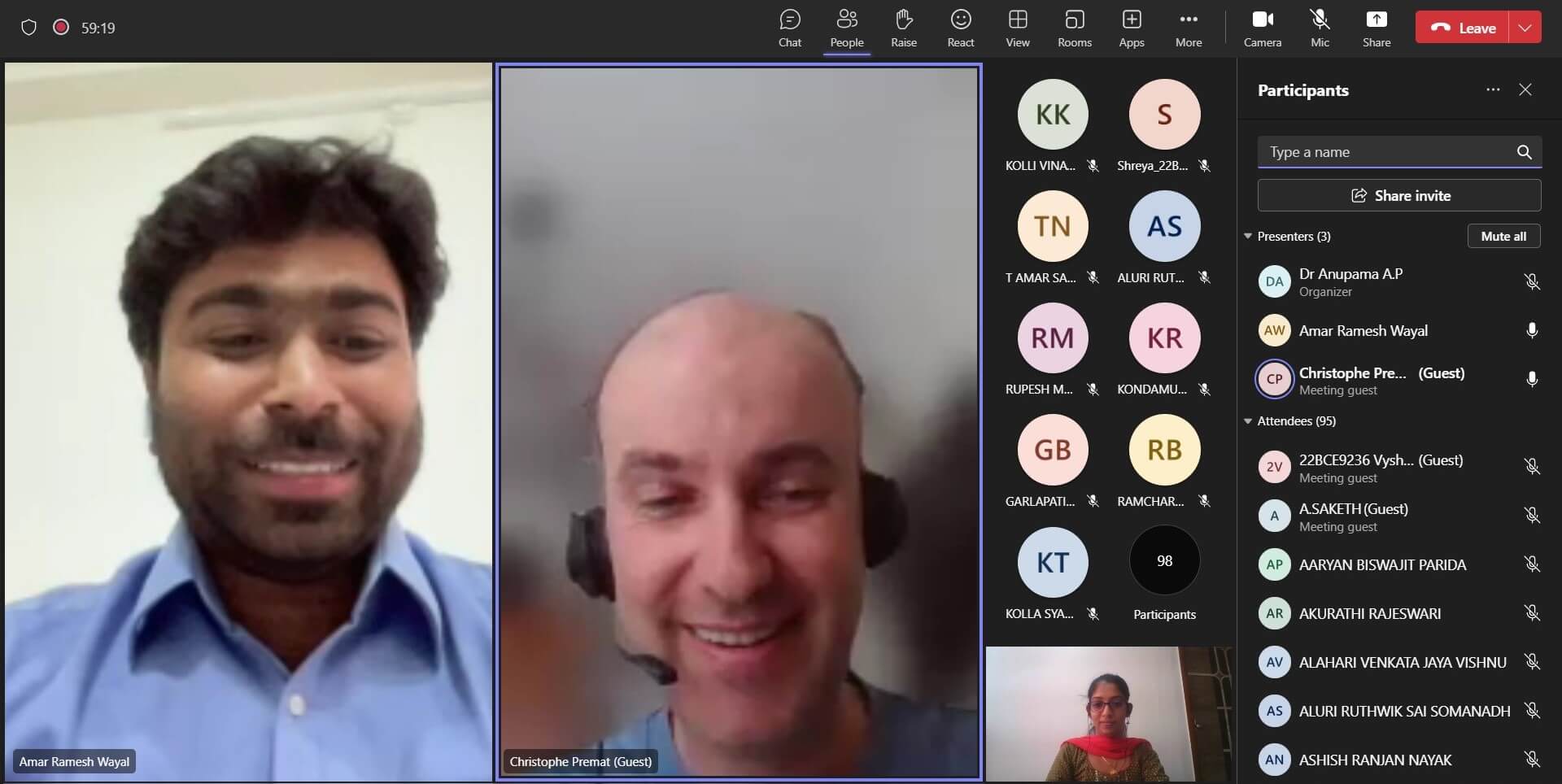
The foreign guest lecture on “Strategies for Effective Interview Skills” was organised by the School of Social Sciences and Humanities, VIT-AP University on 29/05/2023. The talk was given by Dr. Christophe Premat. He is an Associate Professor of French with a major specialisation in Cultural Studies at Stockholm University. He is a member of the editorial board of the review Sens Public, an international web journal of social sciences, and he is the co-editor in chief of the Nordic Journal of Francophone Studies.
The speaker enlightened the students by imparting knowledge on how to balance between the interviewer and interviewee, how to prepare yourself, how to create a dynamic exchange of views, how to create your own narrative, how to present facts about yourself, and how to highlight your reflection on your gaps and hills. Most significantly, the speaker in this talk expounded on the concepts of own story, positive communication, the conquest of autonomy, and the structure of the interview. The foreign guest lecture was coordinated by Dr. Amar Ramesh Wayal and Dr. Anupama A. P.
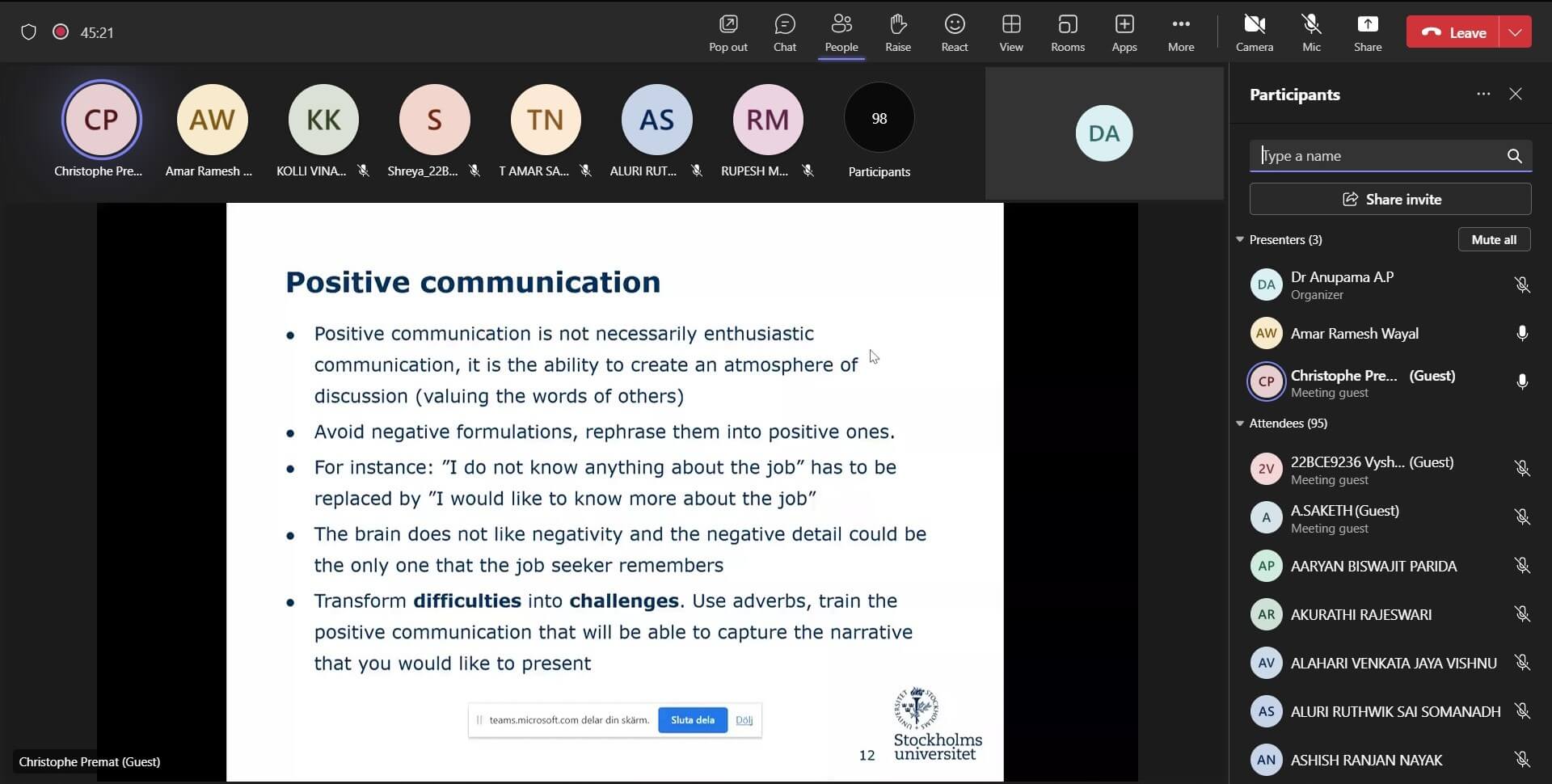
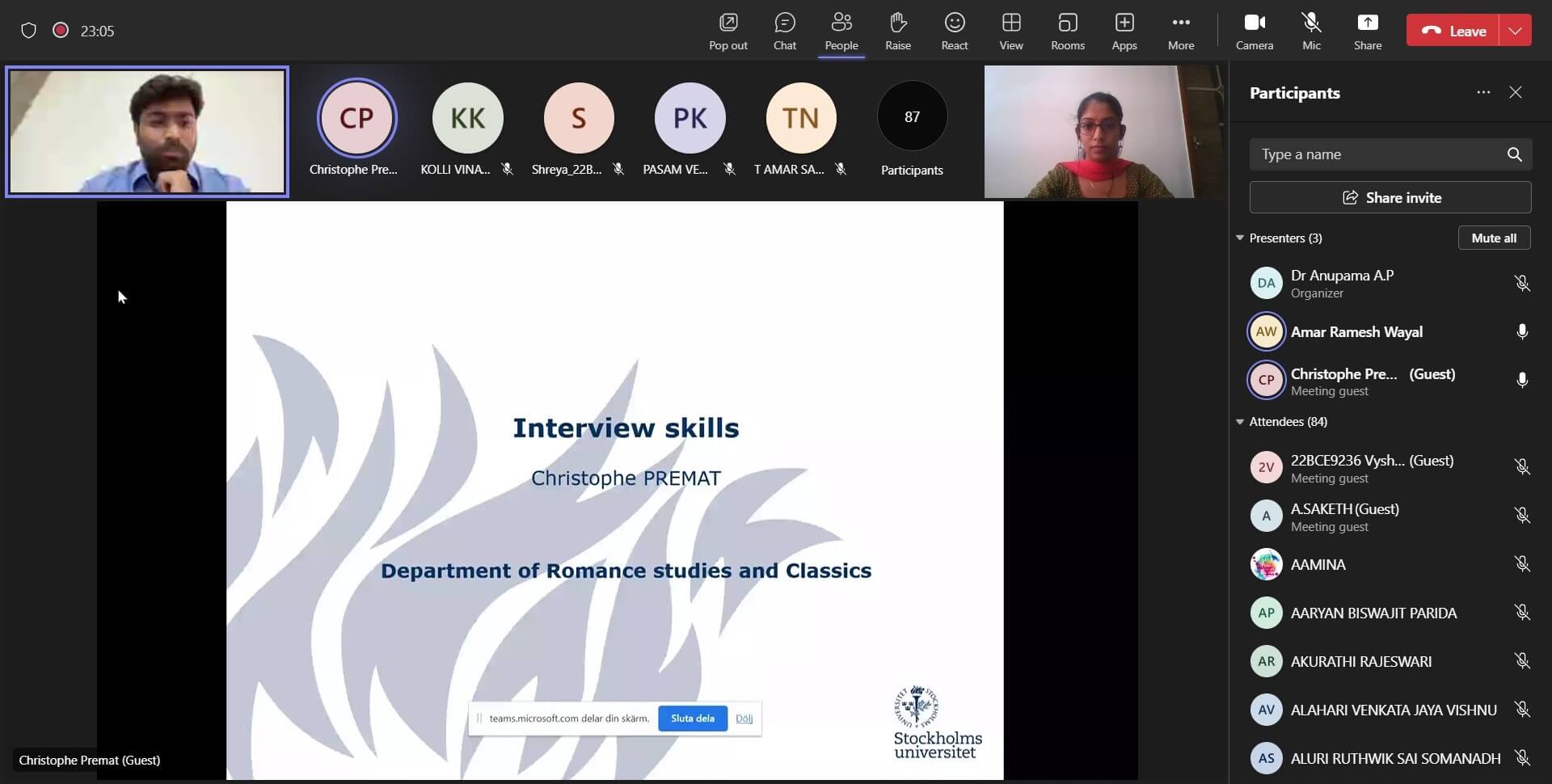
Guest Lecture:
BA-MA Public Service Guest Lecture Series: Session 3
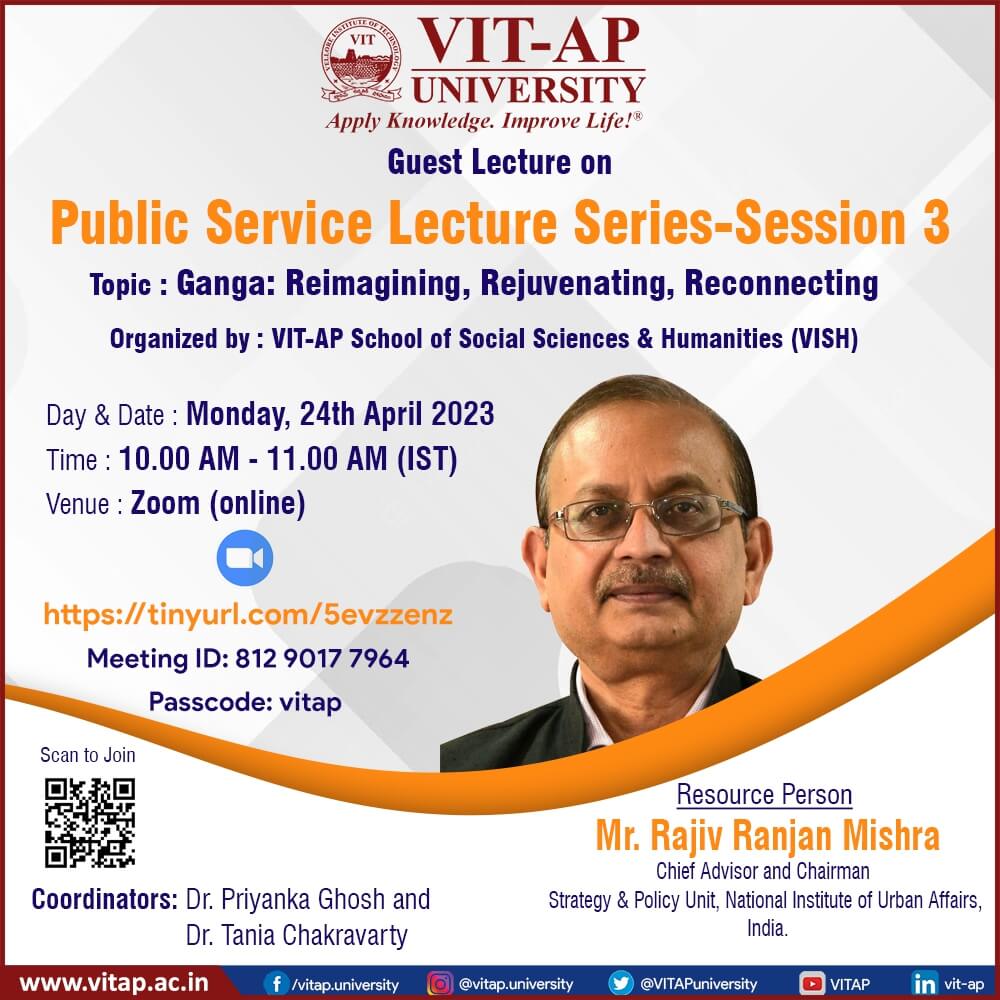
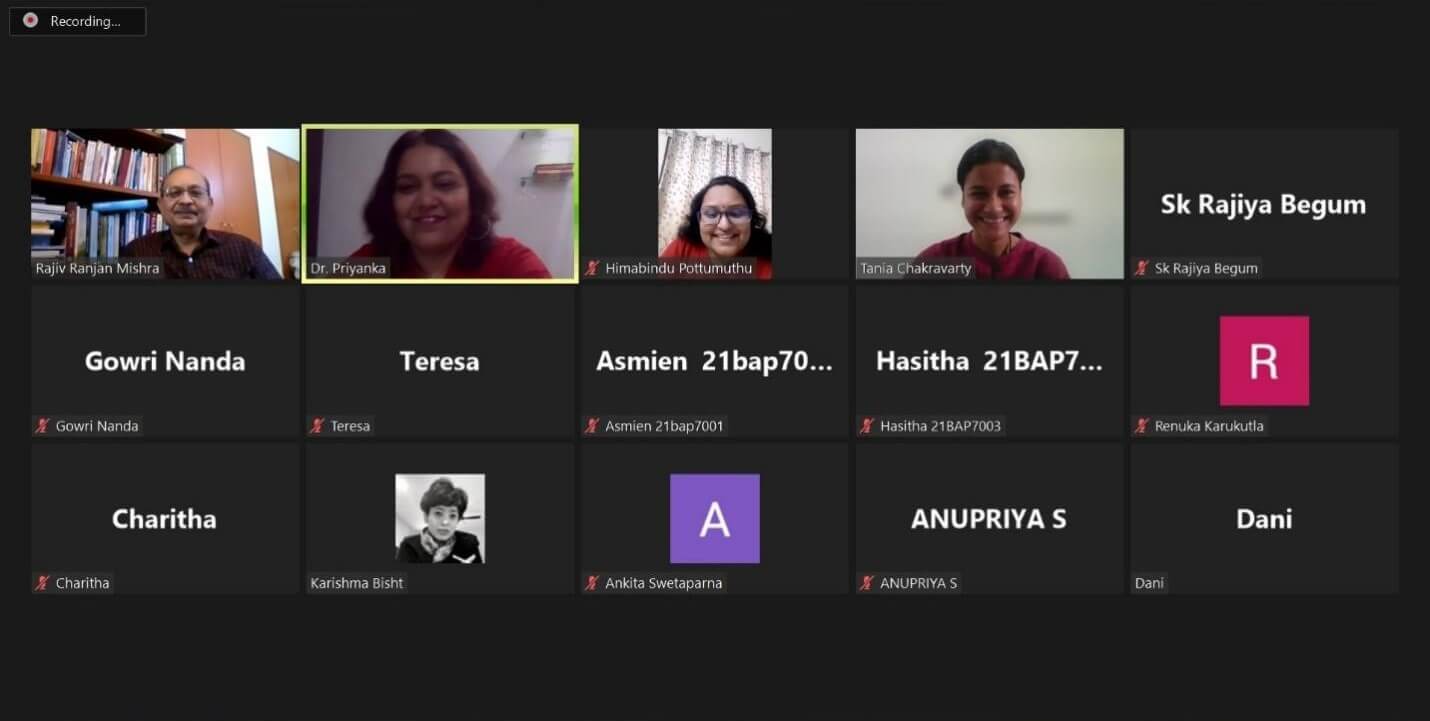
VIT-AP School of Social Sciences & Humanities (VISH), VIT-AP University, organized the third session of the Public Service Lecture Series on Monday, 24 April 2023. In this session, Mr. Rajiv Ranjan Mishra delivered a lecture titled ‘Ganga: Reimagining, Rejuvenating, Reconnecting.’ Mr. Mishra is a retired IAS Officer and the former Director General of Namami Gange. Currently, he serves as the Chief Advisor at the National Institute of Urban Affairs, India.
At the beginning of his lecture, Mr. Mishra briefly explained the importance of the Ganga River and introduced the significance of the integrated basin approach in managing the river ecosystem. He then discussed the complete trajectory of the evolution of the basin approach, starting from the Ganga Action Plan in 1985 to the Namami Gange Mission in 2014. Mr. Mishra described the strategic areas of intervention in the Namami Gange Mission, particularly highlighting the challenges faced in creating Sewage Treatment Plants (STPs) along the course of the river. In conclusion, he emphasized the importance of conserving the river ecosystem to maintain river health. The guest lecture was coordinated by Dr Priyanka Ghosh and Dr Tania Chakravarty.
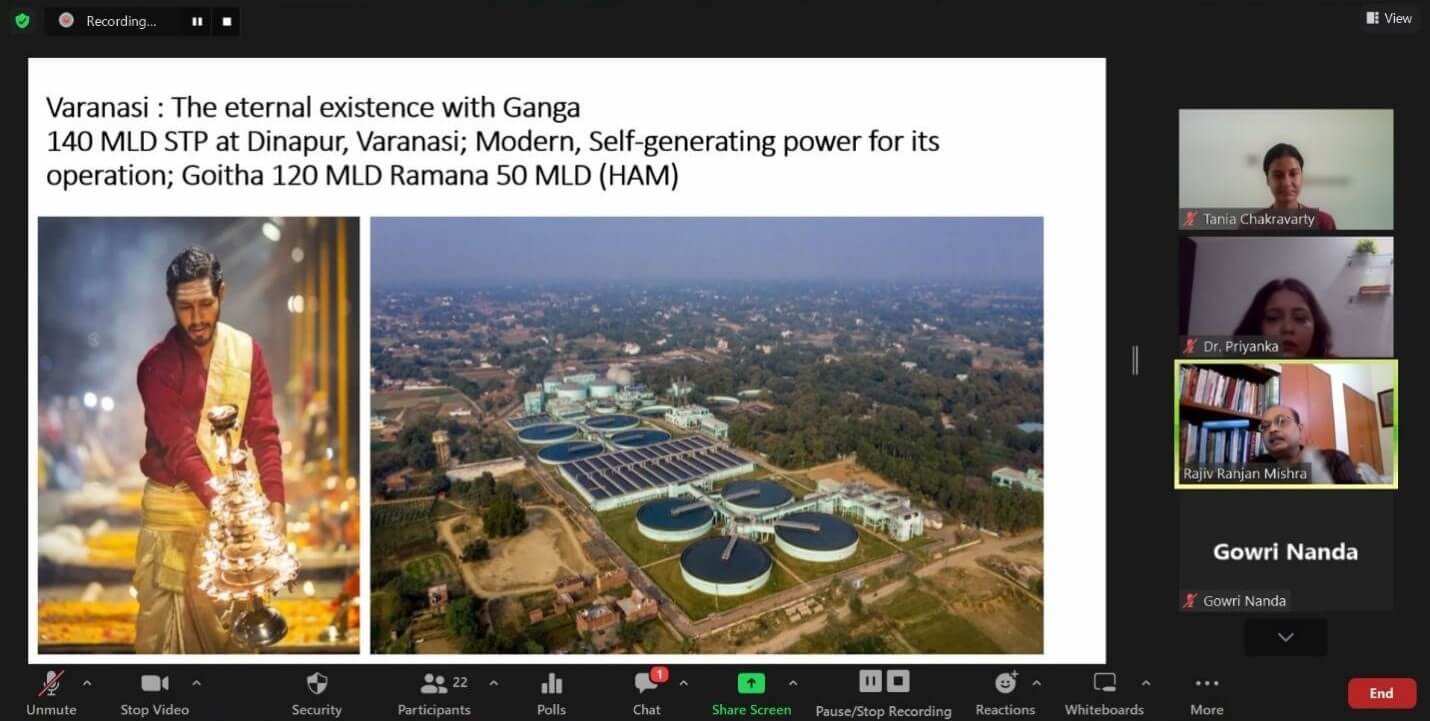
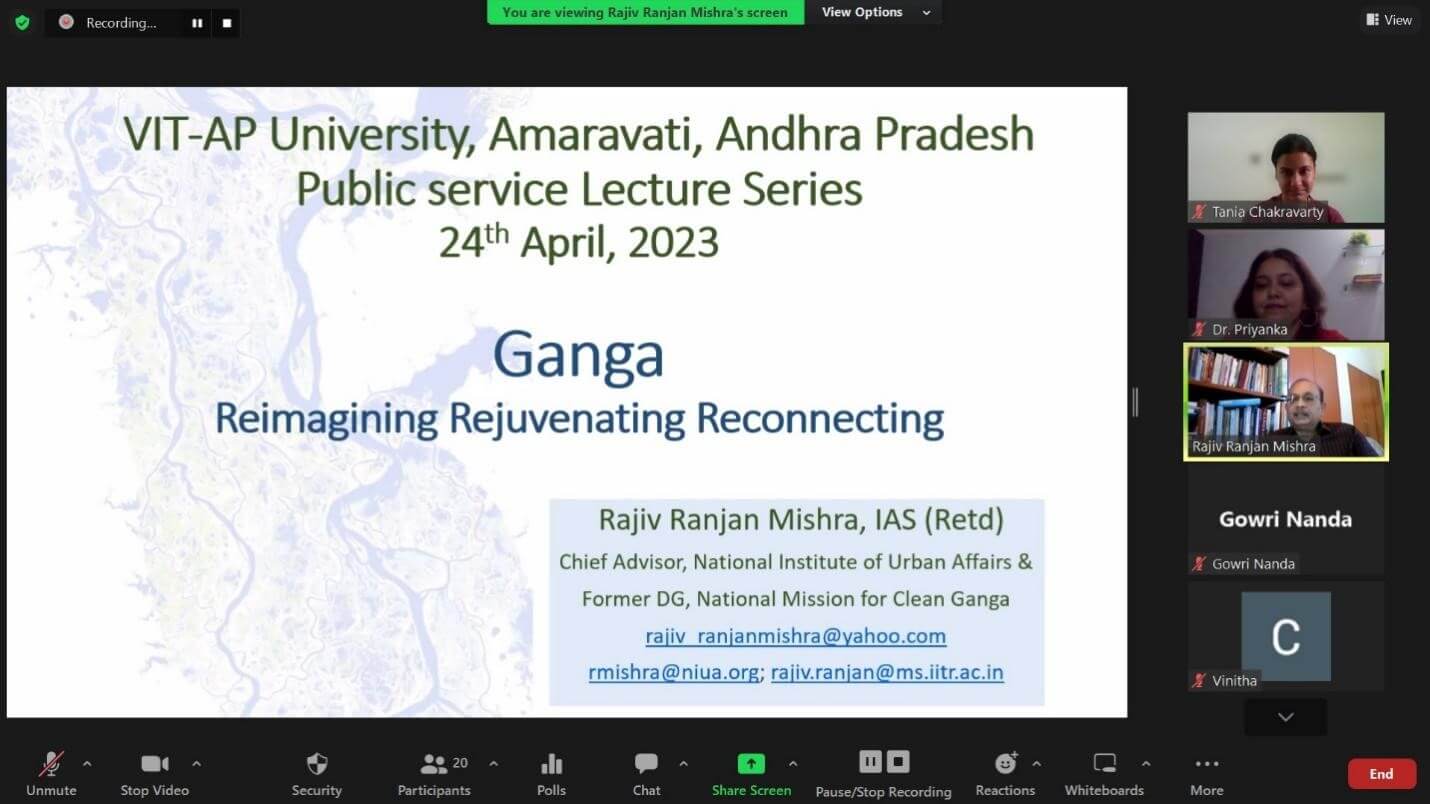
Guest Lecture:
Learning English with Cinema

A guest lecture on “Learning English with Cinema” was organised by VIT-AP School of Social Sciences and Humanities (VISH), VIT-AP University on 21 April 2023. The lecture was delivered by Ms. Damini Kulkarni, Researcher, Department of Media and Communication Studies, Savitribai Phule Pune University, Pune.
In the current times, students are acquiring their education in a landscape that is saturated with ‘content’. Various media products—each packaged more spectacularly than the last—are demanding their attention, with the result that watching movies, or indeed, series that are designed to look like cinema, has become an everyday experience. The session delivered by the speaker examined how cinema offers multiple learning opportunities for students, especially a chance to locate language with the social and cultural contexts in which it occurs.
Ms. Kulkarni in the session made students understand of various levels of English-language fluency that helped the participants to discover how cinema can lead them to a richer appreciation of the language. She further guided the students on how to use their experiences of cinema-viewing to grasp the ways in which English is spoken. The session specifically emphasized the capacity of cinema to lead students towards greater familiarity with a language’s colloquialisms and idiomatic turns. The guest lecture was coordinated by Dr. Ann Mary George.
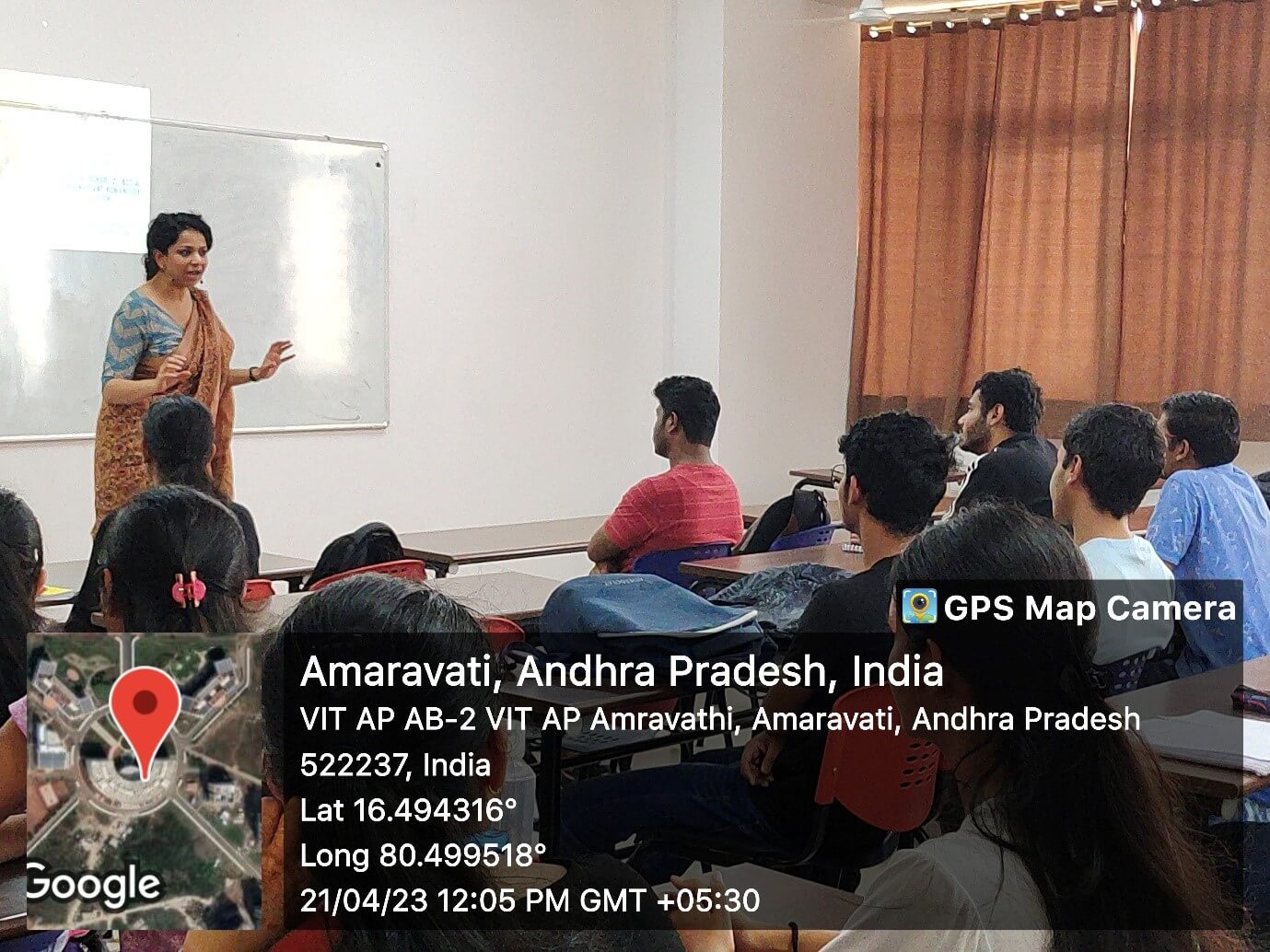
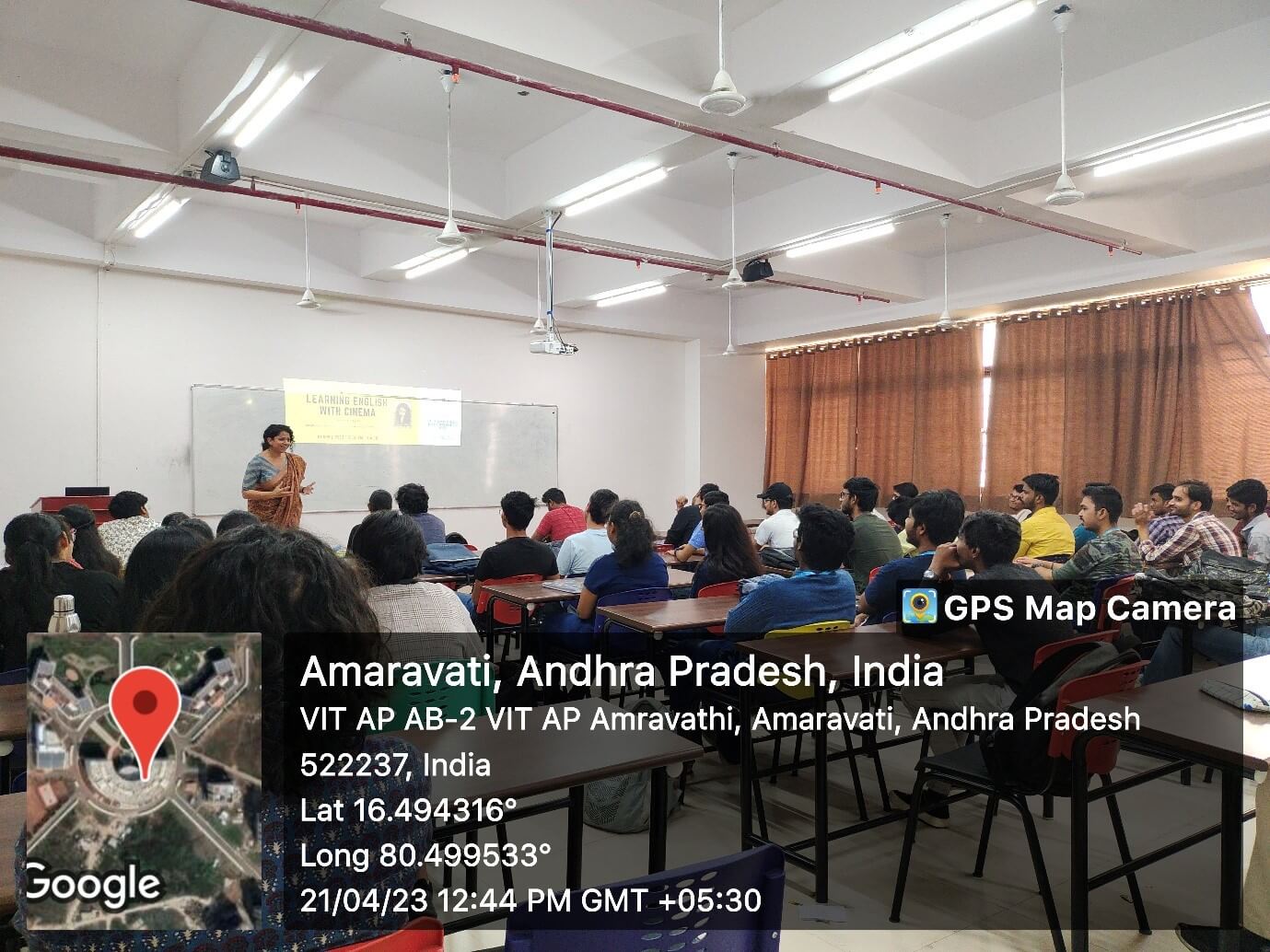
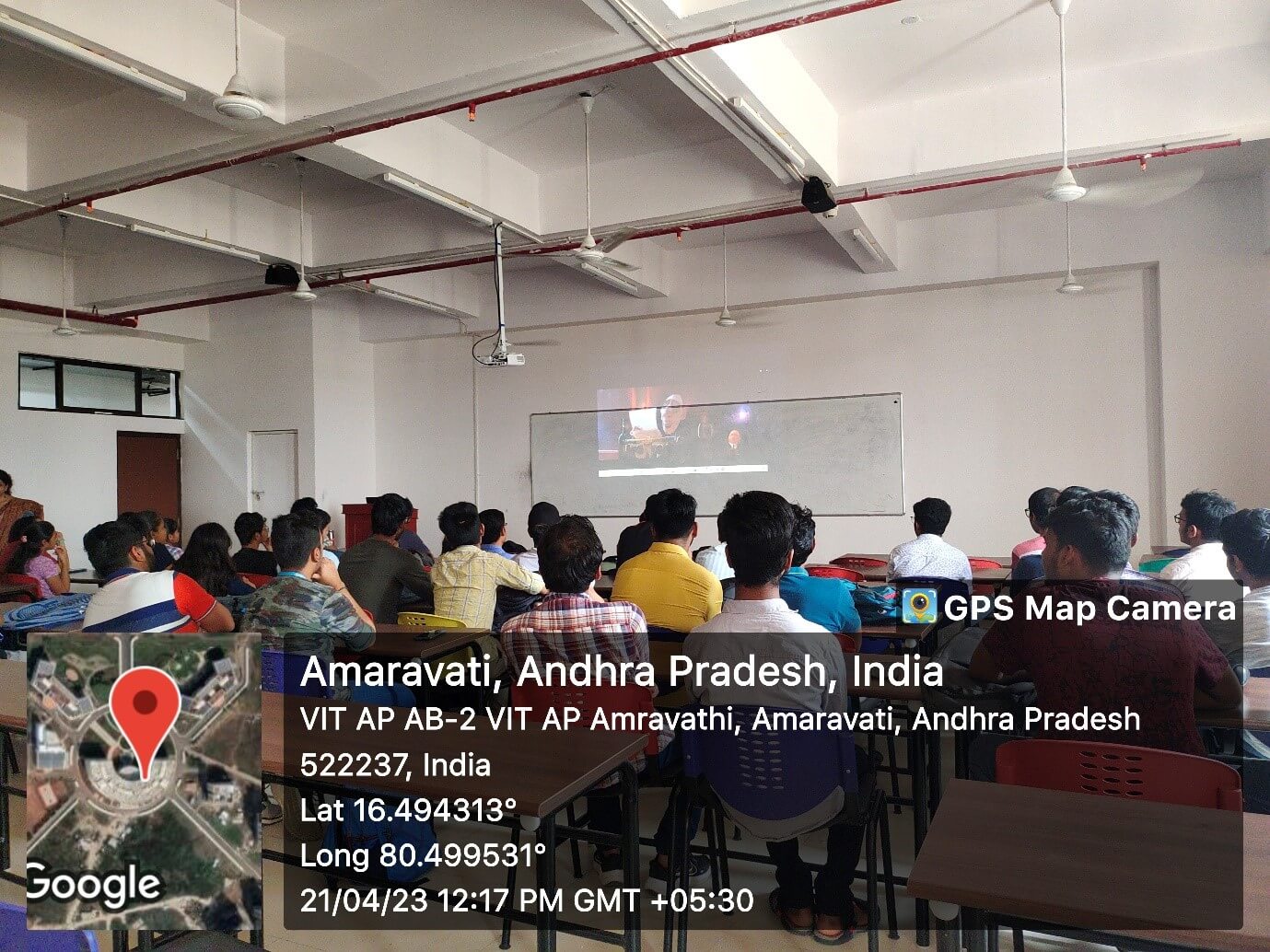
Foreign Guest Lecture:
Double Protestation Against an Urban Project at Amaravati: Social Struggles and the Right to the City
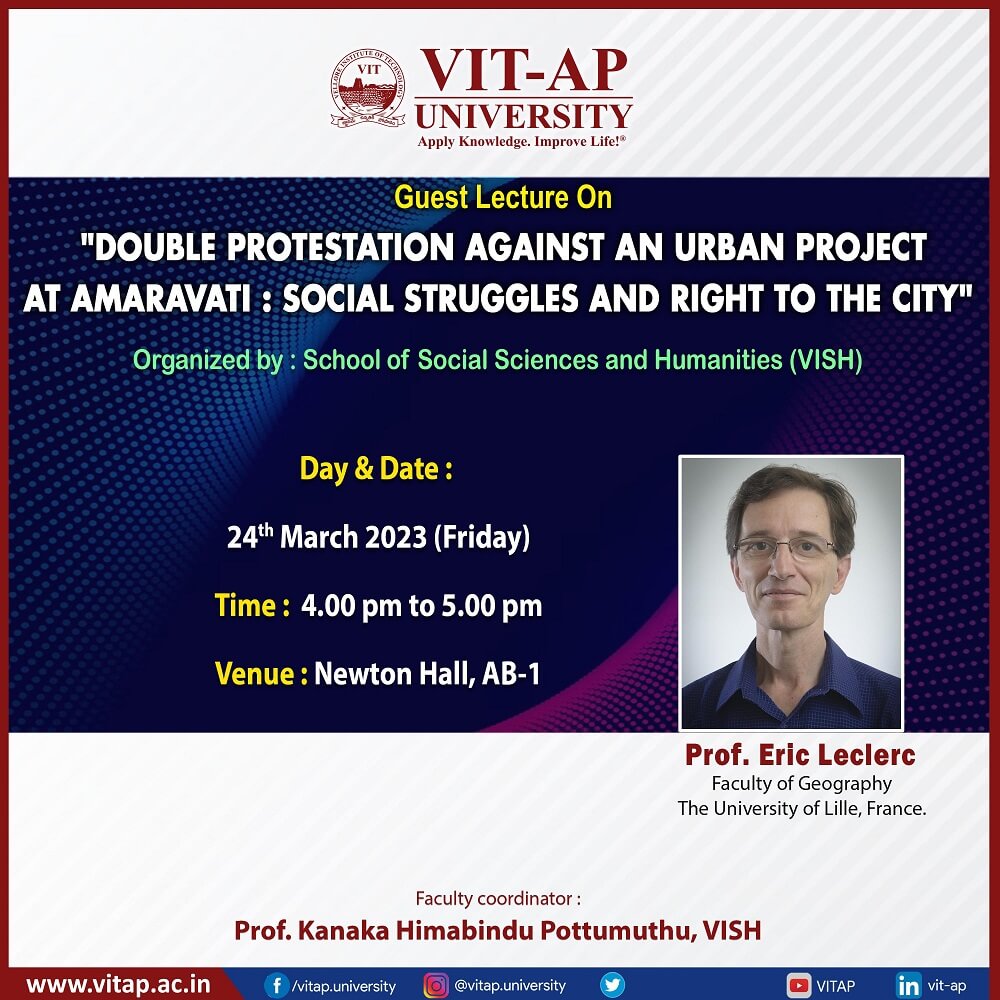
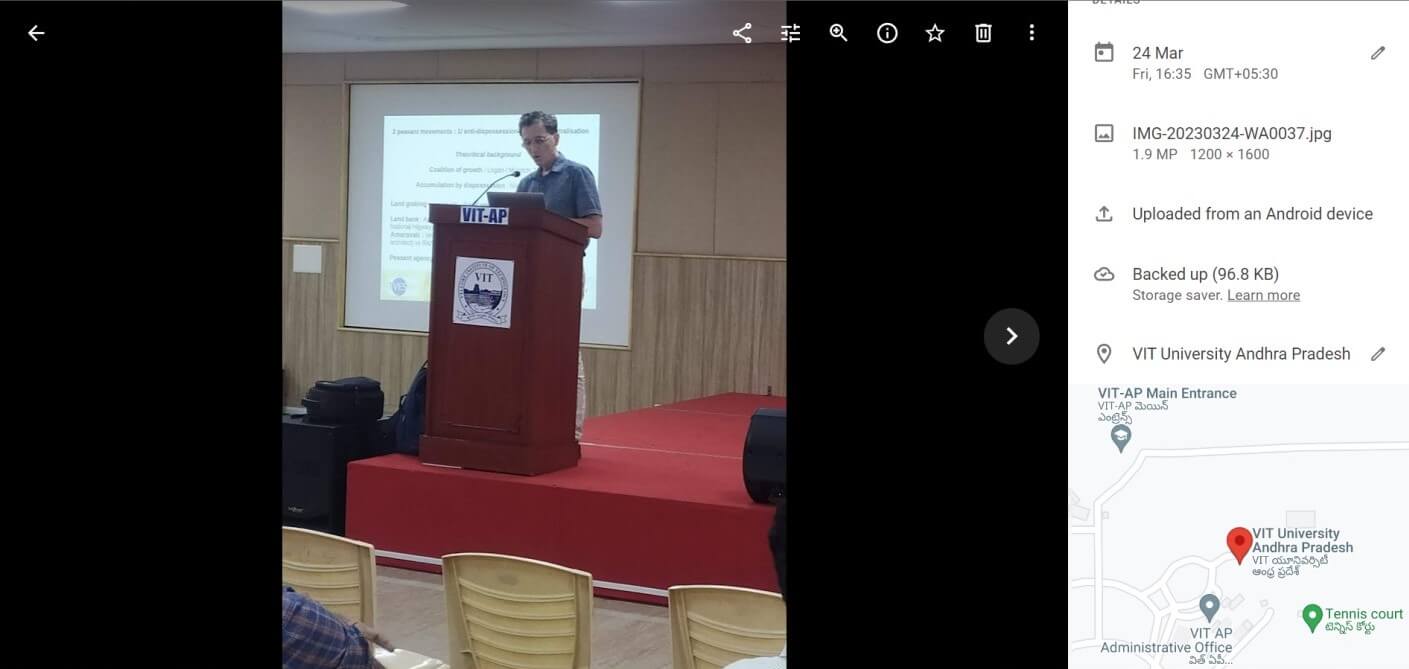
Prof. Eric Leclerc, a Geography Professor at the University of Lille, was invited to deliver a guest lecture at the university on 24 March 2023. Eric has been working on urbanization in Andhra Pradesh for the past few years, focusing on changes in mobility and spatial relations induced by ICT. His research is initiated by a case study of Indian software professionals, and focuses on digital humanities methodologies (web mapping, networks representation) and their social and political dimensions. The creation of the new capital of Andhra Pradesh (India), Amaravati, constitutes a privileged field of application. Eric discussed the timeline of Amaravati – the people’s capital – with its merits and demerits. He discussed his views on the previous government’s vision for a futuristic, world-class, green city. Prof. Eric’s insights on our region were enlightening and interesting. After the lecture, he patiently heard the opinions of the students and faculty. The post-talk interaction was fantastic; everyone expressed their contentment about the discussion. About 80 students and faculty attended the session, which was coordinated by Prof. Kanaka Himabindu Pottumuthu.
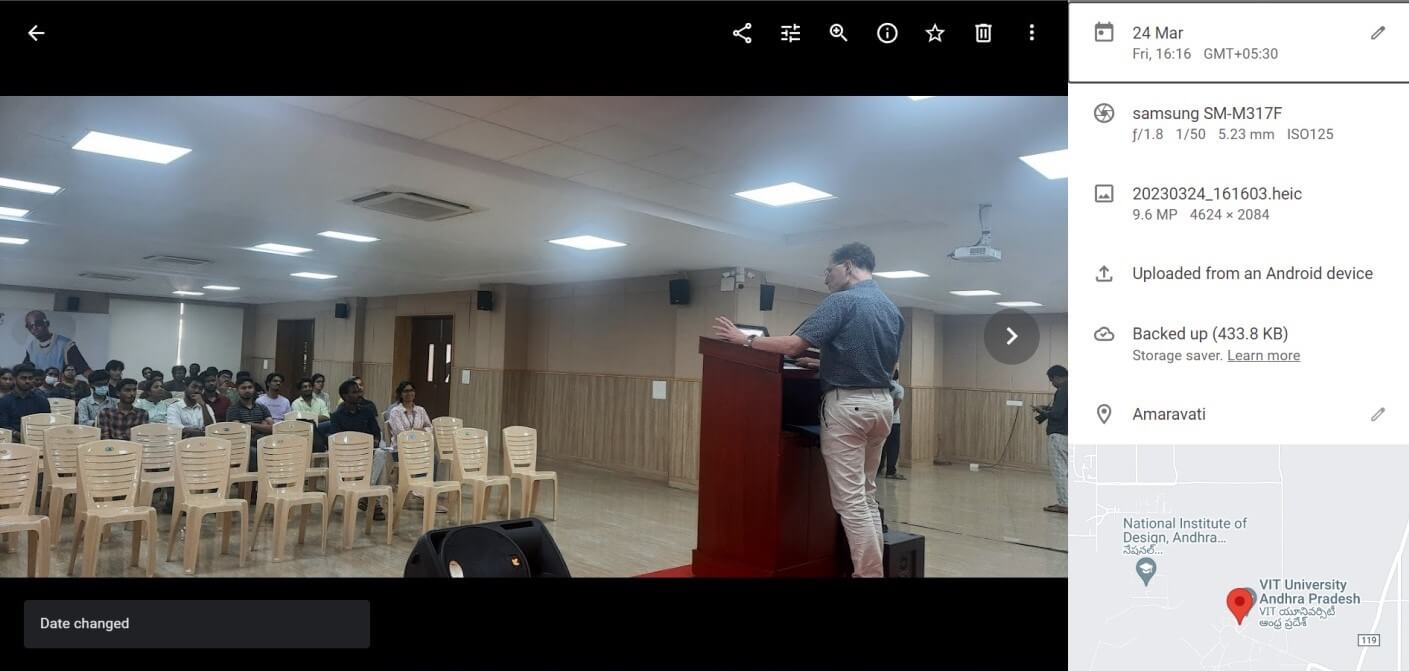
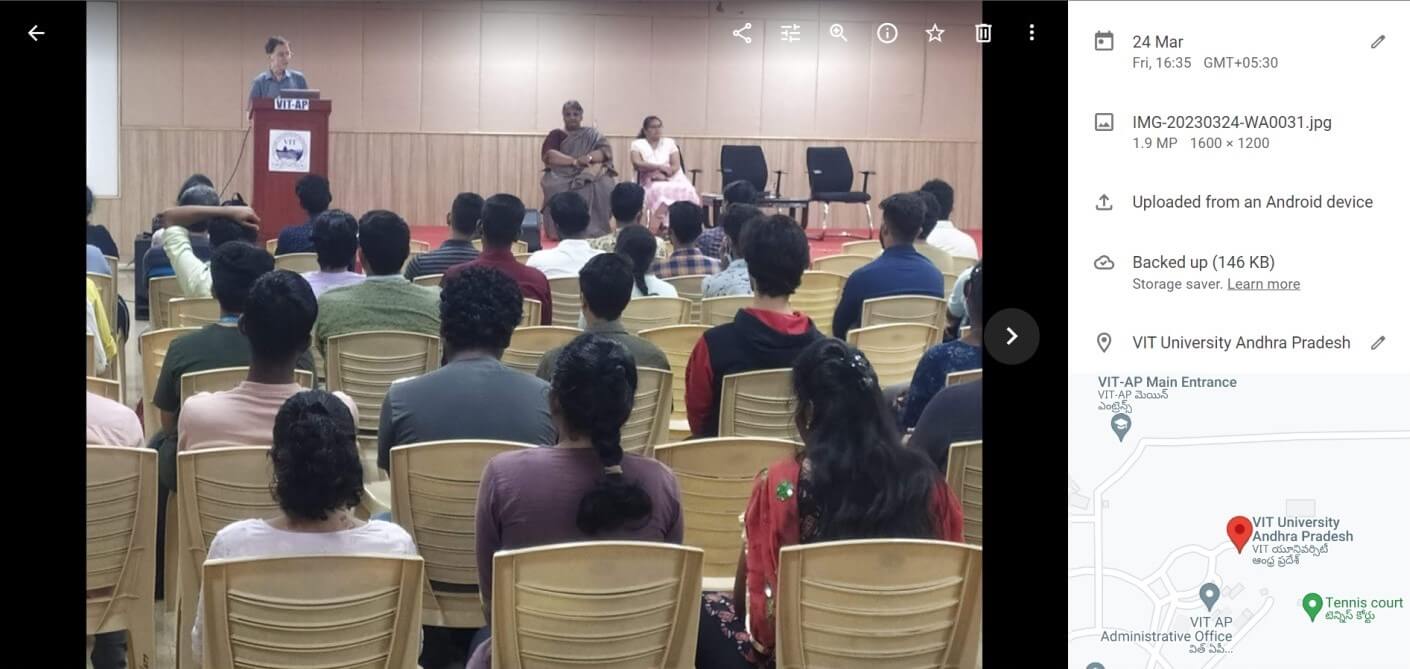
Workshop
Doing Digital Humanities: A Workshop on SPSS and QGIS
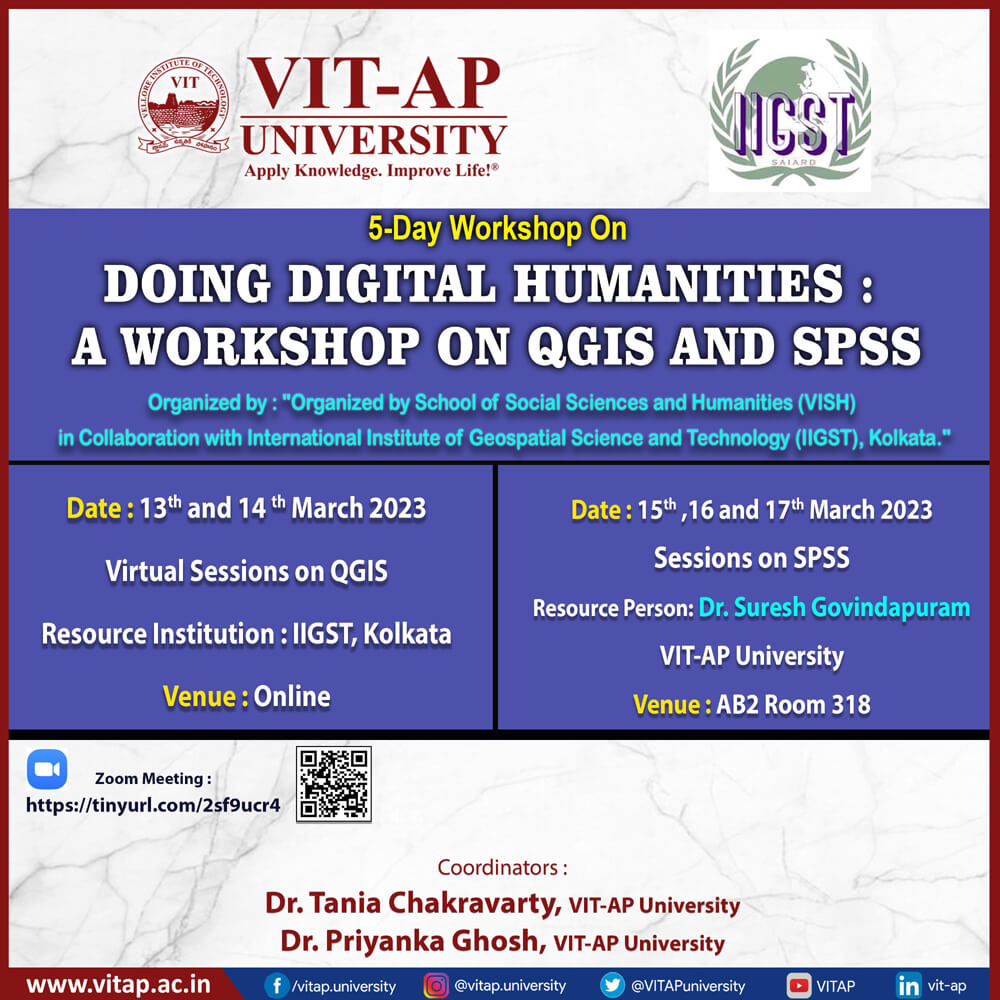
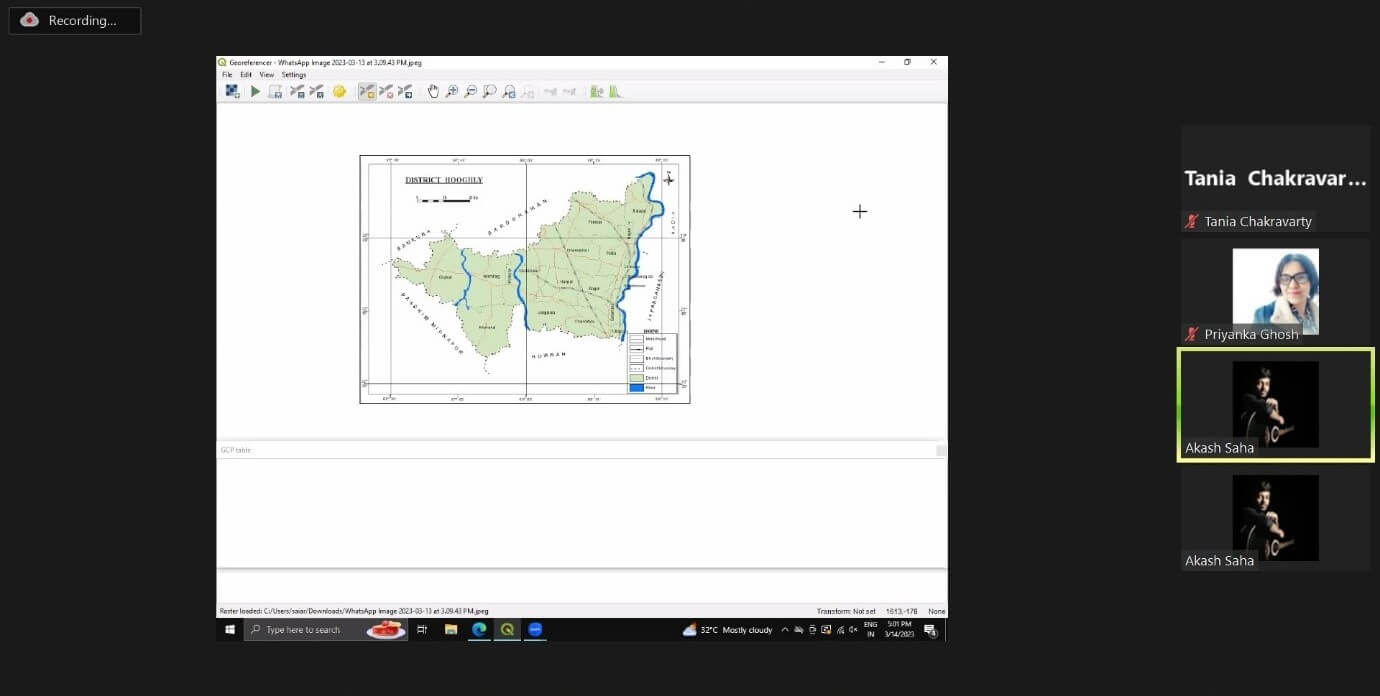
A 5-day workshop on Doing Digital Humanities: A Workshop on SPSS and QGIS was organised by VIT-AP School of Social sciences and Humanities (VISH), VIT-AP University from 13 March to 17 March, 2023 in collaboration with International Institute of Geospatial Science and Technology (IIGST), Kolkata. On 13 th and 14 th March, sessions on QGIS were conducted by Mr Aakash Saha, IIGST. He showed the participants how to operate QGIS, geo-reference a map and add shapefile layer to it. On 15, 16, and 17 March, Dr Suresh Govindapuram, Assistant Professor, VIT-AP University, conducted sessions on SPSS. He explained and demonstrated how SPSS can be effectively used to big data management. The objective of the workshop was to introduce participants to the use of digital tools in Social Science and Humanities research. In course of the 5 day workshop, resource persons discussed the concepts of QGIS and SPSS and its importance in gathering, analysing and structuring data. Participants were also given hands-on experience in QGIS and SPSS so that they can explore possibilities for new forms of research in Social Sciences and Humanities, by themselves. The workshop was co-ordinated by Dr Tania Chakravarty and Dr Priyanka Ghosh.
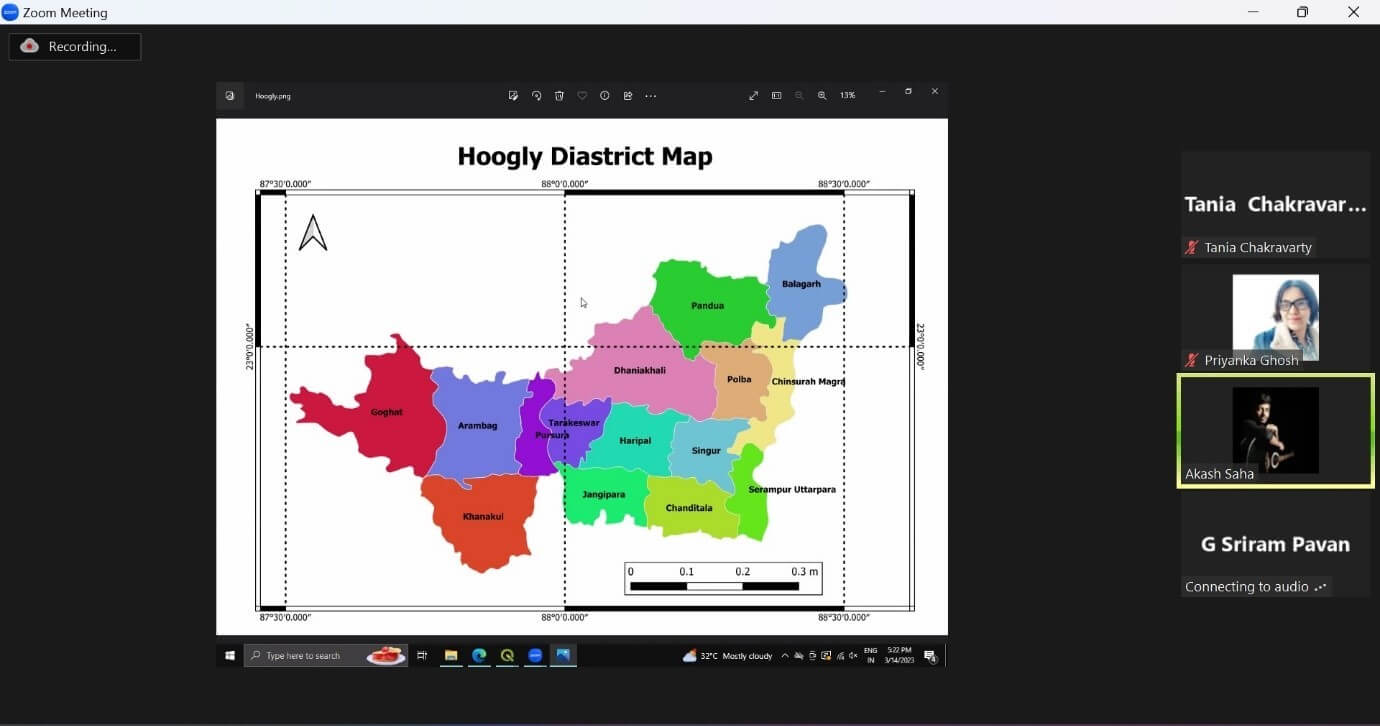
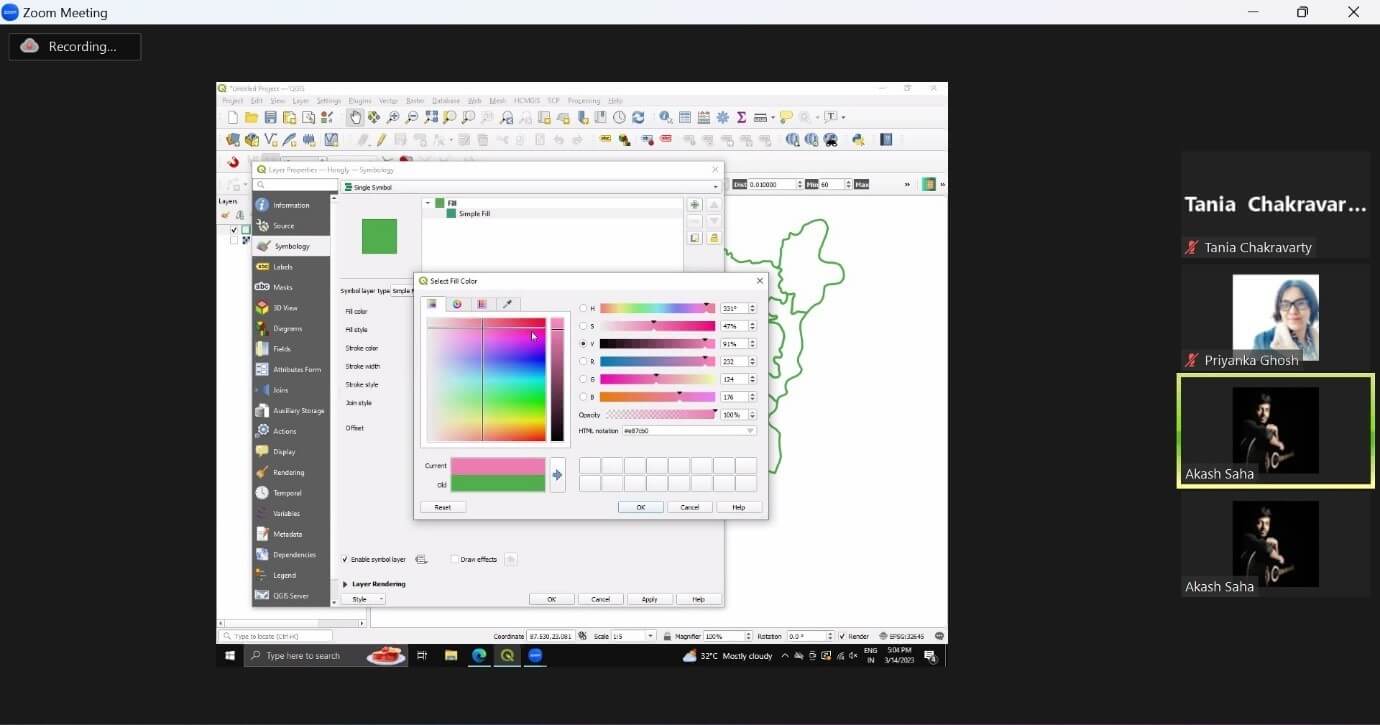
Hands-on Workshop
How to Polish your Academic Writing
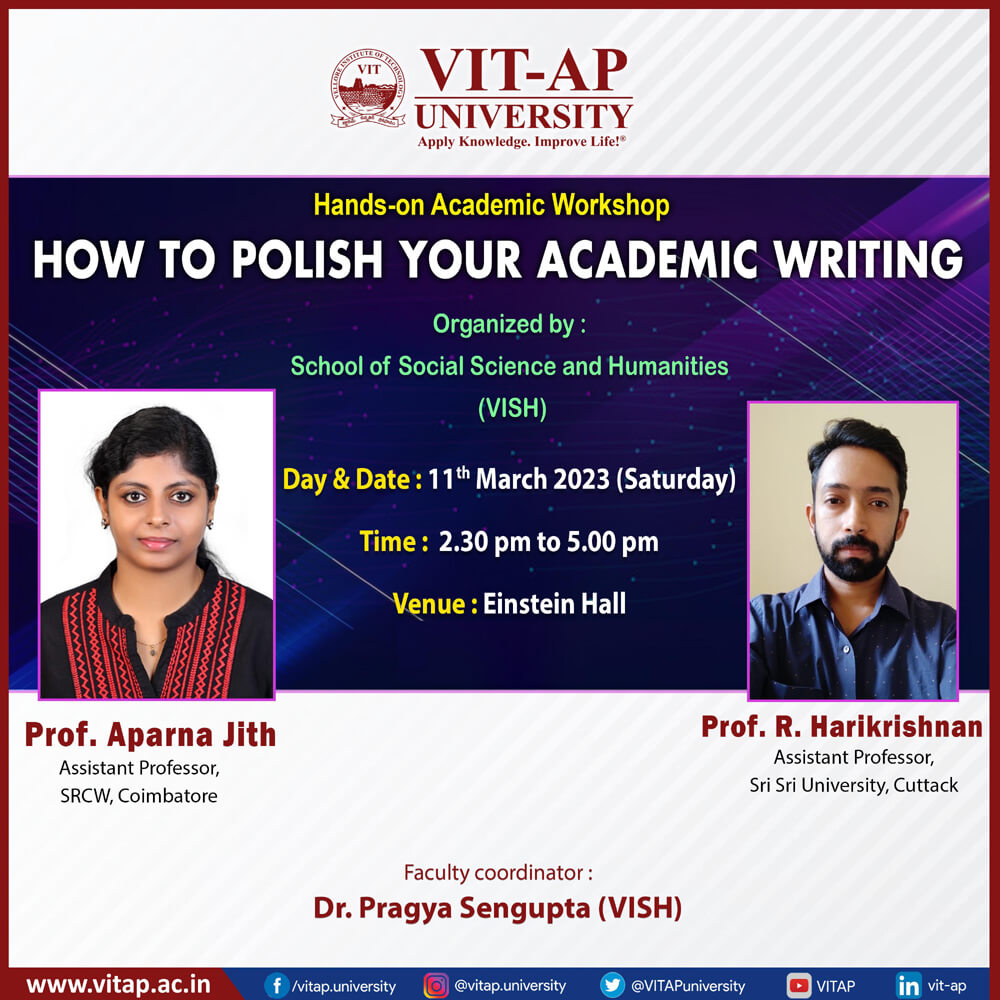
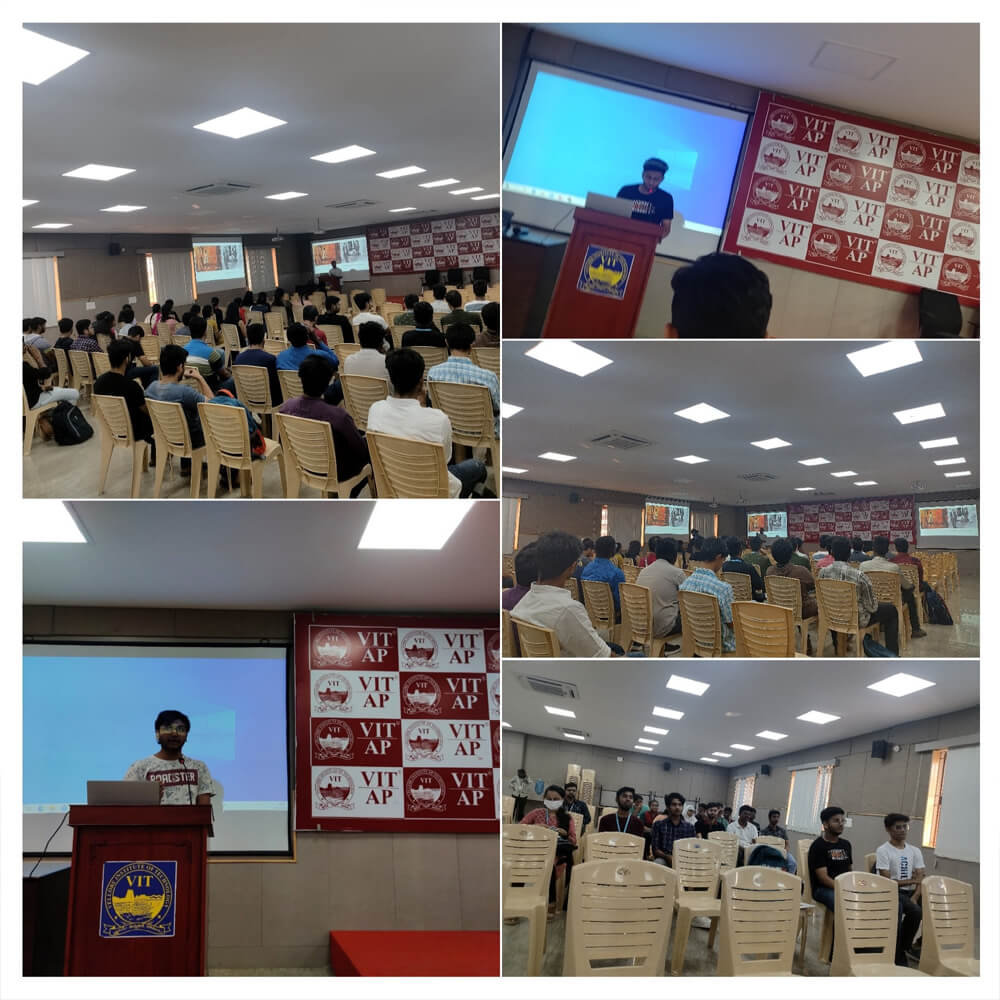
A Hands-on Academic Workshop on ‘How to Polish your Academic Writing’ was organized by the School of Social Sciences and Humanities, VIT-AP University on 11 March 2023 at Einstein Hall. The first session of the workshop (2.30 pm to 3.30 pm) was conducted by Prof. Aparna Jith who instructed the students on Academic Referencing Styles. The students were briefed on formatting, plagiarism and introduction to different stylesheets including, MLA, APA, Harvard, Chicago, IEEE, ASA, and LSA followed by a detailed discussion on APA and Chicago Style.
The next session was guided by Prof. R Harikrishnan (from 3.30 pm to 4.30 pm) who addressed the students on Technical Communication across cultures. He directed the students on ethical and legal issues, the different bodies of laws including copyright, trademark contract, and liability, usage of social media ethically and legally, and communicating ethically across cultures. At the end of these two sessions, the students were given some tasks, including description of photographs in cross-cultural scenarios and changing referencing styles from Chicago to APA. After the tasks, the session was open for audience interaction.
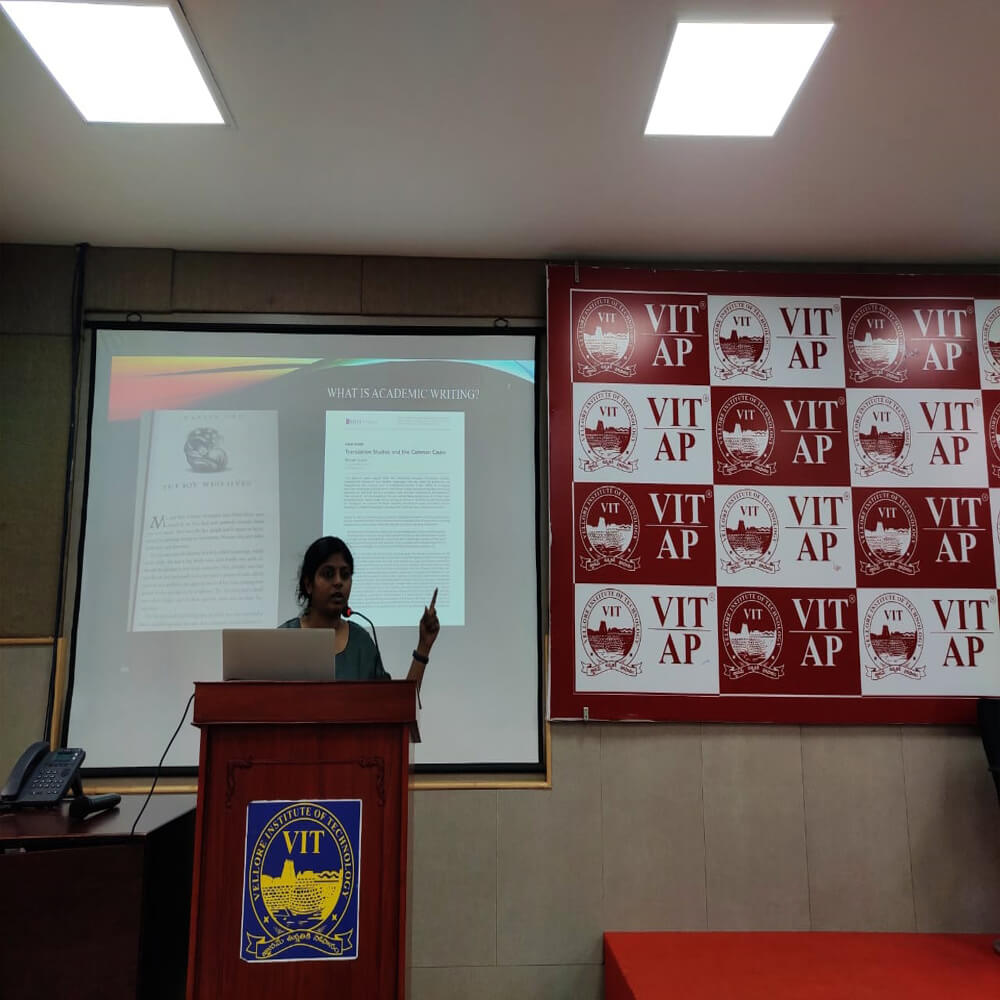
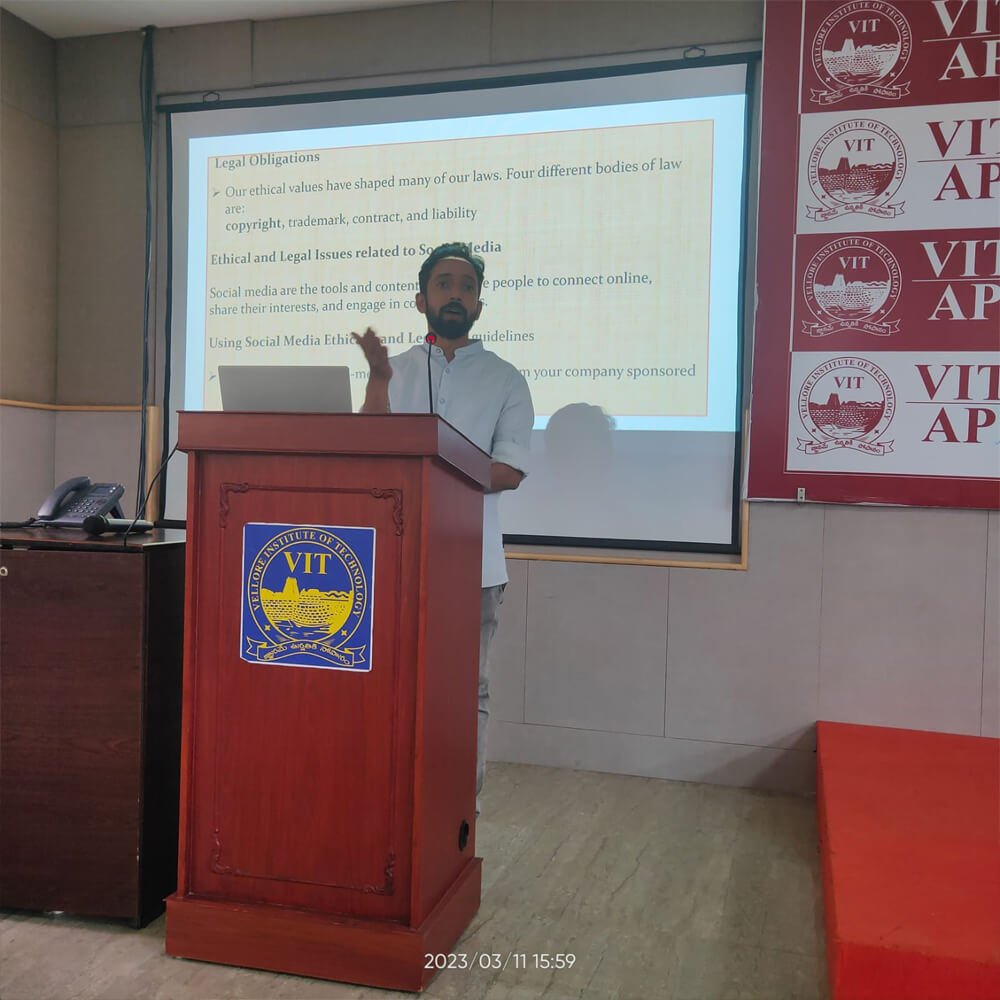
Foreign Guest Lecture
A Geographic Perspective on Myanmar
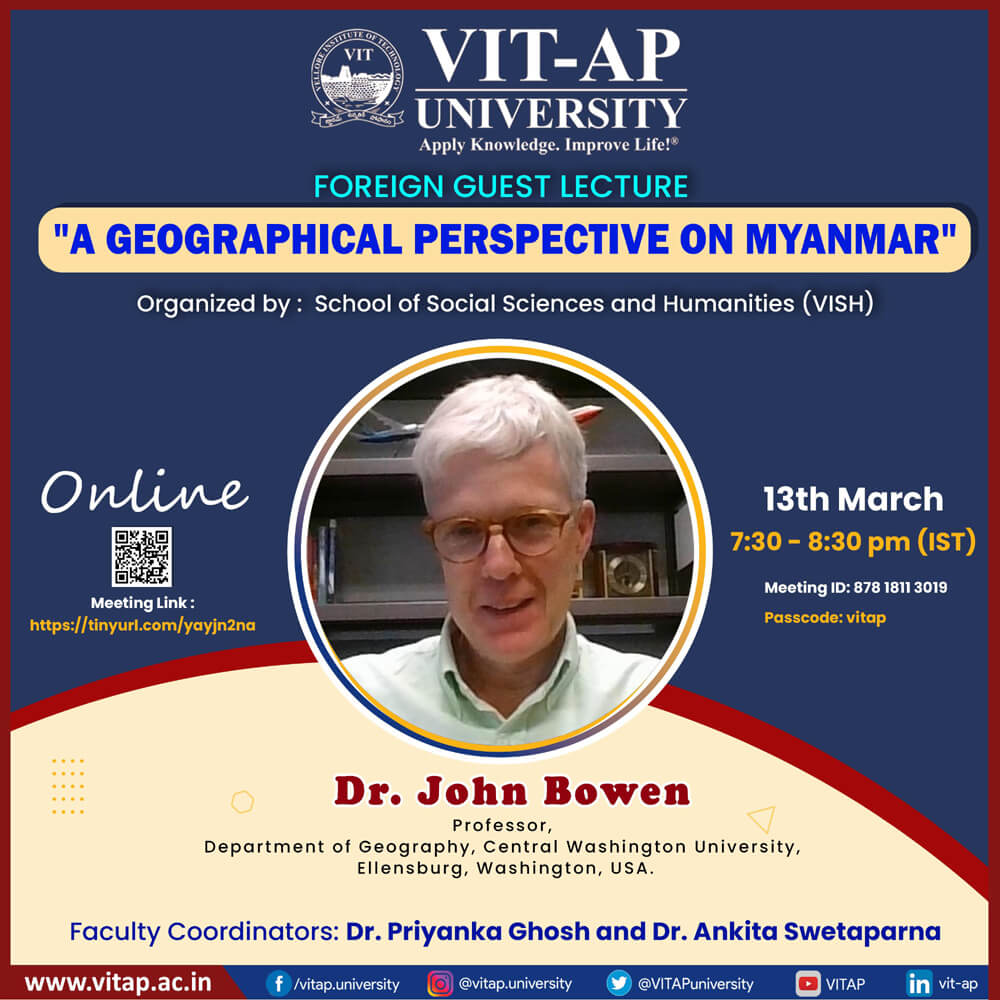
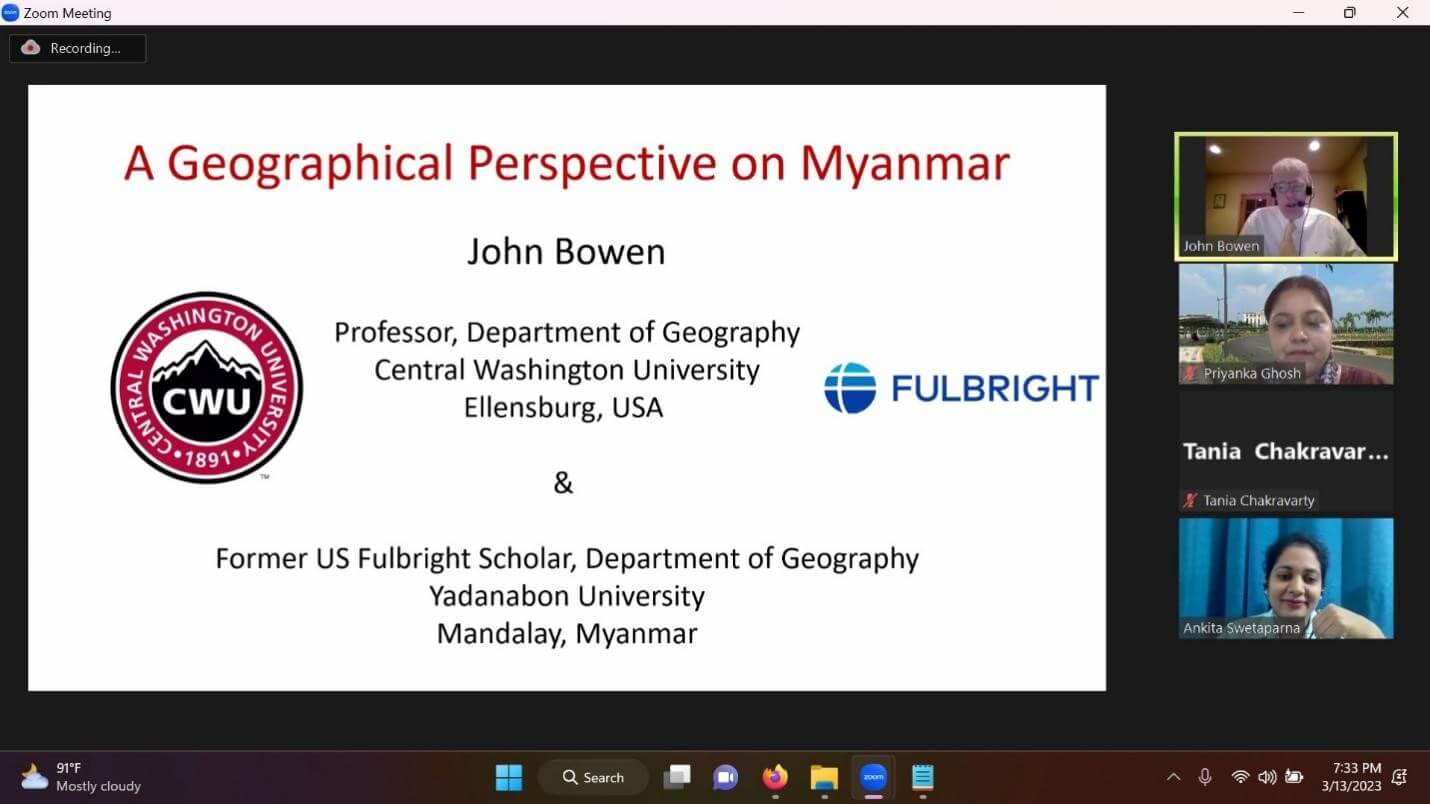
On Monday, March 13, 2023, Dr. John Bowen, a professor in the Department of Geography at Central Washington University in Ellensburg, Washington, USA, delivered an invited lecture titled “A Geographic Perspective on Myanmar”. During his lecture, Dr. Bowen covered a range of themes including the country’s geographic situation, climate, natural hazards, population, cultural diversity, military repression, and poverty. He drew parallels between India and Myanmar, and provided detailed information about the physical geography of the country, specifically tropical cyclones. Dr. Bowen also elaborated on the ethnic and cultural diversity of Myanmar, highlighting the mistreatment of certain ethnic groups such as Burmans during the British colonial era. He provided insights into the political trajectory of Myanmar since its independence, culminating in the recent coup in 2021. Overall, his lecture provided new insights into the diversity of Myanmar and helped listeners view the country from a fresh perspective. The invited lecture was coordinated by Dr. Priyanka Ghosh and Dr. Ankita Swetaparna.
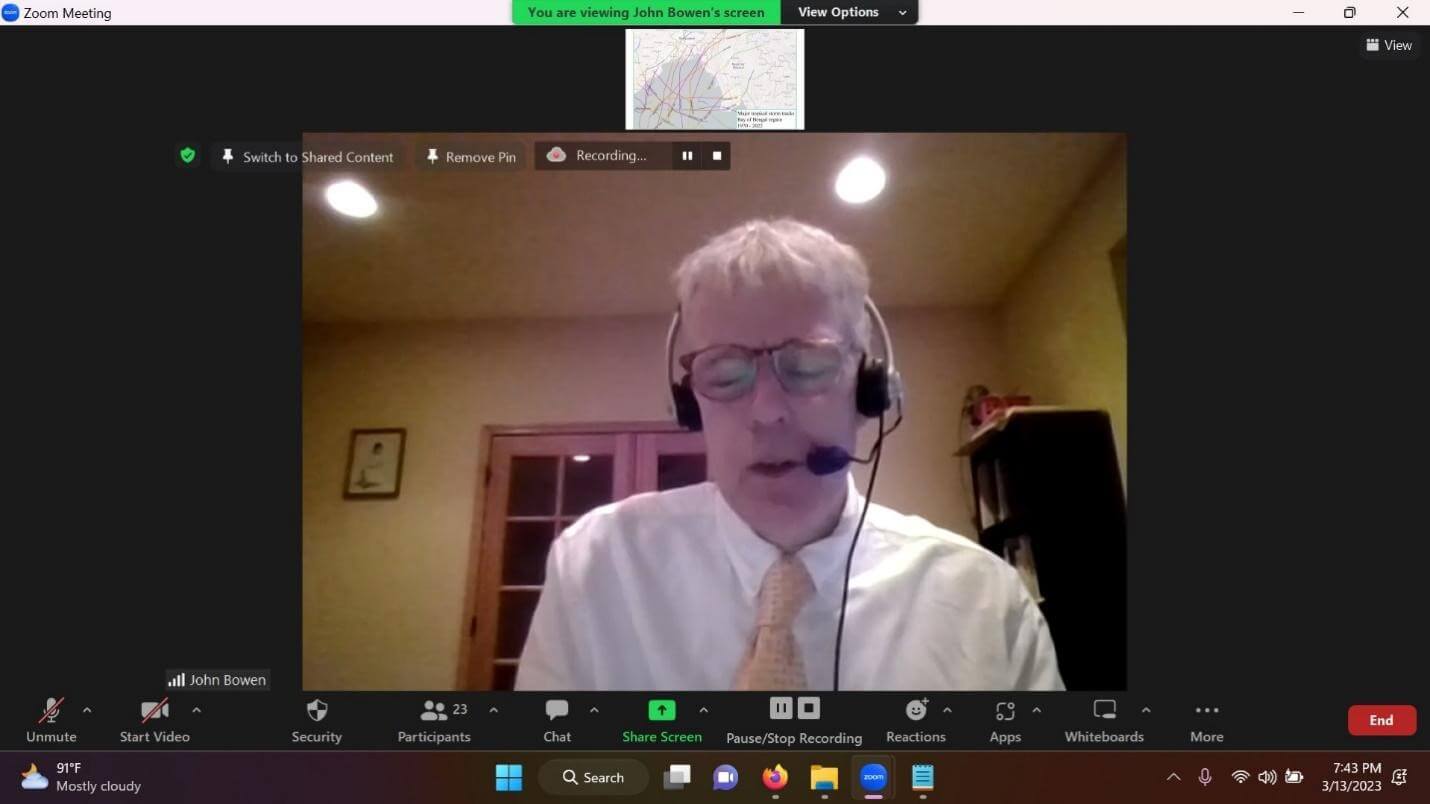
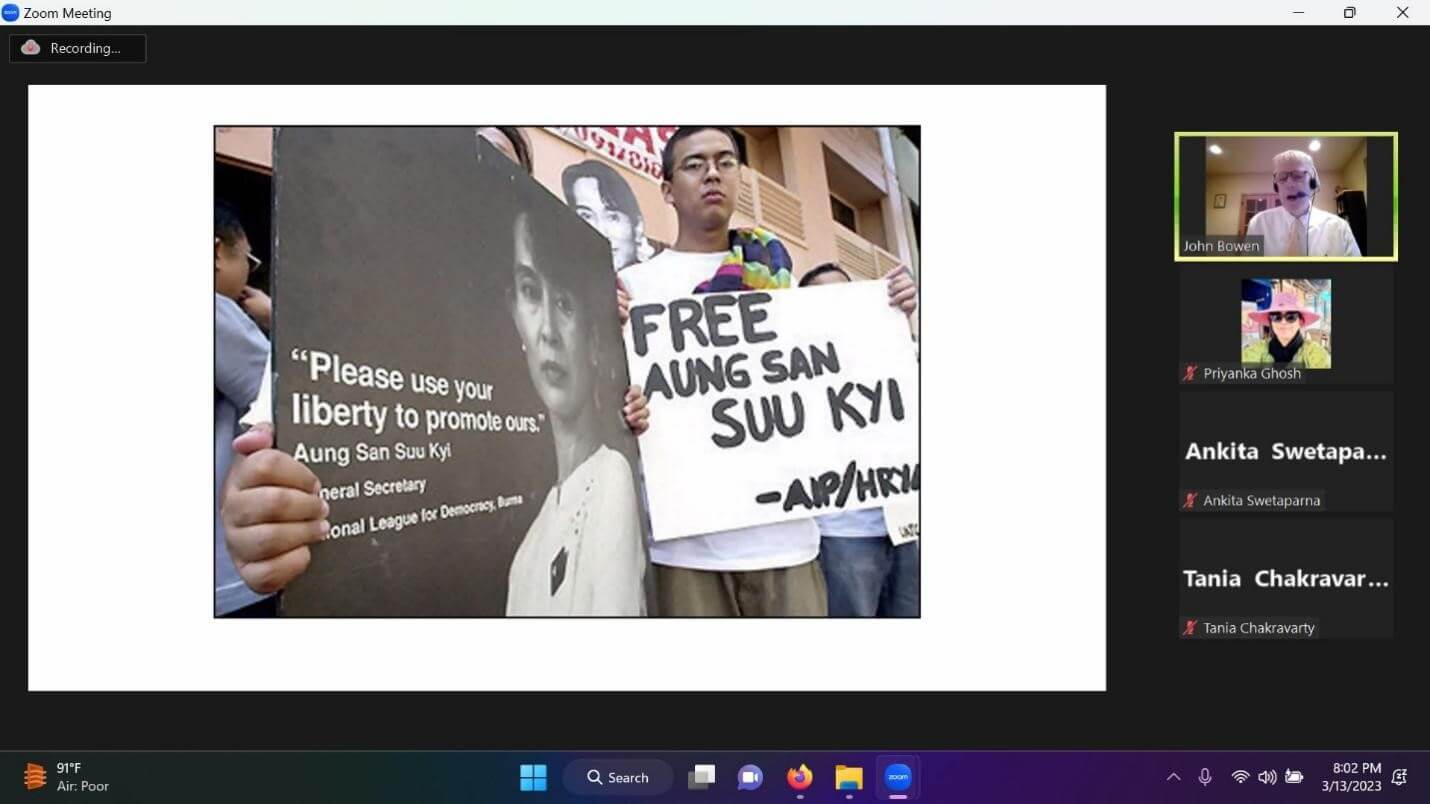
Guest Lecture
From Story to Screen: Directing A Short Film
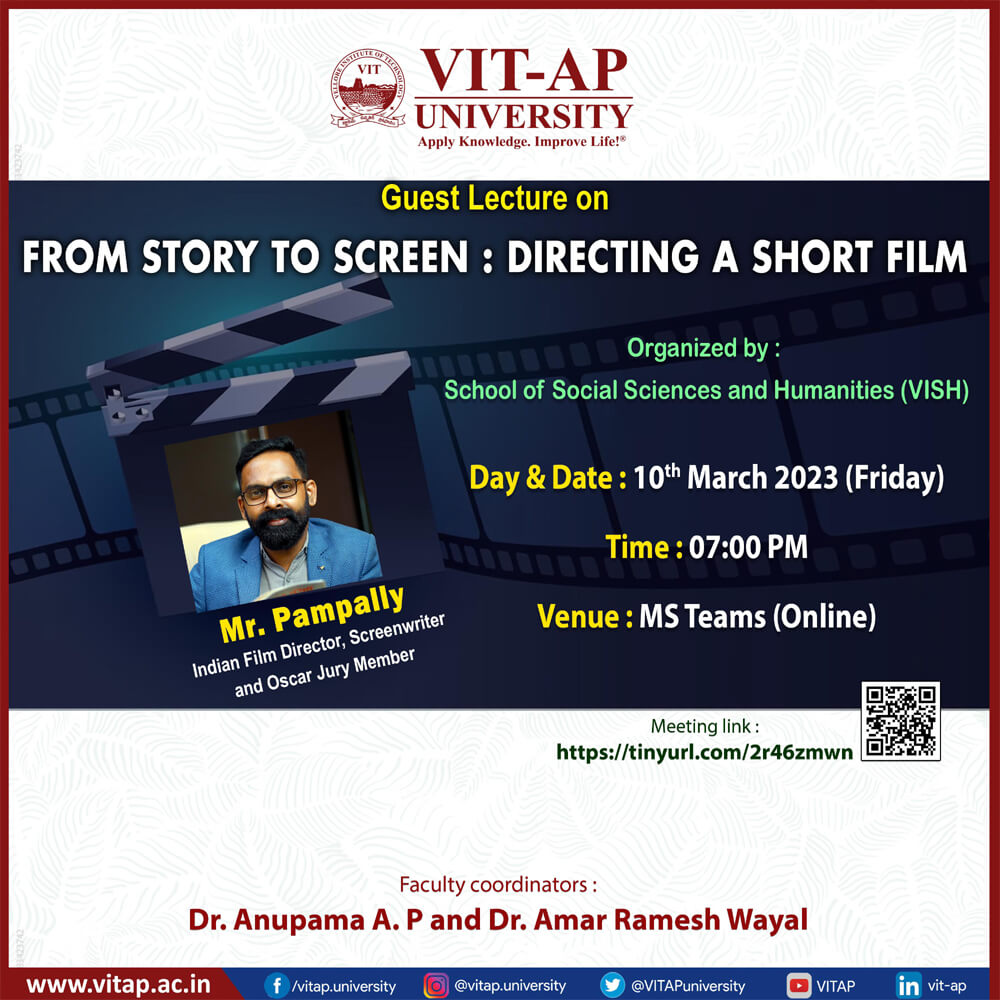
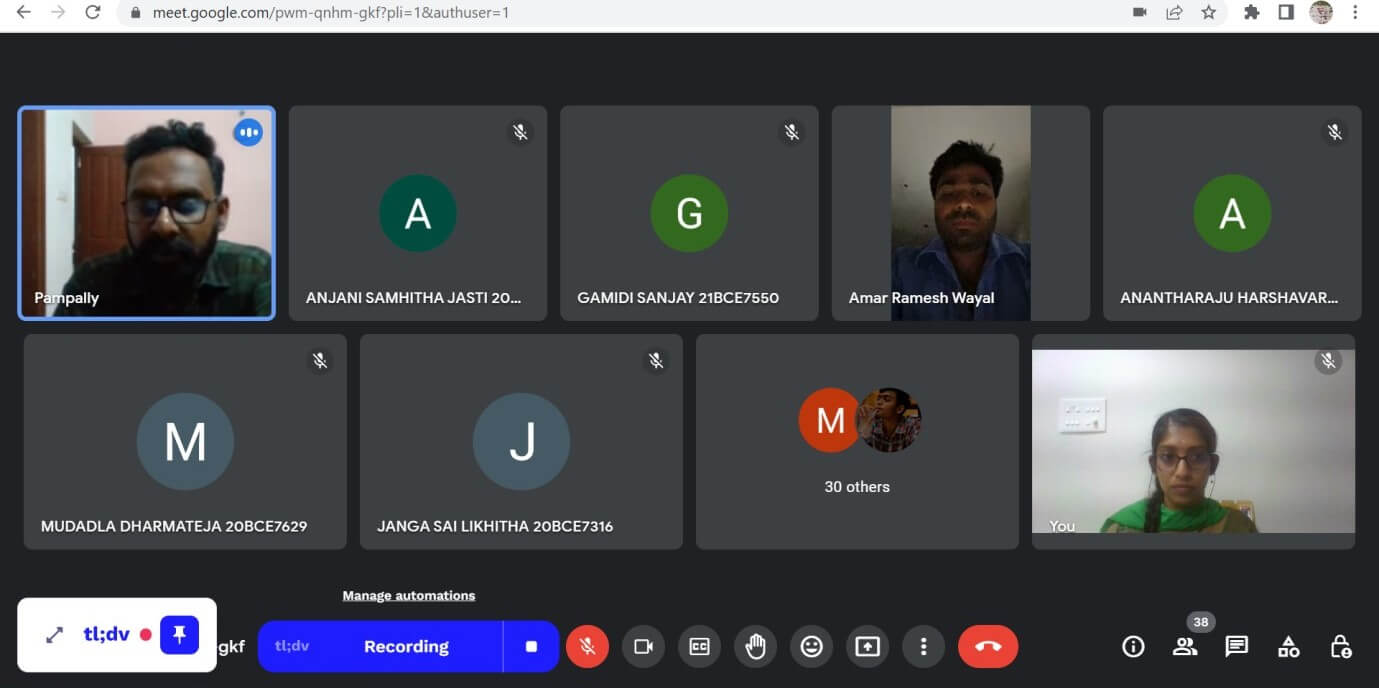
The guest lecture on “From Story to Screen: Directing A Short Film” was organised by the School of Social Sciences and Humanities, VIT-AP University. The talk was given by Mr. Pampally. He is an Indian Film Director, Screenwriter, Oscar Jury Member and the winner of more than thirty-five national and international awards for his contributions in the fields of literature and cinema. He was the recipient of two prestigious awards at the 65th National Film Awards ceremony, which honoured the best films of 2018.
The speaker enlightened the students by imparting knowledge on how to direct a short film, capture the attention of the audience, use dynamic camera work, and write a script. Most significantly, the speaker in this talk expounded on the concepts of location, issues, budget, subject, and storyline. He made the students understand that the technique for directing short films is one of the most straightforward showcases of a filmmaker’s talent. The industry guest lecture was coordinated by Dr. Anupama A. P. and Dr. Amar Wayal
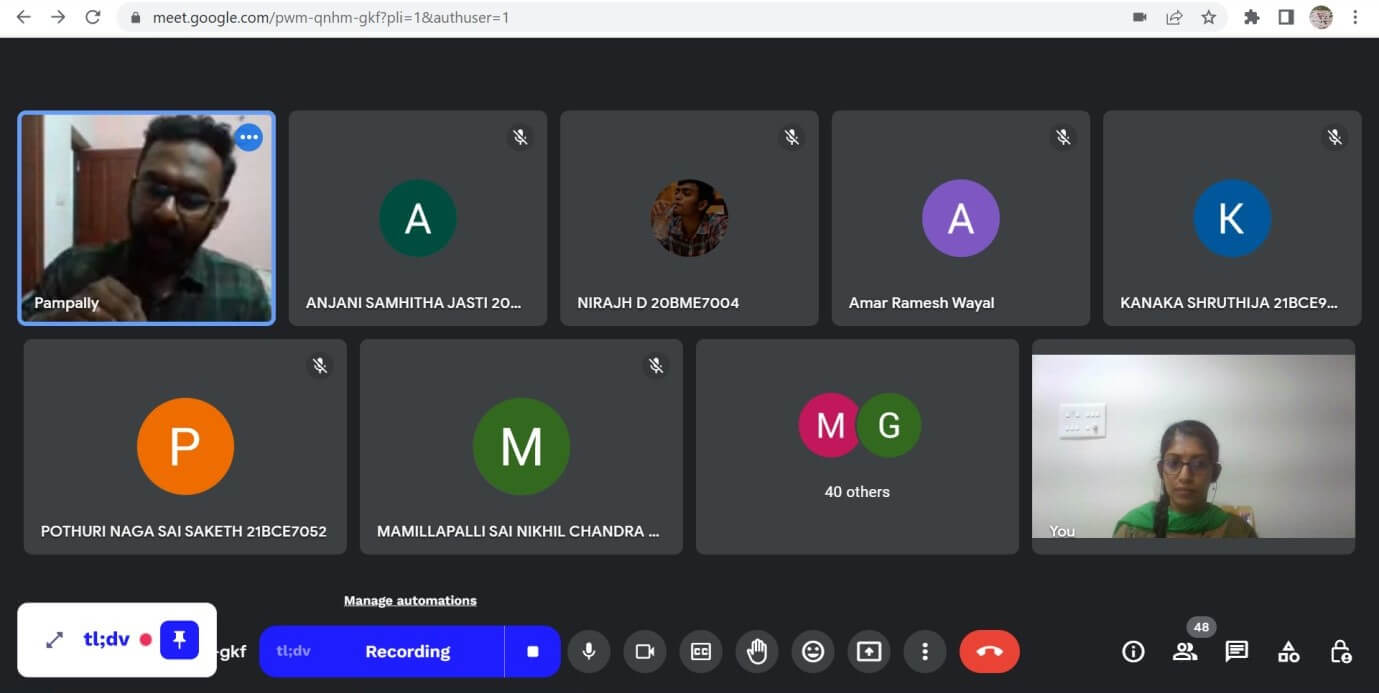
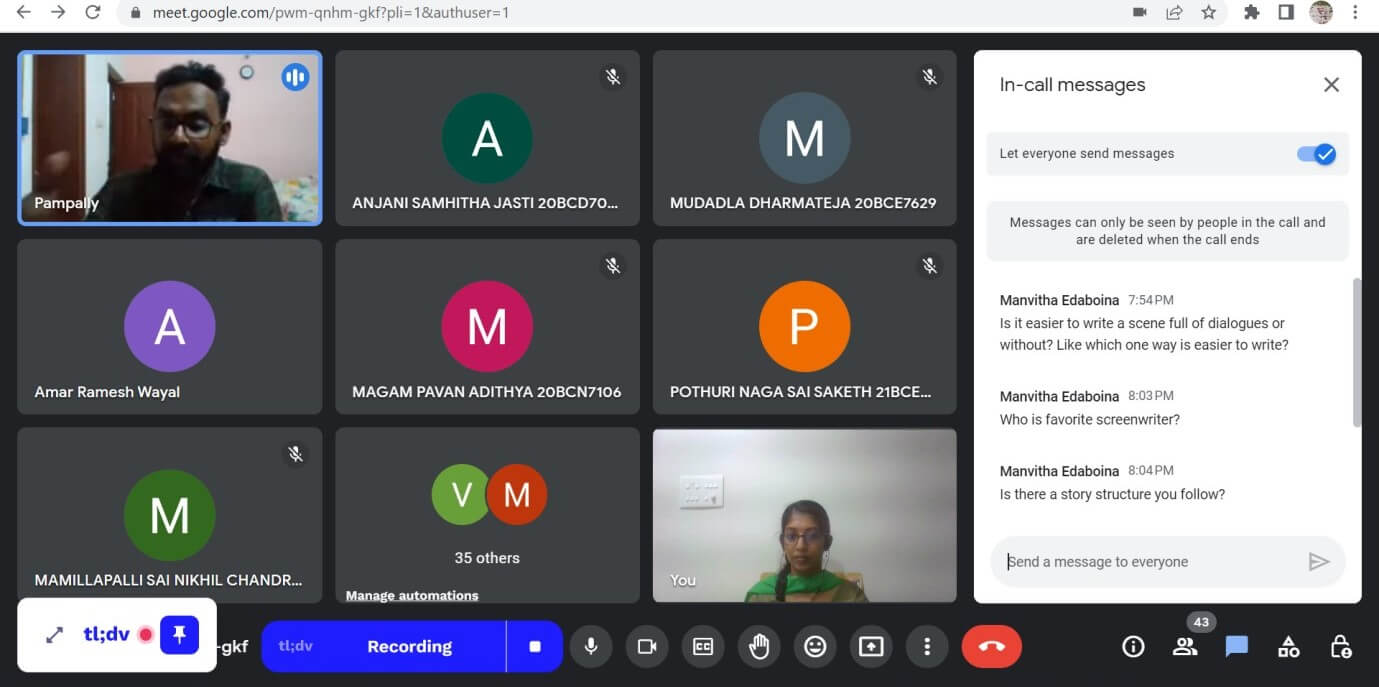
Industry Guest Lecture
Digital Transformation in Agriculture: Scope and Potential for Entrepreneurship
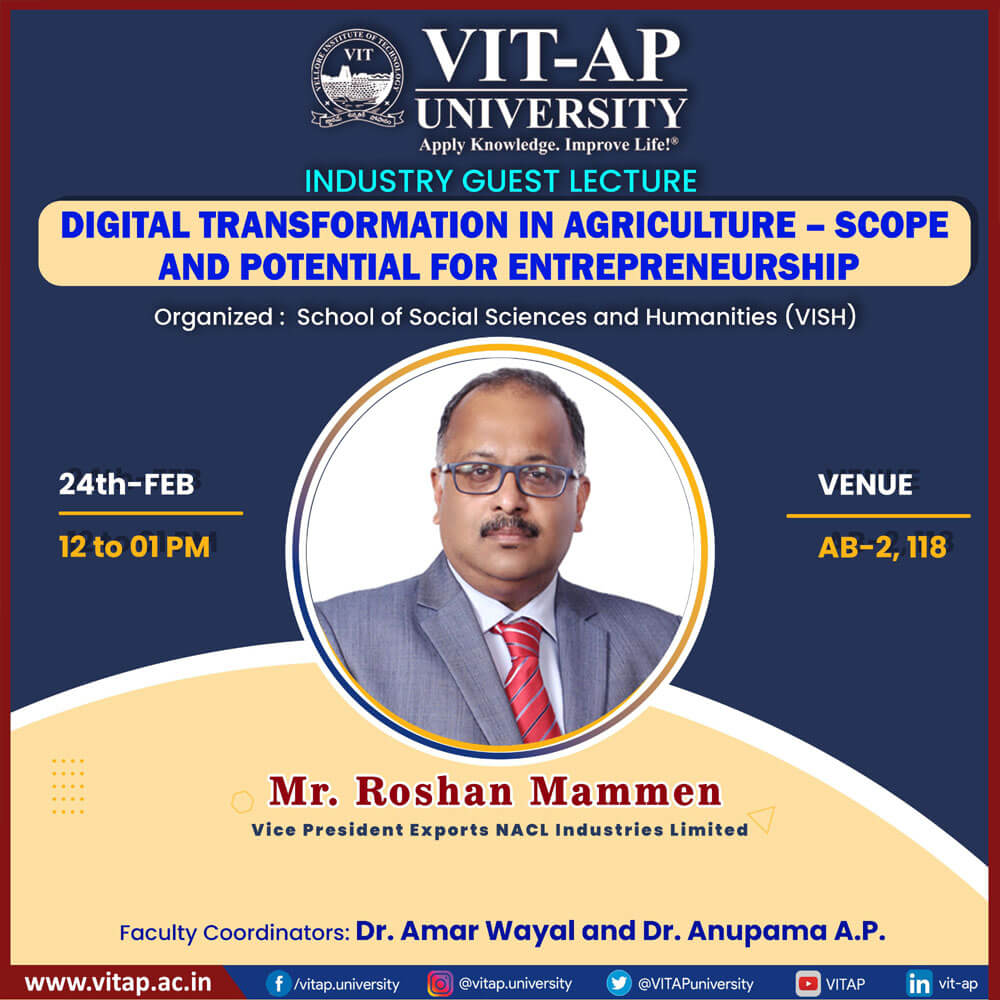
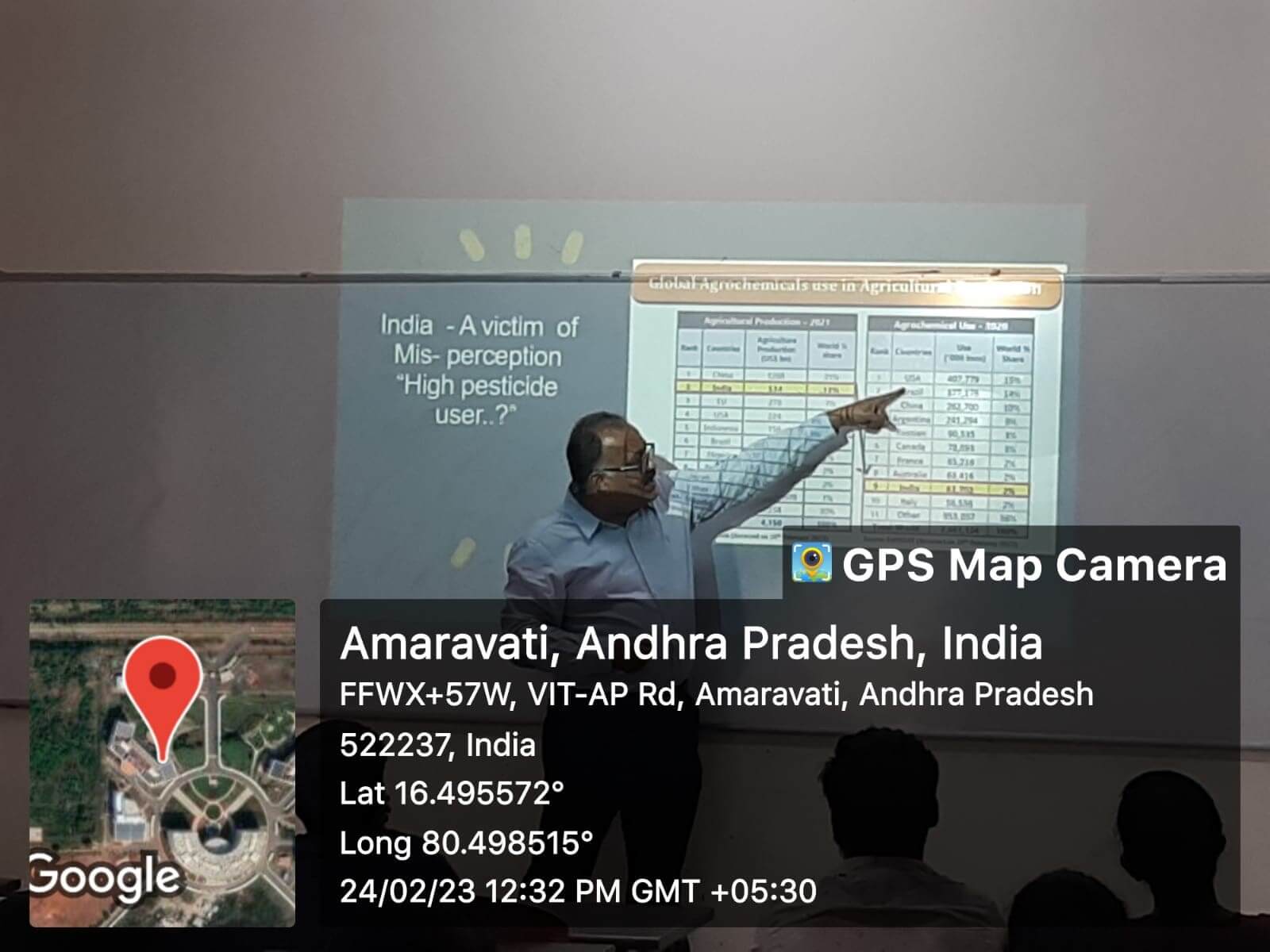
The industry guest lecture on “Digital Transformation in Agriculture: Scope and Potential for Entrepreneurship” was organised by the School of Social Sciences and Humanities, VIT-AP University on February 24, 2023 at 12:00 pm. The talk was given by Mr. Roshan Mammen, Vice President for Exports in the NACL industry. His scholarship appears in the Latin American market with 22 years of experience in the agri-input industry, the domestic market, and international businesses.
The speaker enlightened the students by imparting knowledge of entrepreneurship, start-ups, and their vital role in agriculture and discussing the ways of pitching ideas to investors for funding their businesses. The speaker familiarised students with various concepts used in understanding processes involved in entrepreneurship and business formation and development. He made the students understand the digital transformation of the agricultural world into the digital world and focus on those technologies to get jobs in various sectors. The industry guest lecture was organised by Dr. Amar Wayal and Dr. Anupama A. P.
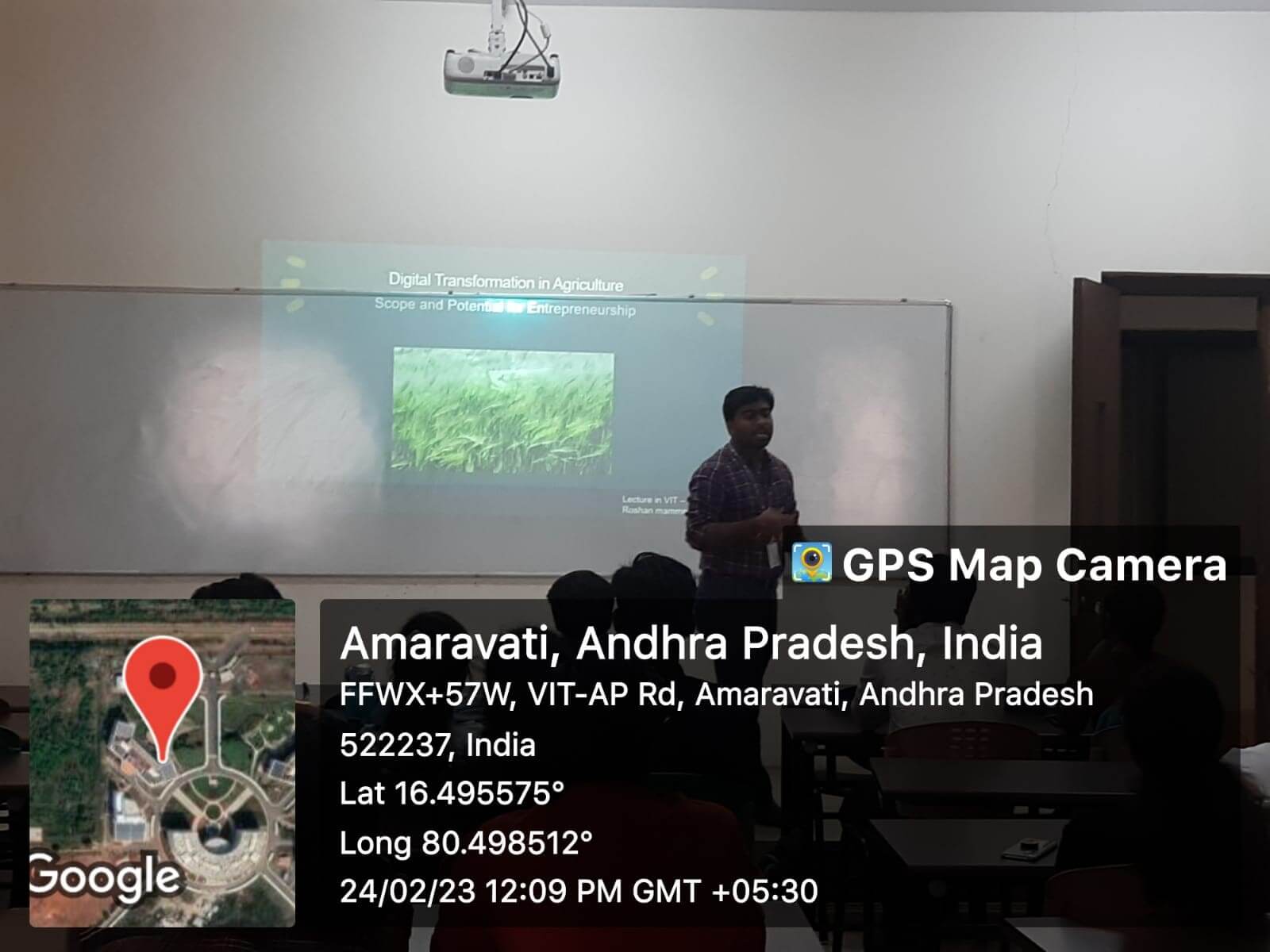
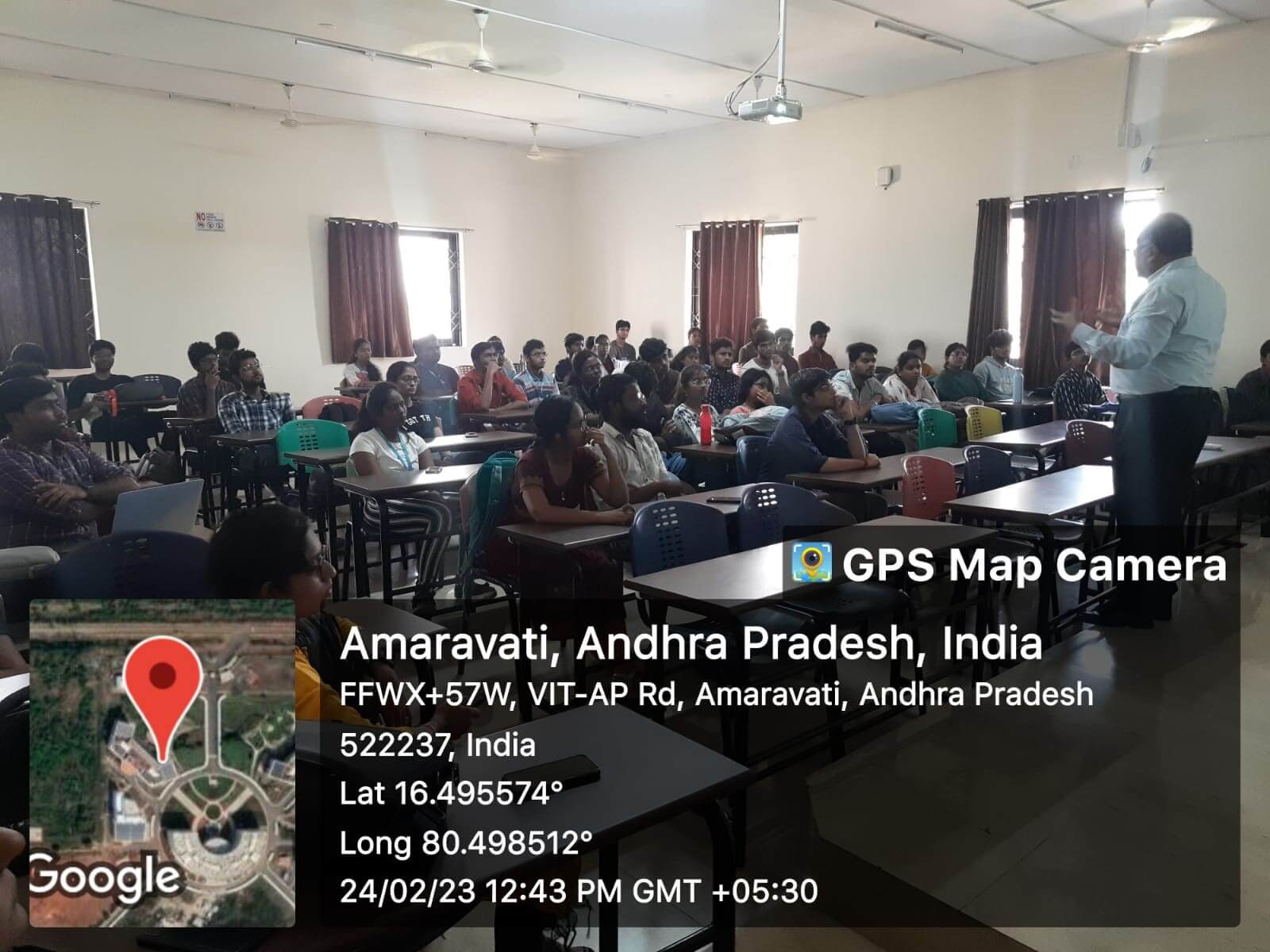
International Webinar
Travel through Academic Lens
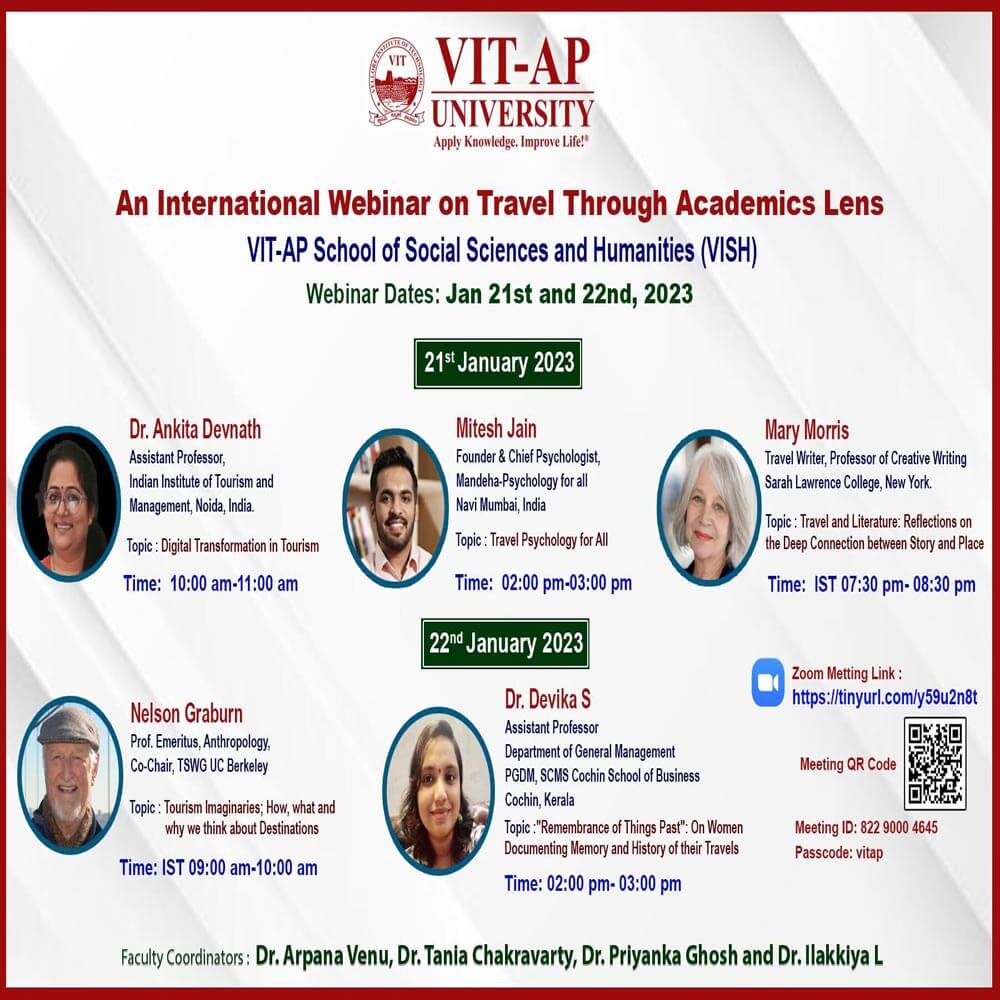
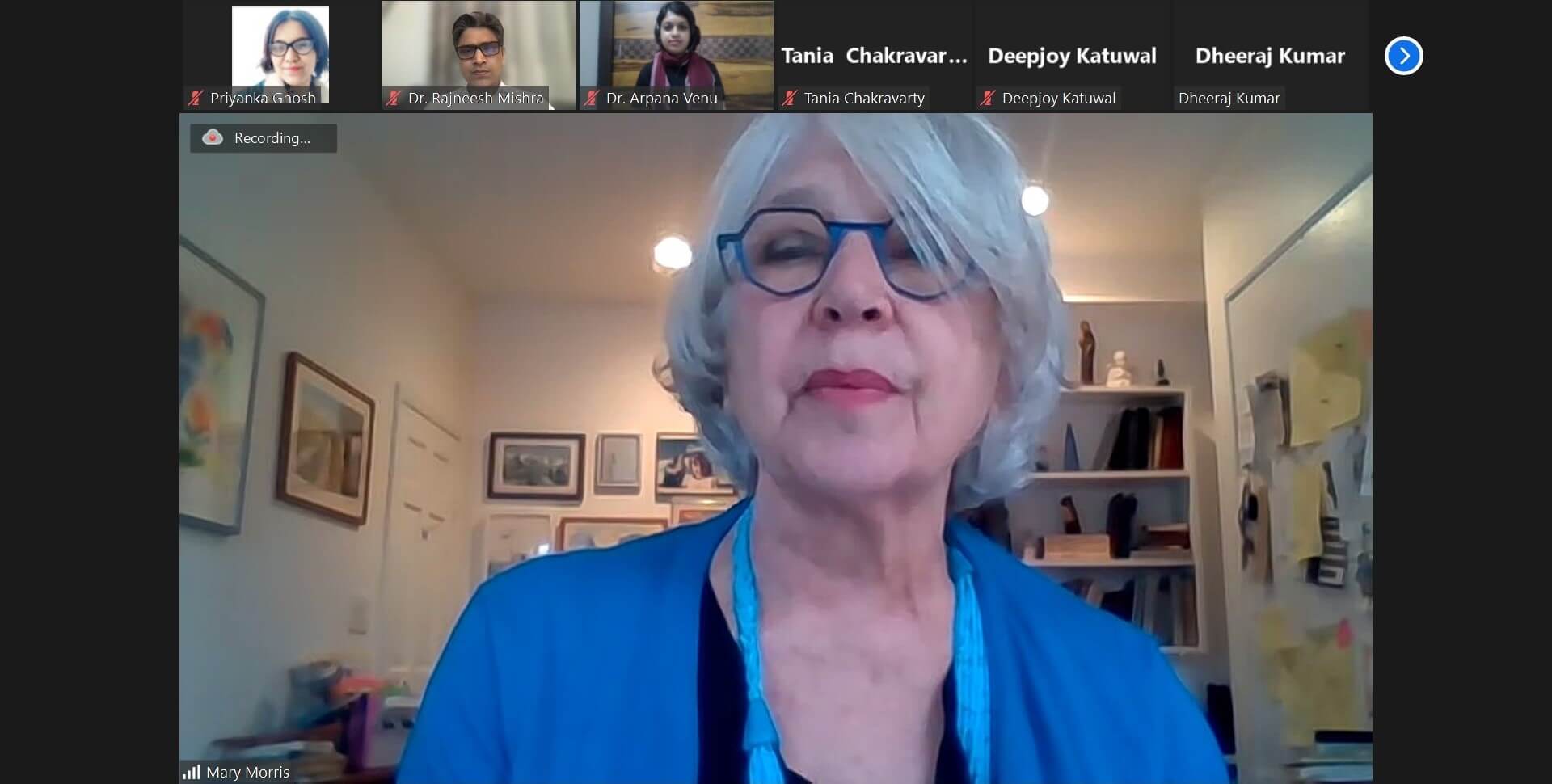
An International Webinar titled, “Travel through Academic Lens” was conducted by VISH on January 21st and 22nd, 2023 via the Zoom platform. Dr. Rajneesh Mishra, Dean, VISH welcomed the gathering and shared his ideas on travel and its relevance in the contemporary times. The first session of the webinar (10:00 am-11:00 am) was titled “Digital Transformation in Tourism” by Dr. Ankita Devnath. She elaborated on the digital transformation in the tourism industry, the online travel ecosystem, and the digital solutions to change the course of travel/tourism. The session was followed by a brief discussion. The second session (02:00-03:00 pm) was titled “Travel Psychology for all” and the speaker Mitesh Jain talked about the various travellers, their purpose of travel and the role of a travel psychologist in helping the travellers. The session was followed by a brief discussion. In the third session of the webinar (07:30-08:30pm), “Travel and Literature: Reflections on the Deep Connection between Story and Place”, the travel writer Mary Morris shared her travel experiences and read excerpts from her travel memoir. Her talk was followed by an interactive question and answer session.
The second day of the webinar (09:00-10:00 am) began with Prof. Nelson Graburn’s talk on “Tourism Imaginaries; How, what and why we think about Destinations. He elaborated on the ways by which tourism imaginaries differ from one traveller to the other. The final session (02:00-03:00 pm) of the webinar was on “Remembrance of Things Past: On Women Documenting Memory and History of their Travels” by Dr. Devika .S. She spoke about the ways by which European women travelled and documented their travel experiences. After a brief discussion, Dr. Susmitha Shyamsundar, Associate Dean, VISH, addressed the gathering and thanked the guest speakers, the organizers and the participants of the webinar for its successful completion. Dr. Arpana Venu proposed the official vote of thanks. The webinar was coordinated by Dr. Arpana Venu, Dr Tania Chakravarty, Dr. Priyanka Ghosh, and Dr. Ilakkiya L.
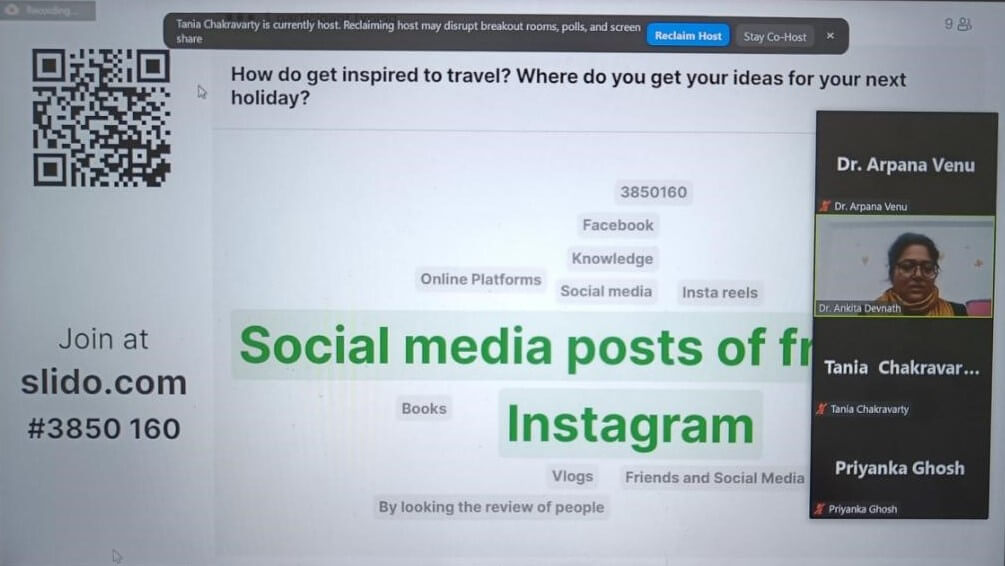
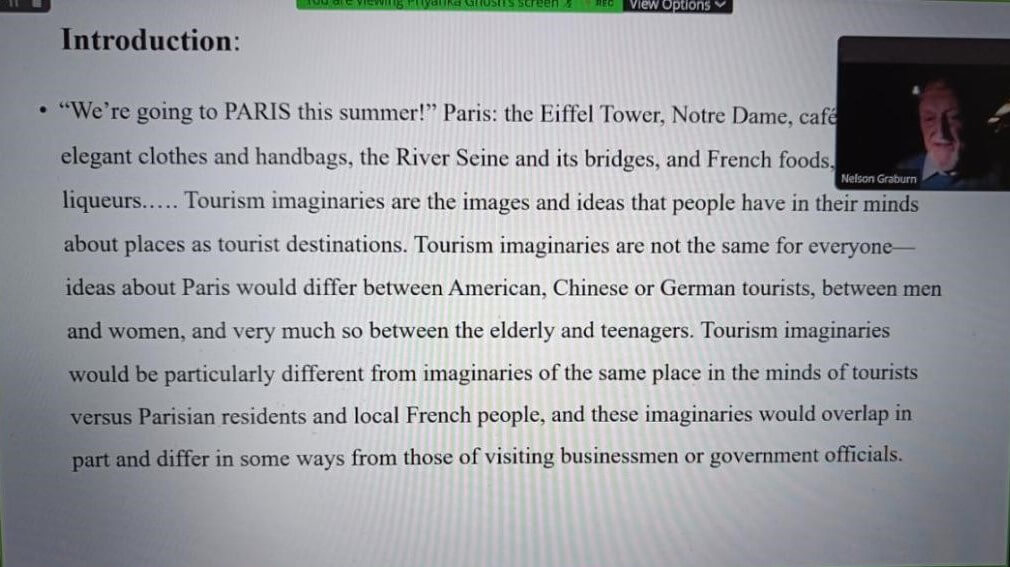
Guest Lecture
Mahlzeit!: Food in German Speaking Countries
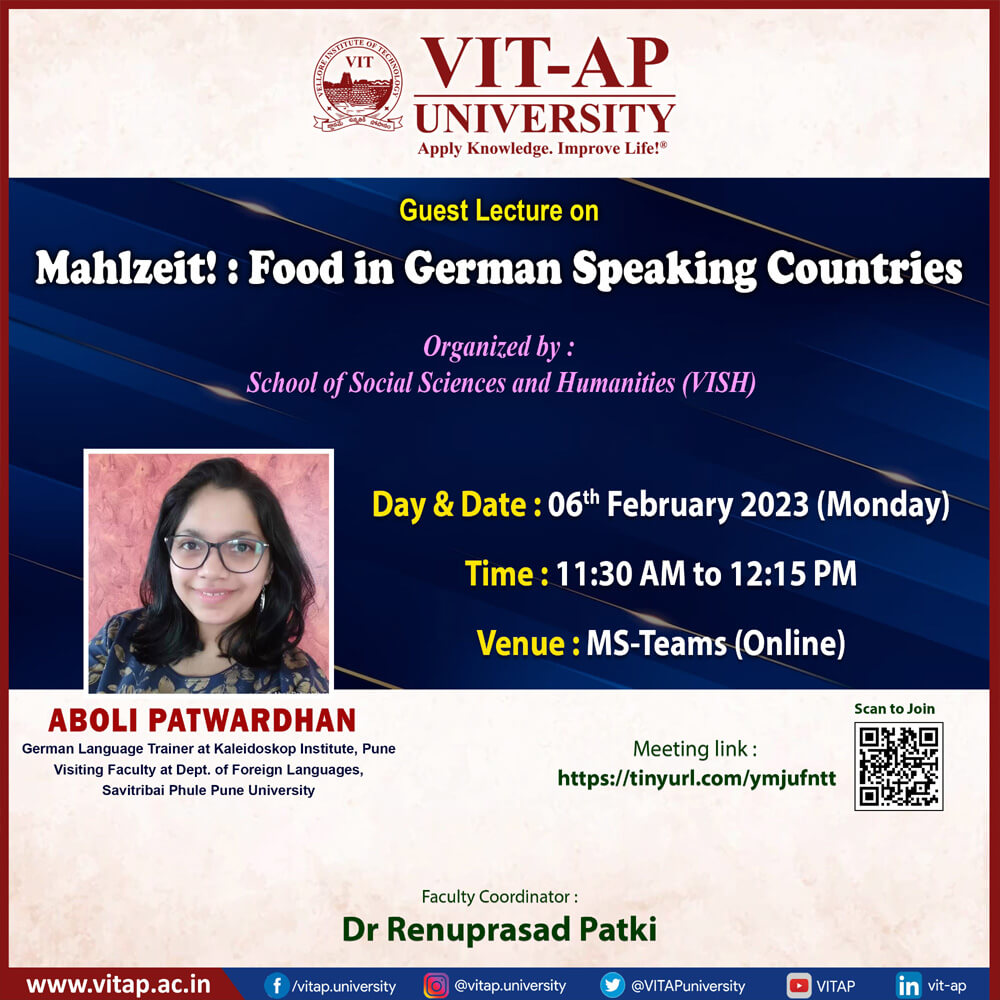
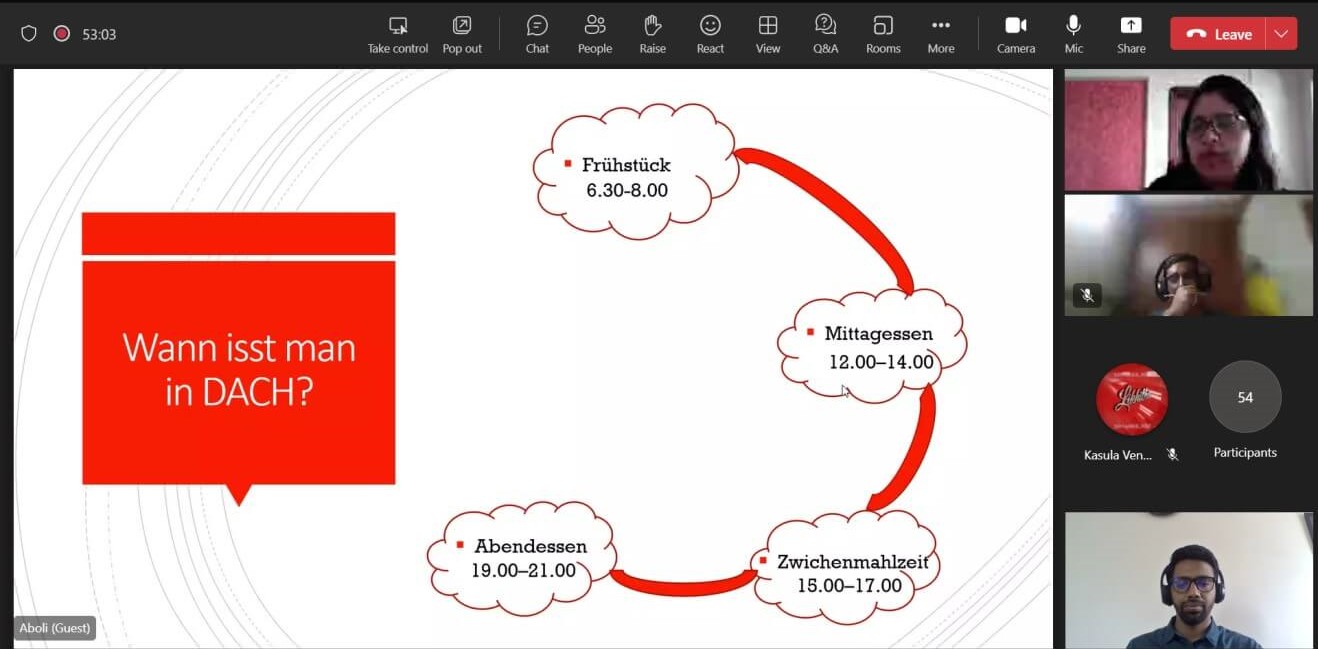
Aboli Patwardhan delivered a guest lecture on 6 February at 11.30 am to discuss the food culture and cuisine in German-speaking countries such as Germany, Austria and Switzerland. Aboli Patwardhan is a German language trainer from Pune, Maharashtra. She runs an institute called Kaleidoscope in Pune for German Language courses. She is also a visiting faculty at the German Section, Department of Foreign Languages, Savitribai Phule Pune University. The Guest Lecture was aimed at familiarizing the students with German cuisine and introducing vocabulary related to the same. The session began with a discussion about Indian food items that students love. The speaker then went on to discuss with the students the types of food that are important to German cuisine with the help of graphic representation. This included foods such as Gebackenes (Bakery Products), Milchprodukte (Dairy), meat & vegetables etc. The speaker also gave insights into German cuisine regarding the seasonal favourites and likes and dislikes of Germans out on her own experiences in Germany. This was followed by a discussion on the food habits of Germans e.g., German meals, timings, table manners, greetings as well as new trends in food. The session ended with an informative video about fun facts related to German food. The Guest lecture was organized by Dr Renuprasad Patki.
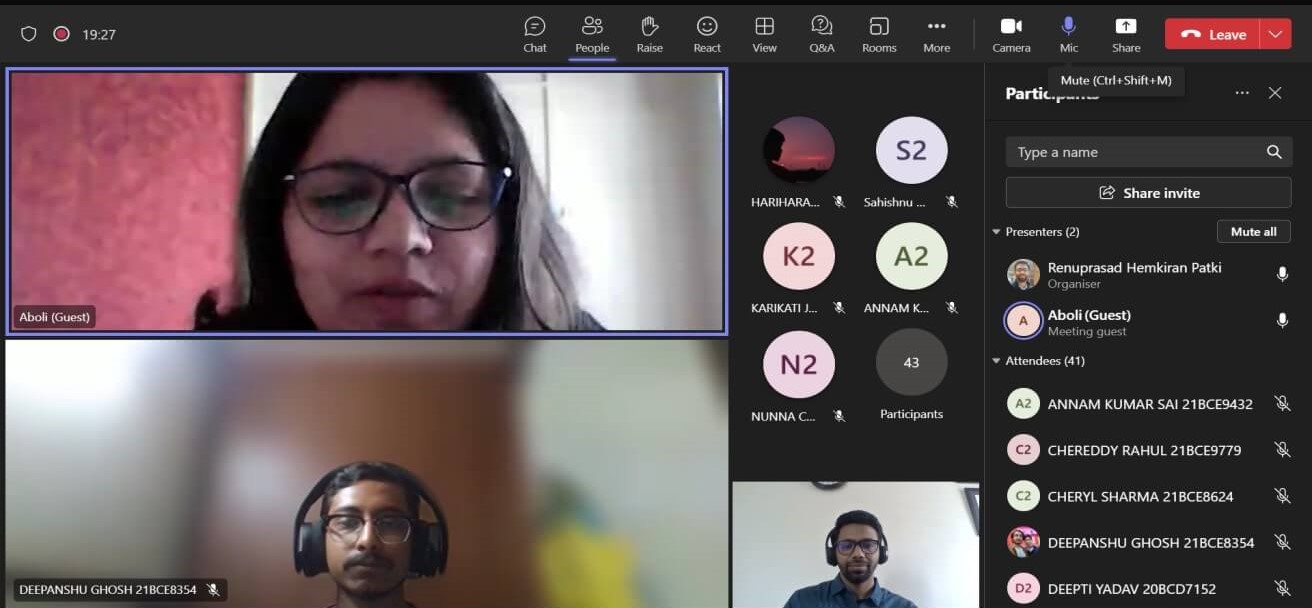
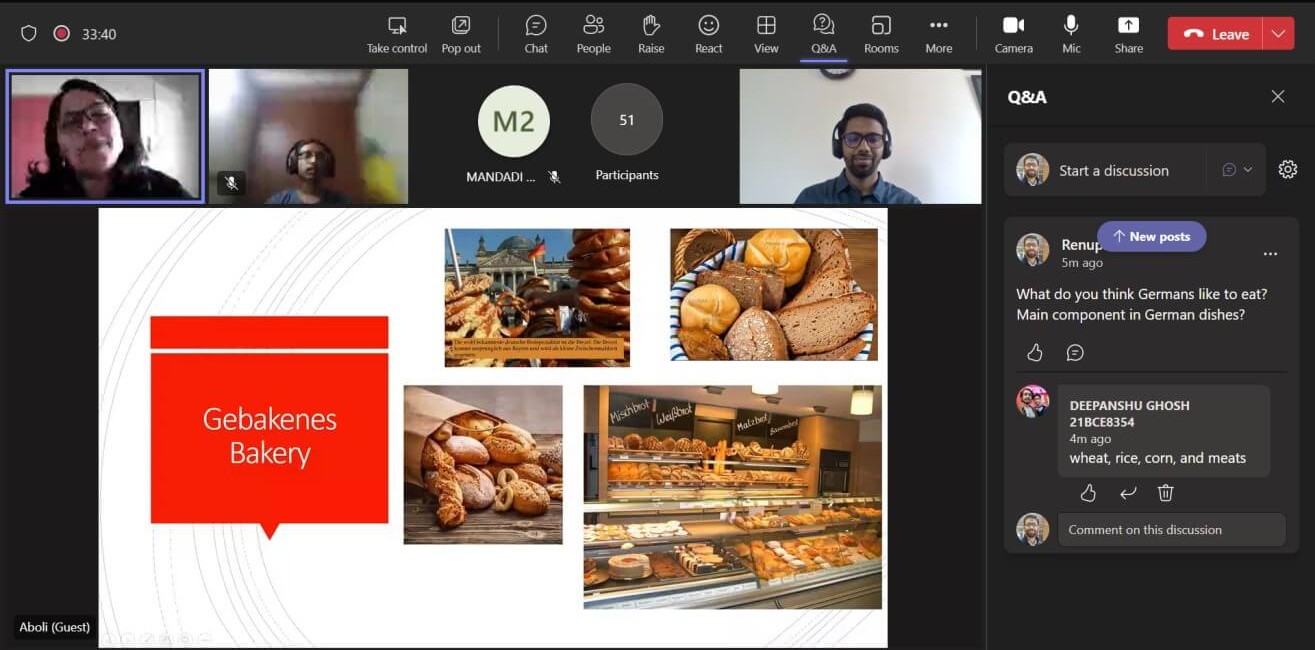
Industry Guest Lecture
Narration: Storytelling basics for 21st Century Professionals
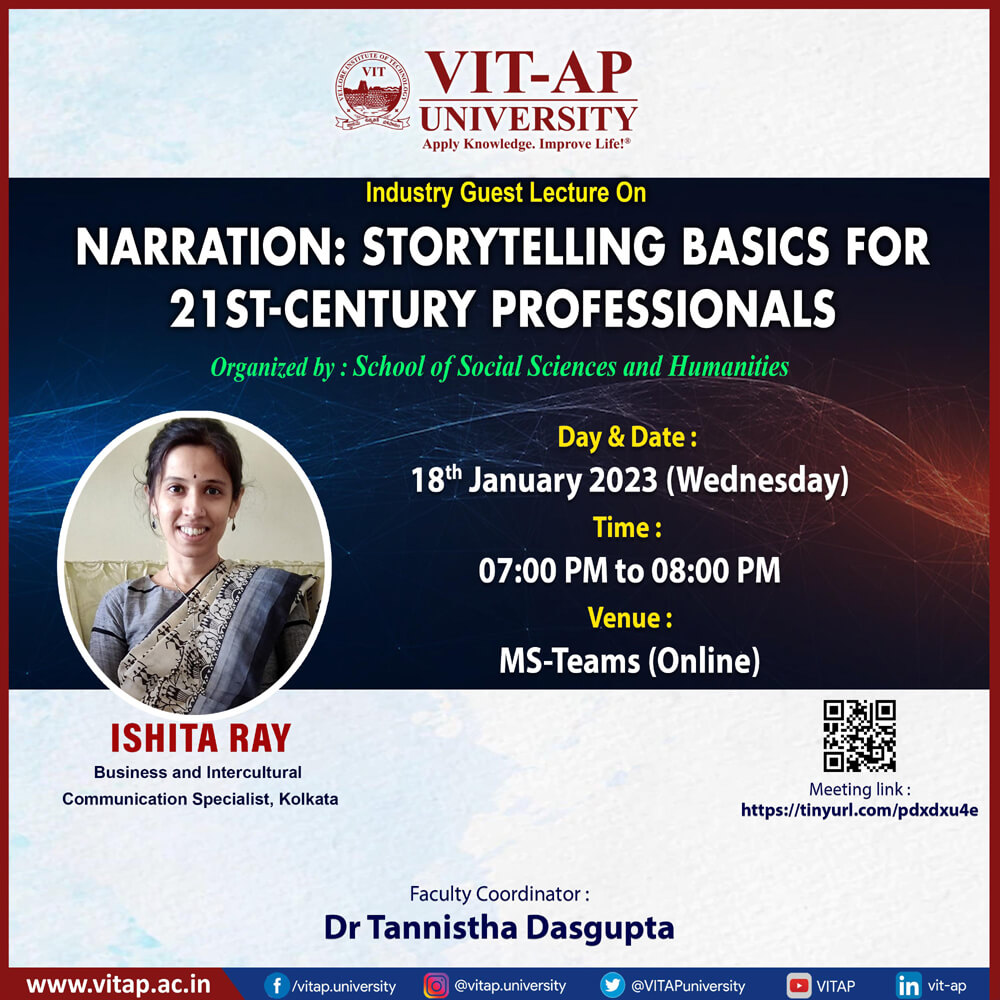
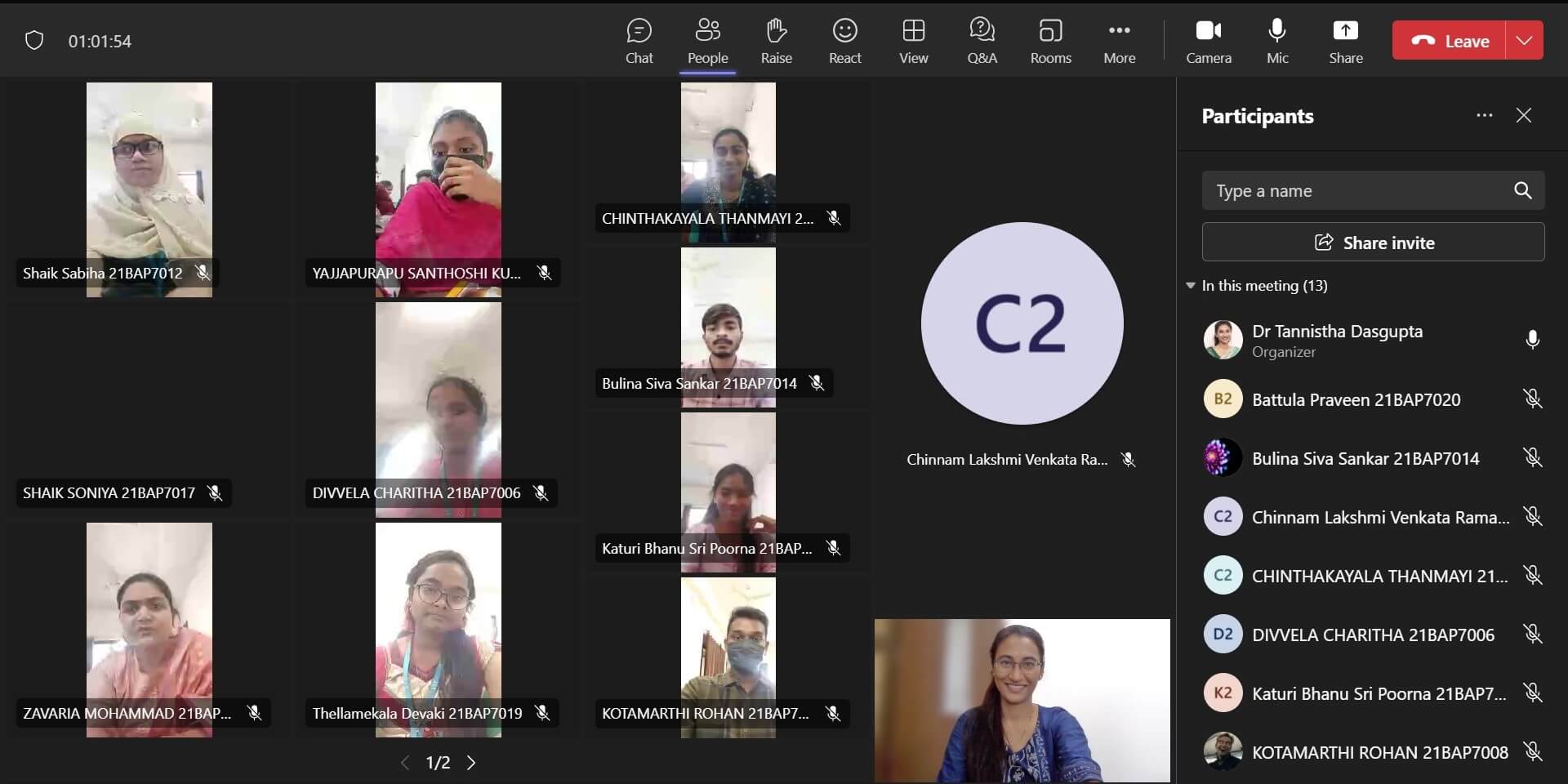
A guest lecture was organized on 18 January 2023 for the B.A./M.A. 2nd year Public Service students of the university. The resource person of the session was Ishita Ray, a facilitator and trainer in the field of business and intercultural communication and design thinking. She mentioned in her talk that storytelling is a powerful tool that can help professionals to cut through the noise and connect with their audience. Storytelling is an important skill for professionals in the 21st century, regardless of their industry or field. A good story can capture the imagination, engage emotions, and make information more memorable. She shared tips for effective storytelling which include knowing your audience- before you start crafting your story, you need to understand your audience- what are their interests, values, and beliefs- what problems are they facing, and how can your story help them, keeping it simple- good story doesn’t need to be complicated, using visuals- Visual aids can help to bring your story to life and make it more memorable- consider using images, videos, or infographics to help illustrate your points, and practicing your story until you can deliver it confidently and without hesitation. This will help to connect with your audience and make a lasting impression. She concluded the session by reiterating that storytelling is a powerful tool that can help professionals to connect with their audience, communicate complex ideas, and stand out in a crowded job market. By understanding the elements of a good story and following these tips, professionals can create stories that engage, inform, and inspire their audience. The guest lecture was organized by Dr Tannistha Dasgupta.
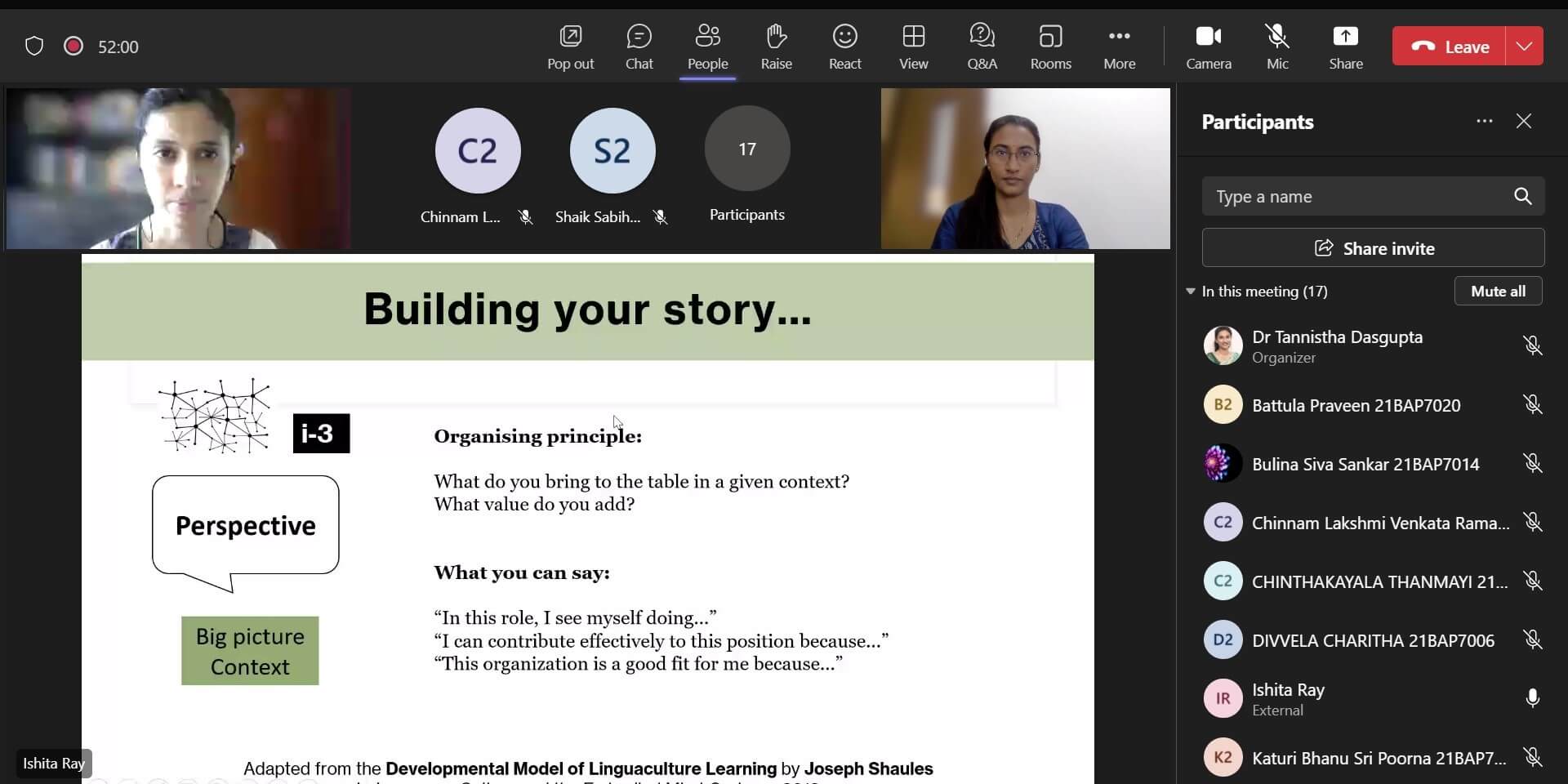
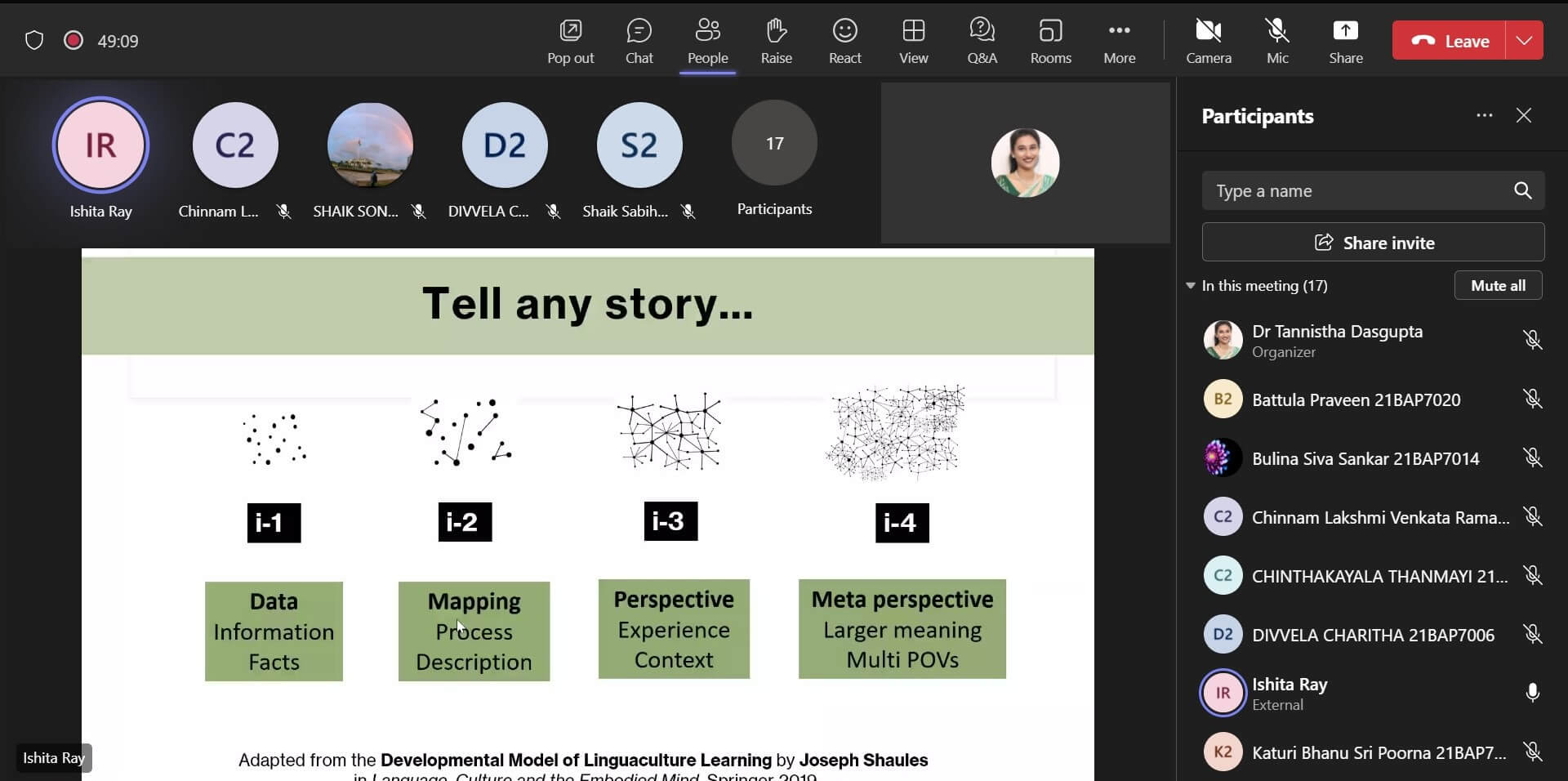
Industry Guest Lecture
Writing Brands, Writing News
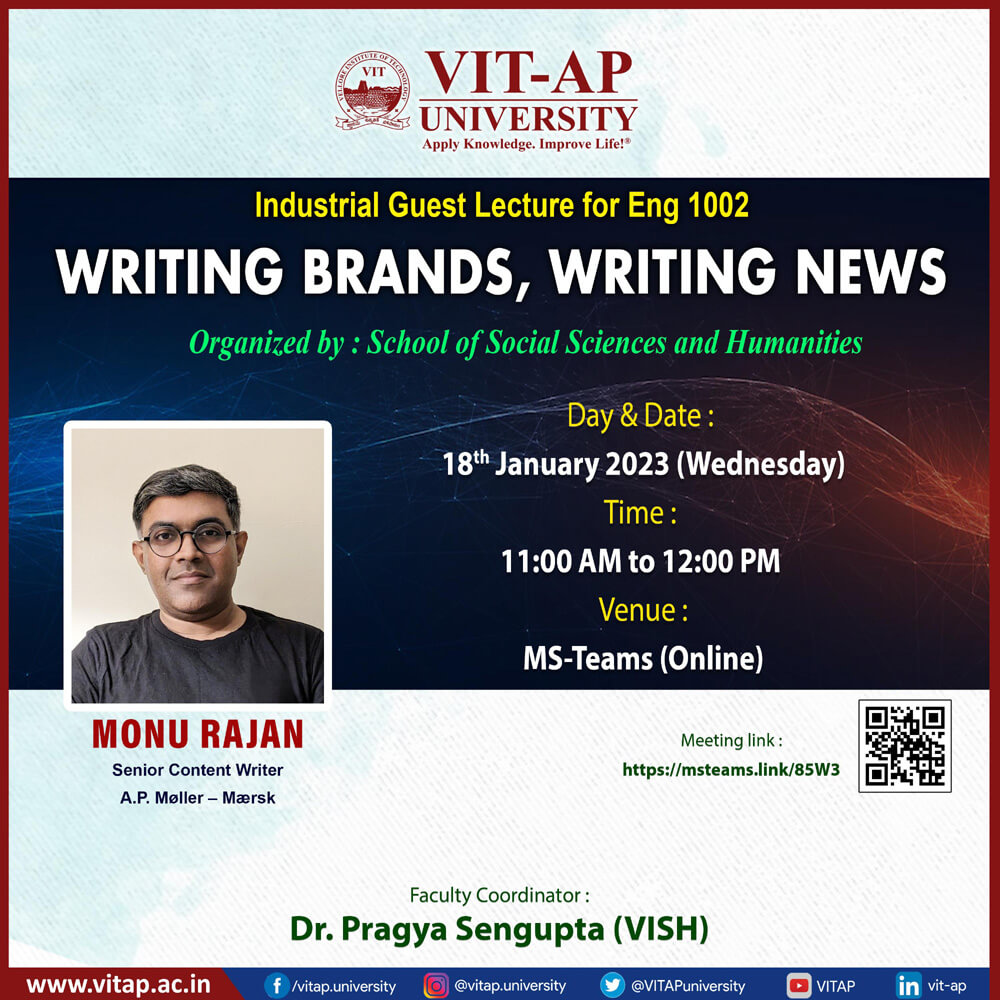
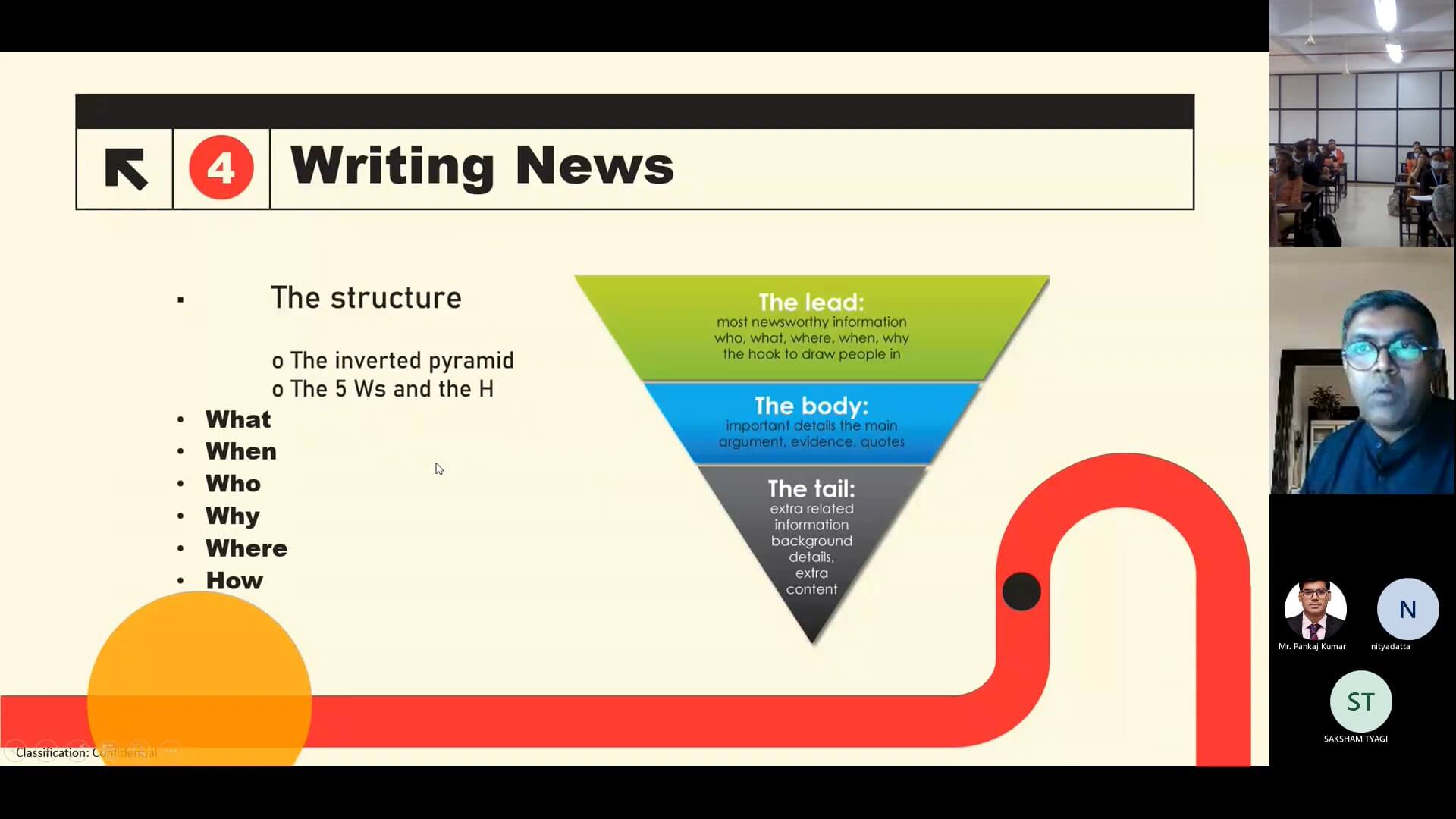
Mr. Monu Rajan, a senior content writer at A.P. Moller-Maersk, delivered an online guest lecture on Wednesday, 18 January, 2023. In the beginning, he briefed the students on the importance of audience while writing reports for newspapers, and the different styles adapted by the reporters depending on the Newspaper brand they work for. He explained the structure of writing reports, and how a writer and editor should focus on logical accuracy and factual consistency. With the examples of demonetization reports from different media channels, he familiarized the students with perspectives on argumentation. Next, he spoke about the significance of voice and tone in representing a brand. He explained how language can differ for brands that cater to the general public, and those who cater to other companies or industries. Additionally, how a single content’s description should be differently represented in web pages and social media was explained with illustrations. The guest lecture was coordinated by Dr Pragya Sengupta
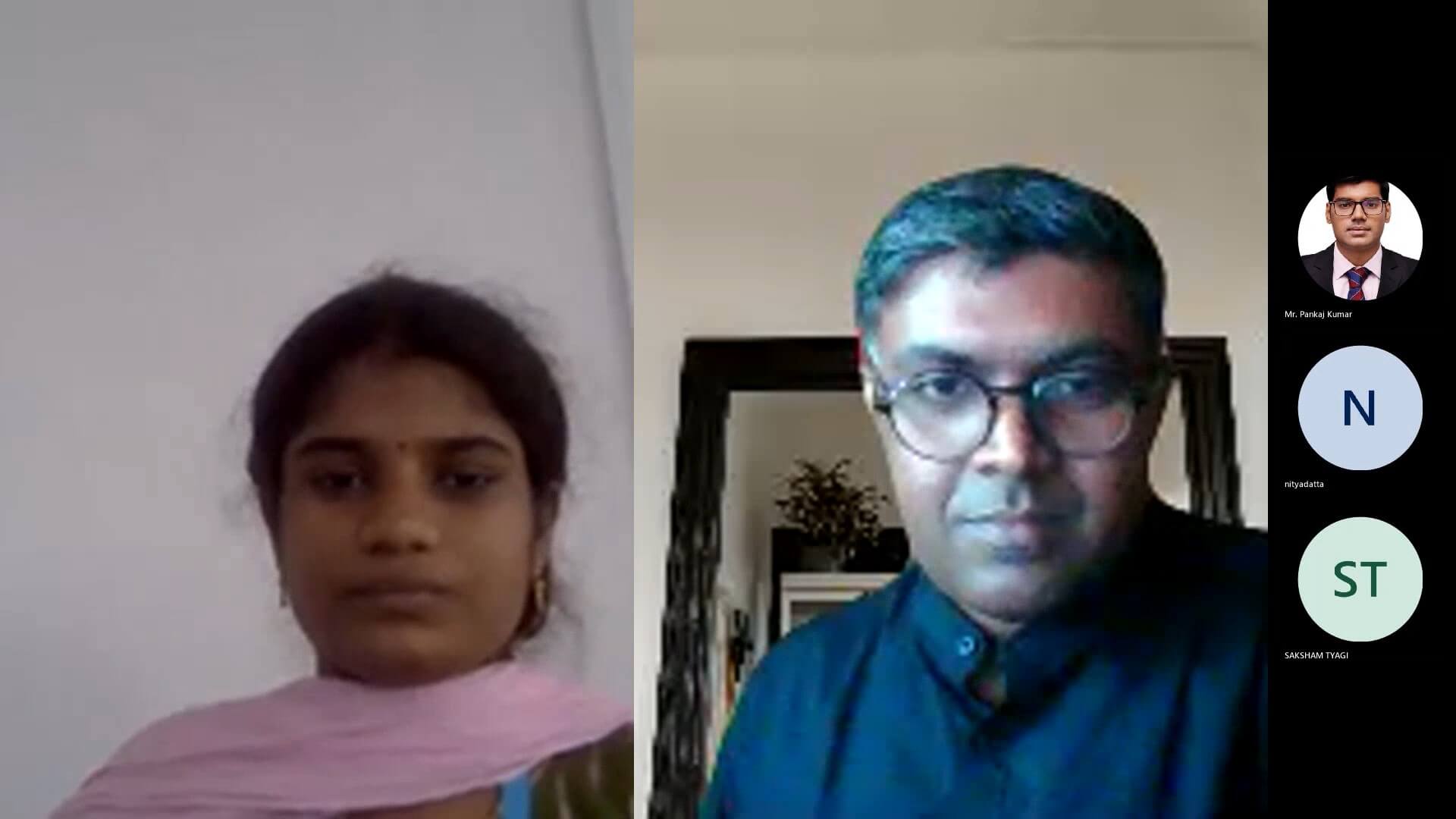
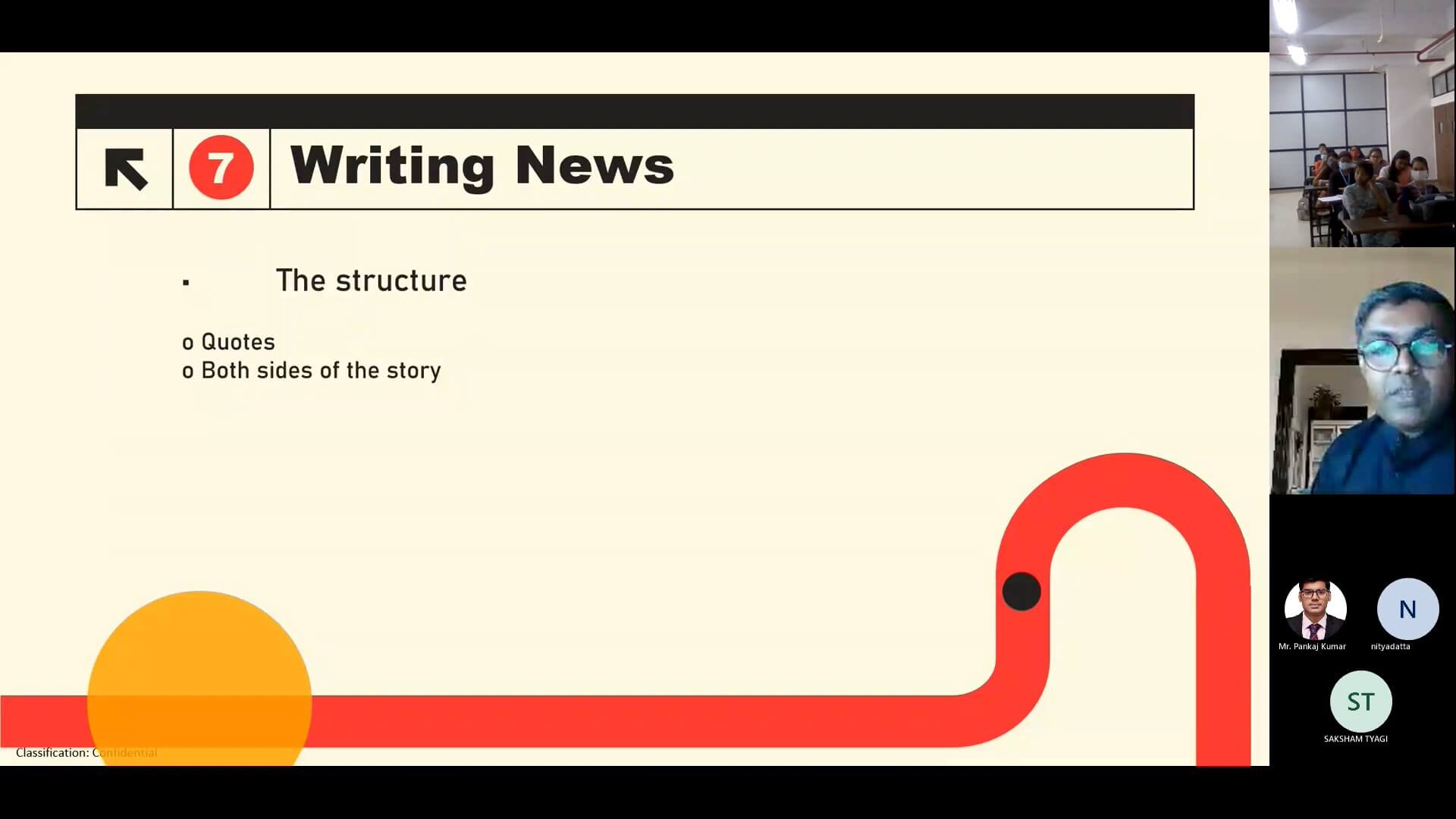
Foreign Guest Lecture
Varieties of English Language: British, American, and Canadian
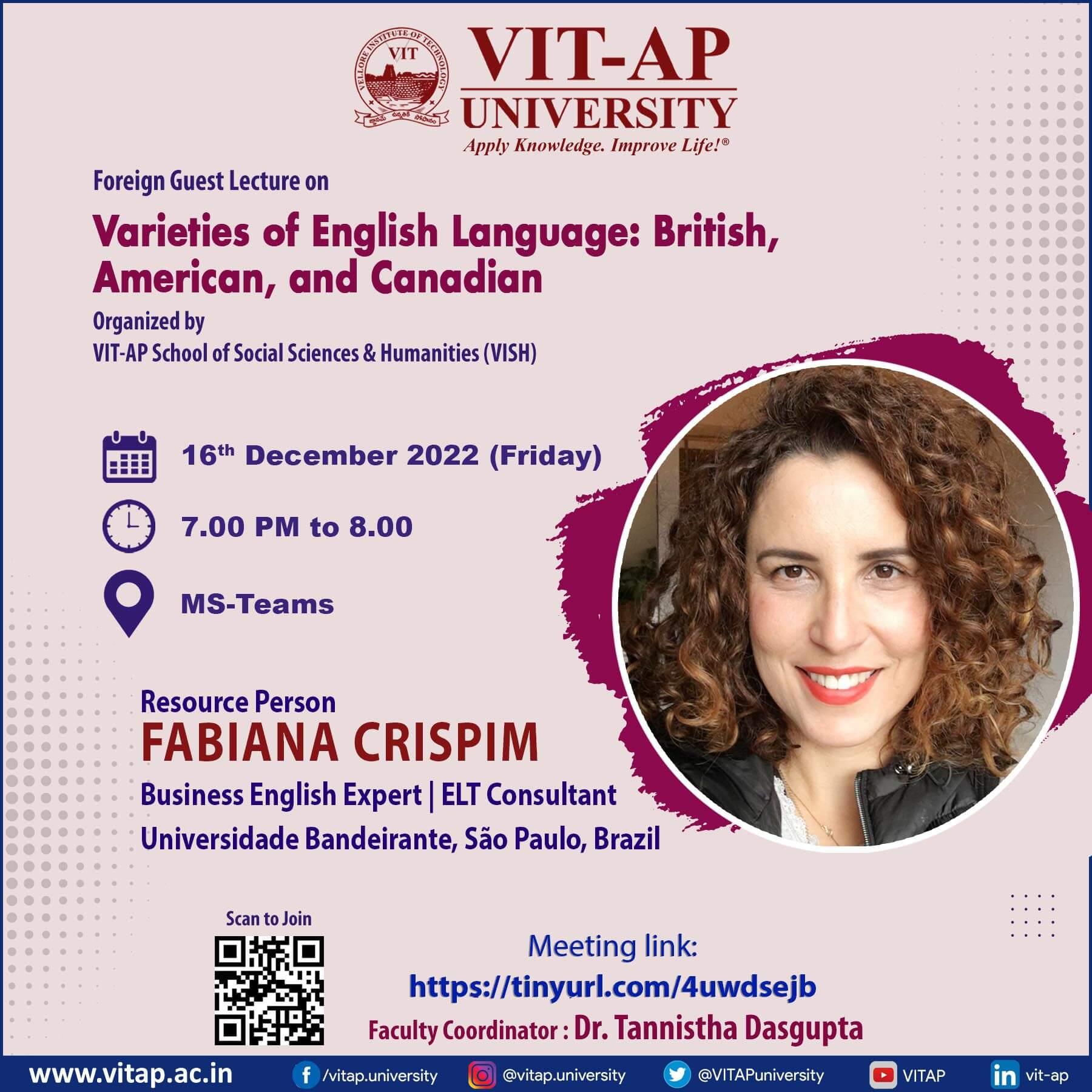
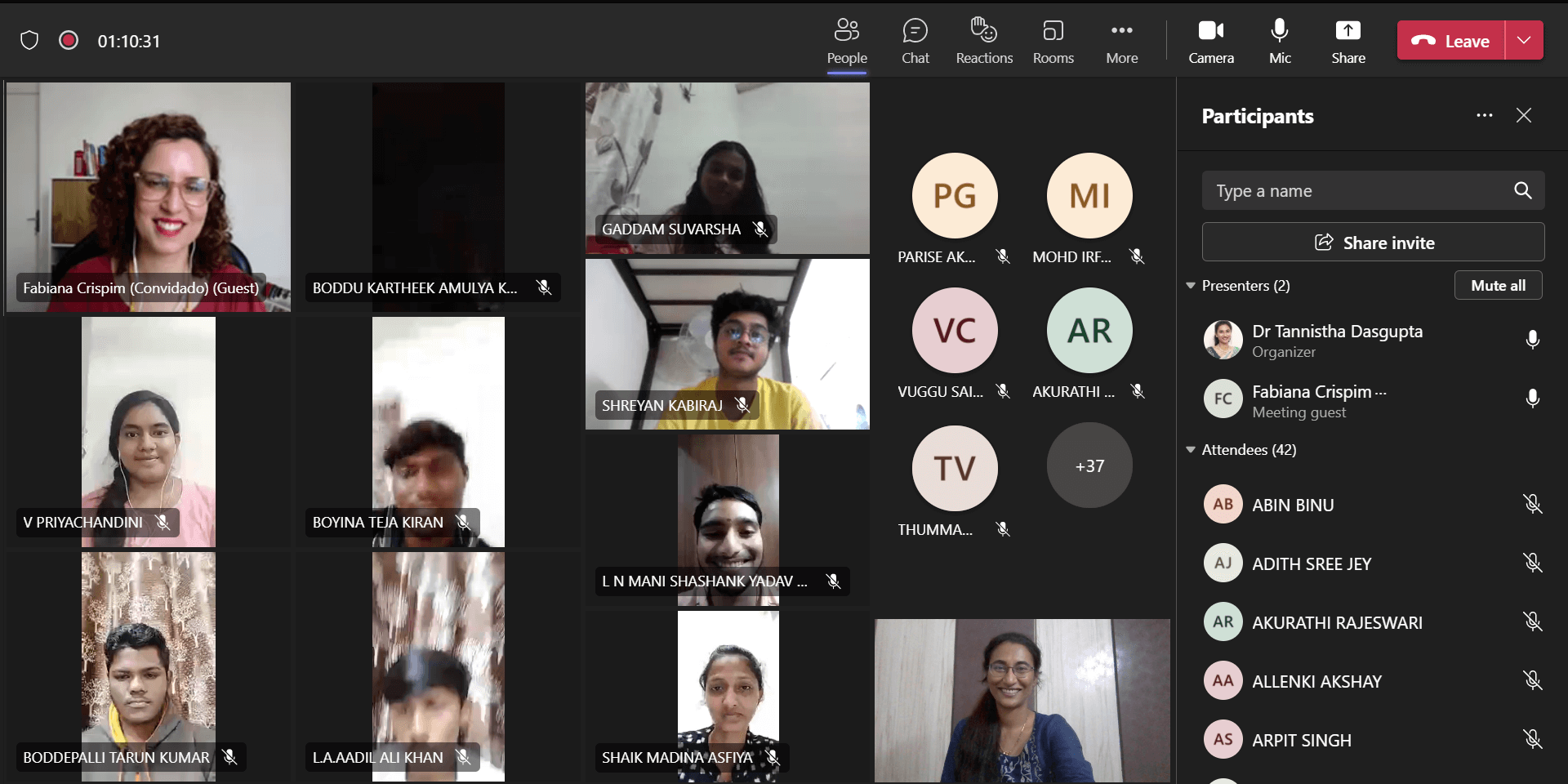
Fabiana Crispim delivered a guest lecture on 16 December 2022 at 7 pm IST to discuss how English – a global lingua franca- is enhanced by diversity or varieties. Fabiana Crispim is a business English expert from São Paulo, Brazil. The talk aimed to help students employ different varieties of English to communicate meaningfully in multinational workplaces. The session began with a discussion on the necessity to know about different varieties of English in the current globalized world. Students could be working or staying in multinational spaces and might encounter colleagues or clients speaking or writing in different varieties of English like British, American, or Canadian. In such situations, they need to communicate with individuals who use different varieties of English. Hence, it is important to be aware of the diversities associated with English. Fabiana suggested that while taking an exam, students need to conform to one of the varieties of English instead of using more than one variety. She also discussed how British, American, or Canadian English varies by spelling and pronunciation. She demonstrated by giving examples from a list of common words which are spelt and pronounced differently in different varieties of English. At the end of the session, students asked her questions and requested suggestions to improve their speaking skills. The guest lecture was coordinated by Dr Tannistha Dasgupta.
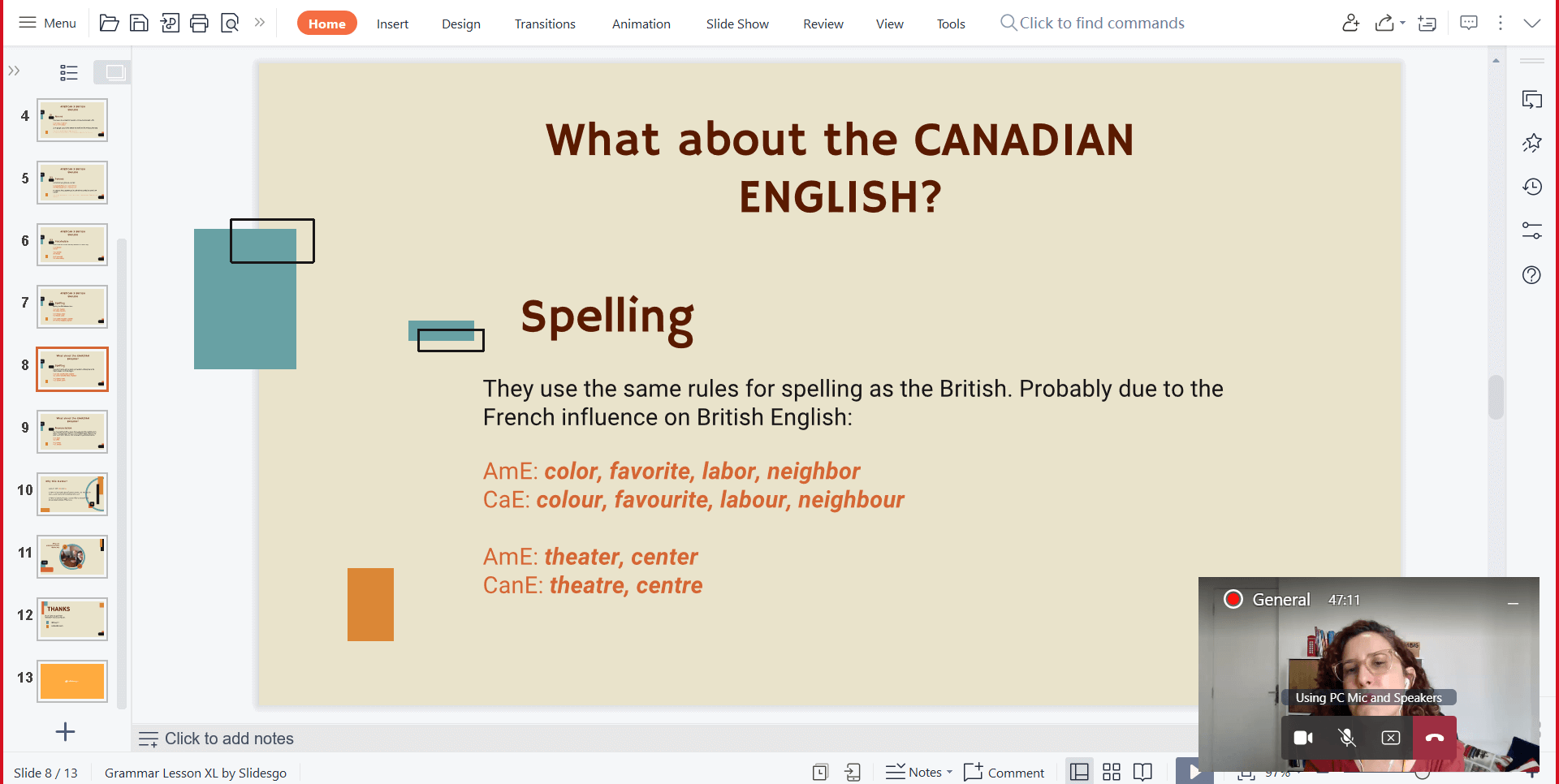
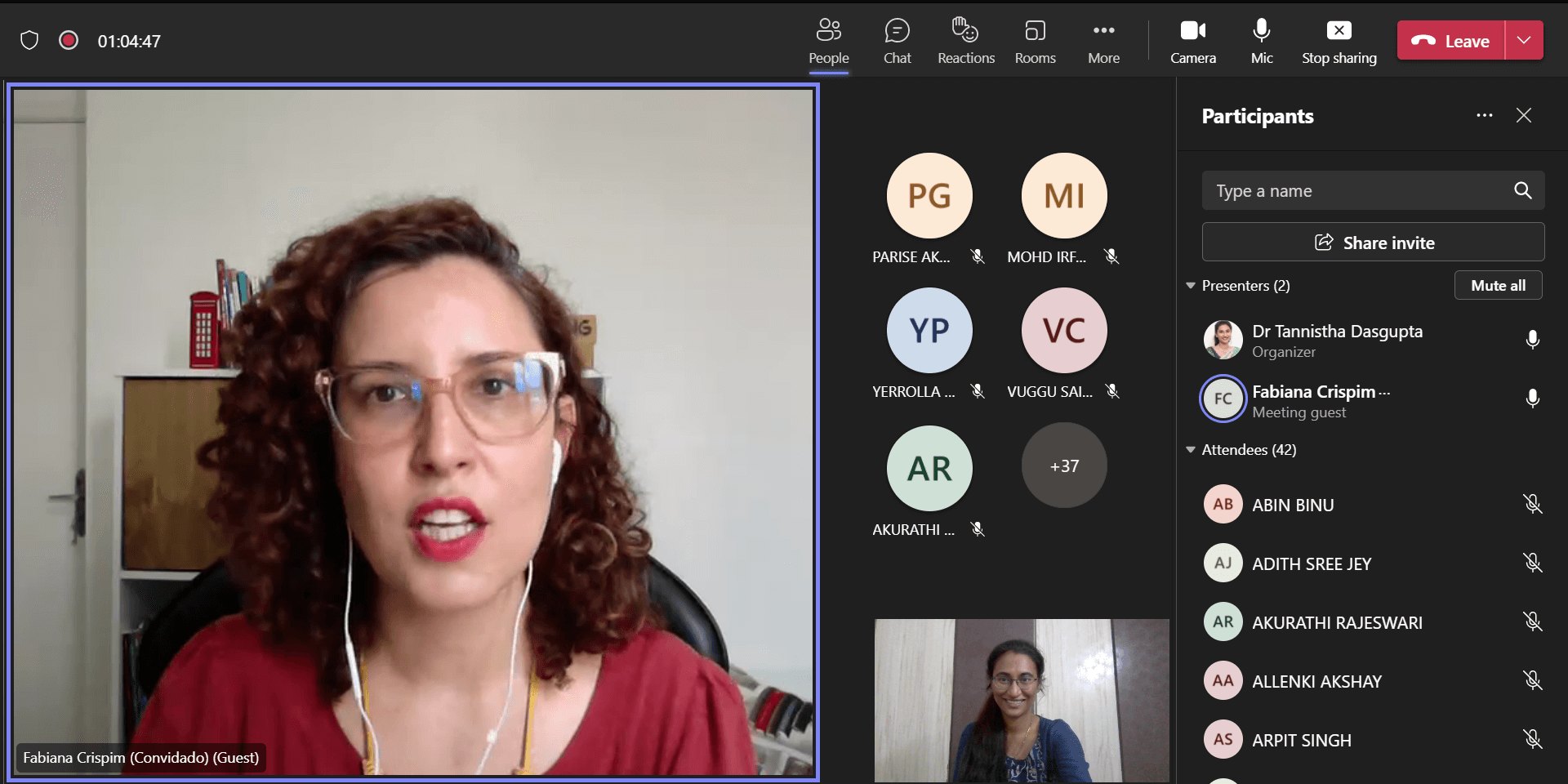
Foreign Guest Lecture
Navigating Diversity: Effective Intercultural Communication Skills
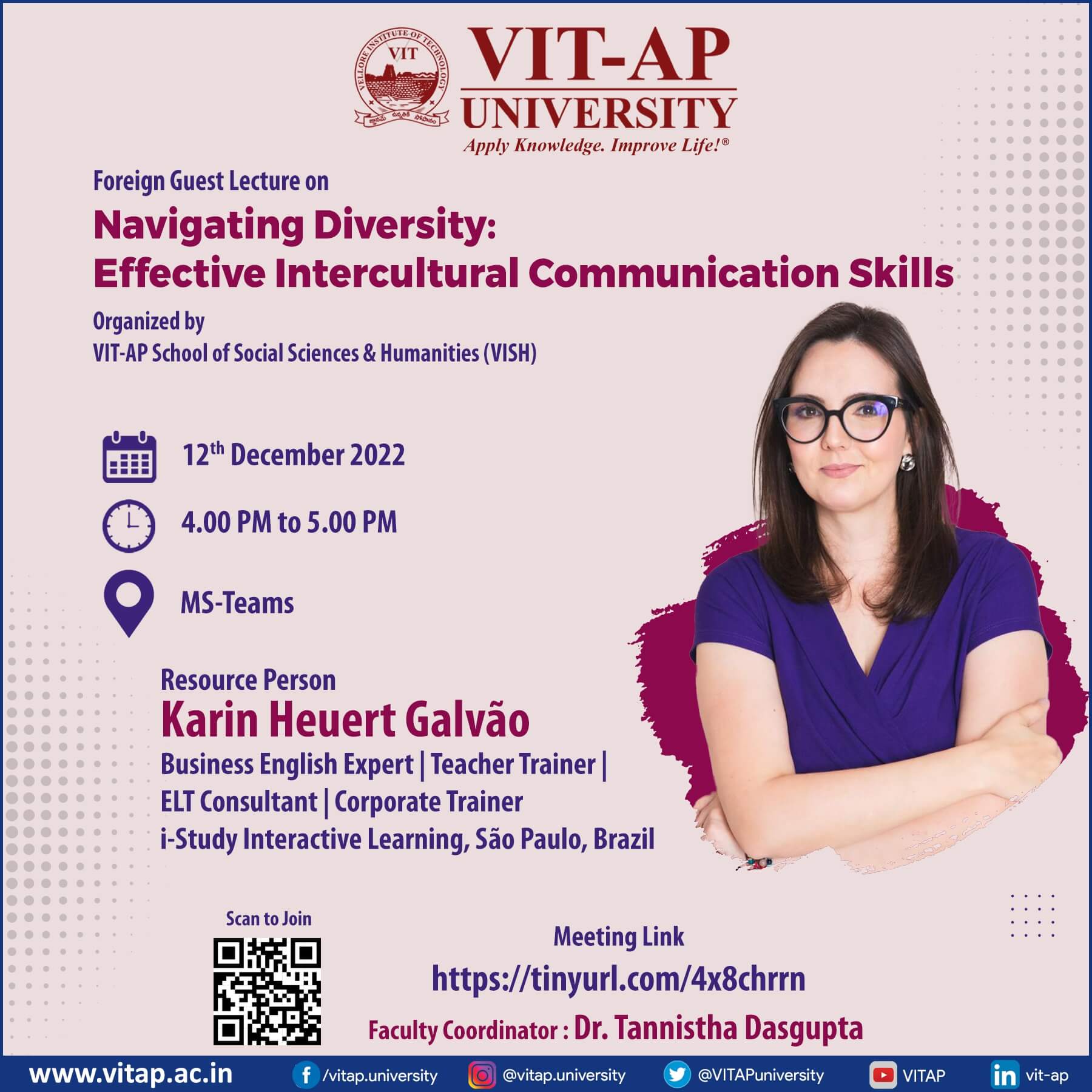
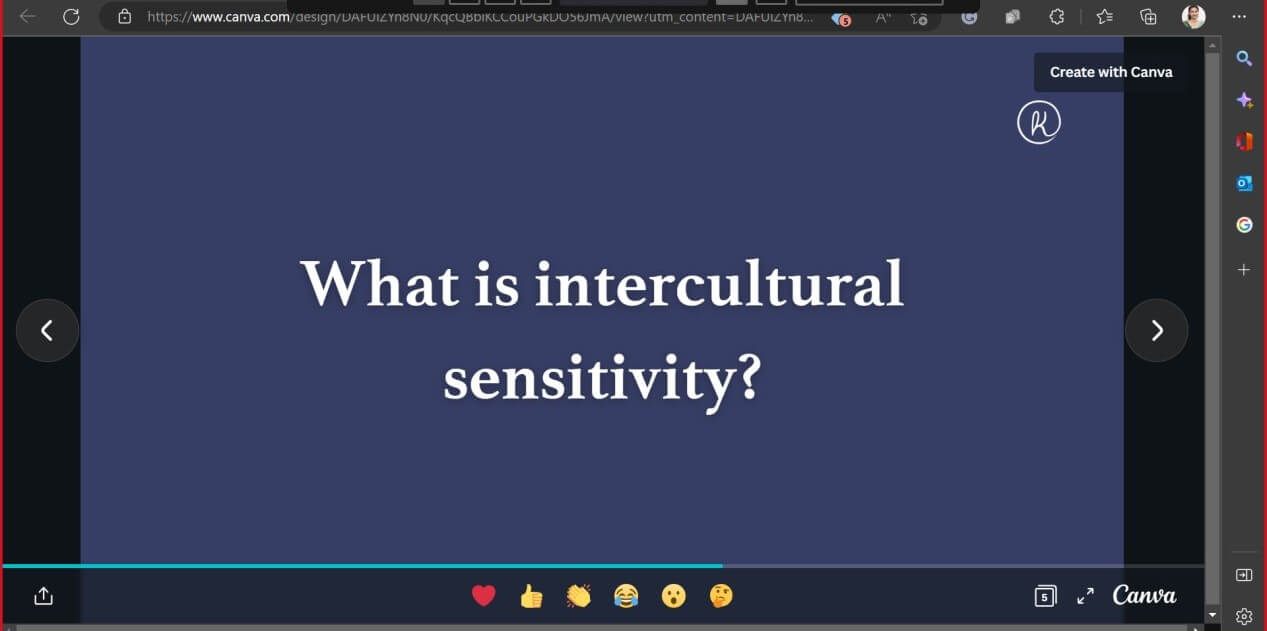
A guest lecture was organized on 12 December 2022 at 4 pm IST to discuss the opportunities and challenges of intercultural communication and stereotyping, and to improve intercultural communication skills among students. The resource person of the session was Karin Heuert Galvão, a business English expert and a corporate trainer from São Paulo, Brazil. The lecture aimed to develop effective communication skills using appropriate intercultural conventions. The audience of the talk was the 1st year engineering students of the university. Karin opened the session with questions on assumptions related to culture and stereotyping. Next, she discussed intercultural sensitivity and intercultural diversity. She advised students to understand and appreciate cultural differences that promote appropriate and effective behaviour in intercultural communication. Karin further added that if an individual aimed to work in a multinational workspace, then he/she needed to broaden perspectives and promote inclusion and engage in meaningful dialogue, increase intercultural awareness, and develop social responsibility. Then she answered queries raised by students regarding working in a multinational and multi-ethnic workplace. The guest lecture was coordinated by Dr Tannistha Dasgupta.
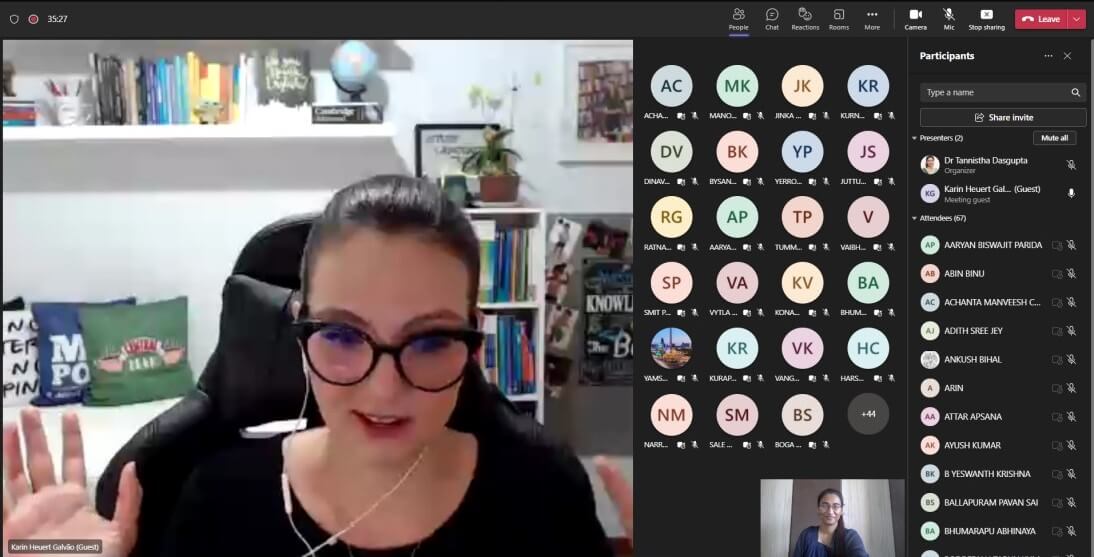
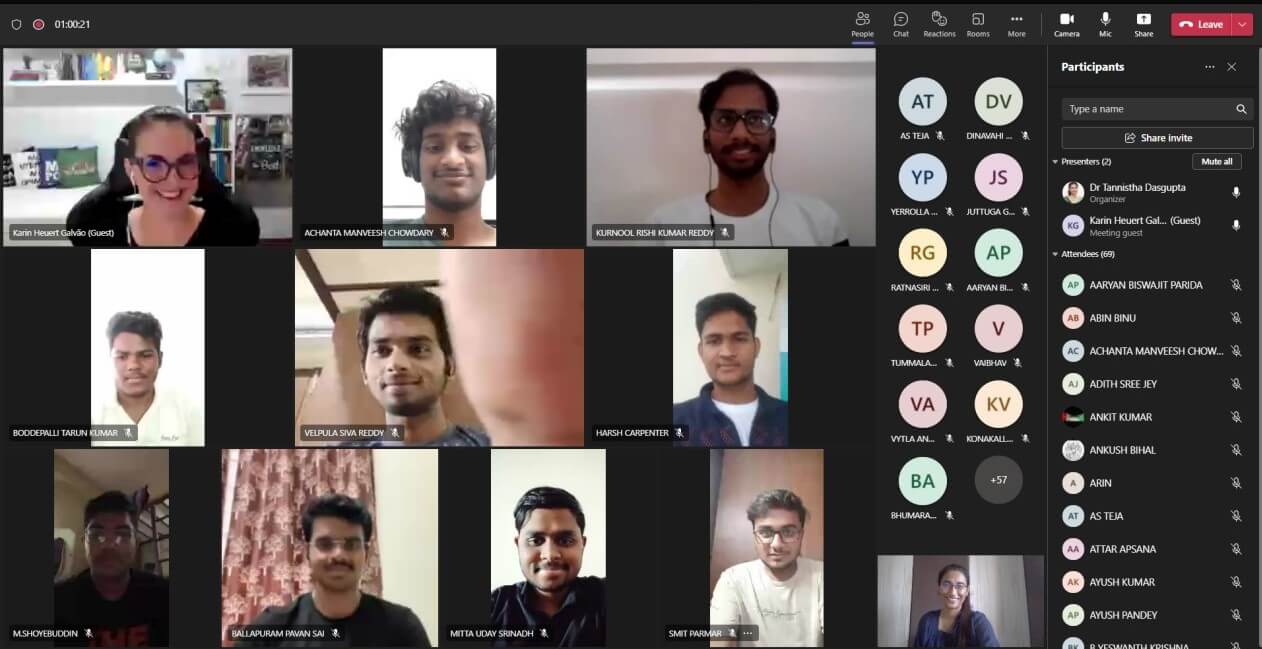
Industry Guest Lecture
Conversational Etiquette@Workplace: Collaborative- Virtual & Face-to-face
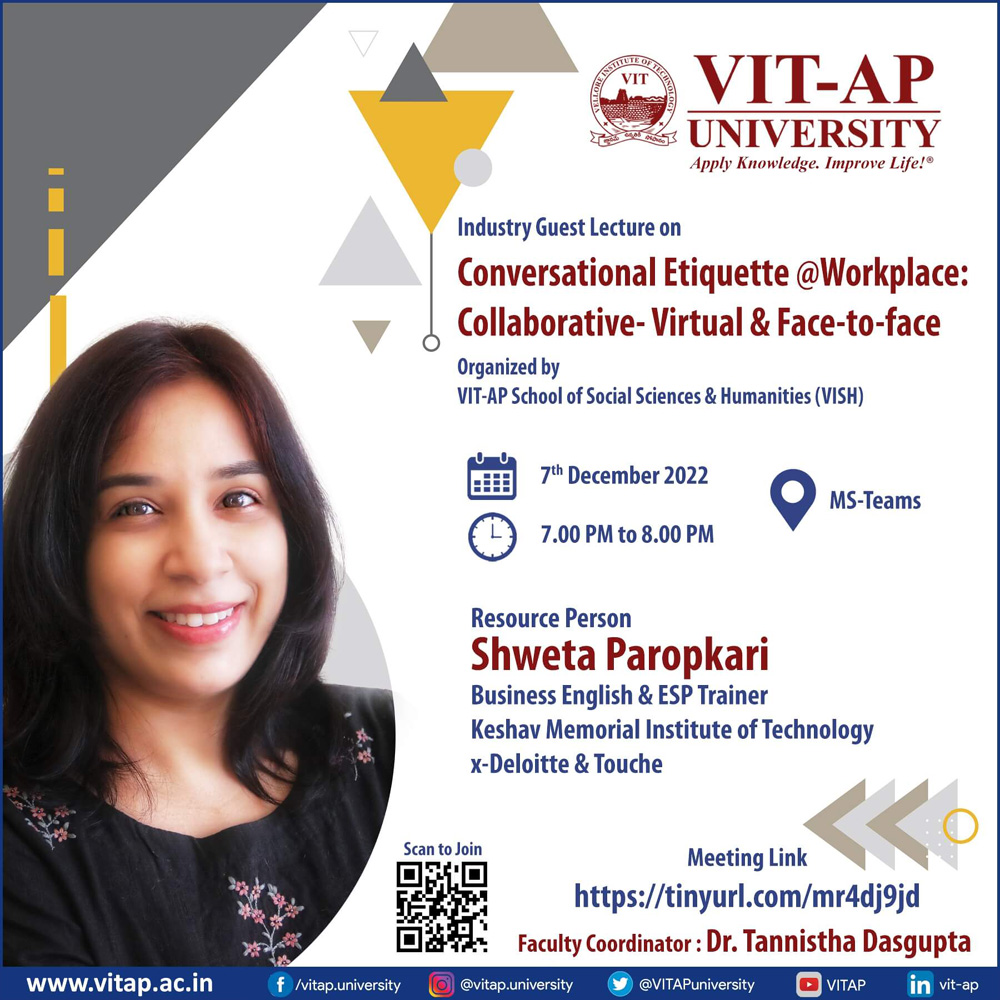
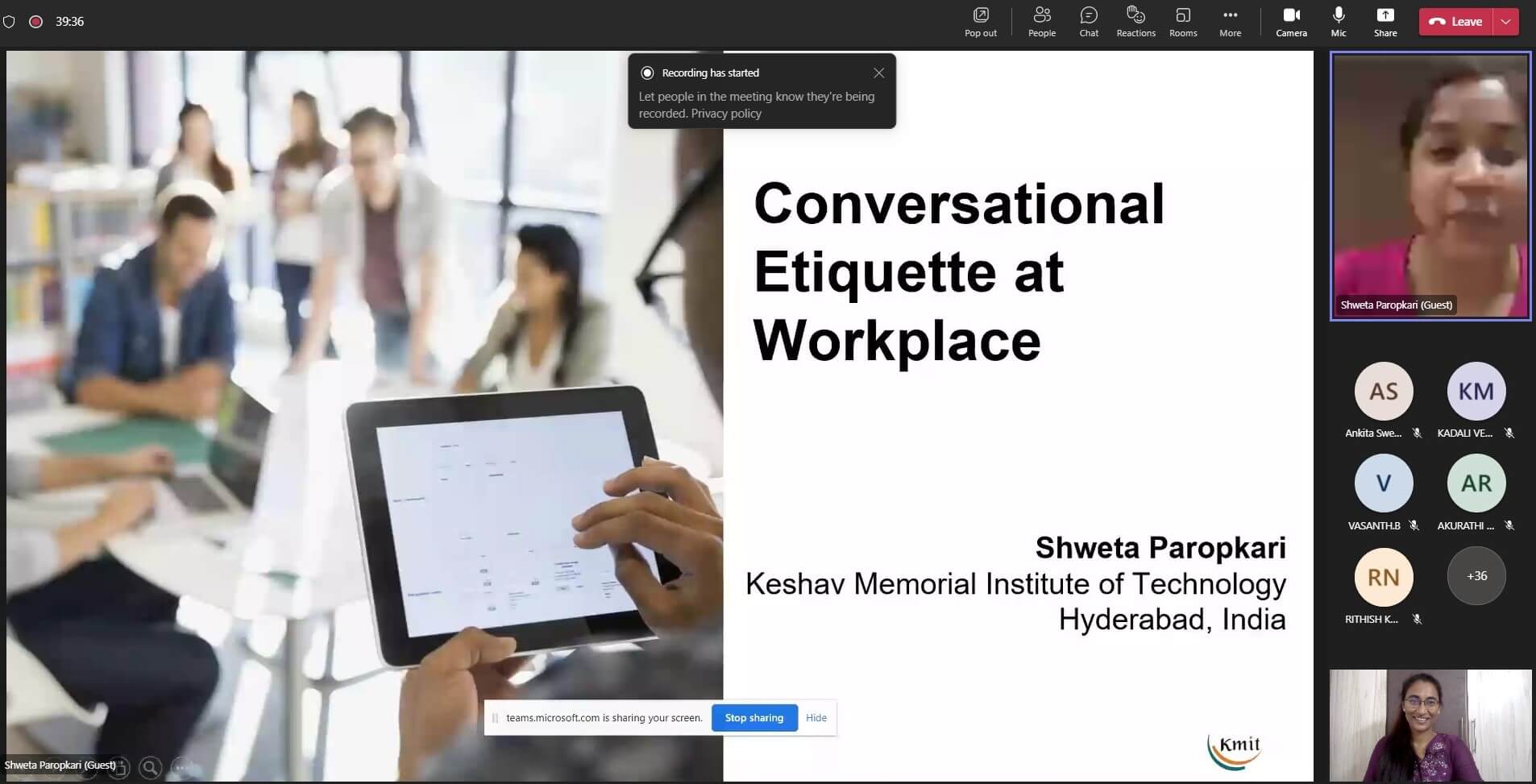
Shweta Paropkari, TESOL Qualified Teacher and Teacher Trainer with expertise in Business English, IELTS and ESP, Hyderabad, delivered a virtual guest lecture on 07 December 2022 at 7 pm IST. She interacted with the 1st year engineering students of the university. In the session, she discussed polite conversational etiquette for conversing in a group and virtual and in-person meetings. In the talk, she discussed how etiquette changes from place to and as aspirants who wish to join MNCs, students needed to be updated and aware of such aspects. She raised awareness among students on various aspects like- body language, company etiquette, cultural and emotional intelligence, etiquette video-conferencing, telephone, and email. Next, students were introduced to different kinds of workplace communication- in-person talk, email, instant messaging (IM), telephones, and meetings. Ms Paropkari also discussed the two very important aspects of workplace communication- email etiquette and body, at length. The session ended with a question-and-answer session between the speaker and the audience. The event was coordinated by Dr Tannistha Dasgupta.
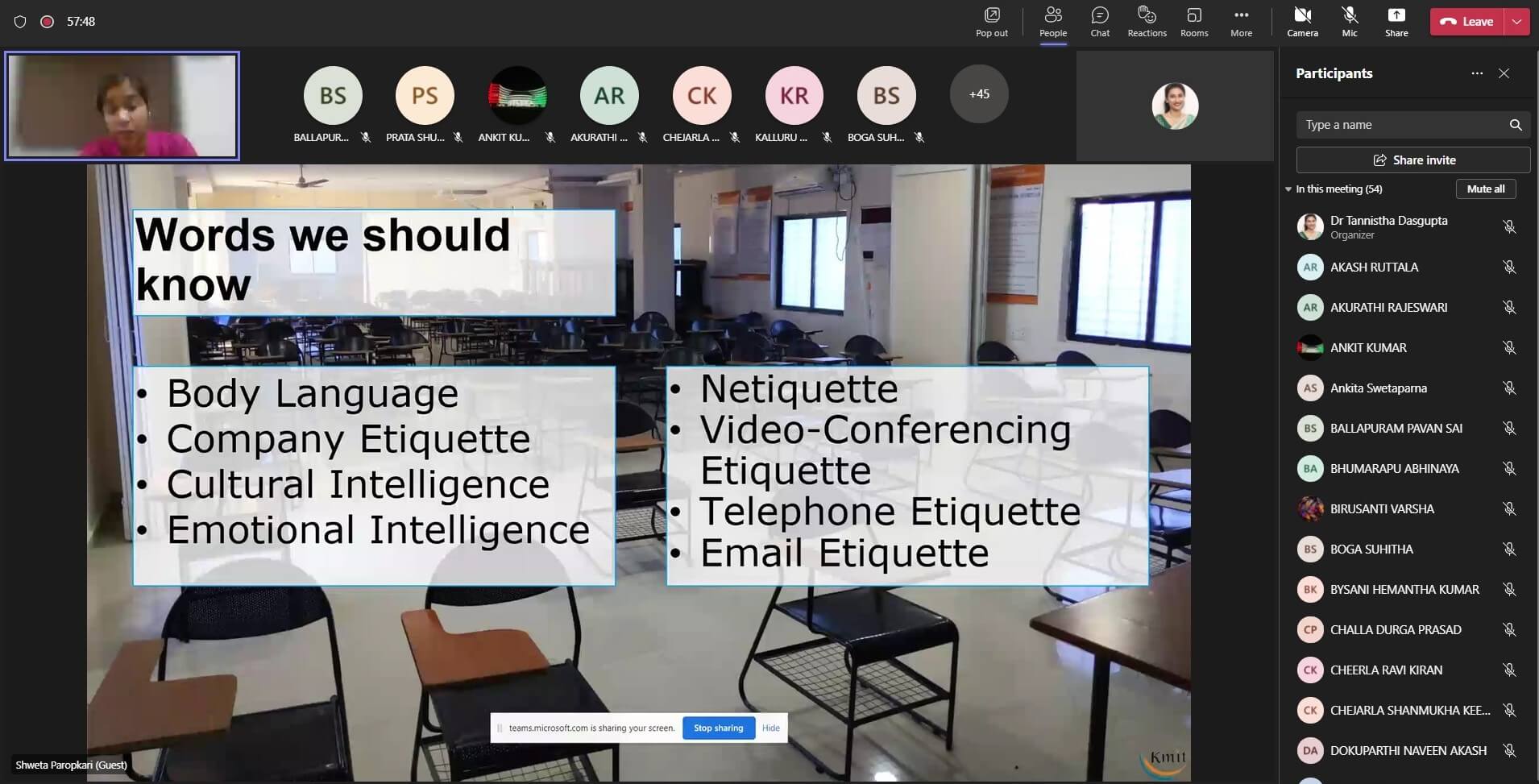
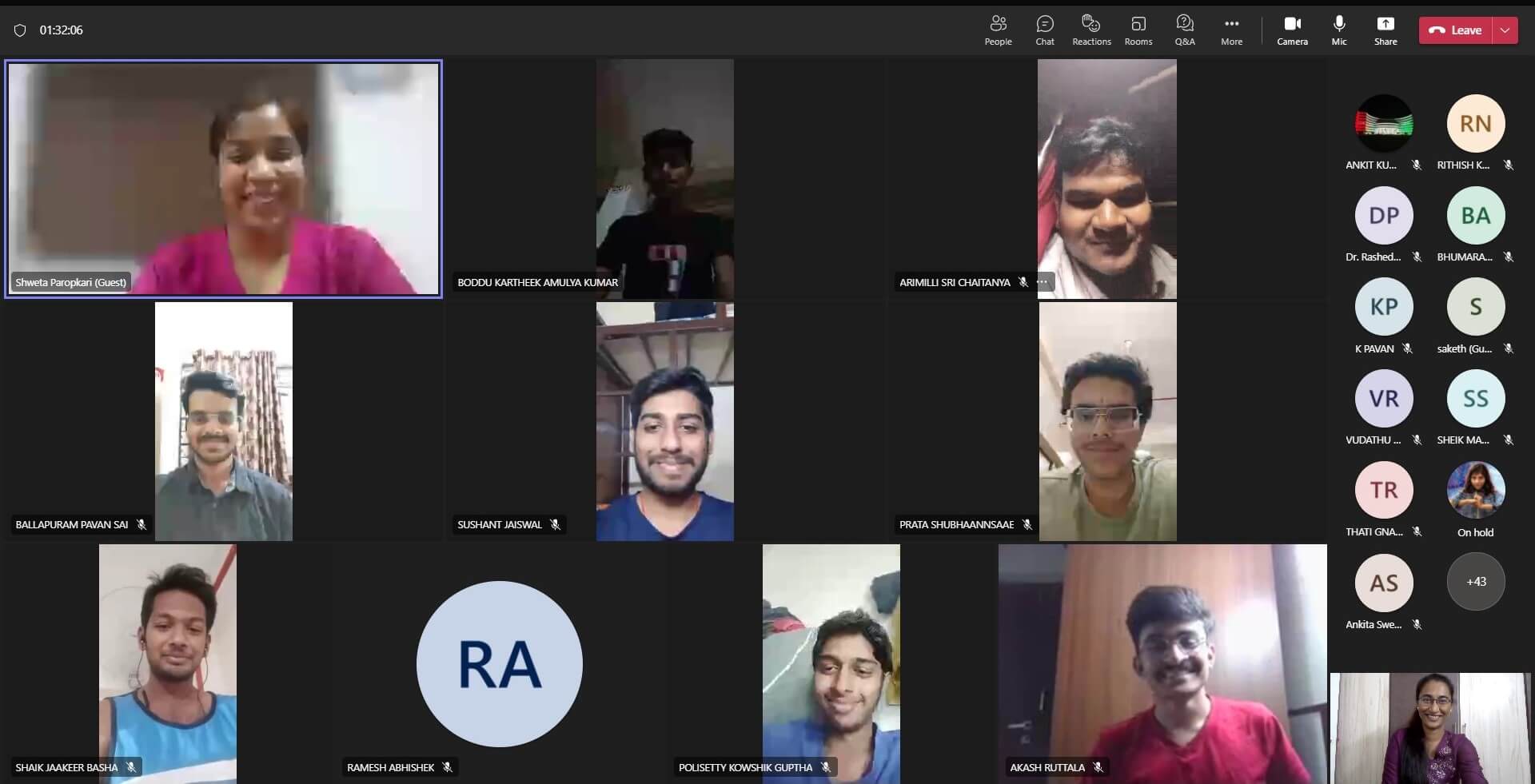
Foreign Guest Lecture: Anthropogenic Channel Network Development in Forested Watersheds in Mark Twain National Forest, Missouri Ozark
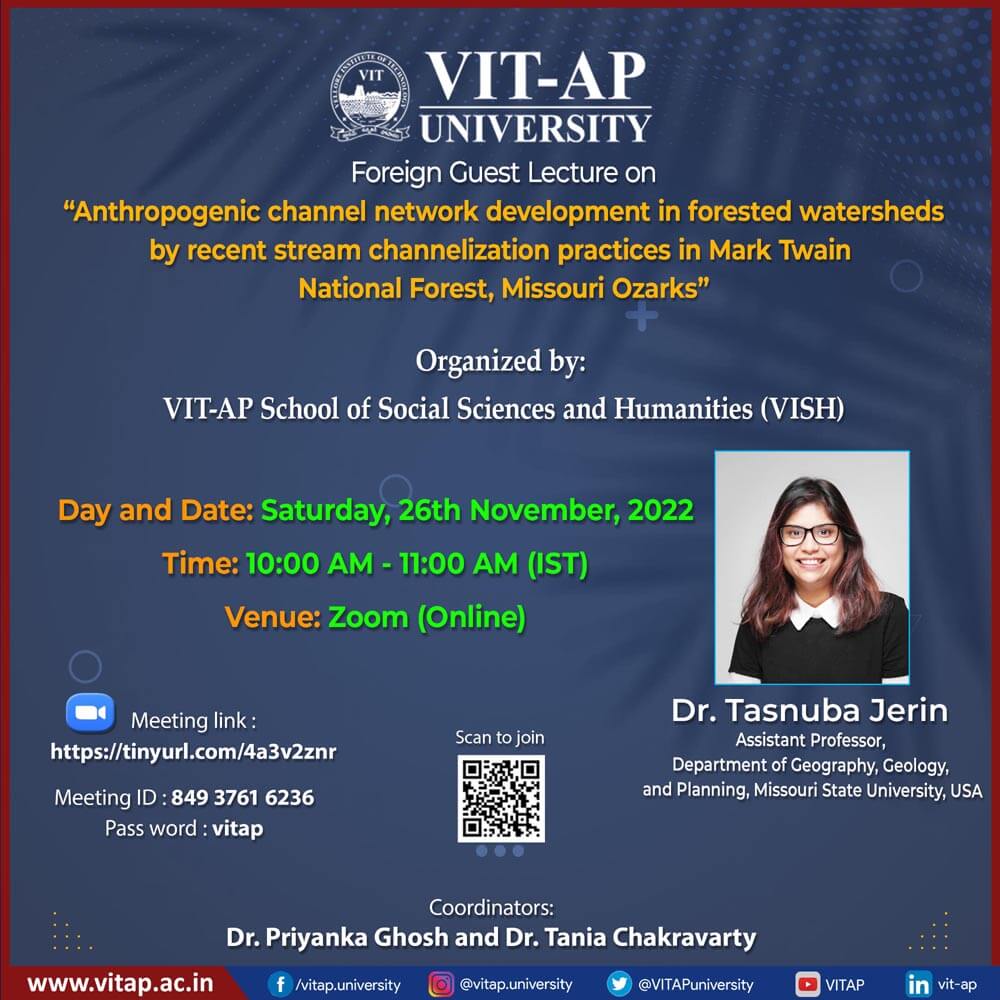
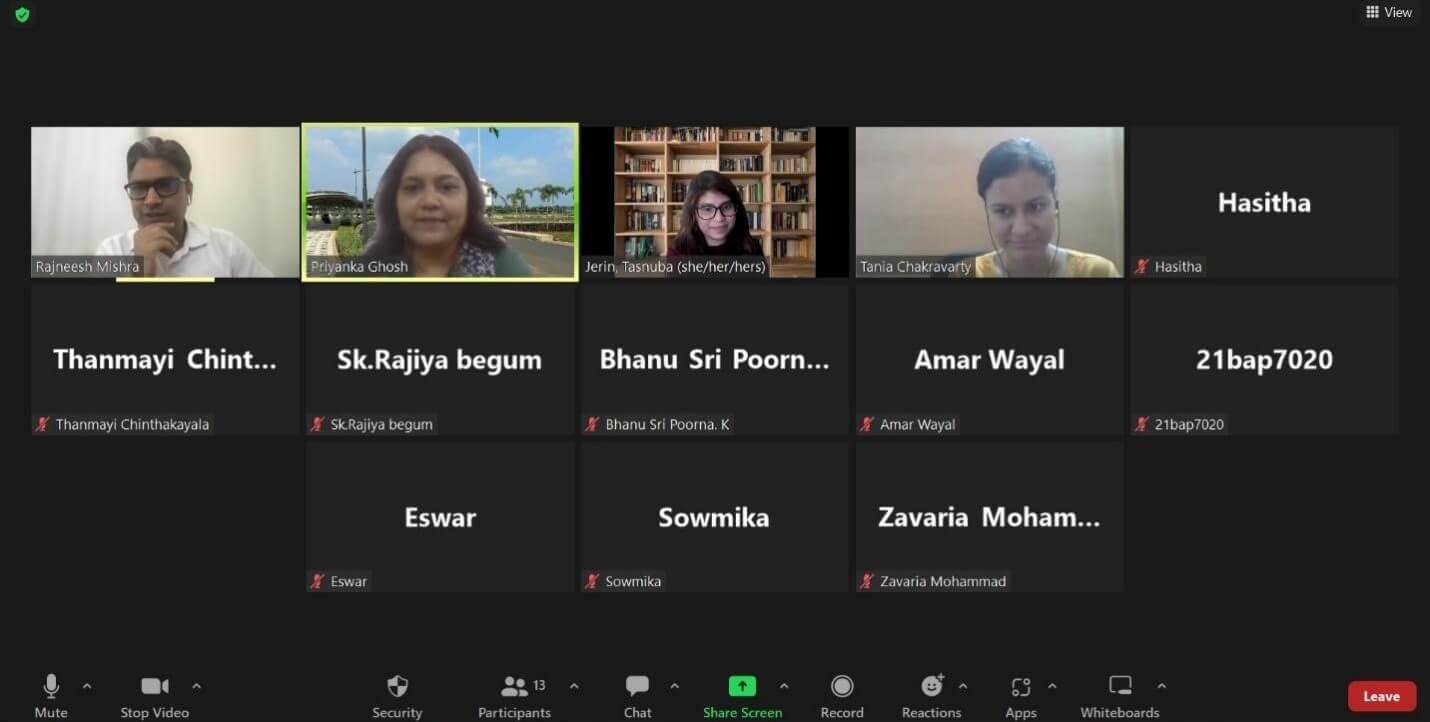
Dr Tasnuba Jerin, Assistant Professor, Department of Geography, Geology, and Planning, Missouri State University delivered an invited lecture titled “Anthropogenic channel network development in forested watersheds by recent stream channelization practices in Mark Twain National Forest, Missouri Ozarks” on Saturday, 26 November 2022. Dr Jerin first provided background information on bio-geomorphic interactions through the formation of sand dunes in coastal areas. Through this example, she explained to students the scope and content of bio-geomorphology. In her talk, she explained the concept of bio-construction, which is the accumulation of materials by biota which enlarges, stabilizes, or covers a surface for a period of time. She brought a specific example of bio-construction from her research and explained how natural vegetation or plants trap sediments to create a lateral bar in a particular river channel. Additionally, she explained the concept of bio-protection by drawing examples of coastal sand dunes. In the later part of her talk, she explained the anthropogenic impact on channelization or the deepening of the channel and how that impacts the overall morphology of a fluvial system. In sum, her lecture enlightened students about the effects of vegetation on the landscape evolution process in a fluvial system. The guest lecture was coordinated by Dr Priyanka Ghosh and Dr Tania Chakravarty.
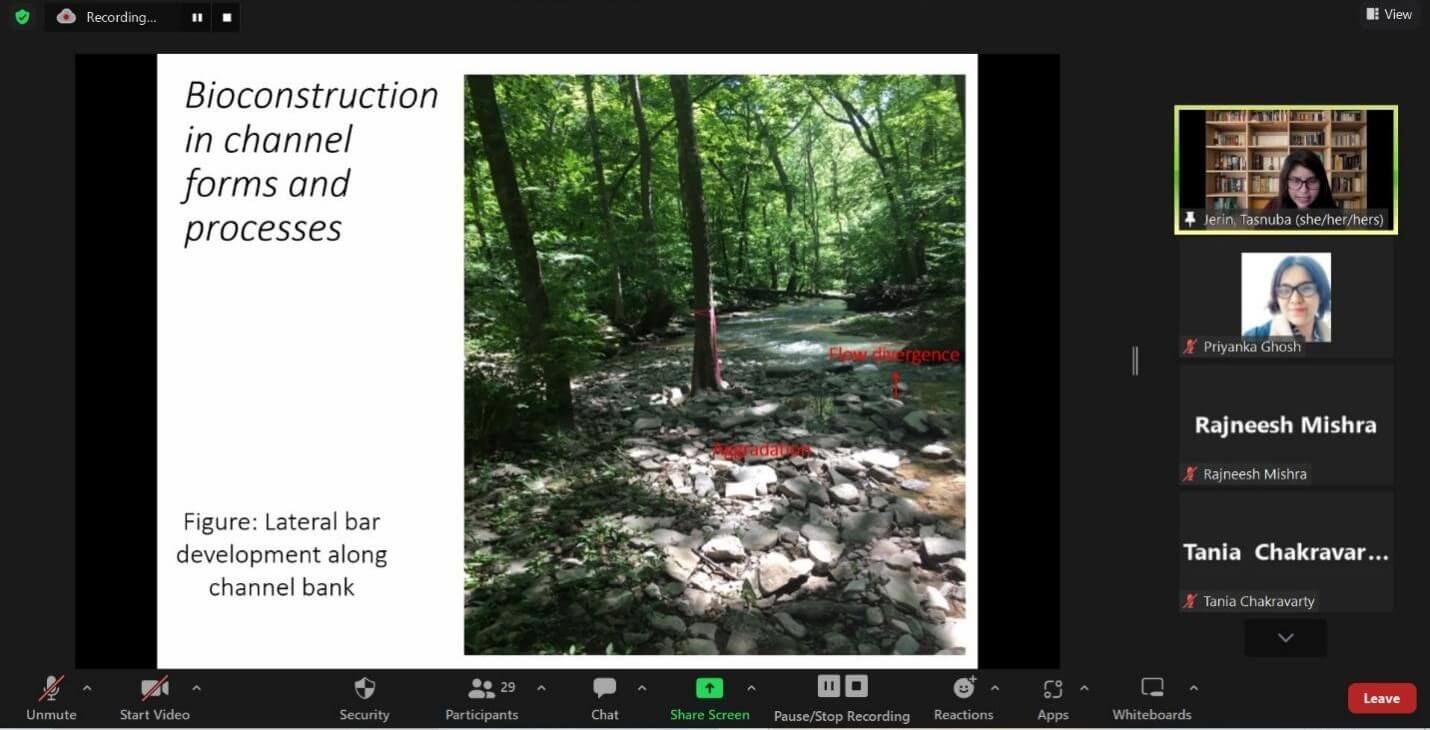
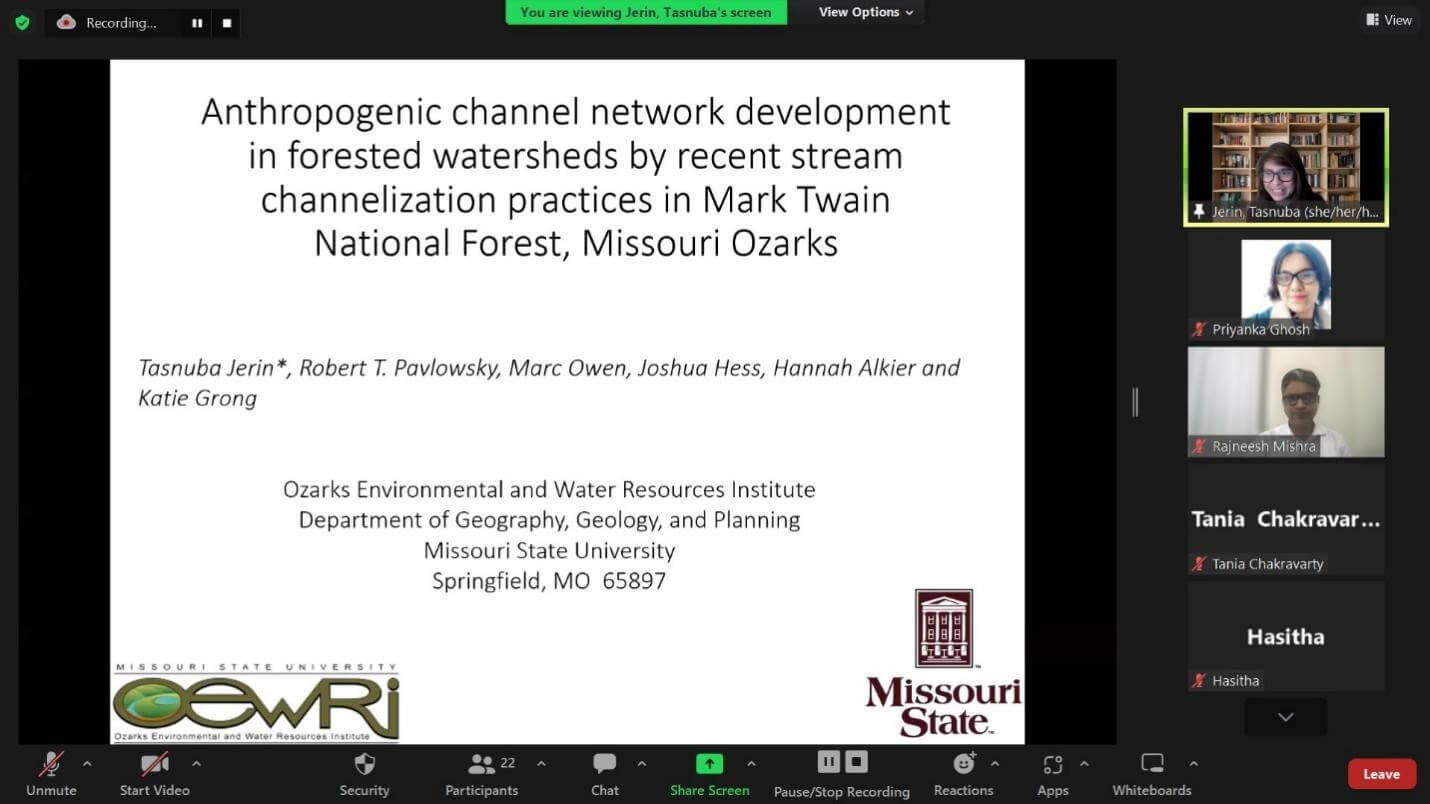
Guest Lecture Series: BA-MA Public Service, Session 2
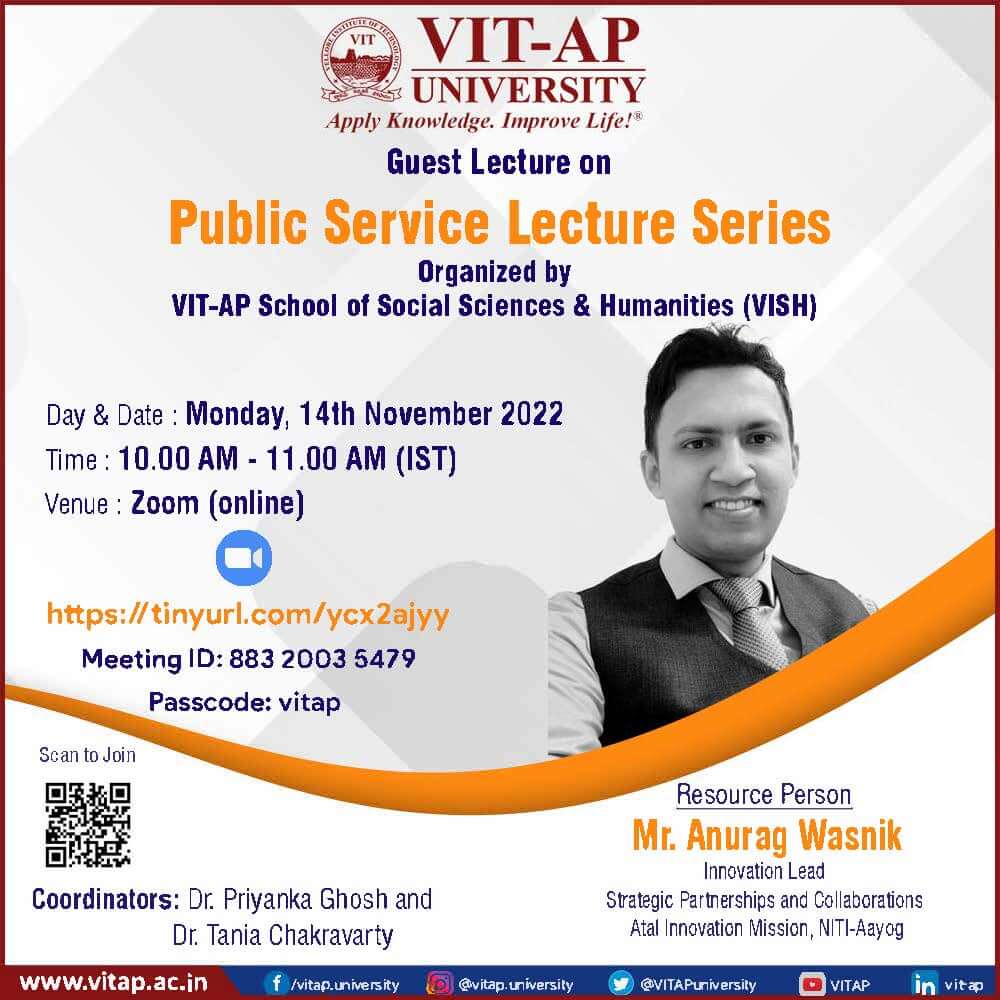
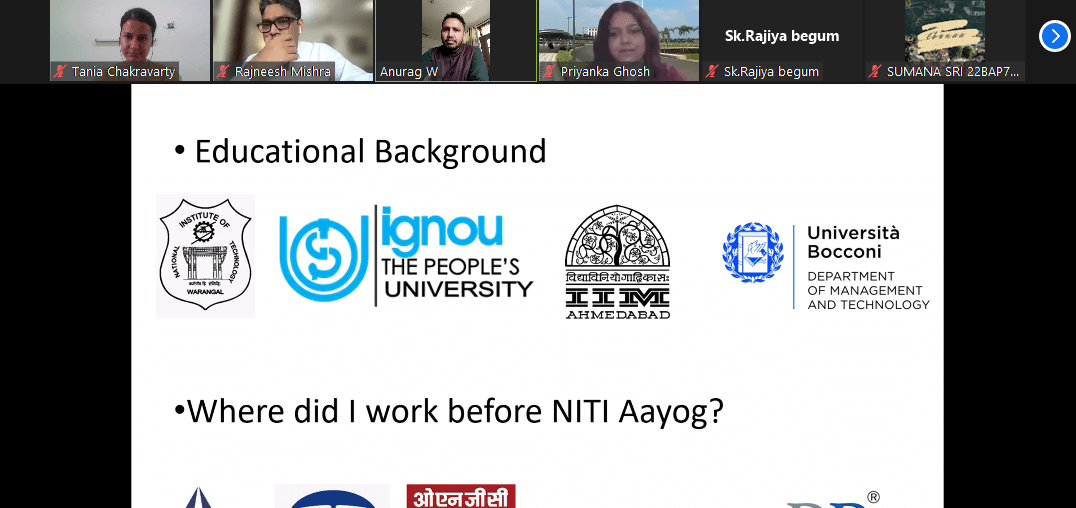
Mr Anurag Wasnik, Innovation Lead, Strategic Partnerships and Collaborations, Atal Innovation Mission, NITI-Aayog, delivered a guest lecture titled “My Journey into the Field of Public Policy” on Monday, November 14th at 10 AM. At the beginning of his lecture, Mr Wasnik discussed his academic and professional background before joining the NITI-Aayog. In his talk, Mr Wasnik explained the role of NITI-Aayog in creating policies for India and how it creates competition among different states on diverse parameters such as health, education, and innovation. In particular, he discussed the Atal Innovation Mission (AIM), which is a flagship programme of the Government of India to create and promote a culture of innovation and entrepreneurship in the country. He then talked about various initiatives launched by AIM, like the Atal Tinkering Lab, the Atal Incubation Centre, the Atal Community Innovation Centre, etc. Finally, he encouraged the students to learn about public policy in India so that they could contribute to society and impact the lives of many in a short time. Dr Priyanka Ghosh and Dr Tania Chakravarty coordinated the invited lecture.
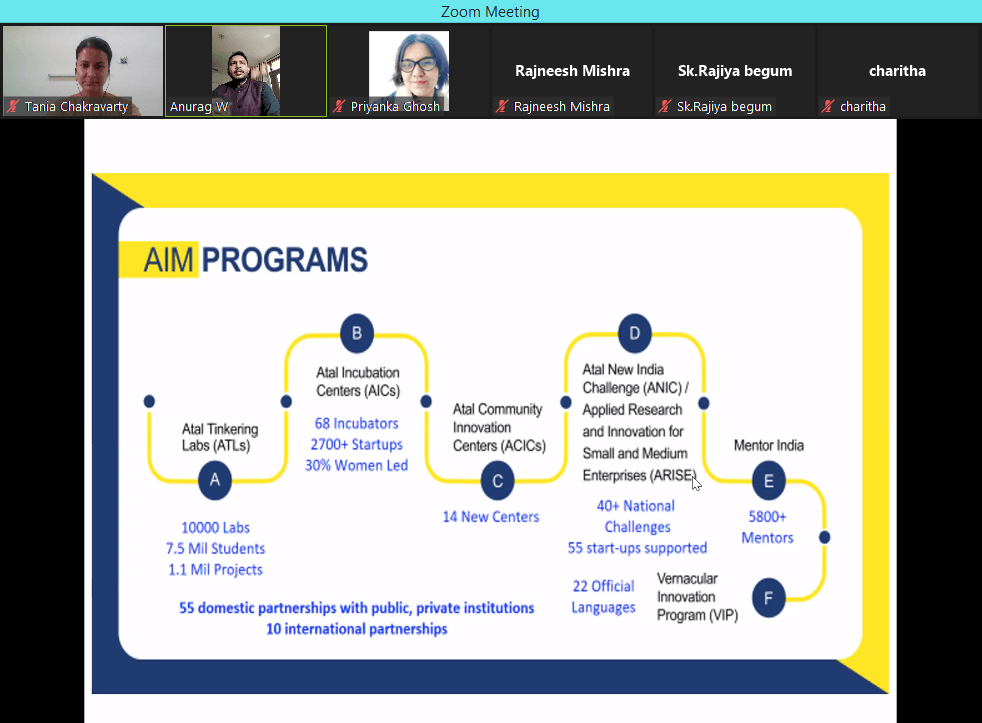
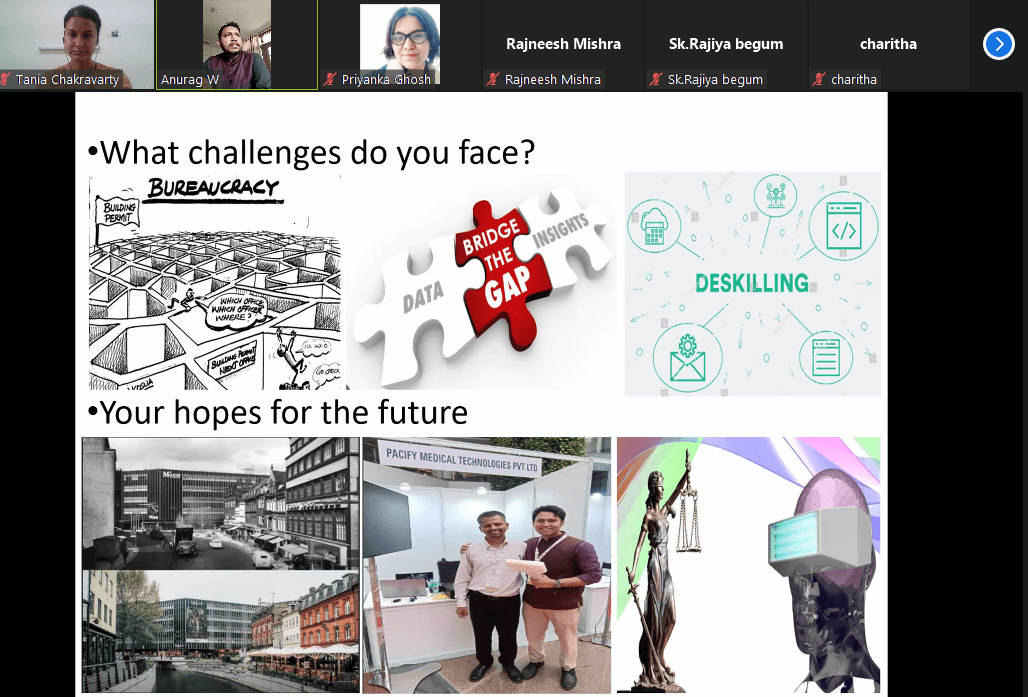
Field Trip – Kondapalli Fort, Ibrahimpatnam, Andhra Pradesh
Day & Date: Saturday, 12th November, 2022
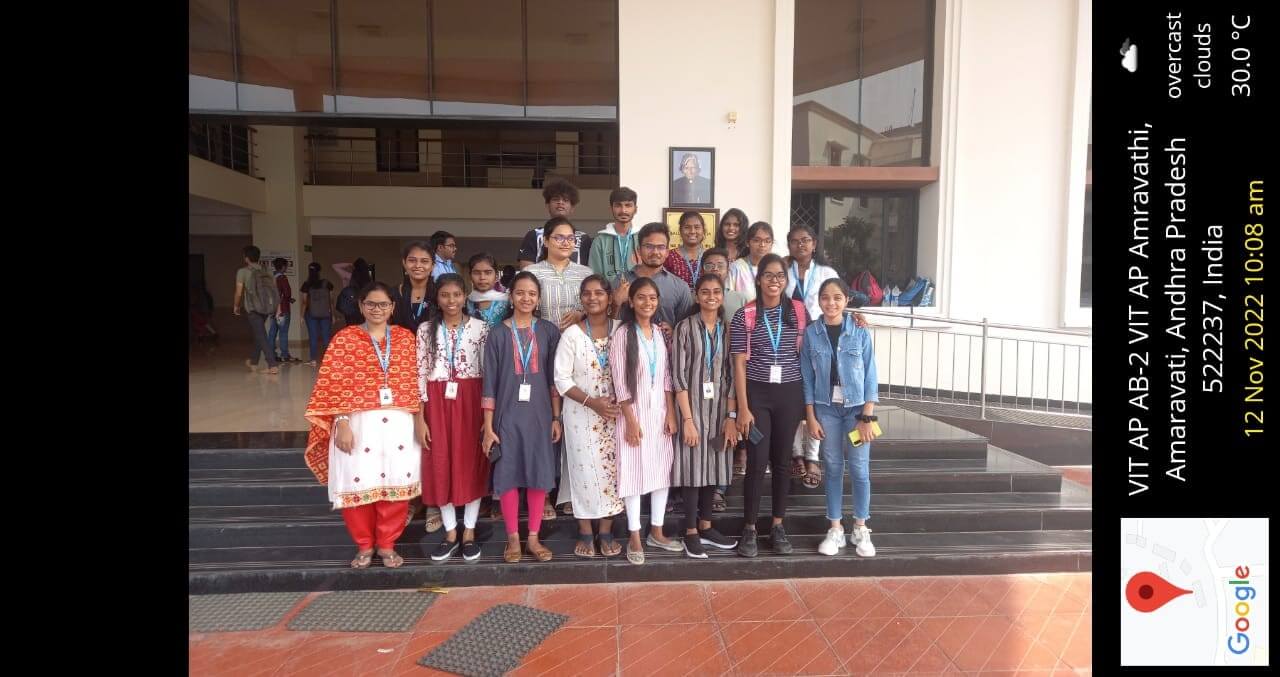
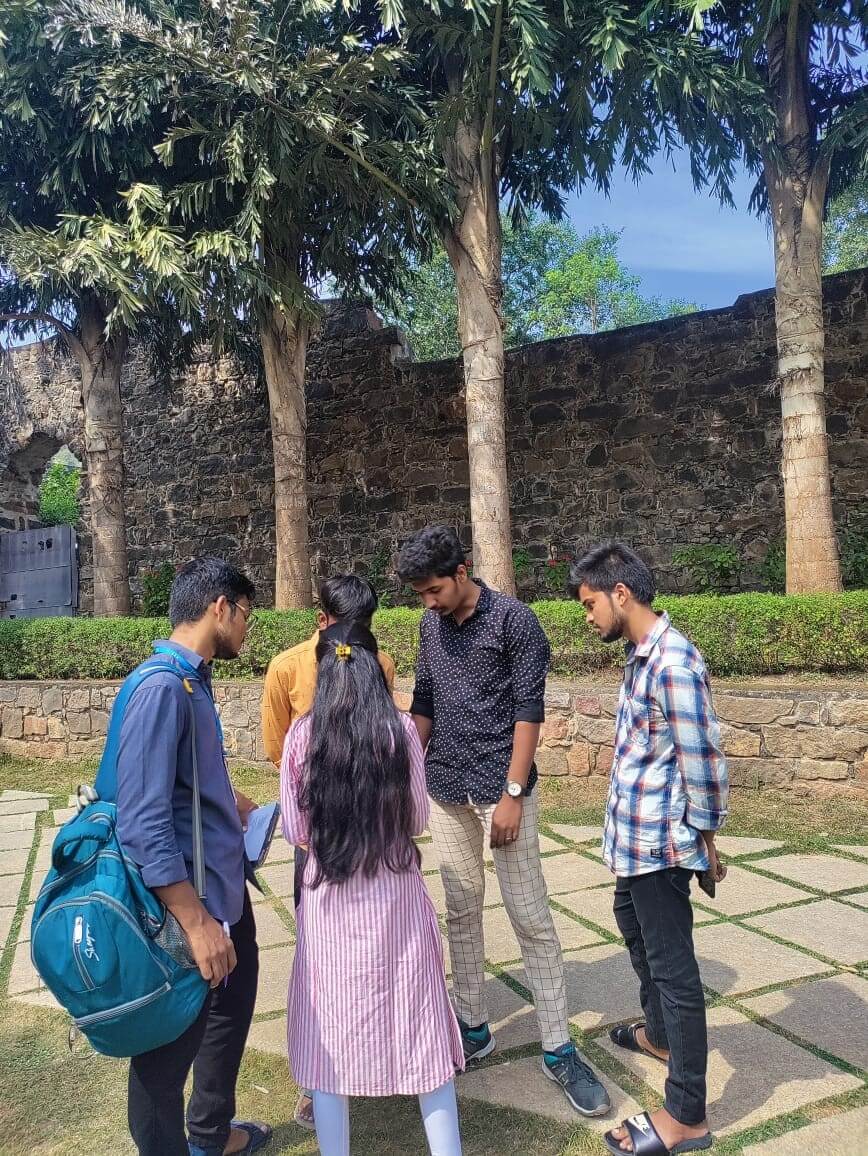
Survey at Kondapalli Fort
A one-day field trip to Kondapalli Fort was conducted on Saturday, November 12th, for B.A./M.A. 2nd year Public Service Students. Situated in the Eastern Ghats, the fort is located in the Krishna district of Andhra Pradesh. In the morning of November12, 19 students and two faculty gathered at the ground floor of AB-2 and boarded the VIT-AP University bus. The purpose of the field trip was to learn about the history of Kondapalli Fort, or Kondapalli Kota, and conduct a tourist satisfaction survey to understand tourists’ perceptions of the site. Students also visited the Kondapalli Fort Museum and learned about different rulers who occupied the fort in different periods, starting from the Reddy dynasty, Gajapati dynasty, Vijayanagar, Qutb Shahis, and the British Indian government.
Furthermore, students observed different architectural styles at the fort, including Persian, Bahamani, and Mughal. Additionally, they learned about various sculptures and inscriptions carved on granite stones. Besides gaining historical knowledge of the fort, students conducted a questionnaire survey to understand the present condition of the fort as well as tourists’ perceptions about the site. Most tourists who visited the site on November 12th came from different districts of Andhra Pradesh, such as Guntur, Krishna, NTR, and Vijayanagaram. Students collected data on tourists’ age, gender, nationality, occupation, education, the trip’s origin, number of visits, how the tourists came to know about the fort, and the tourists’ level of satisfaction regarding the tourism site. The field trip was organized by Dr. Priyanka Ghosh and Dr. Tania Chakravarty.
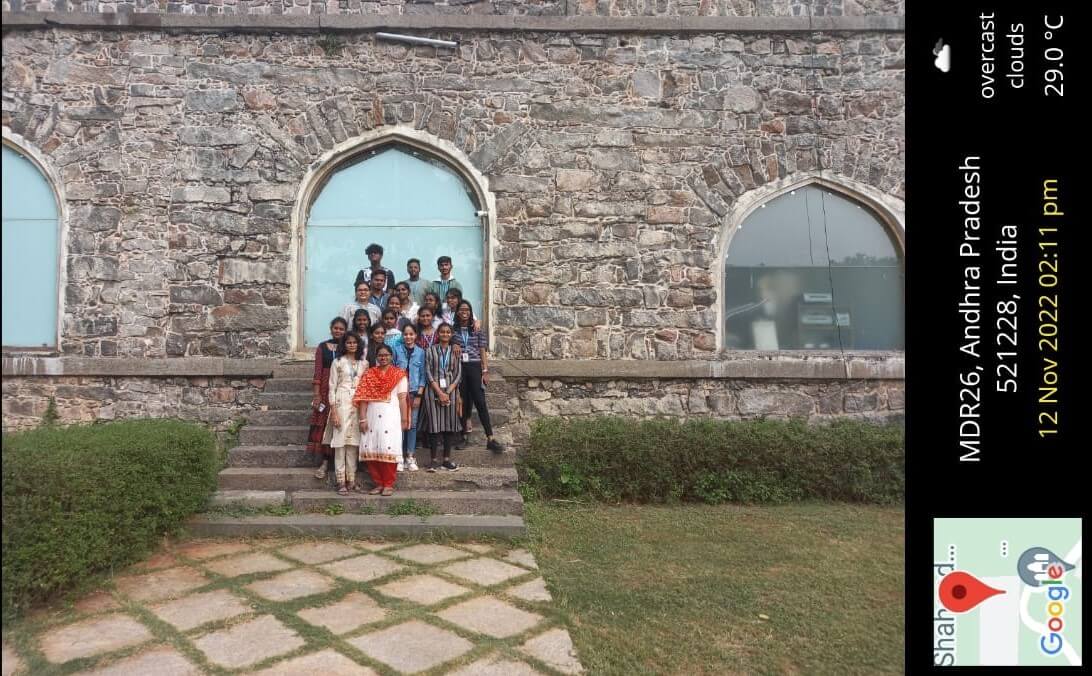
Guest Lecture: Design Thinking Requirements in Real World
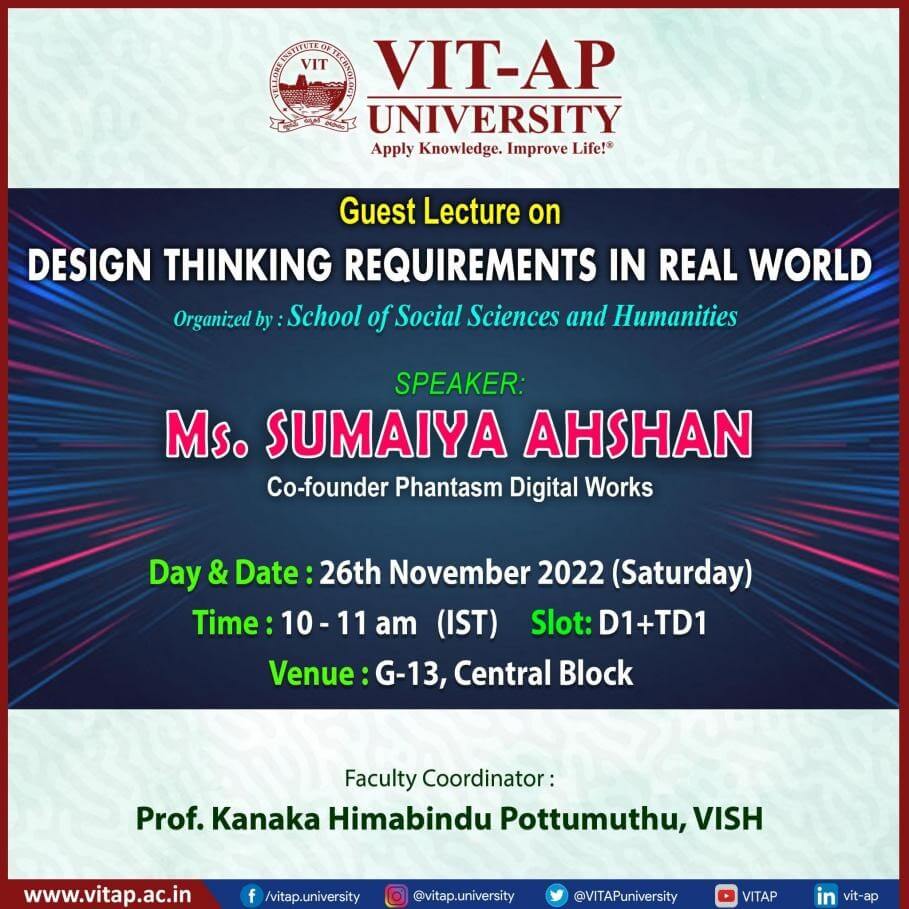
A guest lecture for the Design Thinking Fall Semester 2022-23 batch was organized on November 6, 2022, with an industry expert as the speaker. The speaker was Ms. Sumaiya Ahshan, a first-year BBA student at VIT-AP University, who co-founded a digital works firm named Phantasm in Vijayawada with her brother, an alumnus of the same university. During the COVID pandemic, they started their firm at home and have since made a name for themselves in the digital marketing industry, catering to clients in India and abroad. Initially, Sumaiya spoke about her firm without revealing her identity as a student of the university. She shared case studies from her work, highlighting design elements and client requirements. Their primary focus is on providing the best possible service to clients in the realm of digital marketing and advertising, with a particular emphasis on color coordination, content development, and marketing strategies. Sumaiya started working as a designer at the age of 14, which provided her with real-world experience beyond what she learned from books. The students were surprised when Sumaiya revealed her identity as a student of their campus. Her inspiring journey was well-received by many. The event was coordinated by Prof. Kanaka Himabindu Pottumuthu.
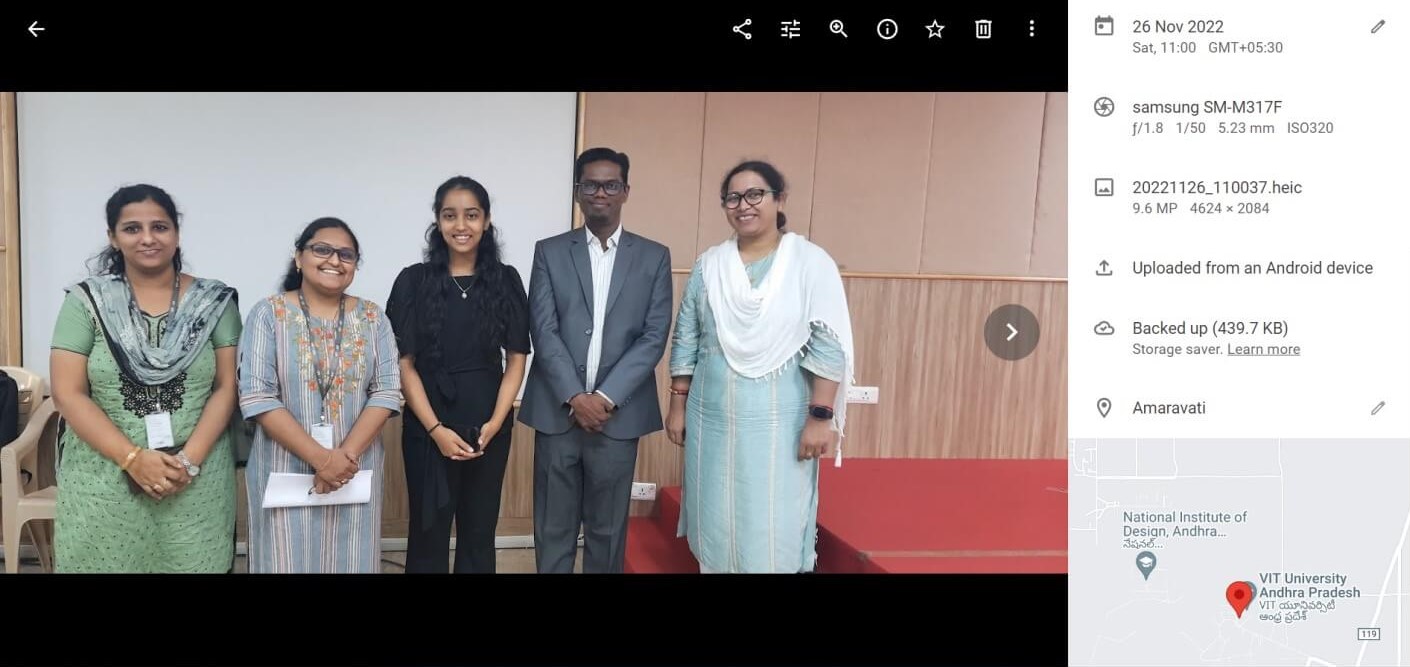
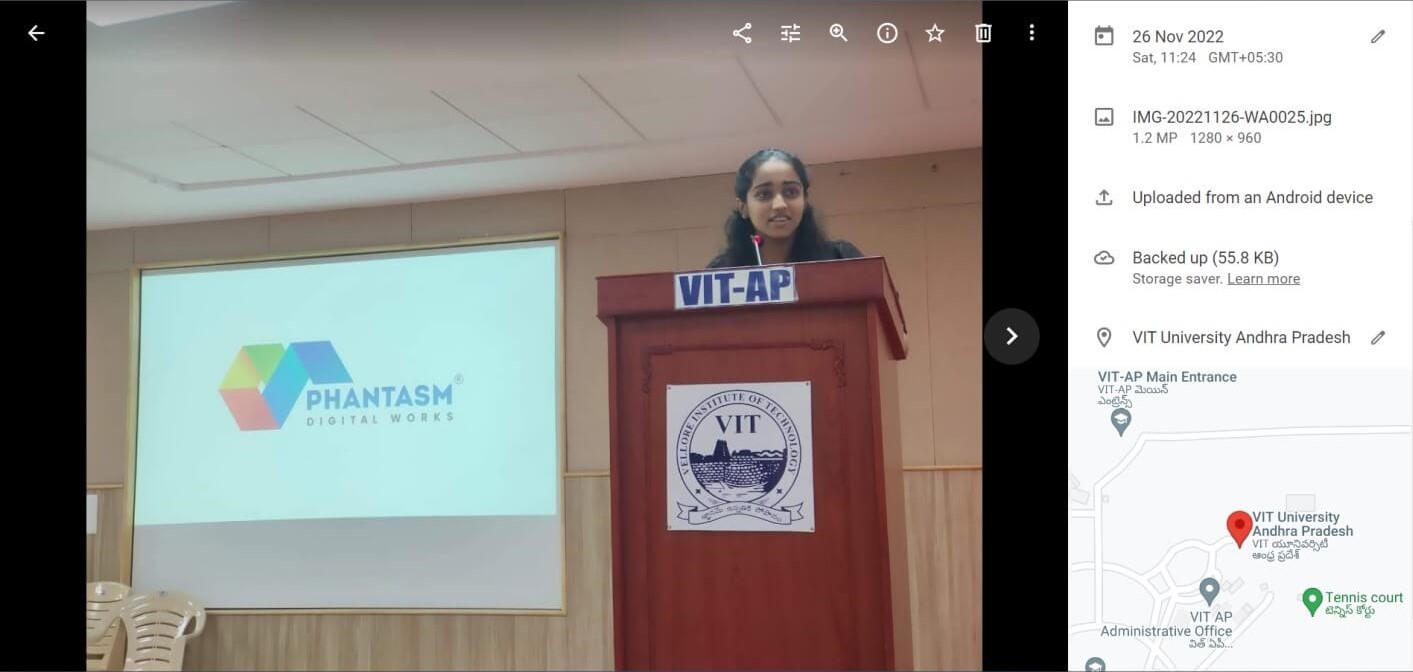
FDP: Preparing students for the 21st Century Workplace: Approaches and Practices
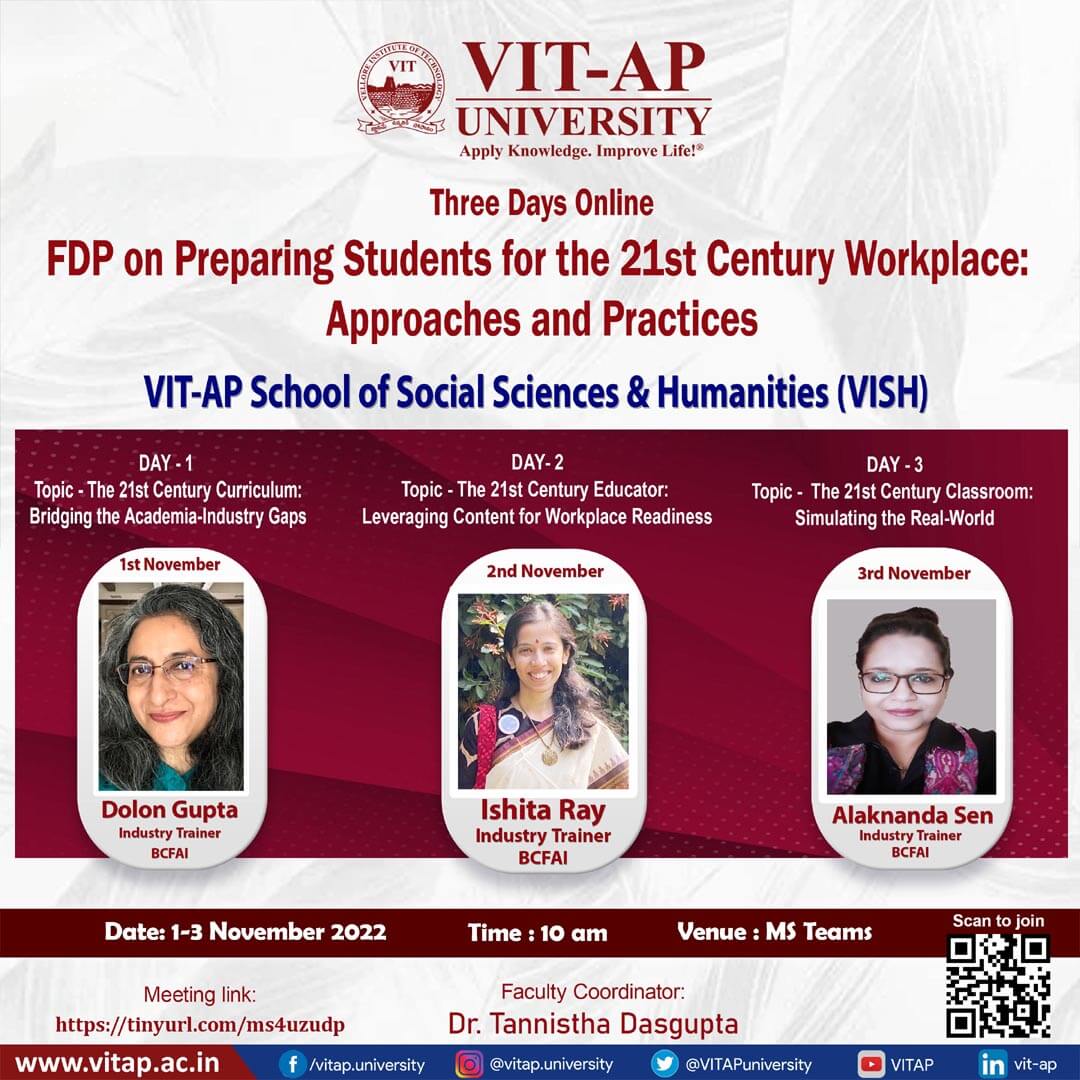
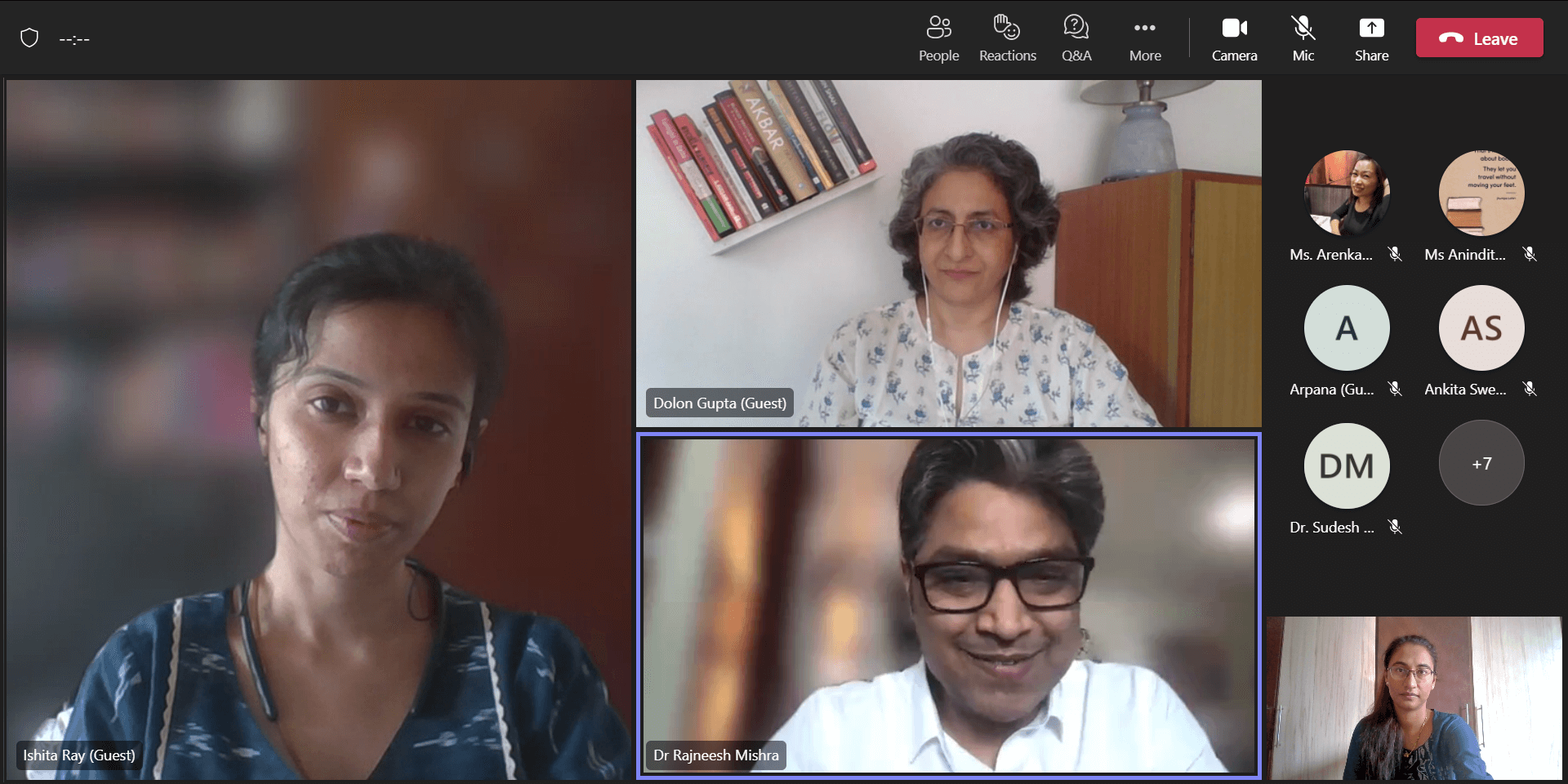
An FDP with three sessions were conducted by the School of Social Sciences and Humanities where resource persons from the industry were invited to interact with the faculty members of the School. The title for the first session was “The 21st century Curriculum: Bridging the Academia-Industry Gaps”. The key objectives of the session were to demonstrate how to evaluate an academic curriculum using industry lenses and how to use the backwash effects of Assessment to highlight and address gaps. Studies show that existing jobs will fast disappear and get replaced by new ones. In order to equip students to function effectively in a constantly evolving business environment, the curriculum needs to be regularly updated to remain relevant. It needs to focus on developing higher order skills that will future-proof students. The session was conducted by Dolon Roy, co-founder BCFAI (Business Communication Facilitators Association of India).
The title of the second session was “The 21st Century Educator: Leveraging Content for Workplace Readiness. The resource person of the session was Ishita Ray, a facilitator and trainer in the field of business and intercultural communication and design thinking. The second session focussed on the role of educators in curating, creating and using learning content in Business English and communication courses: how can learning content be designed, developed and curated in a way that can help students face increasing levels of complexity of interaction in 21st century workplaces?
- The session was divided into three parts:
- ● The 21st century learning context
- ● How to leverage learning content as seen through the lens of the Developmental Model of Linguaculture Learning (DMLL) by Joseph Shaules
- ● The Approach in Practice: The Evolving Role of an Educator
The 3rd session discussed the “The 21st Century Classroom: Simulating the Real World”. It highlighted the importance of a student centric classroom. The discussion was around how to make classrooms more dynamic with robust delivery style, innovative curriculum and collaborative activities. The spotlight was on the necessity to create an experiential learning space with authentic material and meaningful exchange among participants. The essence of the session was to upskill our students with 21st century competencies so that they are industry ready. The resource person of the session was Alaknanda Sen, An ESL teacher, soft skills and behavioral trainer. The FDP was coordinated by Dr Tannistha Dasgupta.
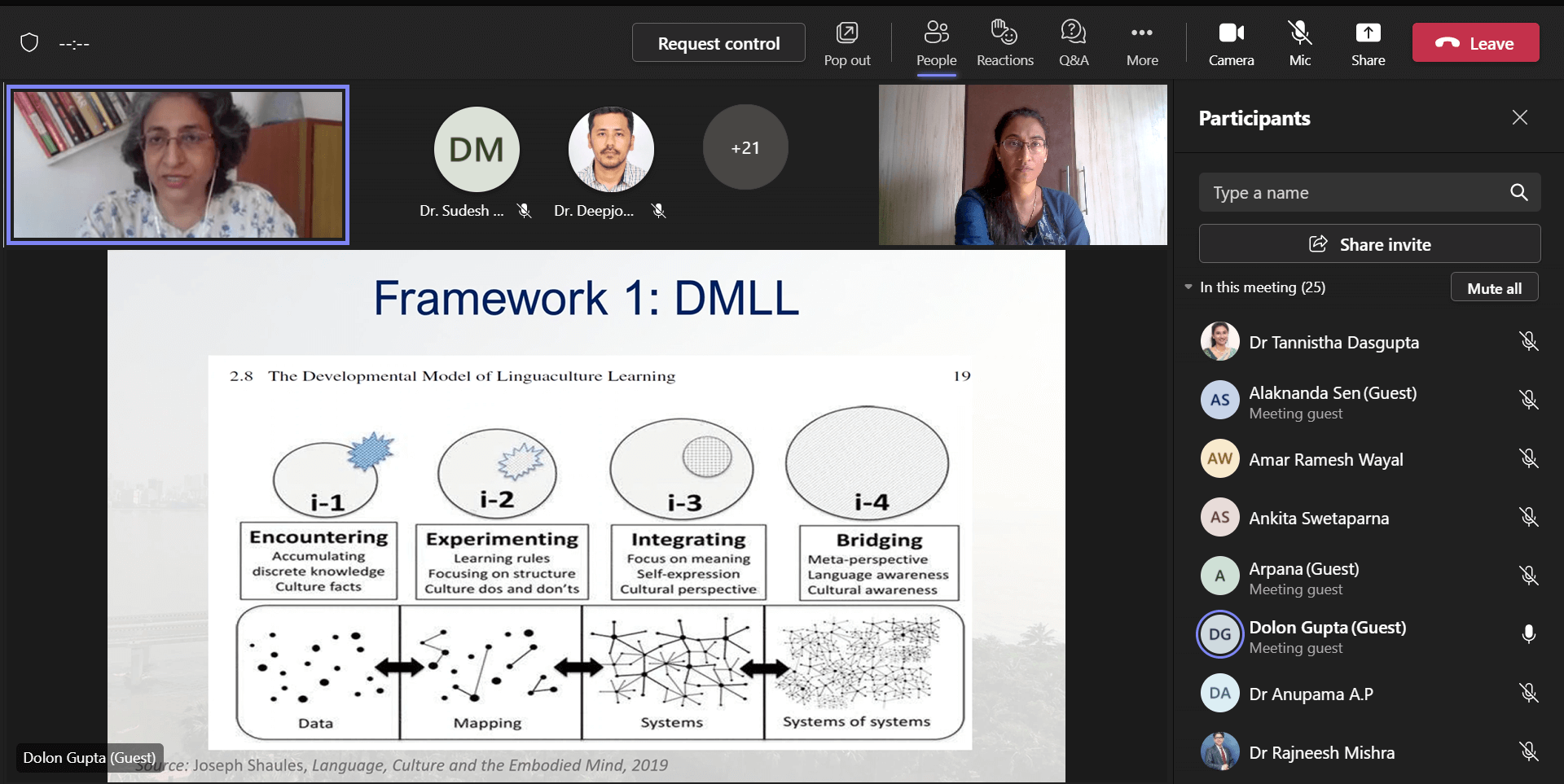
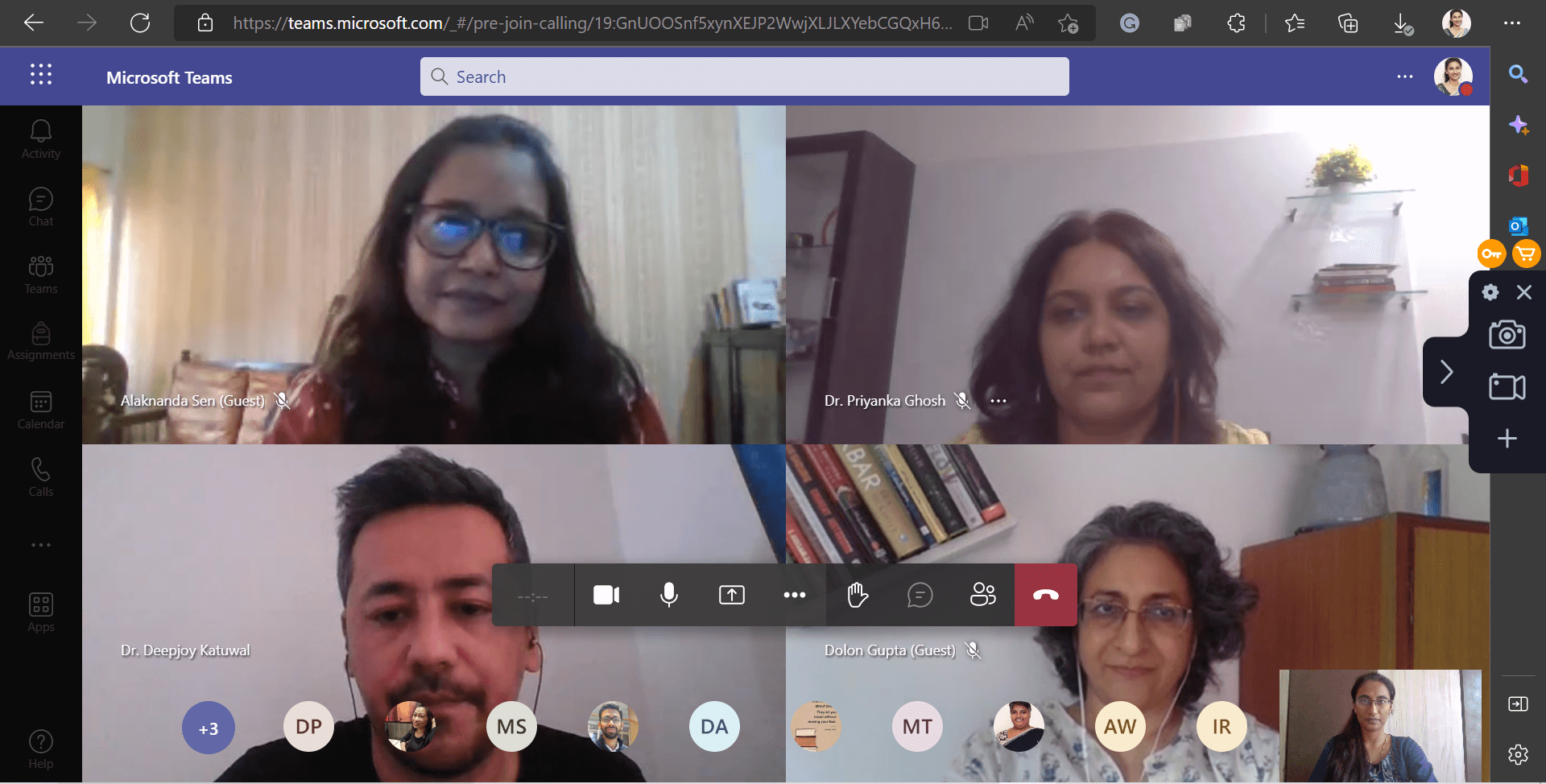
Invited Lecture on “24hr cafés feel like an urban shelter for me”: Understanding South Korean’s socio-economic challenges through the case of night consumption in Seoul
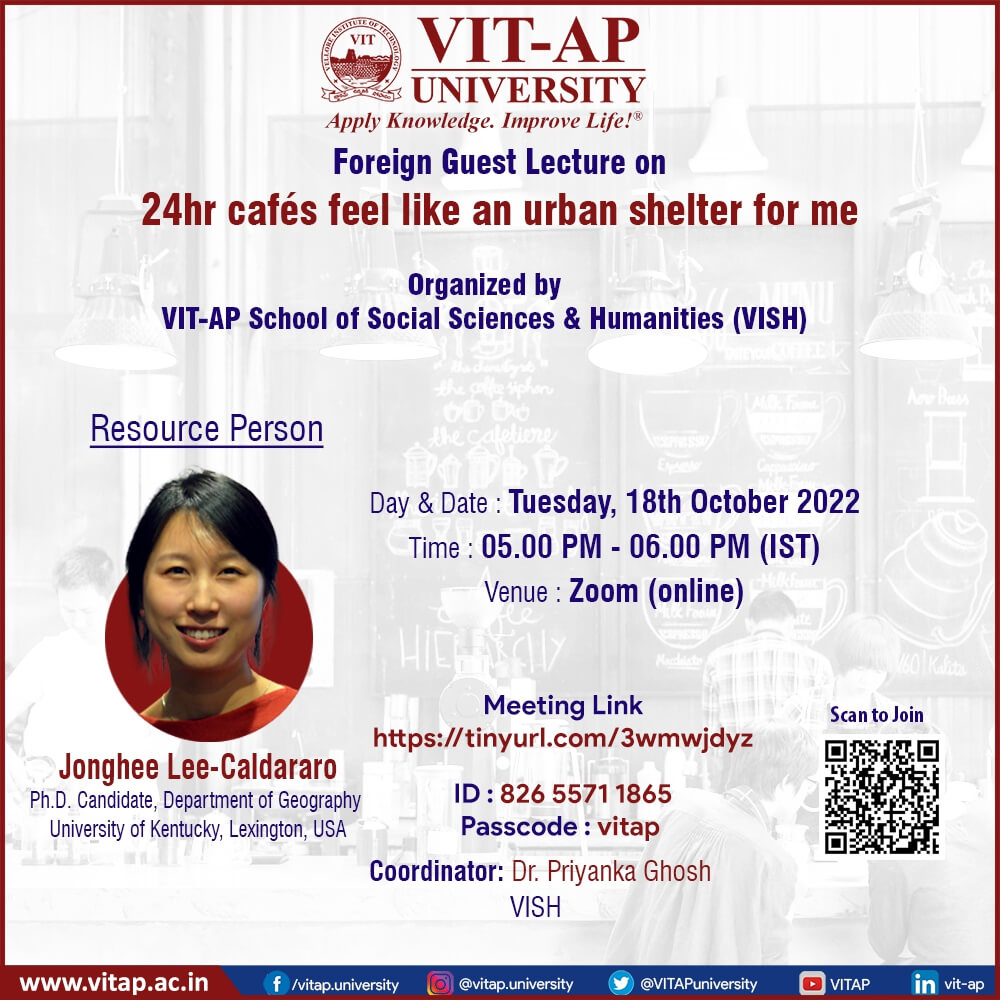
A guest lecture was organized on 18 October 2022 on ‘24hr cafés feel like an urban shelter for me’. The purpose of this guest lecture was to make undergraduate students understand the rapid economic development of South Korea as well as the spatial dimensions of socio-economic challenges that many South Koreans who live in or commute to Seoul have faced. In her lecture, Jonghee explained how the government of South Korea focused on developing a nighttime economy and promoting Seoul, the capital of South Korea, as a city that never sleeps. Jonghee’s research specifically focuses on 24hr cafés in the city of Seoul. It examines why people in Seoul stay after midnight at cafés instead of at a home or any other space, and what the broader implications are regarding society, culture, and the economy. In addition, Jonghee traced the origin of café culture in Seoul and showed how the total number of cafes increased from 767 in 2002 to 15,184 in 2017. Finally, she explained three precarity that can explain why people spend their nights at the 24hr cafés: job insecurity, social isolation, and housing. The lecture was coordinated by Dr Priyanka Ghosh.
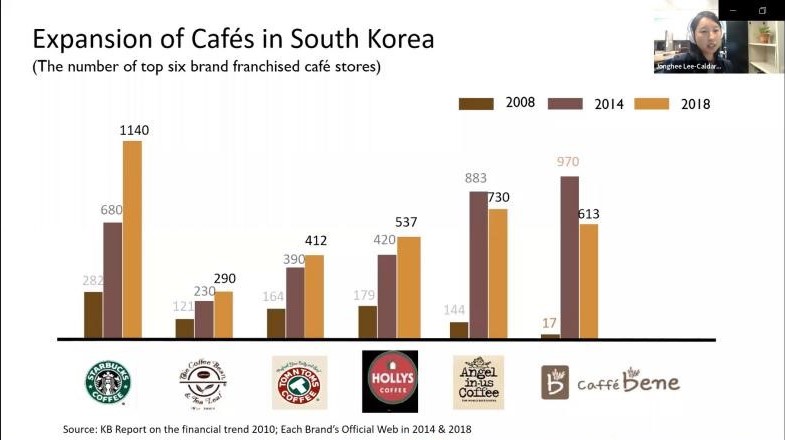
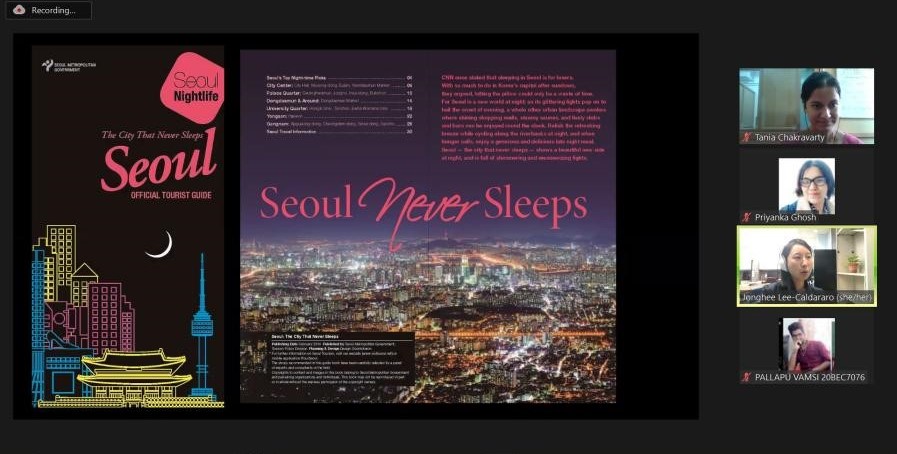
International Seminar on Sustainability and Governance: Current Trends in Tourism Industry
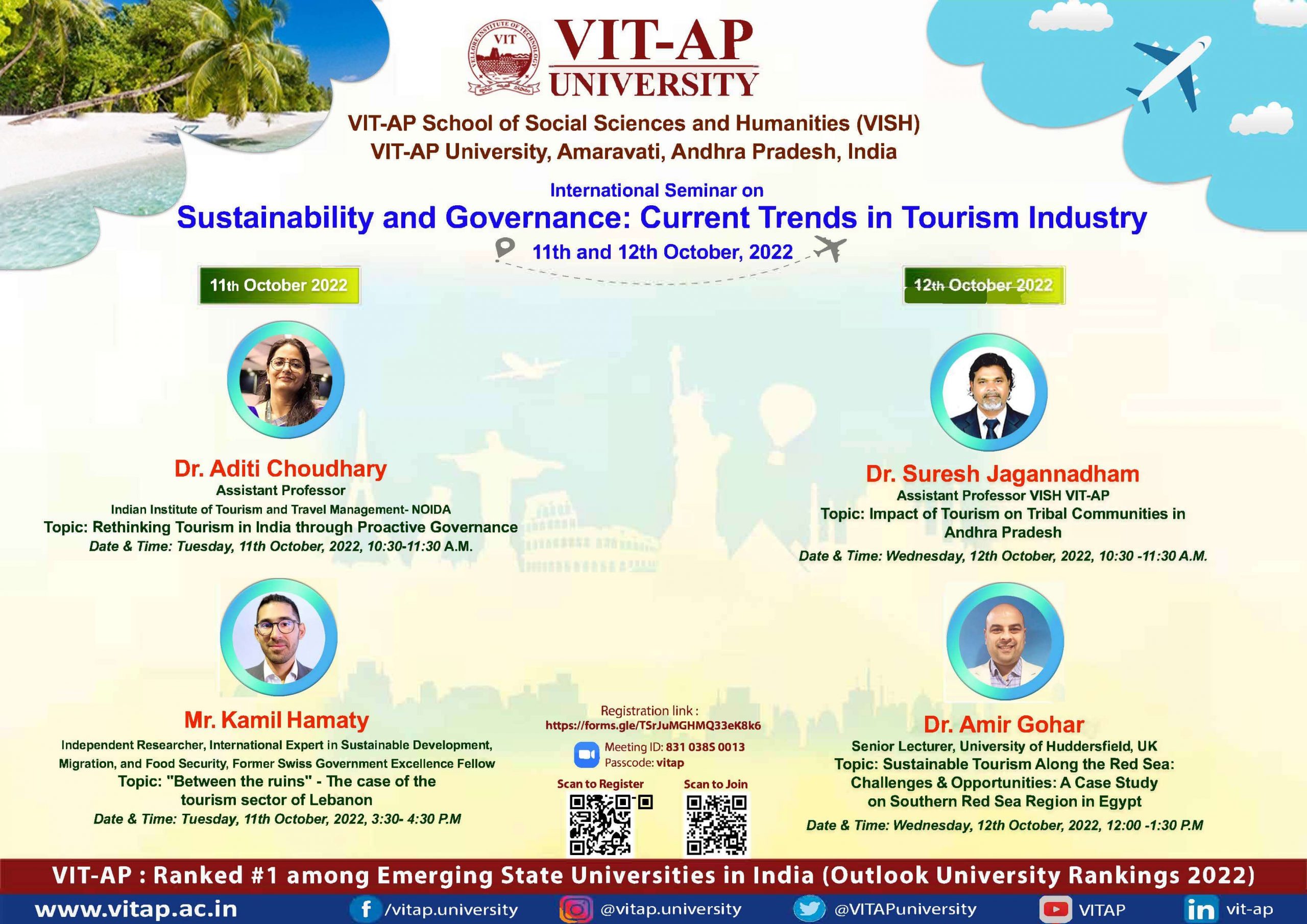
An international seminar on Sustainability and Governance: Current Trends in Tourism Industry was organized from 11 to 12 October 2022. The seminar discussed how the government, private sector, and non-profit organisations have attempted to reduce the environmental impact of visitors. The role played by local communities in tourism management and their relations with government and non-government agencies formed a part of the discussion. Furthermore, this seminar focused on how tourists consume a destination and how the dissemination of pro-environmental tourist behaviour is becoming an essential criterion for reducing the negative impact of the tourism industry on our environment.
The first day of this seminar was graced by Dr Aditi Choudhary, Assistant Professor and Chairperson Internship, Indian Institute of Tourism and Travel Management- NOIDA and Mr Kamil Hamaty, Independent Researcher, International Expert in Sustainable Development, Migration, and Food Security. Dr Aditi’s talk explained how sustainable tourism is not a form of tourism but an approach to any type of tourism. Tracking the history of tourism development policies in India, she also discussed current governmental efforts to make tourism more sustainable through the Sustainable Tourism Criteria Index (STCI). Mr Kamil Hamaty explained the evolution of the tourism industry in Lebanon in its changing socio-economic and political contexts. He discussed the positive and negative impacts of the private sector on the tourism industry. In the second day’s first session, Dr Suresh Jagannadham, Assistant Professor, at VIT-AP University, delivered his talk on the negative impacts of tourism development on tribal communities in Andhra Pradesh, India. In the second session, Dr Amir Gohar, Senior Lecturer, at the University of Huddersfield, UK, spoke about the challenges and opportunities of sustainable tourism development along the southern Red Sea coast in Egypt. All the speakers made a strong case for sustainable policy development in the tourism sector, including greater involvement of local communities. The international seminar was coordinated by Dr Priyanka Ghosh and Dr Tania Chakravarty.
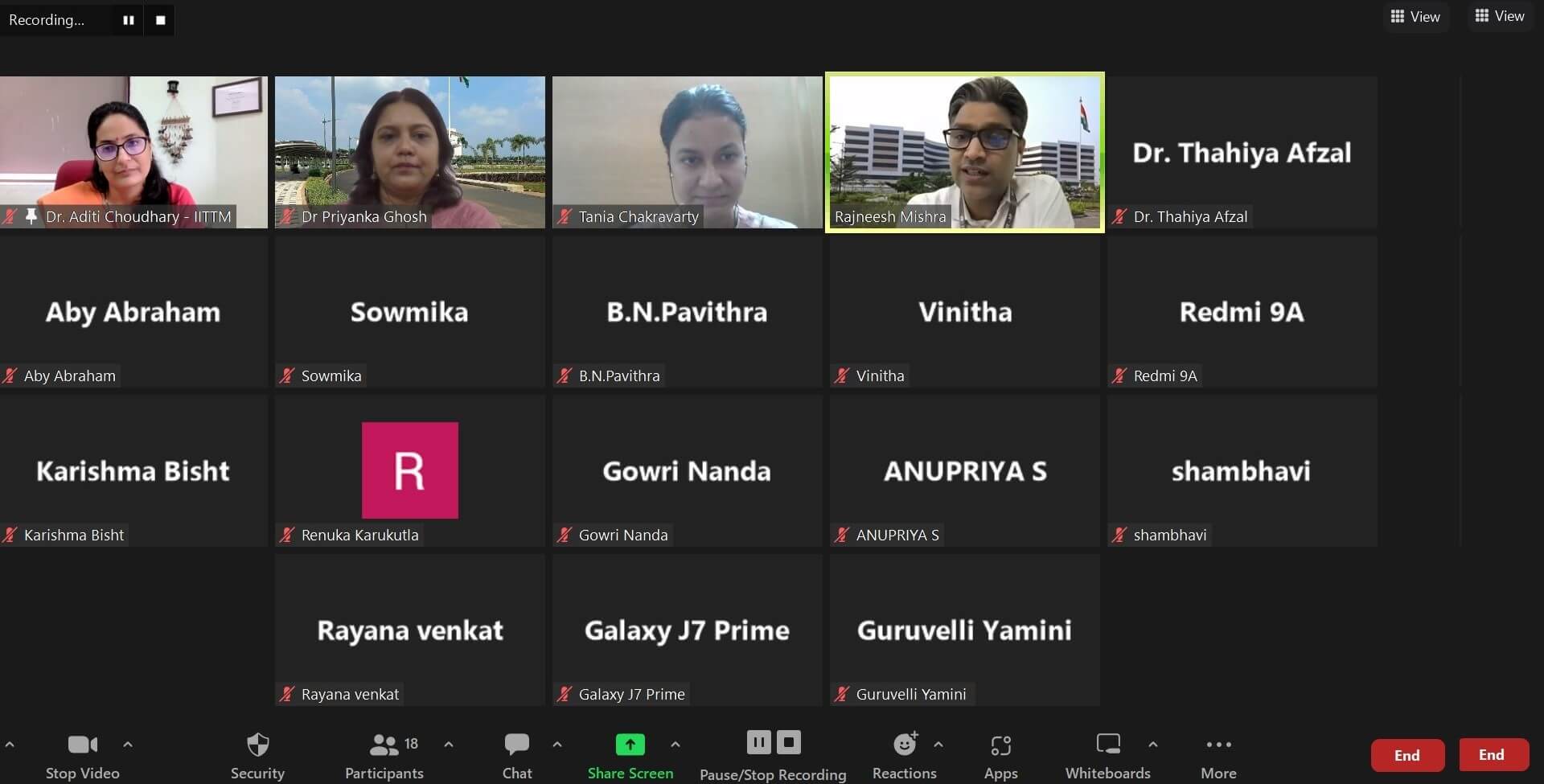
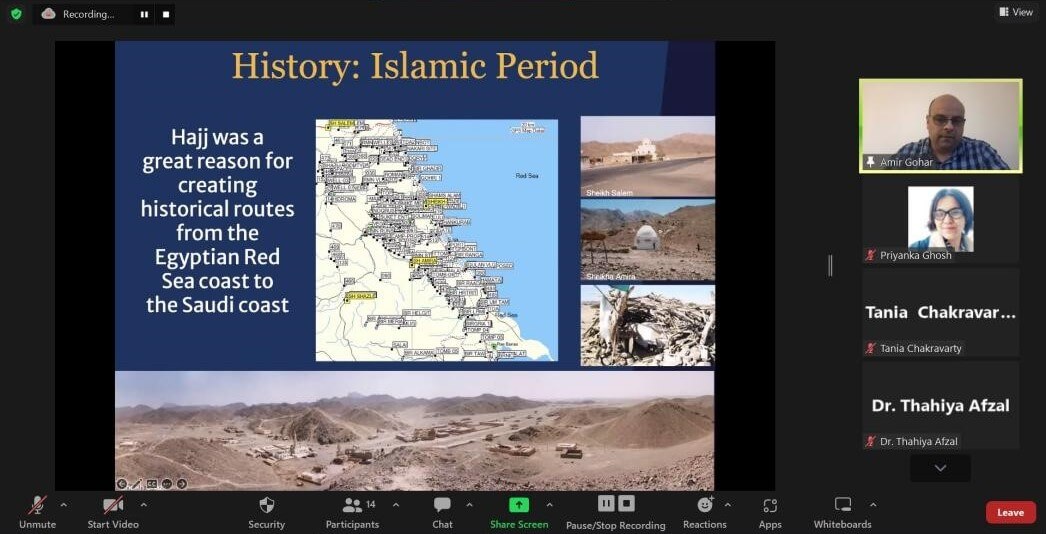
Guest Lecture: Design Thinking and New Age Applications of Technology in Design
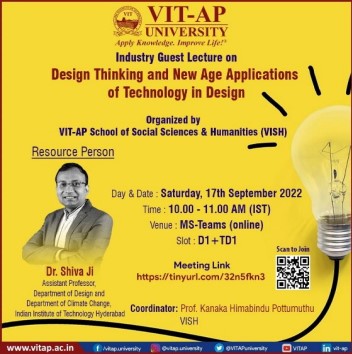
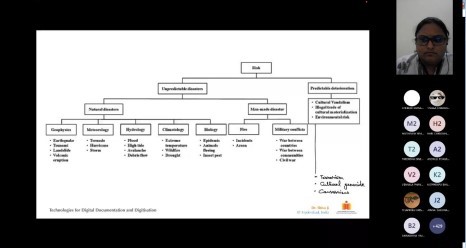
An industry guest lecture was organized for the Design Thinking course of the Fall Semester 2022-23 batch on September 17, 2022, from 10 to 11 am. Dr. Shiva Ji, who is an Assistant Professor at IIT Hyderabad in the Department of Design & Department of Climate Change at the Indian Institute of Technology Hyderabad, was invited as the speaker. His research areas include Design for Sustainability, Sustainability Assessment, LCA, New Age Products/Services, Virtual and Augmented Reality, and Architectural Heritage Digital Reconstruction. About 500 students and six faculty members from the campus attended the lecture on the Microsoft Teams platform. During the lecture, Dr. Shiva Ji spoke about the process of Design Thinking and his projects on reliving heritage sites through virtual reality. He emphasized the importance of documenting and experiencing heritage and culture, and presented his research on virtual reality with heritage sites and the need to restore the heritage through VR. His talk covered various aspects of design thinking and technology collaboration. Dr. Shiva Ji re-emphasized the importance of thinking creatively and not forgetting the design element in any idea. He highlighted that Design Thinking can be a problem solver in the simplest way and emphasized the need to experience certain places or monuments to promote knowledge creation and creativity development. The event was coordinated by Prof. Kanaka Himabindu Pottumuthu.
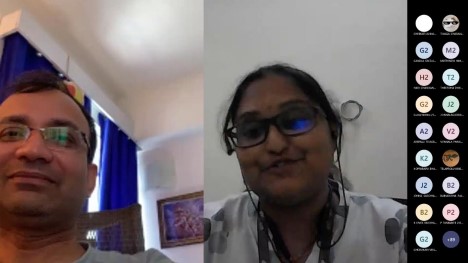
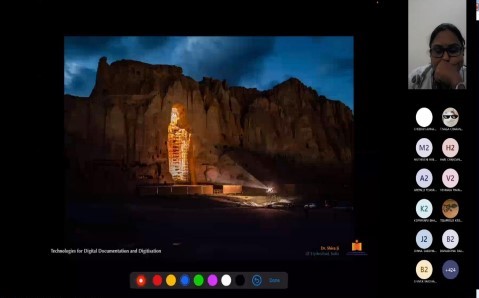
Public Service Lecture Series: Journey to Public Services
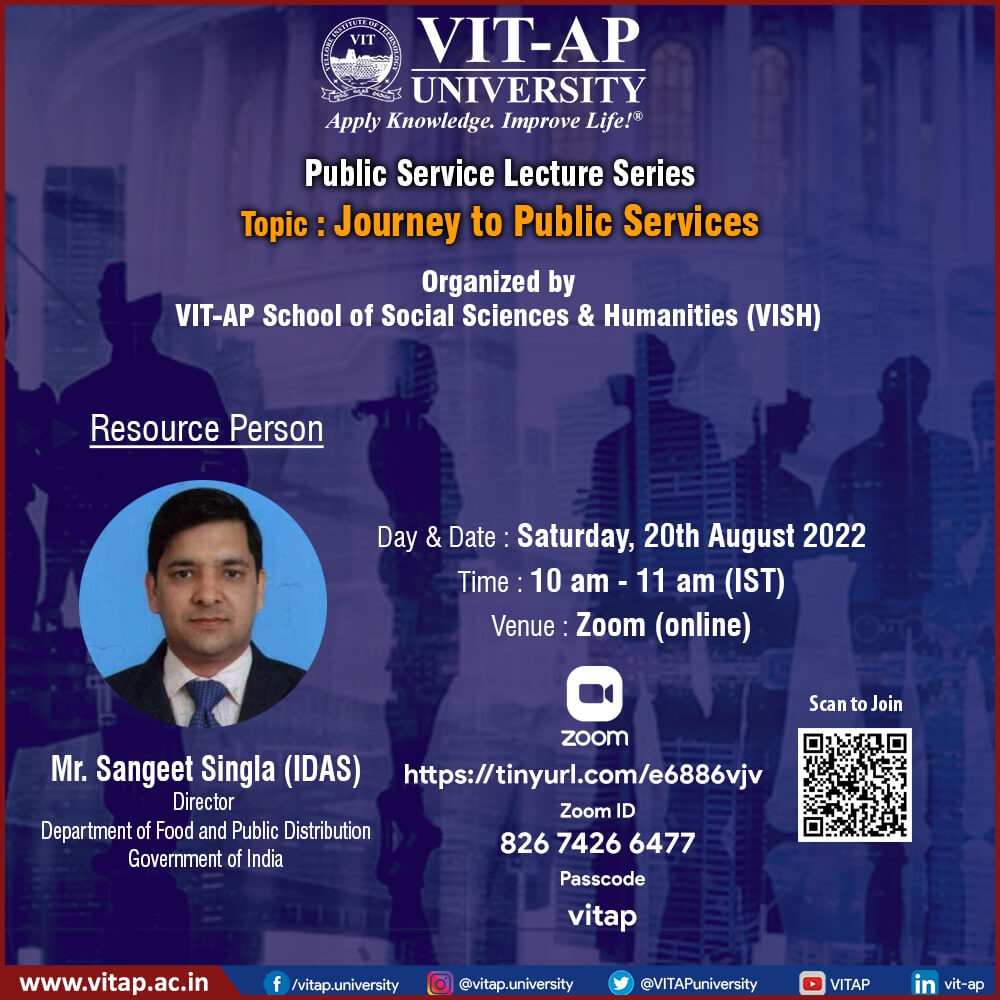
Mr. Sangeet Singla, Director, Department of Food and Public Distribution, Government of India, delivered an invited lecture titled “Journey to Public Services” on Saturday, 20th August, 2022. As a part of the Public Service Lecture Series, the purpose of this lecture was to create awareness about importance of public servants as a career opportunity. Mr. Singla also discussed the limitation of a civil servant and emphasized the role of passion to serve the nation. He also shared his work experience with the students and shared some strategies to qualify the Civil Services Examination. Additionally, he pointed out some necessary skills such as data analysis and presentation skills which are required in today’s jobs. The event was attended by faculty members and current students of DDP BA-MA Public Services. Students, interested in joining the programme, also attended the event with their guardians. The event was coordinated by VISH, VIT-AP University.
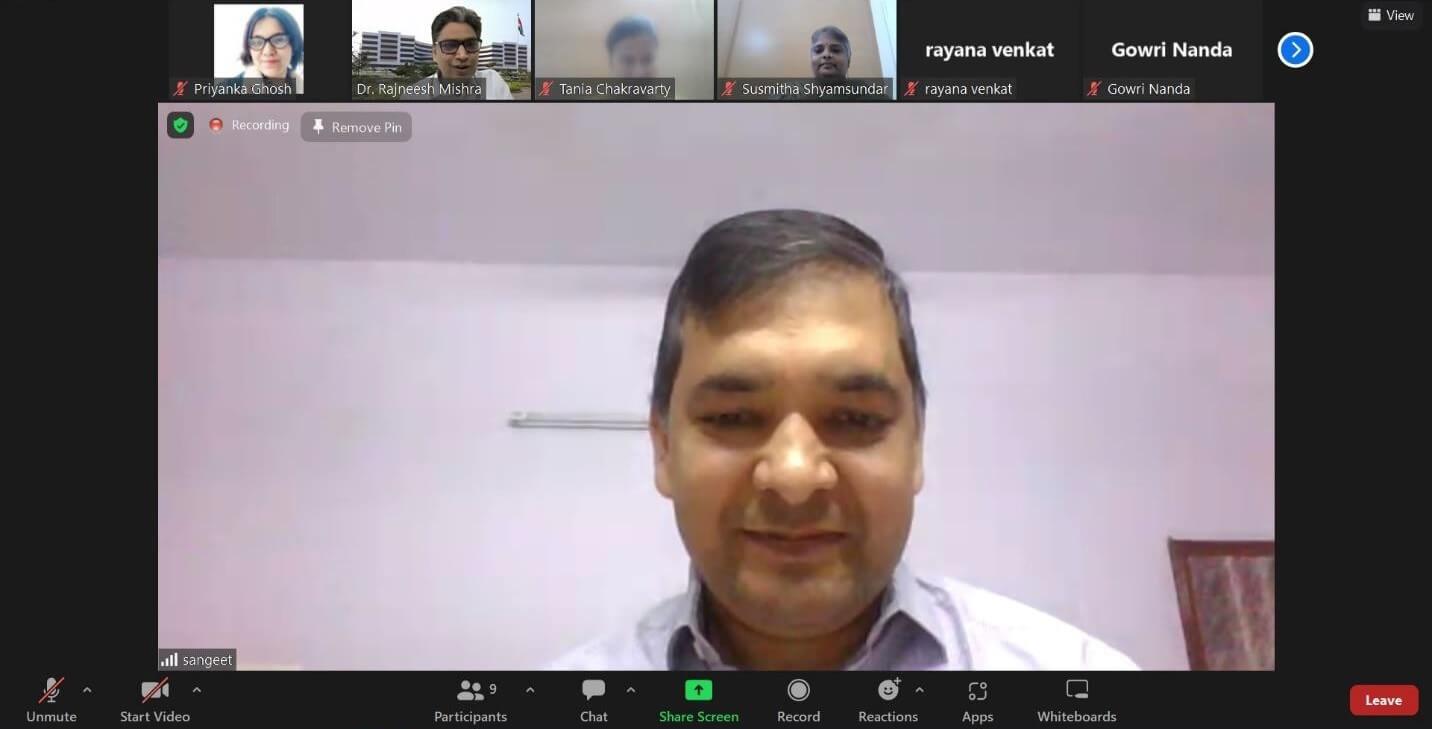
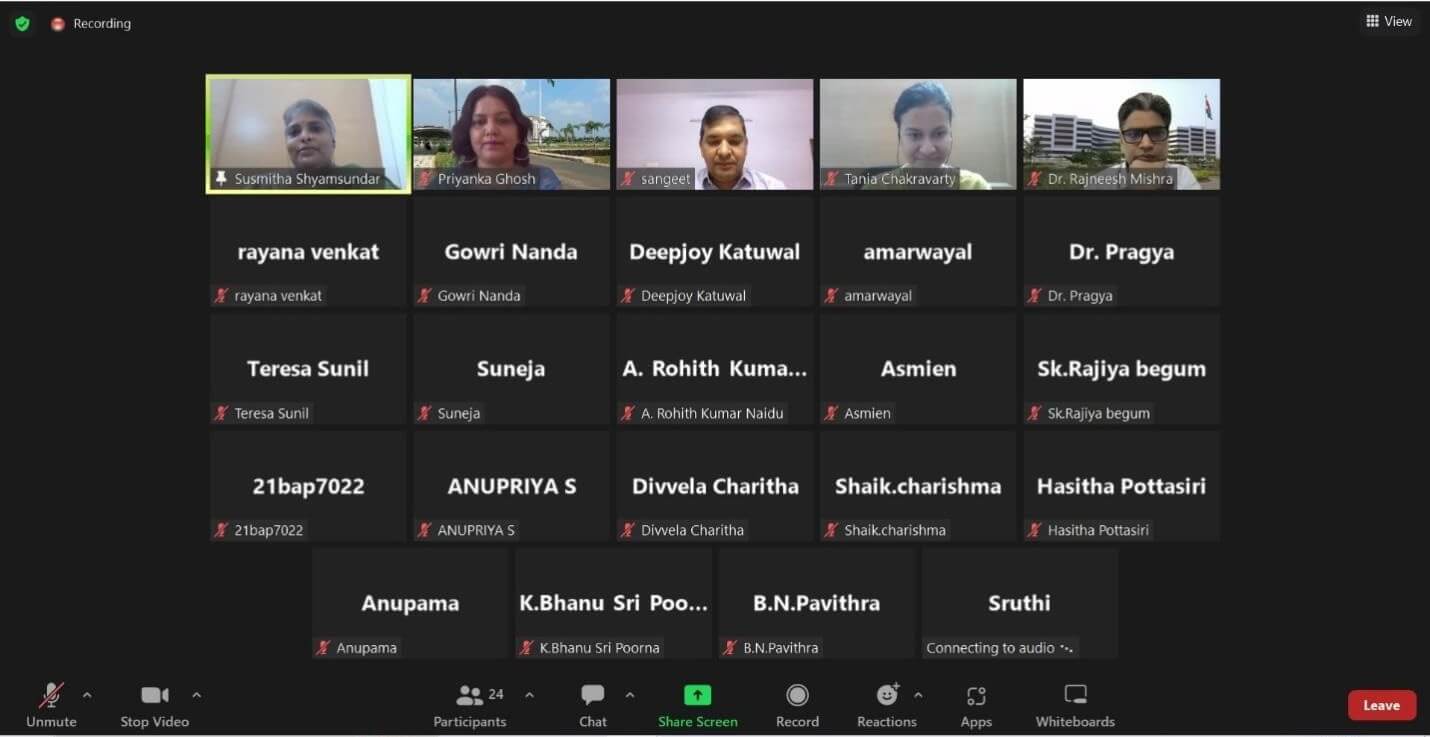
GUEST LECTURE: Social innovation from creative collaboration between public, private and citizen sectors
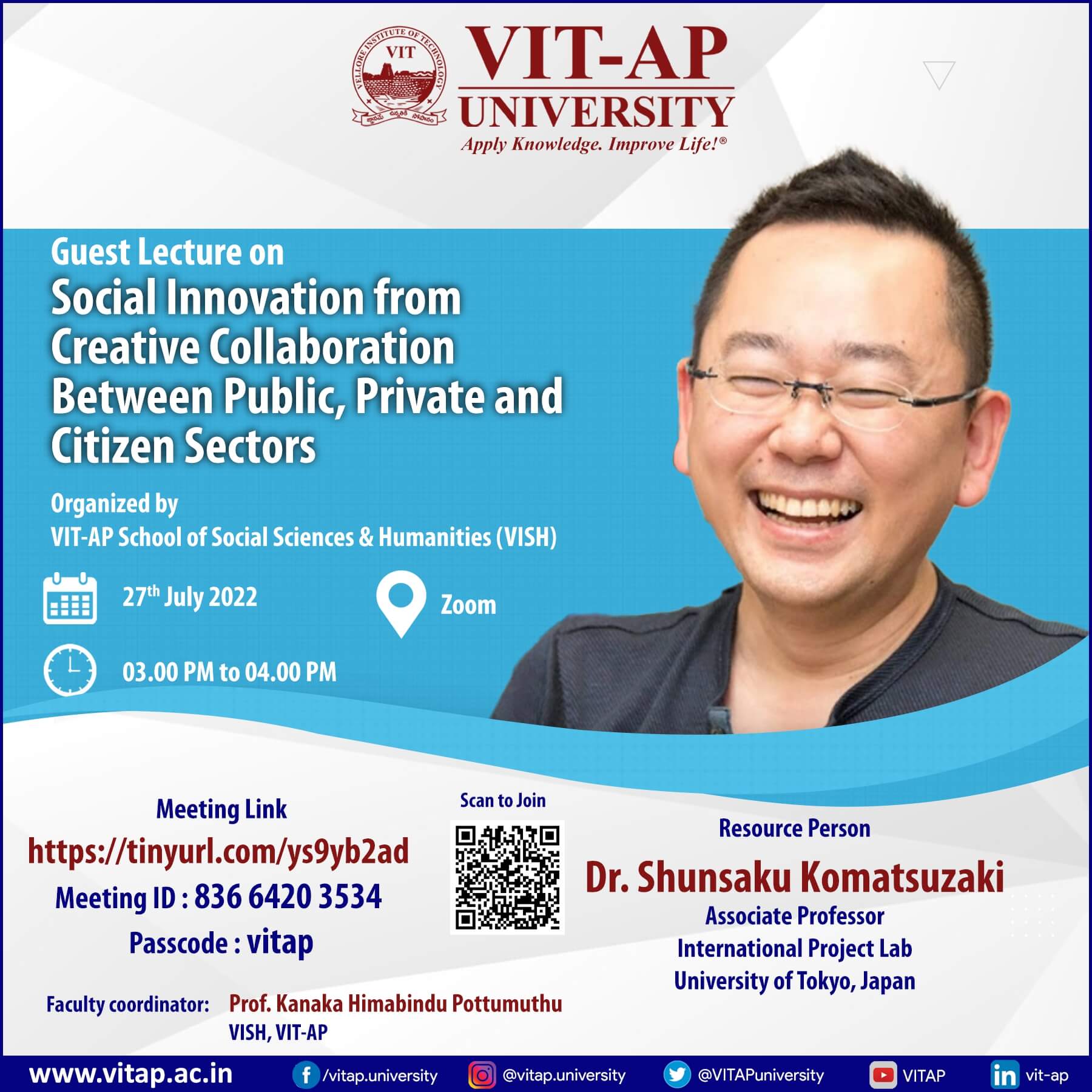
Dr Shunsaku Komatsuzaki, Associate Professor, Department of Civil Engineering, The University of Tokyo, Center for the Development of Global Leadership Education was invited to deliver a lecture on 27 July 2022. In the talk, he spoke about the importance of the use of energy in developing sustainable smart cities. He specifically discussed his research on energy systems and the importance of local governments in Japan and Stockholm. It was interesting to hear his research findings on the multilayered framing of sustainable energy policy. Dr Rajneesh Mishra, Dean VISH and Dr Susmitha Shyamsundar, Associate Dean VISH had given their support and remarks during the session. The session was conducted online on Zoom and was available live on YouTube on the university link. https://www.youtube.com/watch?v=w6-dJ3Qxa0oThe event was organized by Prof. Himabindu Pottumuthu.
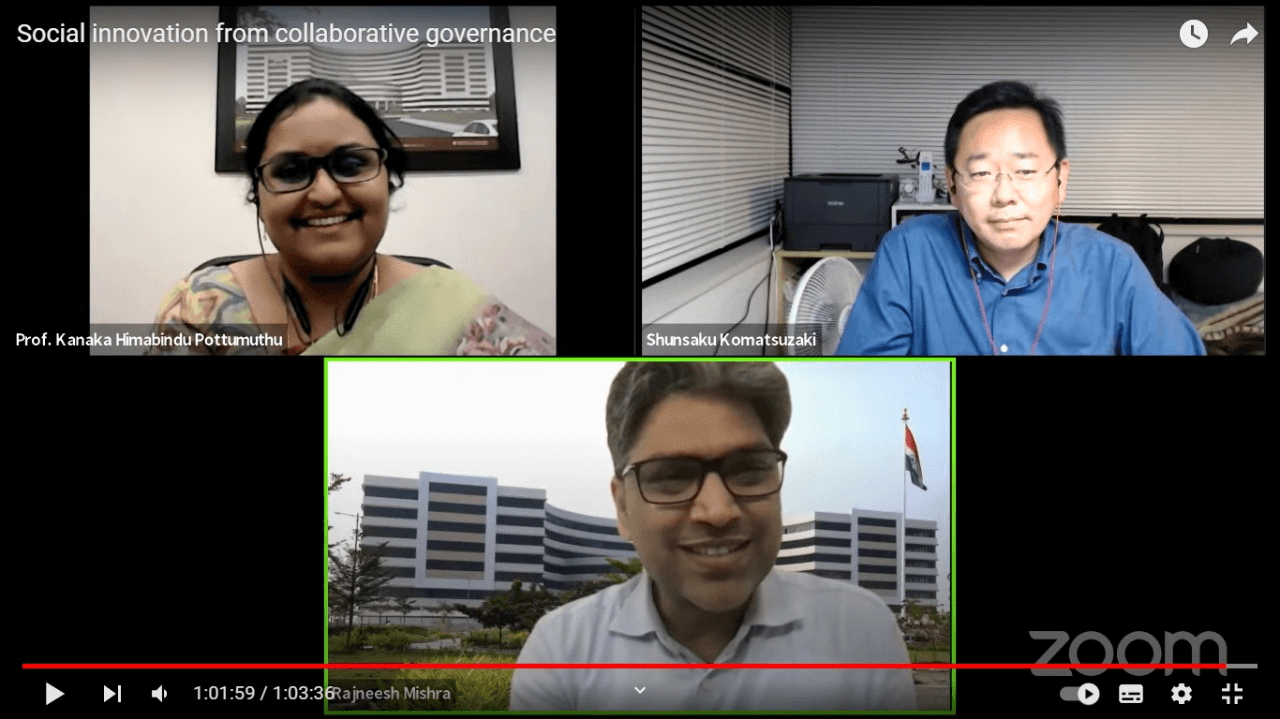
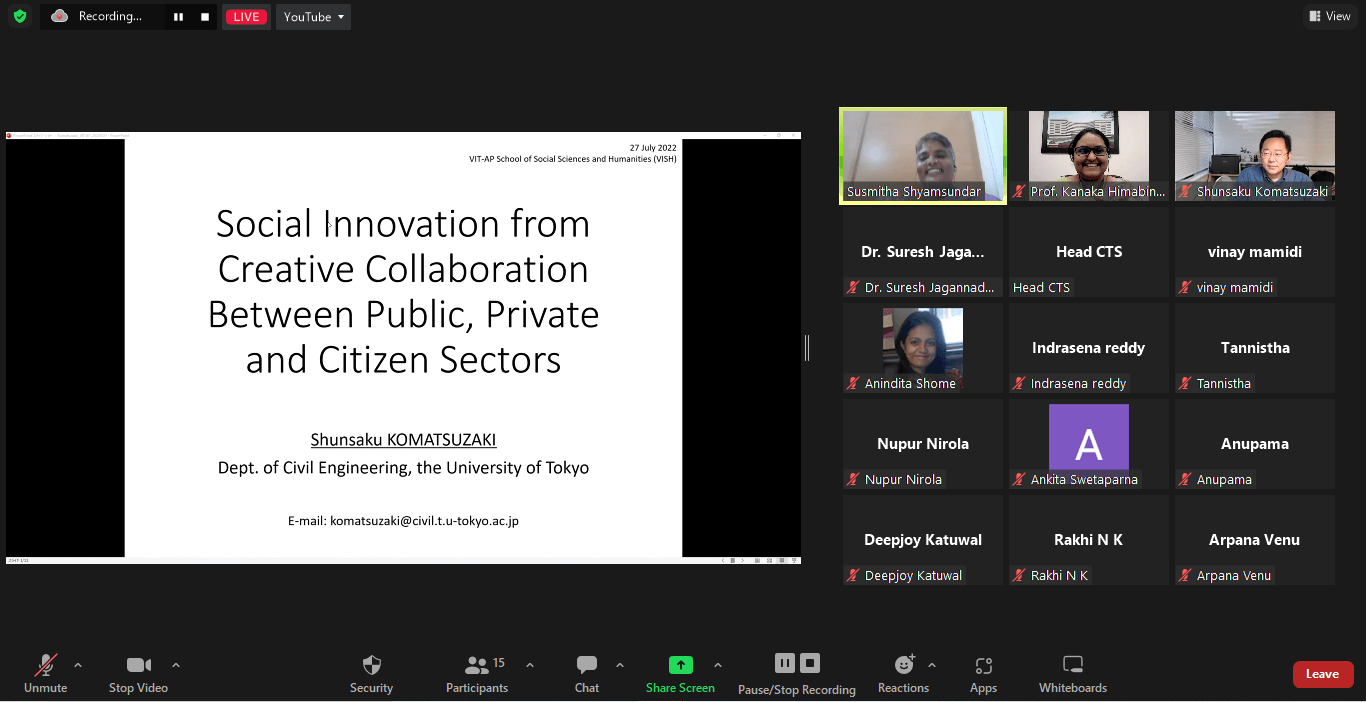
GUEST LECTURE: Cognitive Psychology
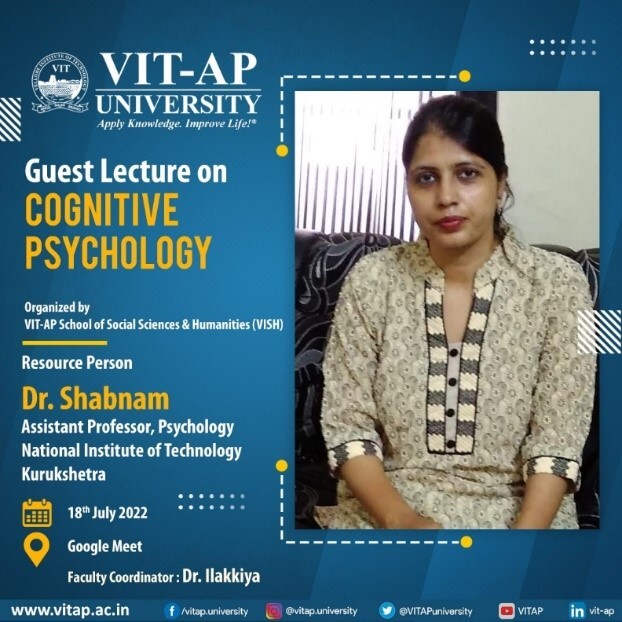
A online guest lecture was conducted on July 18, 2022 for students who had enrolled in the introduction to Psychology course. Dr. Shabnam, Assistant Professor of Psychology, NIT-Kurukshetra delivered a talk on cognitive psychology. In the guest lecture, students were helped to explore the nuances of cognitive psychology and how it is relevant in today’s world. The link between cognitive psychology and artificial intelligence (AI) was discussed, as was how AI can help us understand our minds better. The potential to revolutionize the way we think and approach problems using cognitive psychology was highlighted. Furthermore, the lecture shed light on how understanding cognition can help us better understand ourselves and others, as well as improve our decision-making skills. With this knowledge, the students would be better equipped to make informed decisions that could benefit them both personally and professionally. Finally, the need of the hour regarding cognitive psychology research and its implications for society was discussed. The guest lecture was organized by Dr Ilakkiya.
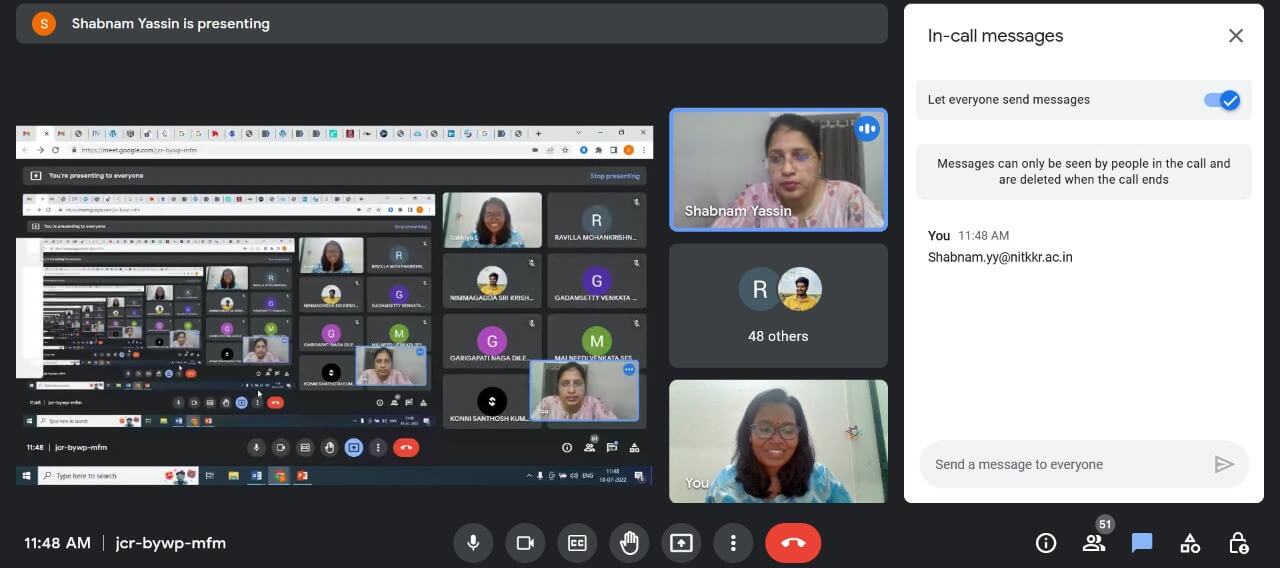
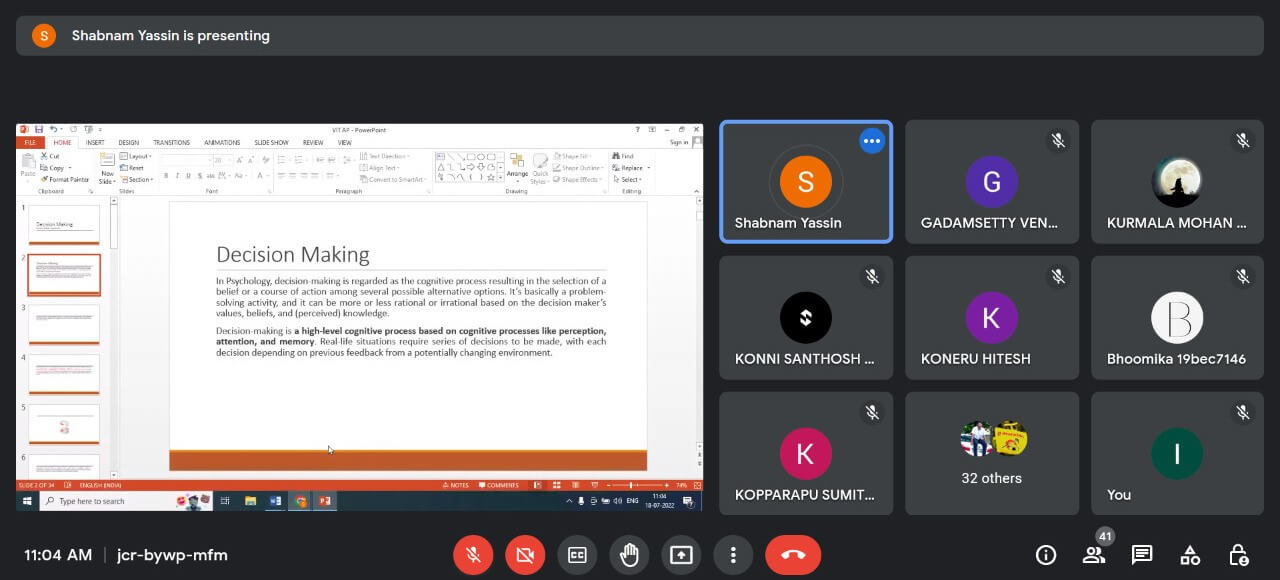
Workshop on proposal writing for funding agencies
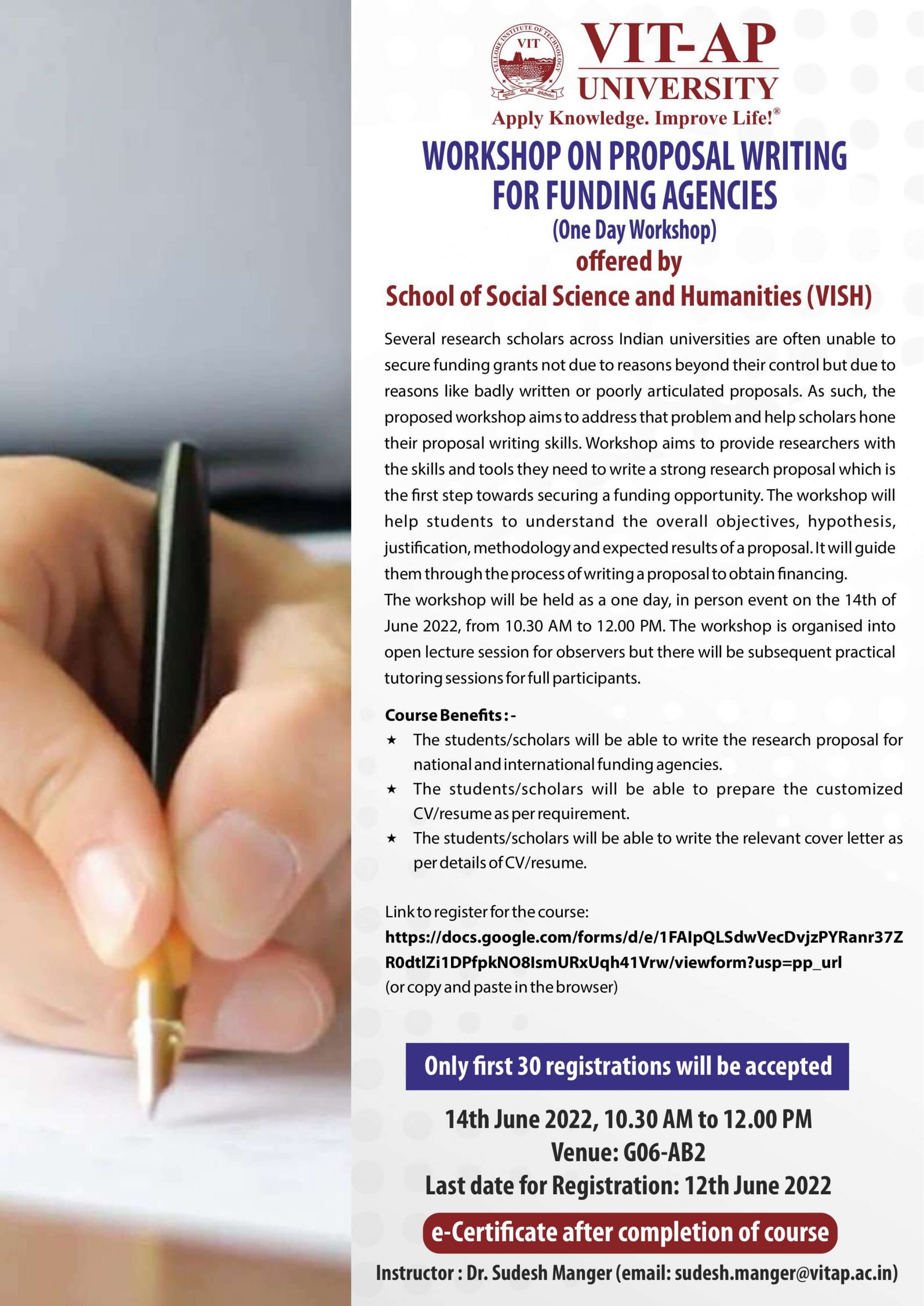
Workshop on Proposal Writing for Funding Agencies was conducted on 14th June 2022 by the School of Social Science and Humanities for the research scholars of VIT-AP. It was instructed by Dr. Sudesh Manger to help them understand the basic structure of research proposal. The workshop was scheduled for 2 hours, where research scholars from SCOPE, SENSE, SMEC, VISH, SAS, VSL and VSB participated. The workshop focused on training the various components of proposals such as writing style, importance of grammatically correct sentences, punctuations, research questions, highlighting the importance of the research undertaken, logical connection with paragraphs etc. The sample from different proposals were shown and discussed the way it is written and why is it a good way of writing. The samples taken are from SENSE, SMEC, VISH, SAS, VSL and VSB papers published in the scopus journals. At the end of his presentations, the students asked questions on what are the possibilities for getting a research funding in their respective areas, what else should one do if one is not trained in research, how to come up with the research question, identify, and validate. The event was coordinated by Dr. Sudesh Manger.
Some of the pictures taken during the sessions:
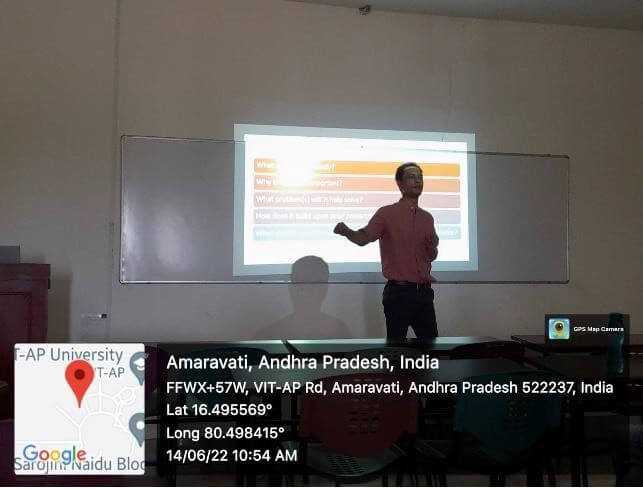
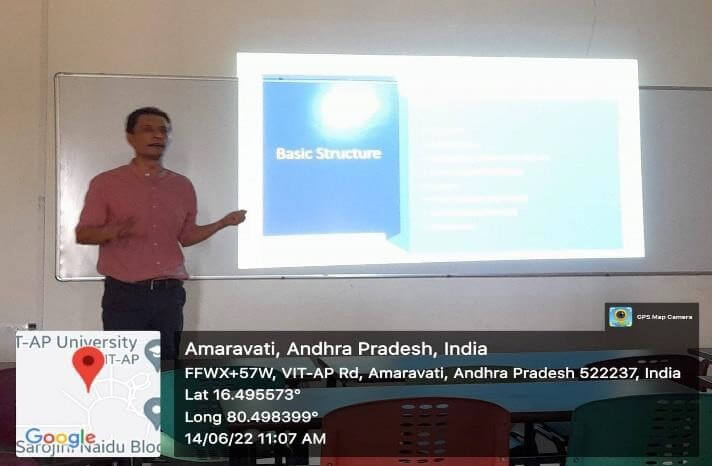
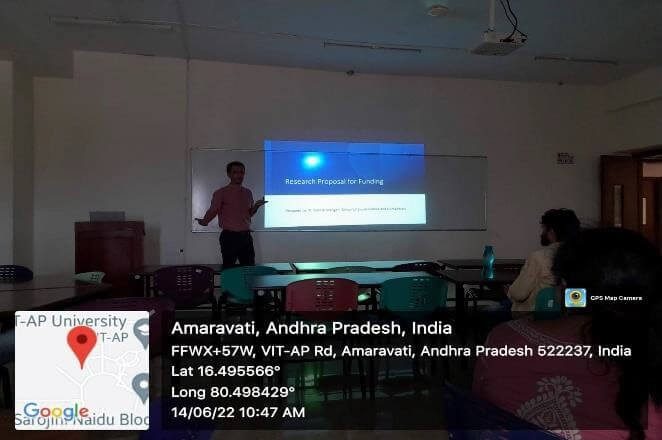
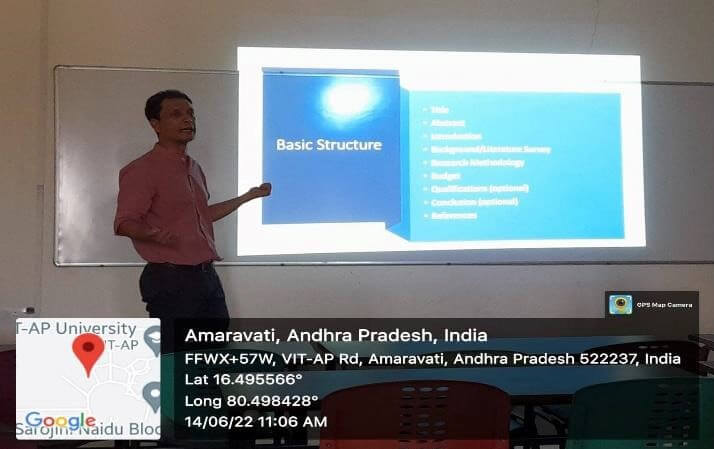
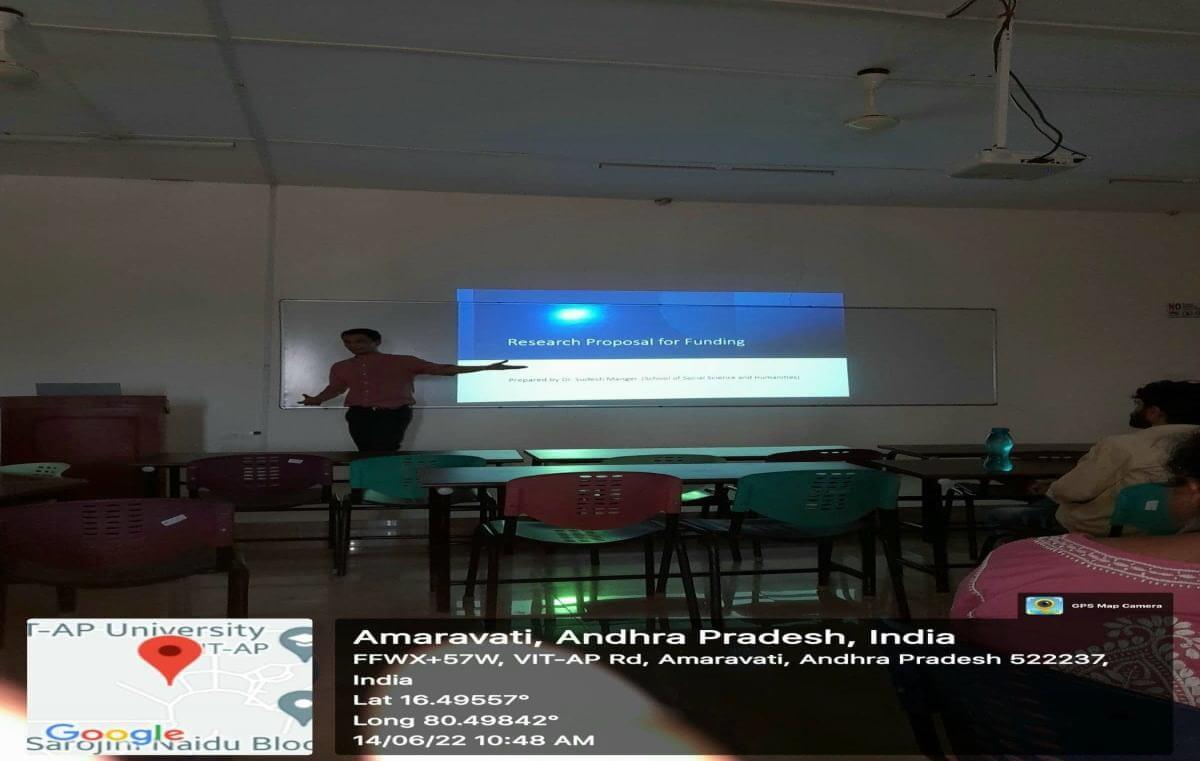
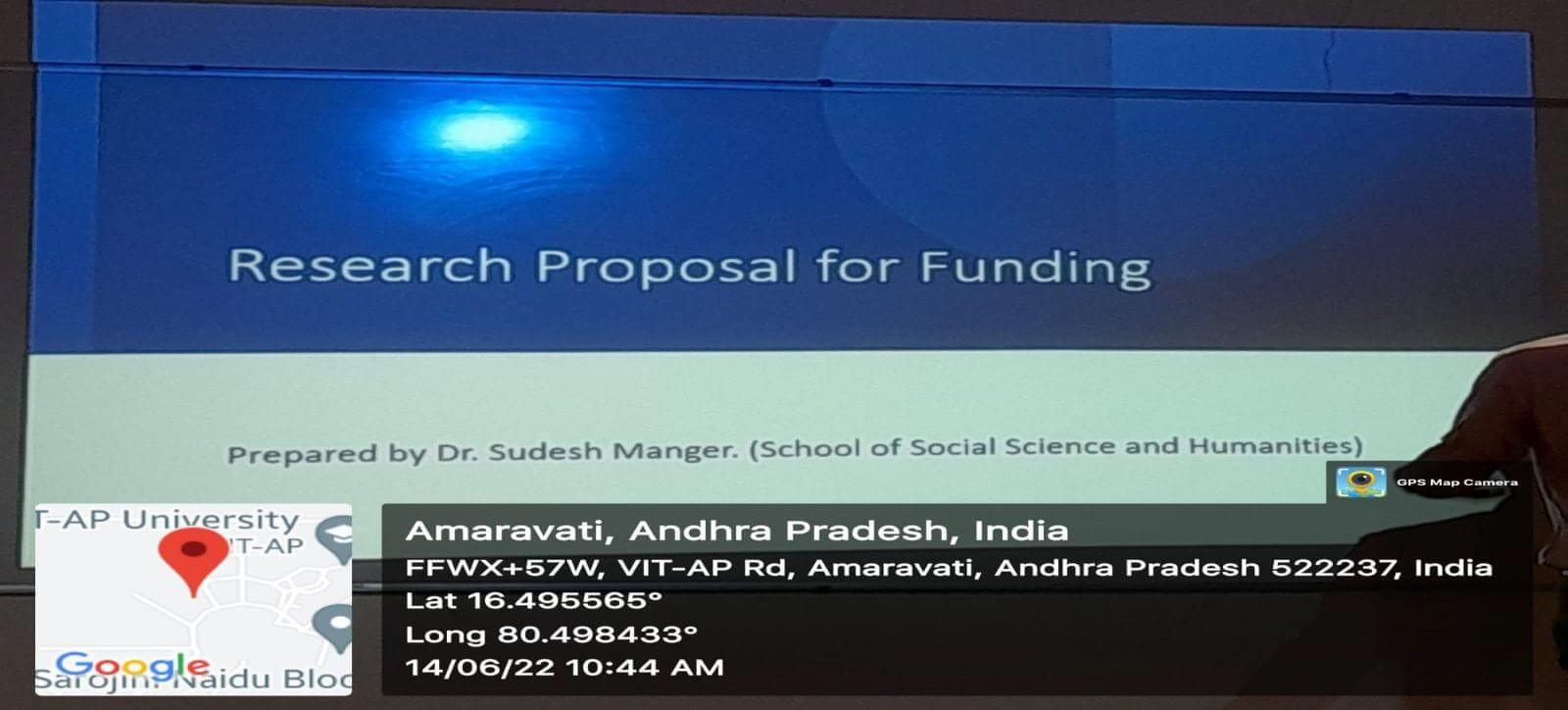
FDP: English Language Enhancement for Professionals
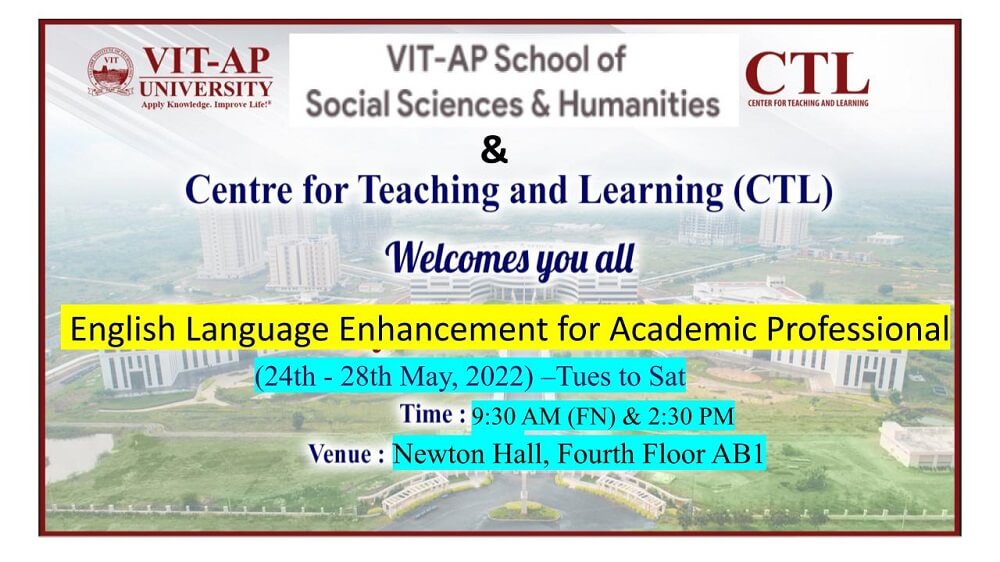
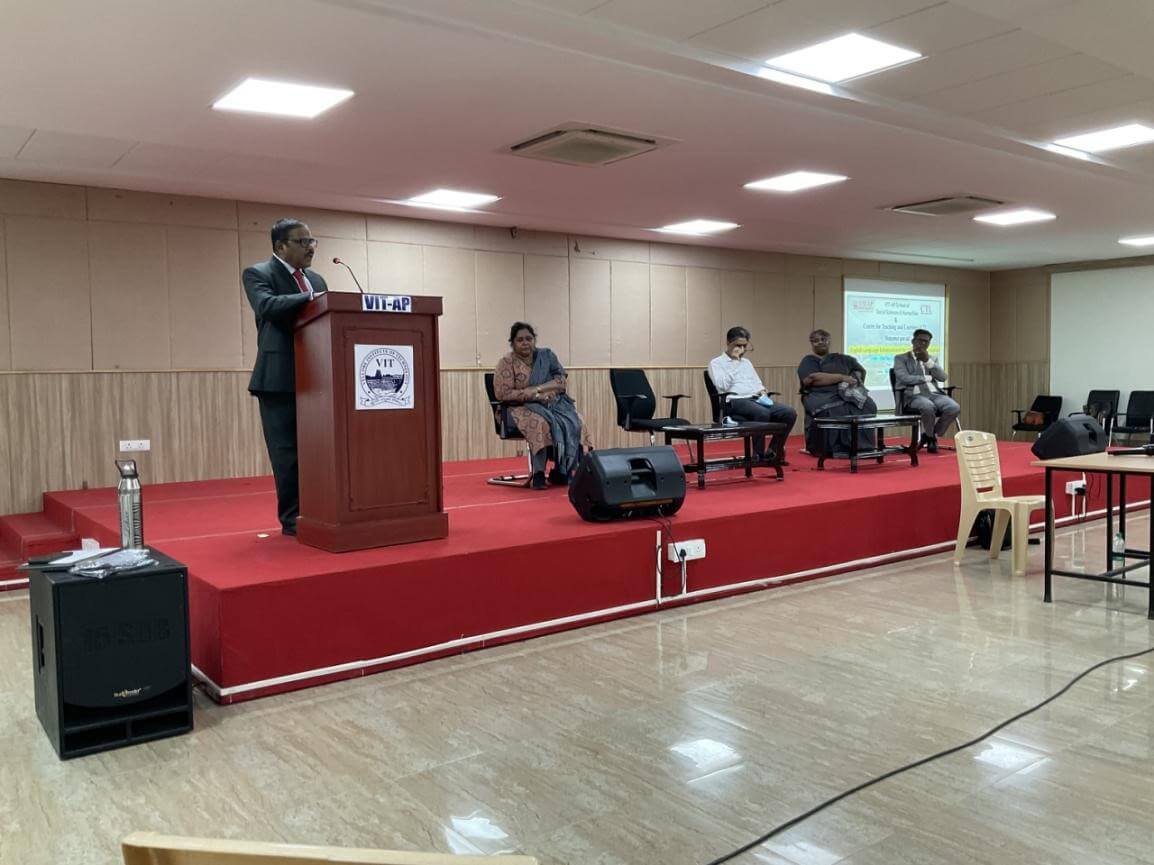
As part of the Faculty Development Programs (FDP), English Language Enhancement Series was conducted by VISH in collaboration with Centre for Teaching and Learning (CTL) from May 24th to 28th, 2022. The FDP aimed to enhance the professional skills of faculty members. The program featured a series of sessions conducted by expert resource persons. The 1st session was conducted by Dr. Thahiya Afzal on “Body Language and Presentation Ethics.” Her session was highly effective, as it provided valuable insights into non-verbal communication and ethical presentation techniques. In the next session, Dr. Pragya Sen Gupta discussed “Common Errors in English made by Indian Speakers.” The session was informative and practical, helping participants improve their language proficiency. Dr. Sudesh Manger’s session on “Email Writing – Dos and Don’ts” was well-received, offering practical guidance on effective email communication. The 4th session, i.e., Dr. Neelima Adapa’s session on “English as a tool for intelligible Communication” was beneficial in improving verbal communication skills. On the last day, Dr. Tannistha Dasgupta’s session on “English as a tool for Academic Writing” provided valuable insights for faculty involved in research and academic writing. The inauguration of the FDP was graced by the presence of the Vice-Chancellor, Dr. Kota Reddy, and the Dean of the School, Dr. Rajneesh Mishra, adding prestige to the event. The sessions were quite effective, with each session contributing significantly to the professional development of the participating faculty members. The event was coordinated jointly by Dr. Susmitha Shyamsundar and Prof. Samuel Johnson, Assistant Director – CTL.
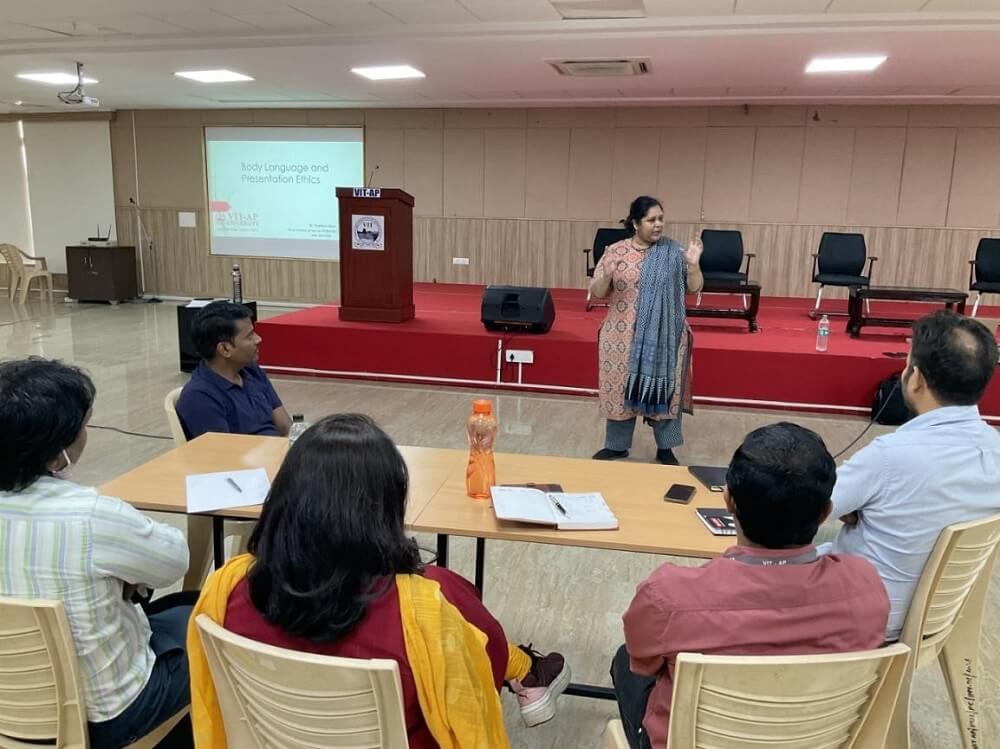
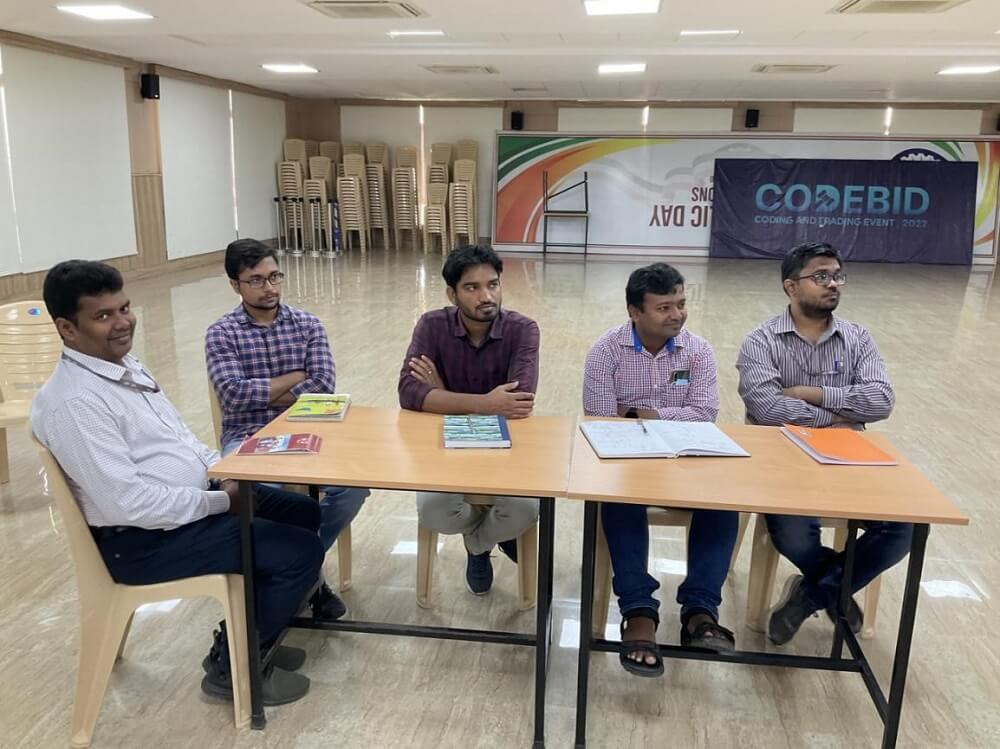
Industry Guest Lecture: International Museum Day China Imagined: Understanding China via Chinese Painting Collection and Exhibition through Two Case Studies
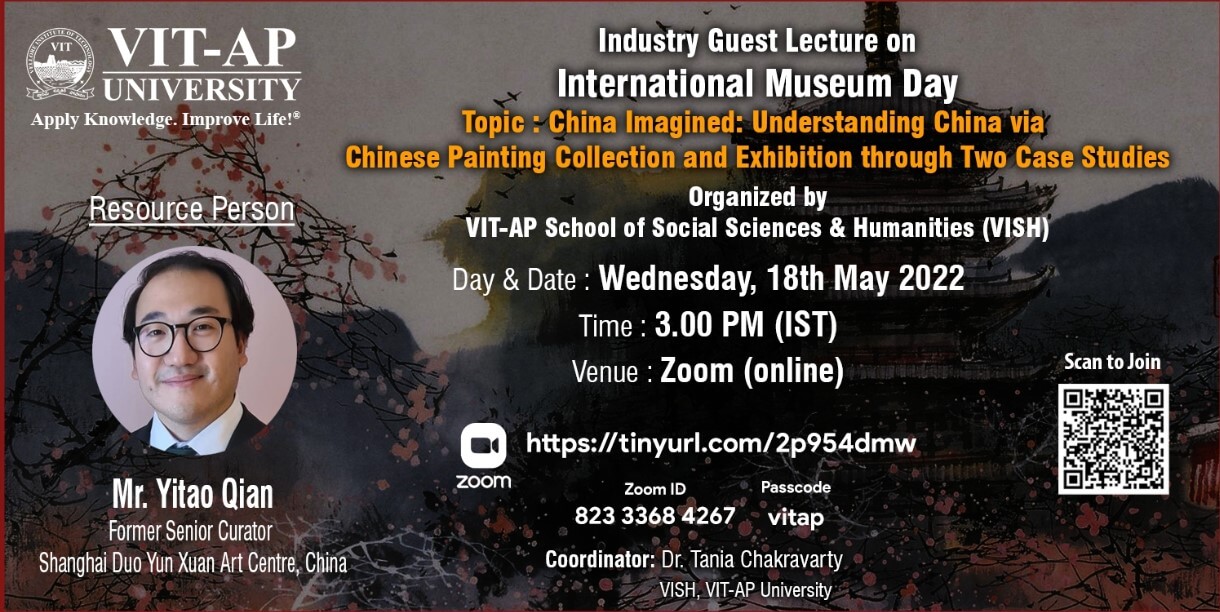
Mr Yitao Qian, Former Senior Curator, Shanghai Duo Yun Xuan Art Centre, China, delivered a lecture on ‘China Imagined: Understanding China via Chinese Painting Collection and Exhibition through Two Case Studies’ on 18 May 2022. The industry guest lecture was organised on the event of International Museum Day. Mr Qian spoke on various methods through which art and artefacts are acquired, catalogued, and curated and the importance of such materials in preserving the history of human civilisations and contemporary cultural identities. He specifically focussed on the East Asian (China) Collection of the British Museum, London and how this wonderful collection was put together through the efforts of various historians, curators and art experts over the years. He also spoke on issues like forgeries, reproductions and how curators identify such materials. The event was coordinated by Dr Tania Chakravarty.
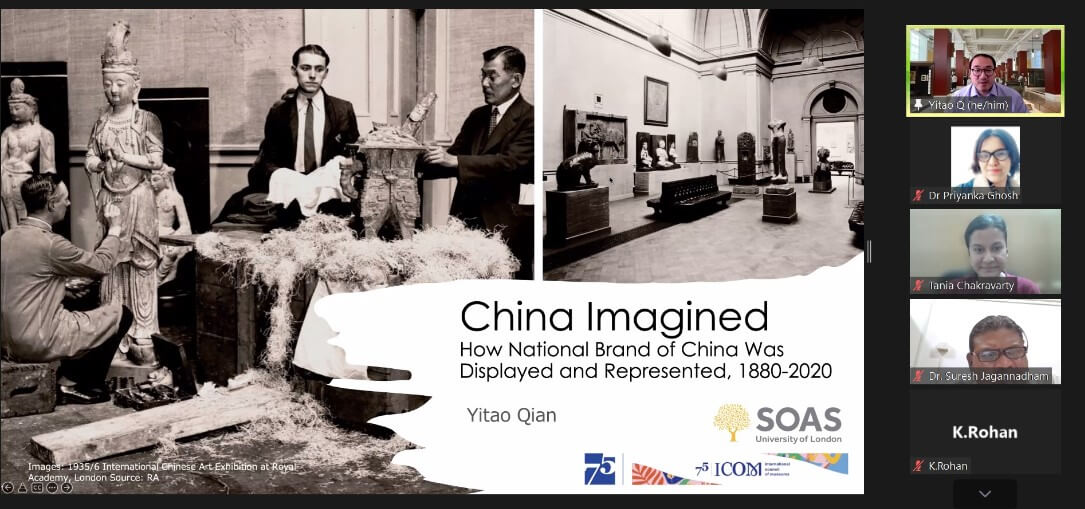
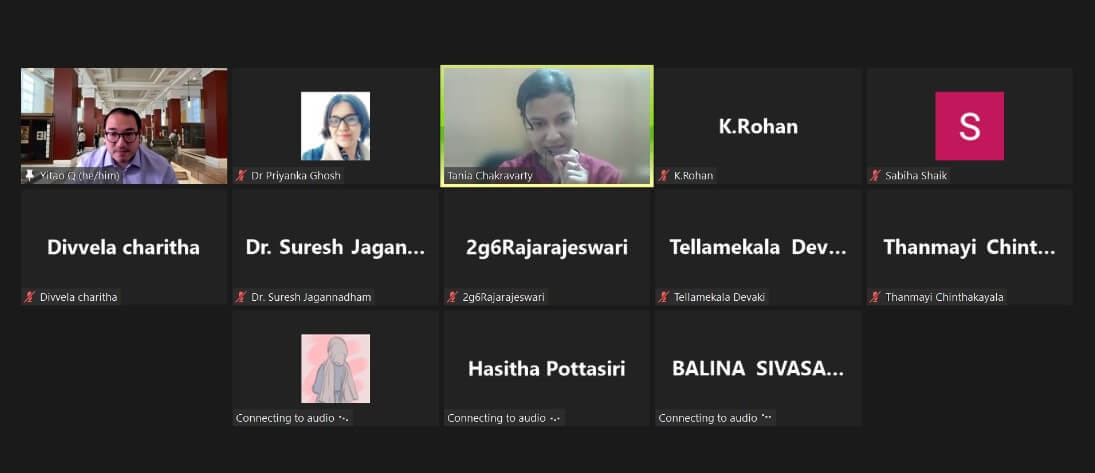
Academic Guest Lecture: Street as Culture in Istanbul: Finding local, Regional, and global population at the edges of the Middle East
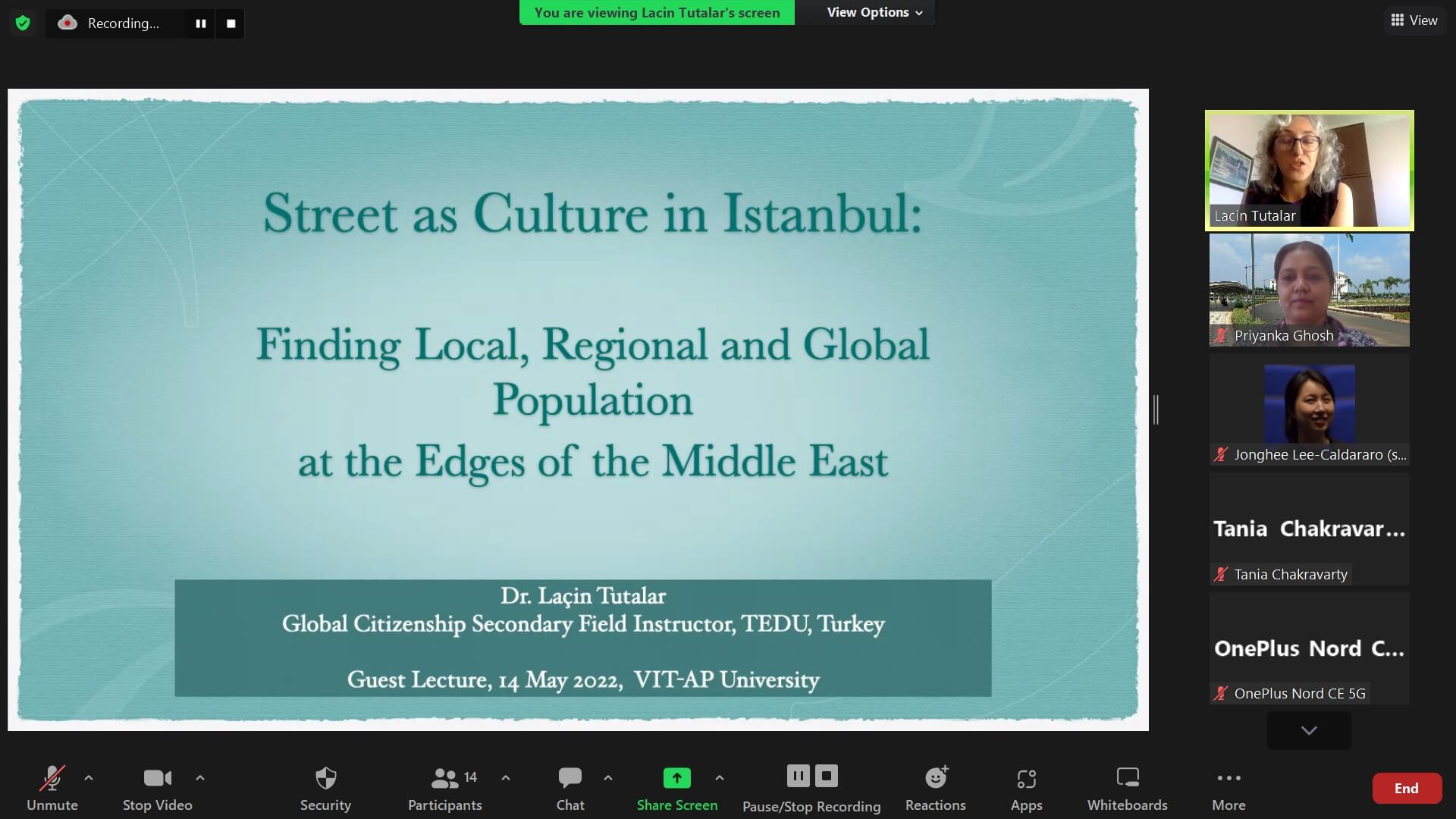
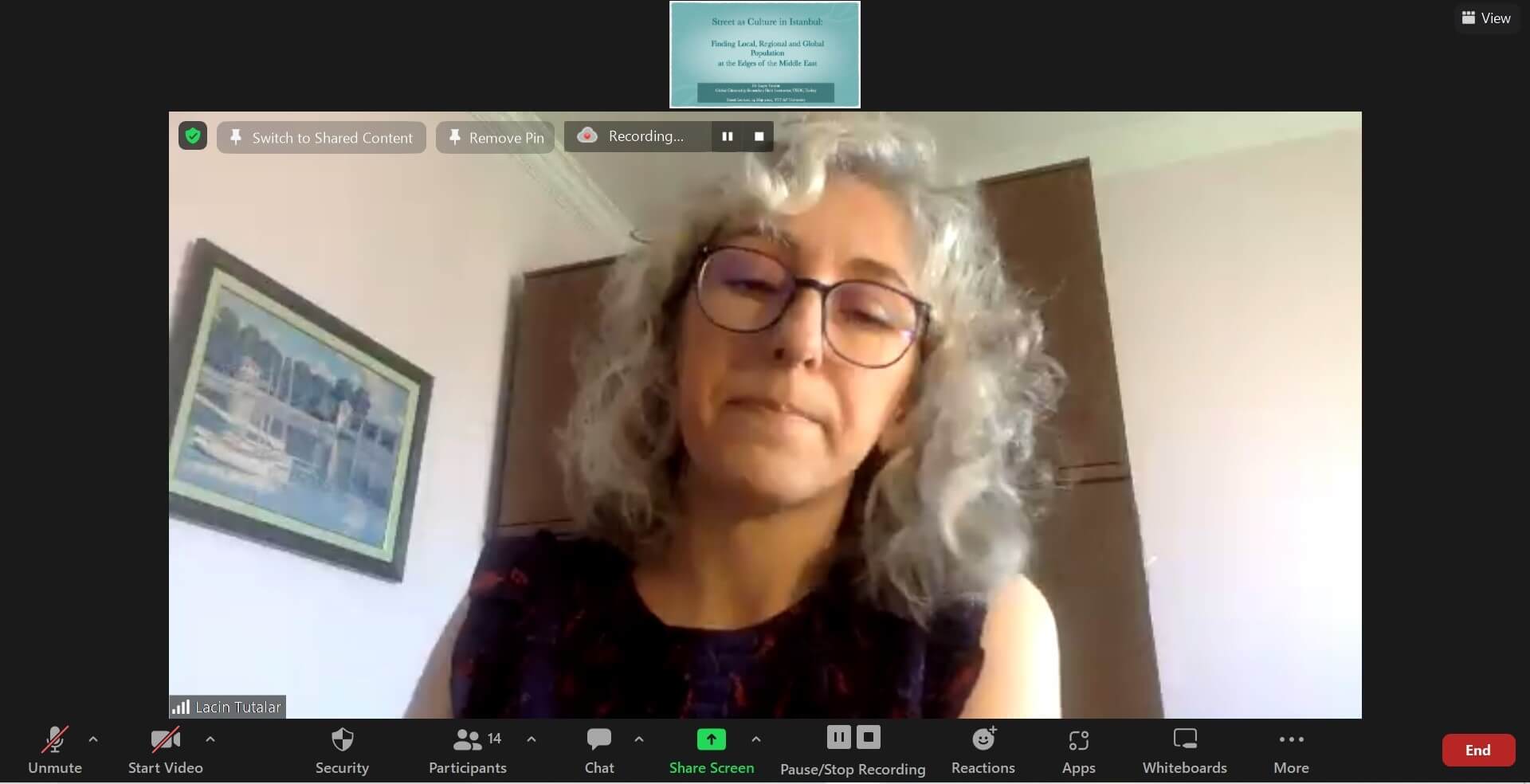
Dr Laçin Tutalar, Adjunct Instructor, Faculty of Economics and Administrative Sciences (FEAS), TED University, Ankara, Turkey, delivered an invited lecture on “Street as Culture in Istanbul: Finding local, regional and global population at the edges of the Middle East” on Saturday, May 14, 2022. As a part of the “Introducing Human Geography” course, the guest lecture aimed to make students examine changes to the local and popular dynamics of the street in a couple of touristic neighbourhoods in Istanbul. In her lecture, Dr Tutalar explained the issues related to the cultural geography of Istanbul, such as migration, music, street art, and gentrification. She also introduced students to the concept of rhythmanalysis and how researchers can use this as a tool to examine changes in social space. Through an ethnographic inquiry supported by audio-visual documentation at different research sites in the city of Istanbul, Dr Tutalar explored various layers of the city landscape and explained the same to the students. The lecture was coordinated by Dr Priyanka Ghosh.
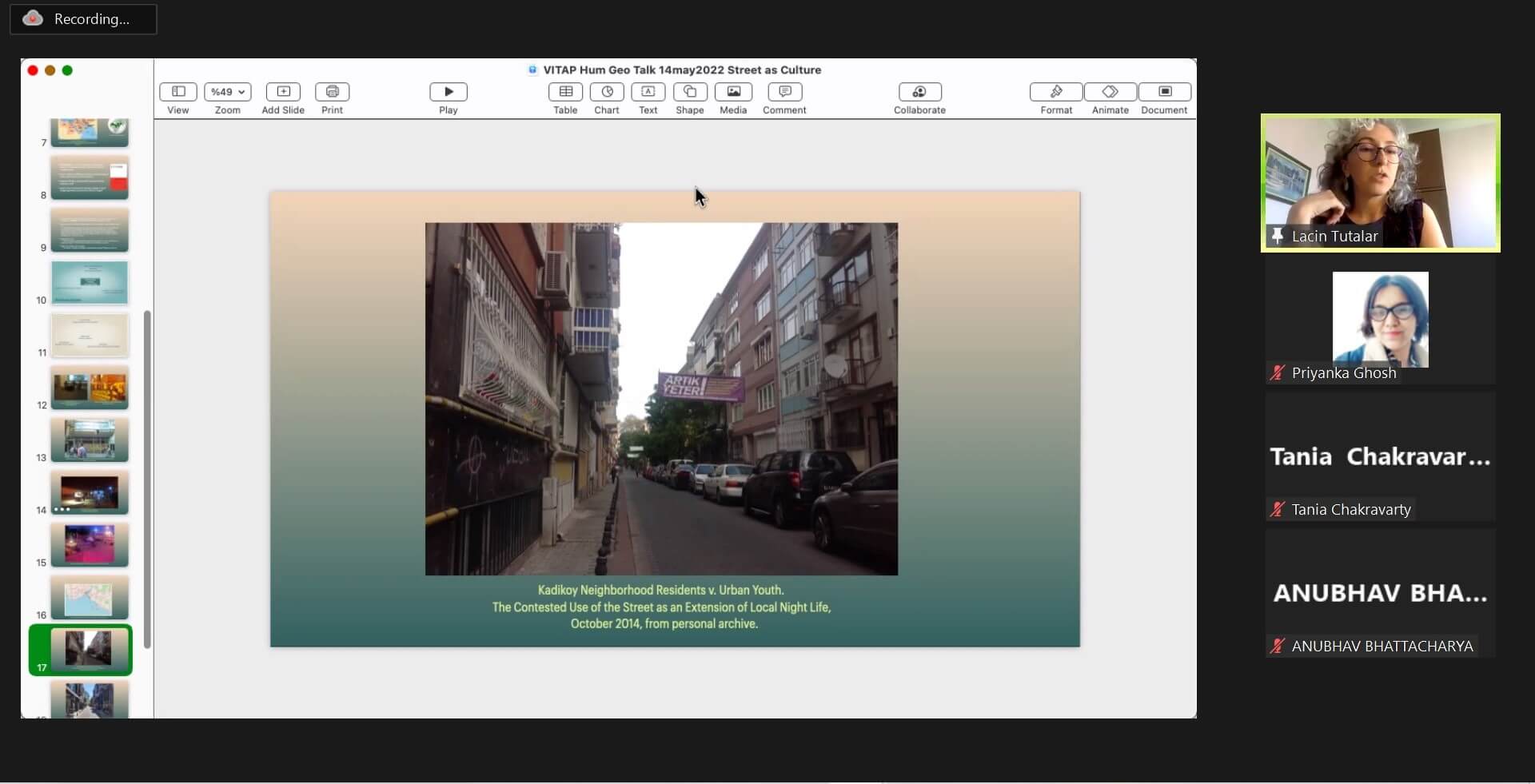

International Conference: Climate Crisis and Future Implications
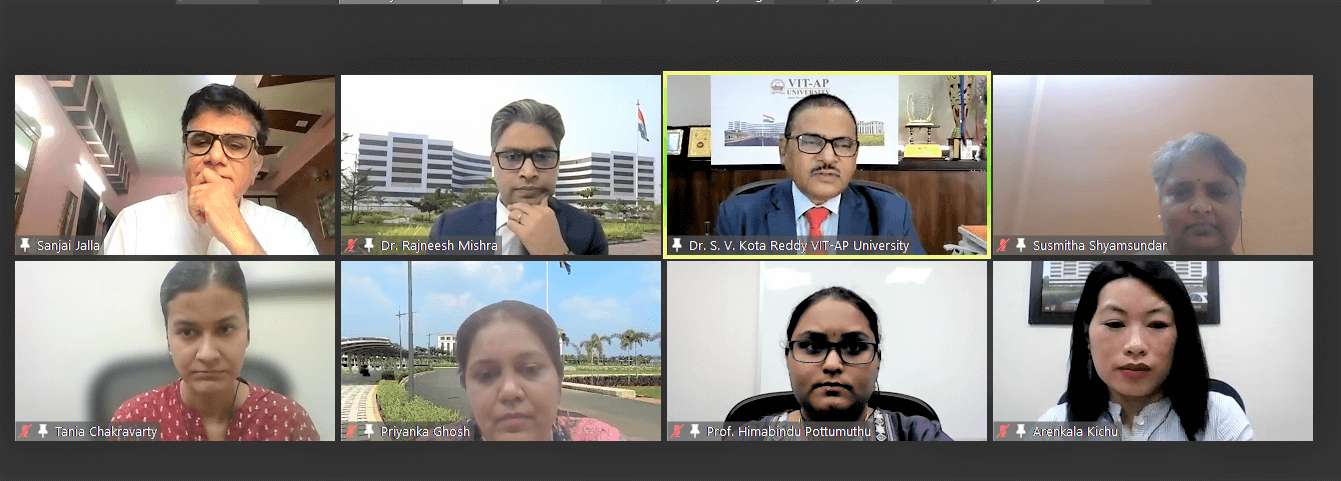
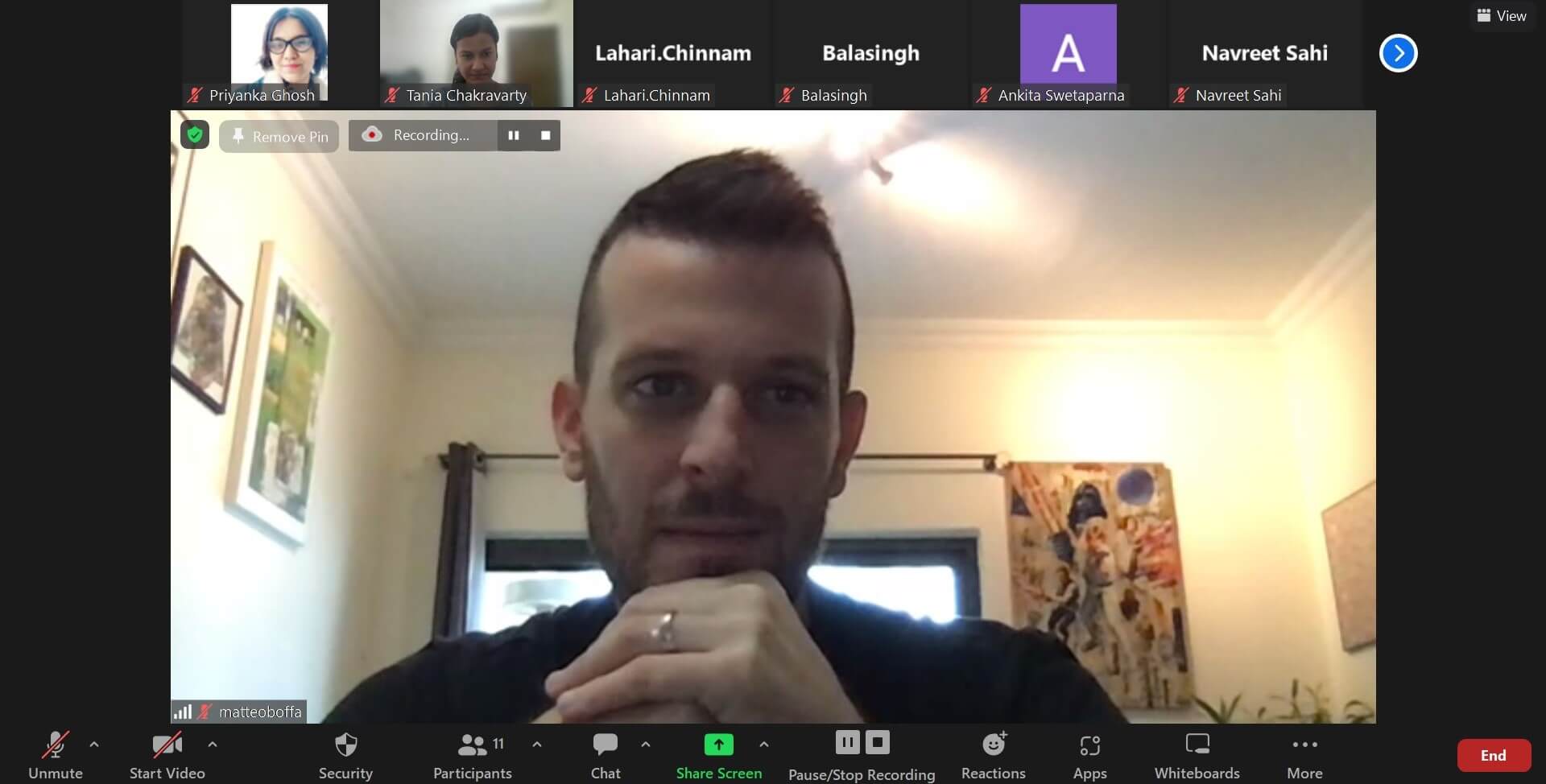
An International Conference on Climate Crisis and Future Implications from 7th to 8th May 2022. This event was an attempt to create a dialogue between researchers, academicians, activists, and policymakers on climate change policies and responses. The focus was on a wide range of topics related to climate change from environmental policymaking, and climate engineering to its relation to migration, media, and literature. The programme was inaugurated by the chief guest Mr Sanjai Jalla, Mission Head, SICOM Ministry of Environment, Forest, and Climate Change in the presence of Dr S. V. Kota Reddy, Vice-Chancellor, VIT-AP University. During his speech, Mr Jalla emphasized the importance of responsible production and consumption of resources in mitigating the impacts of climate change. Keynote speaker Dr Nagaraju Chilukoti from the Department of Earth & Atmospheric Sciences, NIT, Rourkela delivered a talk on the assessment of potential climate impact during 1948–2010 using historical land use land cover change maps. Invited international speakers from the United States and the Middle East provided a multi-faceted global perspective on the issues of climate change. Dr Debjani Ghatak from Texas A&M University shared her research on the problems of heat waves and the Indian environment and Mr Matteo Boffa from the Swiss Business Council, Abu Dhabi, gave a highly engaging talk on the promising possibilities of running successful, sustainable business ventures. Other invited speakers were Dr Deepti Ganapati (IIM, Bangalore), Dr Pramitha M (NIT, Calicut) and Dr Aditya Ghosh (Jindal School of Art and architecture, Jindal Global University). The conference had three plenary sessions: Plenary session 1 focusing on climate change and its relationship with science and technology, plenary session 2 focusing on climate change and its social impact and plenary session 3 focusing on climate fiction. The sessions were chaired by Dr Paramasivam R. (Dept of Chemistry, VITAP), Dr Suresh Jagannadham (VISH, VIT-AP University) and Dr Rasheeda Parveen (VISH, VITAP University) respectively. The event focused on providing upcoming researchers with a platform to demonstrate their research and facilitate the exchange of necessary information, skills, and technology to respond to climate change at both local and global levels.
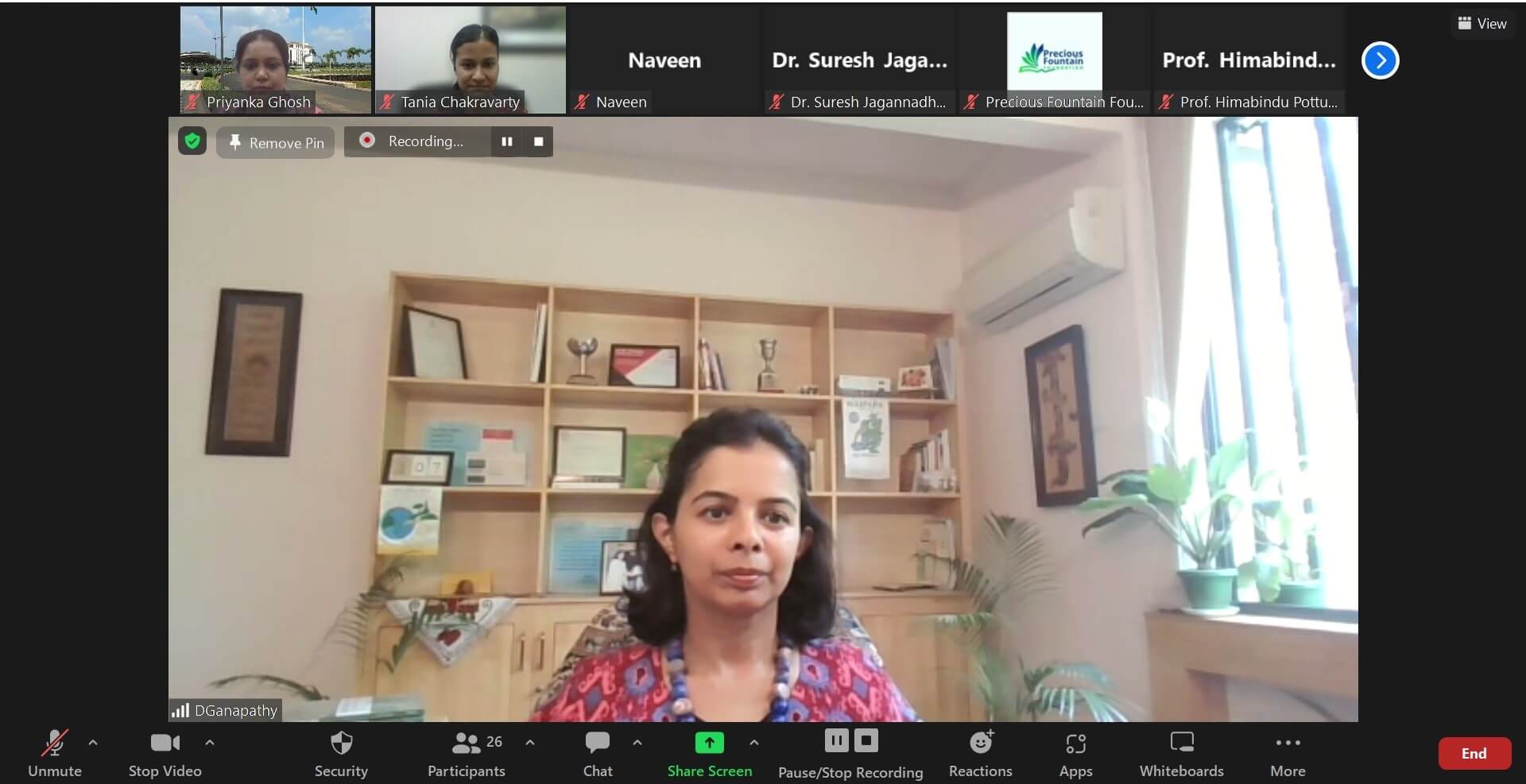
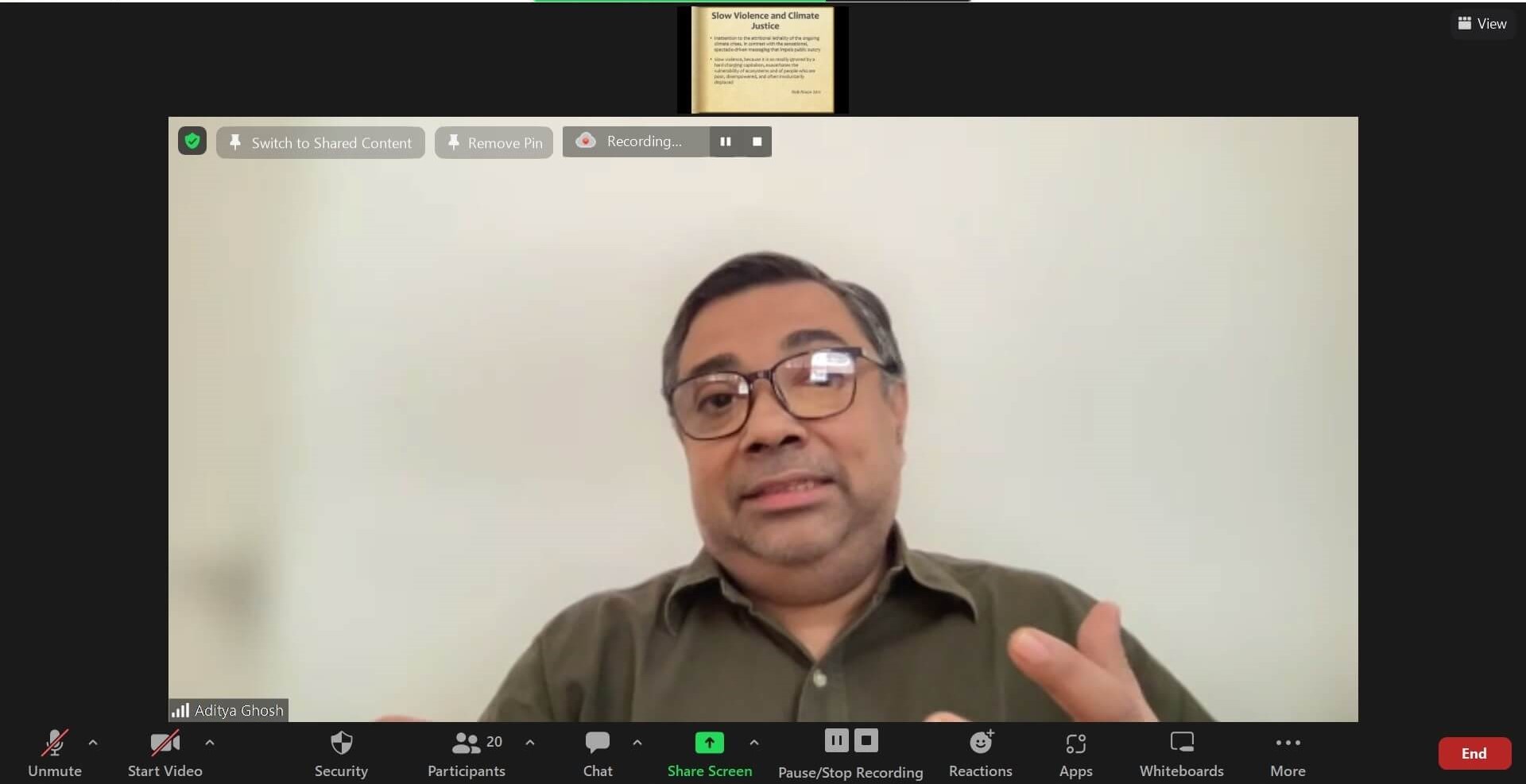
Guest Lecture: Industry Interaction- Communication at the Workplace
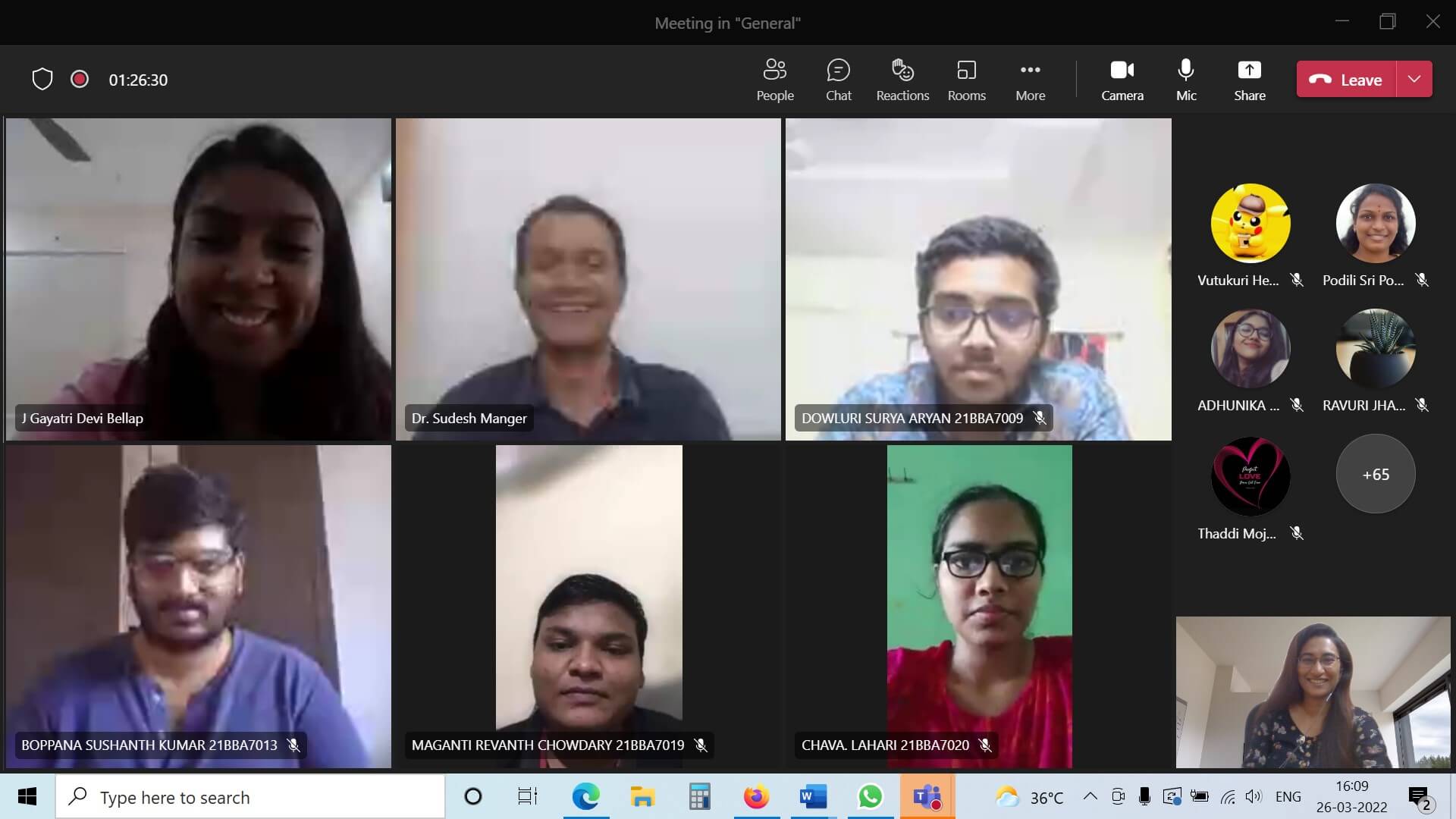
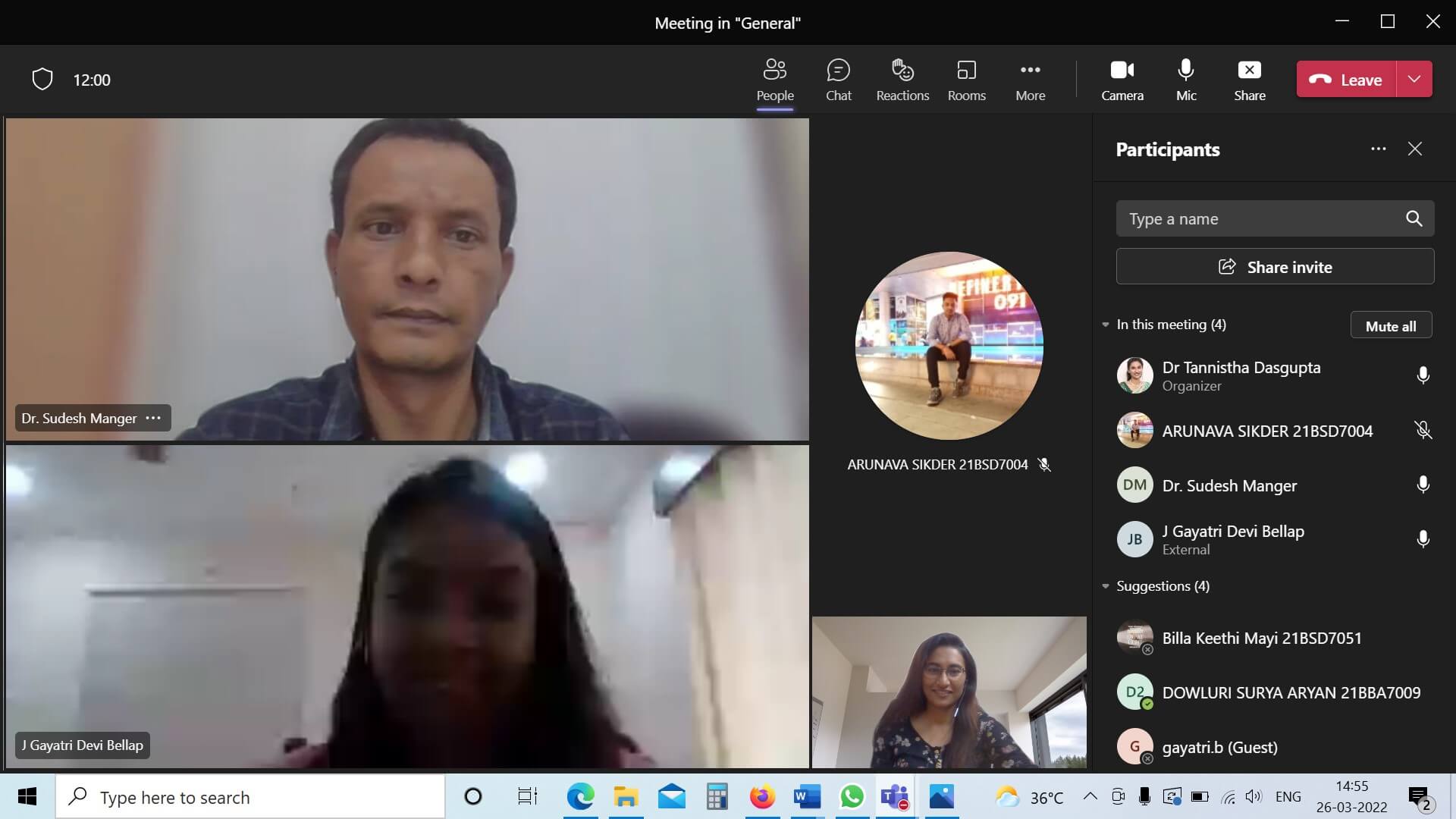
Gayatri Devi, Senior Manager HR at Skandhanshi Wellness Pvt Ltd. Hyderabad, delivered a virtual guest lecture on 26th March 2022 at 3 pm IST. She interacted with the BBA, BCA and BFA students at the university to help them understand the basic parameters of communication at the workplace. In the talk, she highlighted some of the minor errors of communication which can tarnish the reputation of an employee. The grammatically incorrect email or the improperly composed email can reflect negatively on an employee. Apart from email etiquette, she spoke about the importance of English in the corporate industry. Good communication skills can be an asset for an employee, who want to grow and take a leadership role. At the end of her presentations, the students asked questions and asked to throw some light on a fresher’s workplace challenges and how to improve English. The event was coordinated by Dr Tannistha Dasgupta and Dr Sudesh Manger.
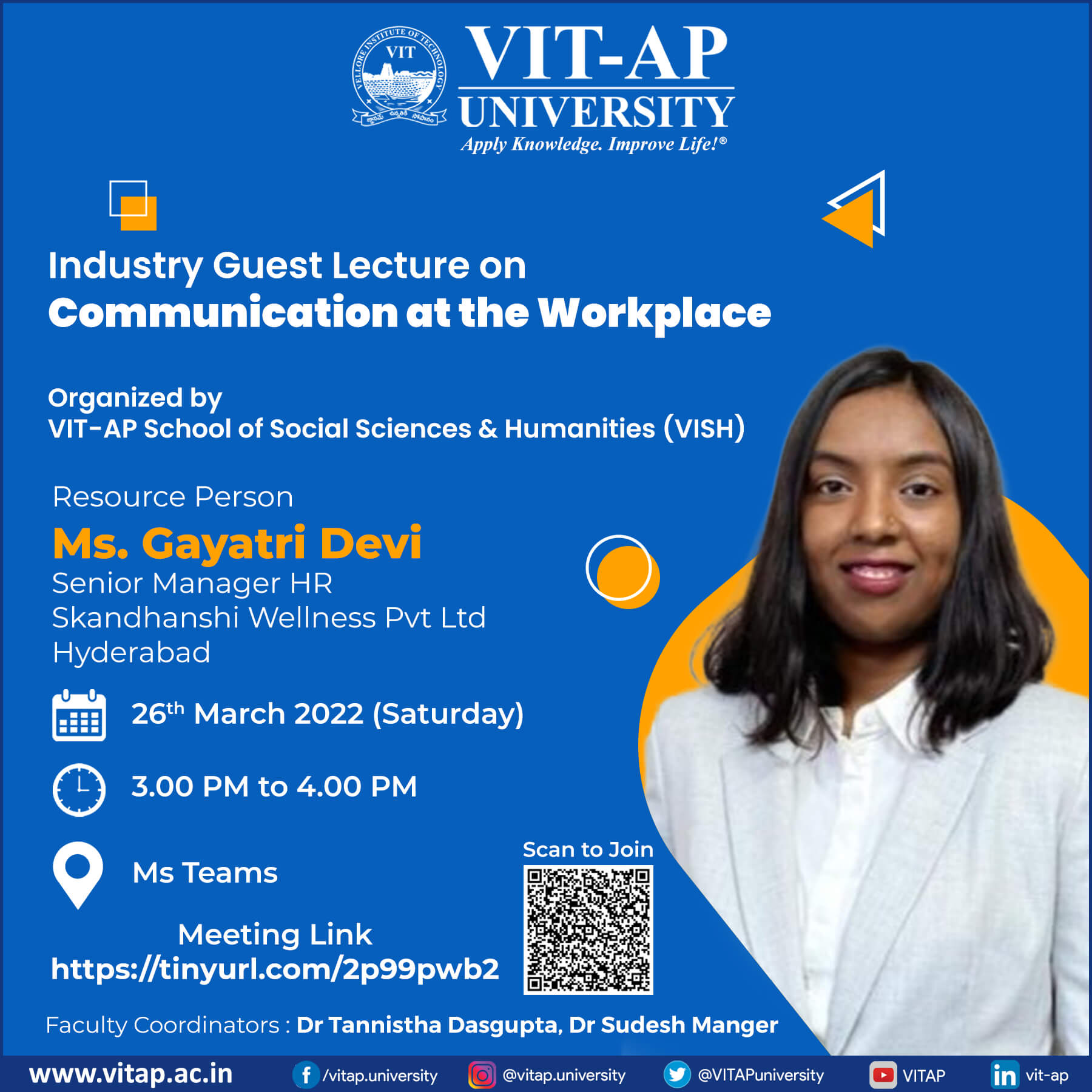
Guest Lecture: Industry Interaction- Presentation Skills & Data Interpretation
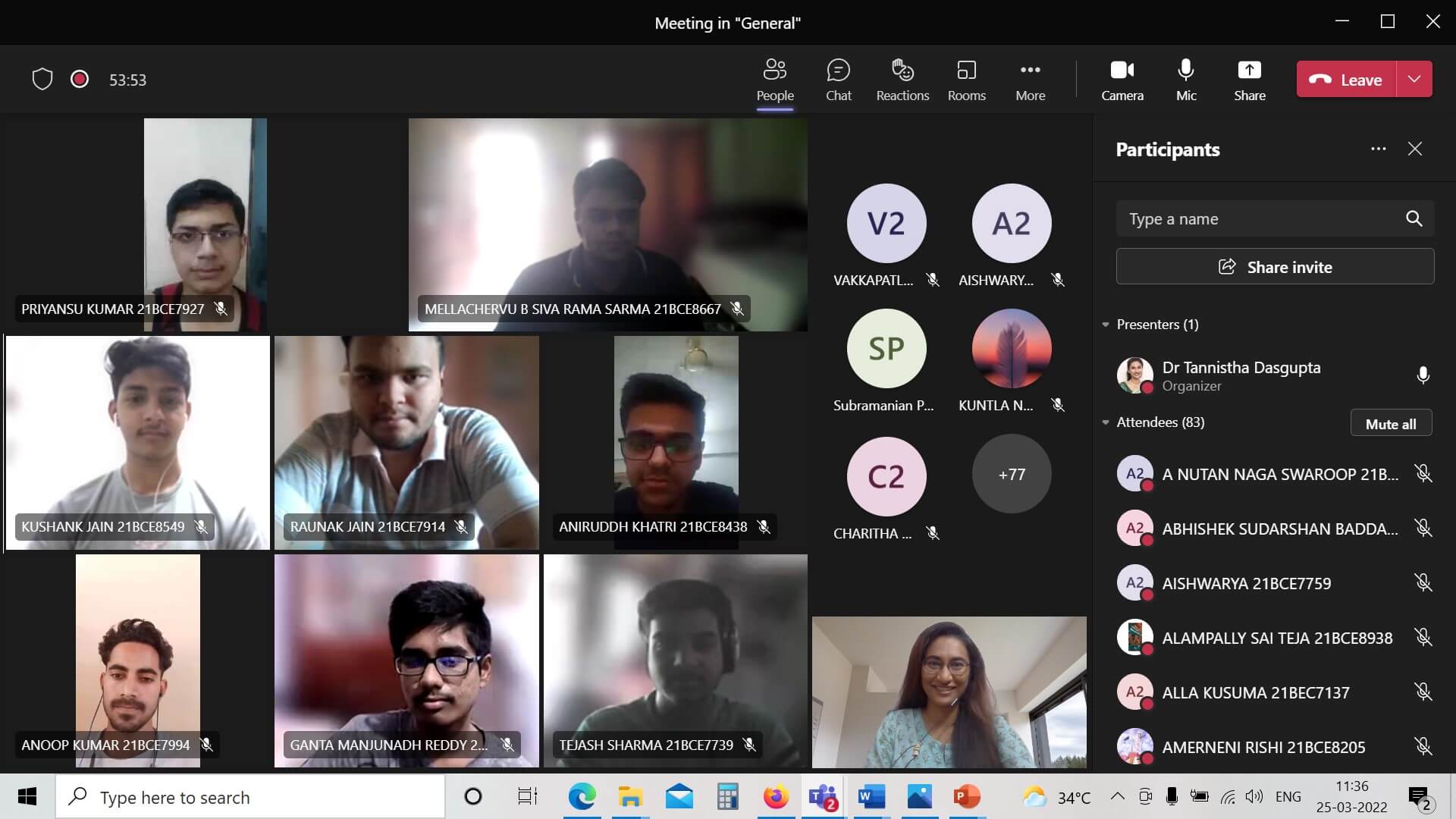
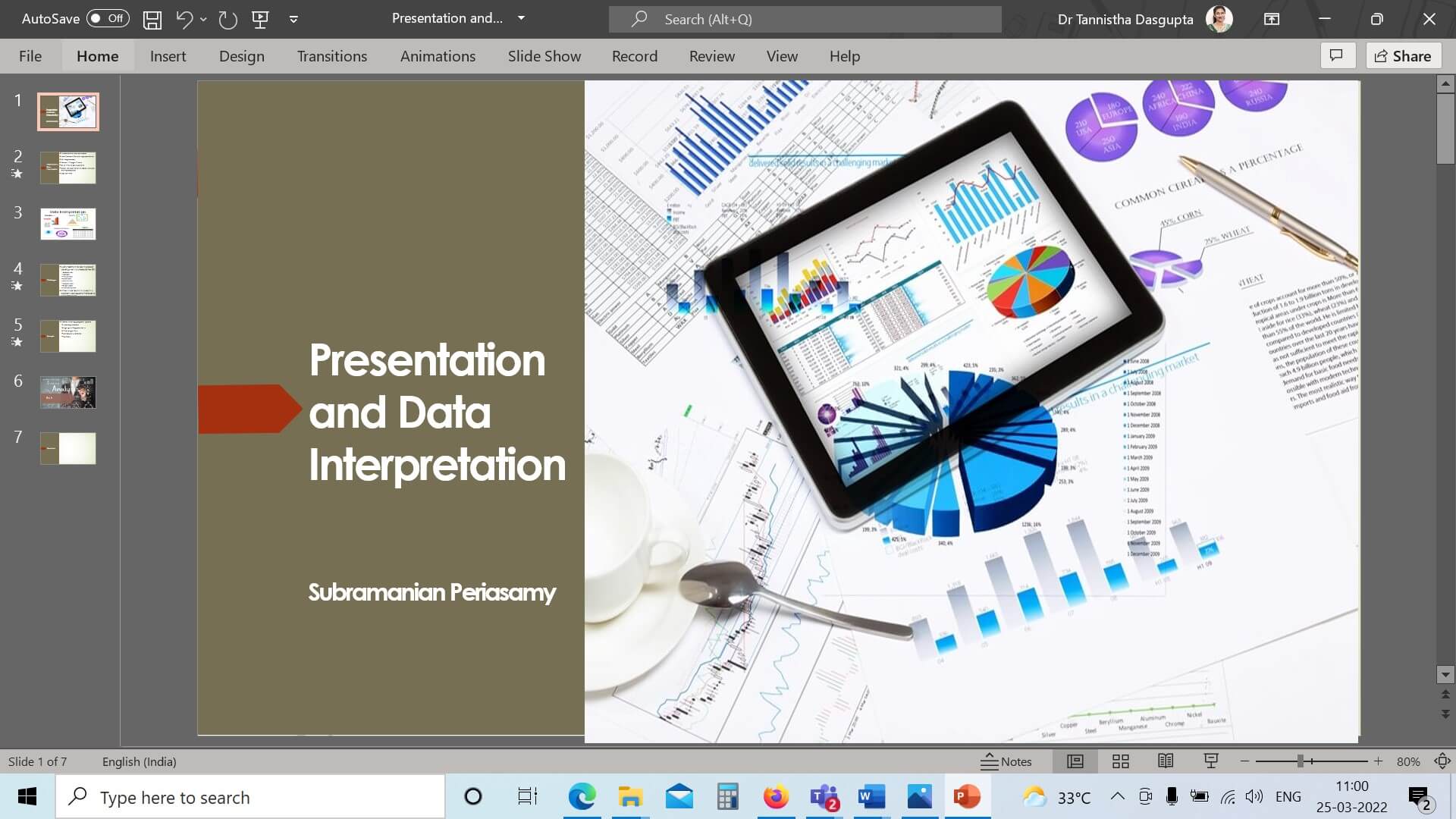
Subramanian Periasamy, Senior Manager, Micron Technologies delivered a guest lecture virtually on 25 March 2022 at 11 am. He discussed how presentations take place at the workplace and how data is visualized during a presentation. Mr Subramanian explained that during a presentation, one needs to keep in mind various aspects like audience needs, an appropriate amount of content, pictorial representation, data visualization, clear representation of data to avoid misinterpretation, time limit, and allocating time for the question-and-answer session. At the end of her presentations, the students posed questions and asked the speaker to discuss how to handle disagreement and persuasion during a presentation. The guest lecture was coordinated by Dr Tannistha Dasgupta.
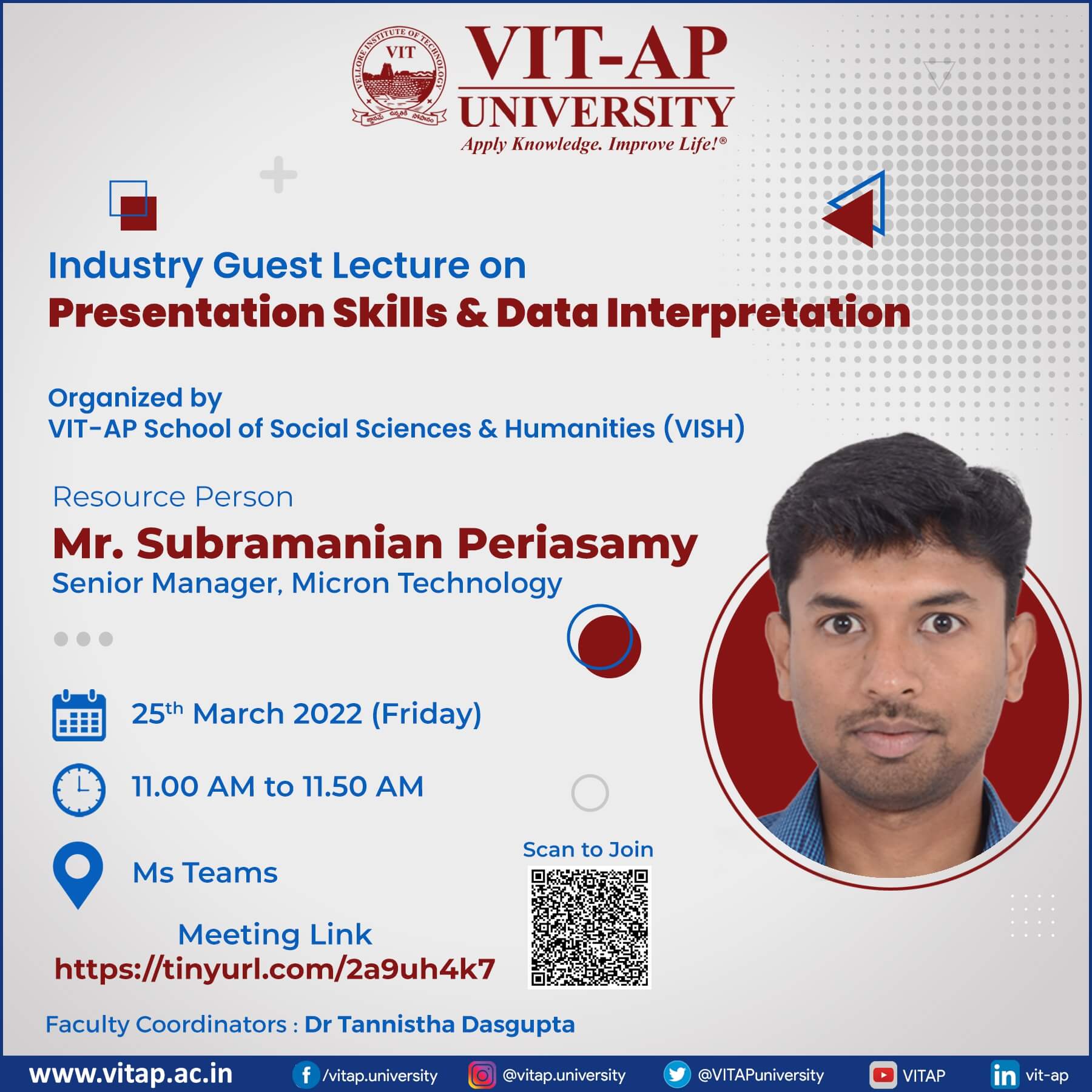
Workshop: 5-day Workshop on Microsoft Excel and R for Social Sciences
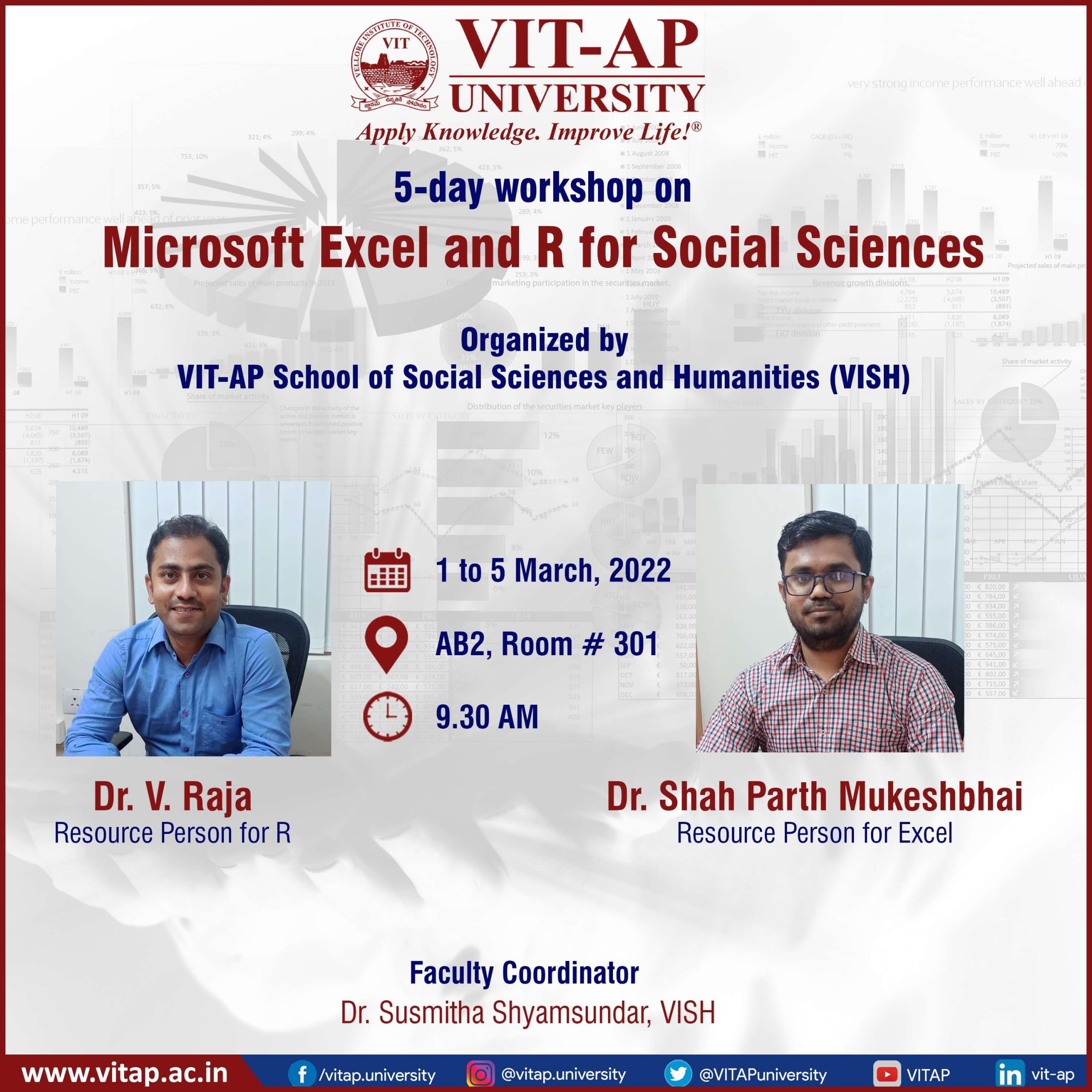
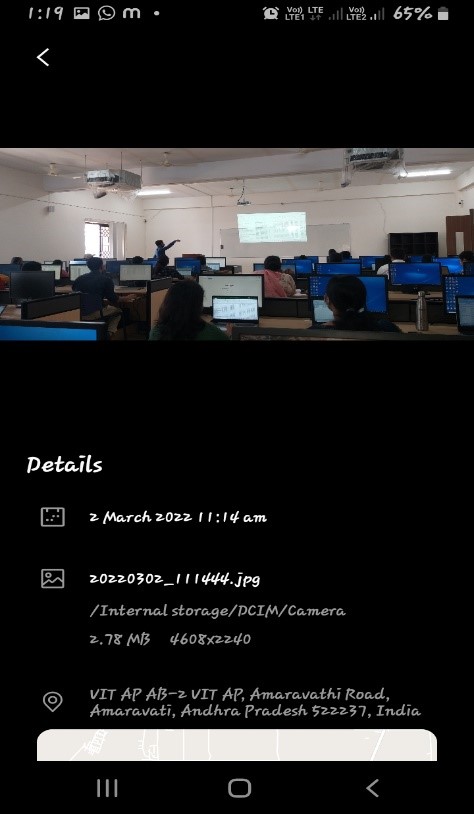
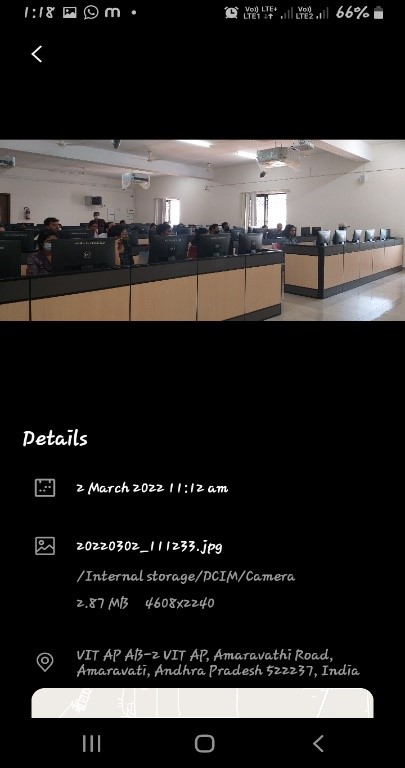
A five-day- workshop on MS Excel and R was conducted by the School of Social Sciences and Humanities. The Resource Person for Excel was Dr Shah Parth Mukeshbhai and for R was Dr V. Raja. On the first day, the Resource person talked about the basic commands to be used in MS Excel: rows and columns, cells and how to enlarge the size of cells, etc. On the second day he talked about ‘Hands-on with Excel’: the mathematical commands of addition, subtraction, average, etc; the use of the logical operators like IF, AND, OR commands, etc; how to get the maximum as well as the minimum out of the data; how to deal with errors; how to change font style, etc. On the third day how to upload the data in V-Top was discussed. A quiz relating to how to get the maximum out of the students using the VLOOKUP function was also discussed. On the 4th and the 5th day, the basic tenets of R were explained emphasizing how data from a personal system can be put to the R studio platform and the uses of histograms, pie charts, and bar charts for input data were discussed. The workshop was highly enlightening and immensely useful for all those who attended. The event was coordinated by Dr Susmitha Shyamsundar.
Guest Lecture: Nuances of the UPSC Civil Service Examination by AKS-IAS Academy
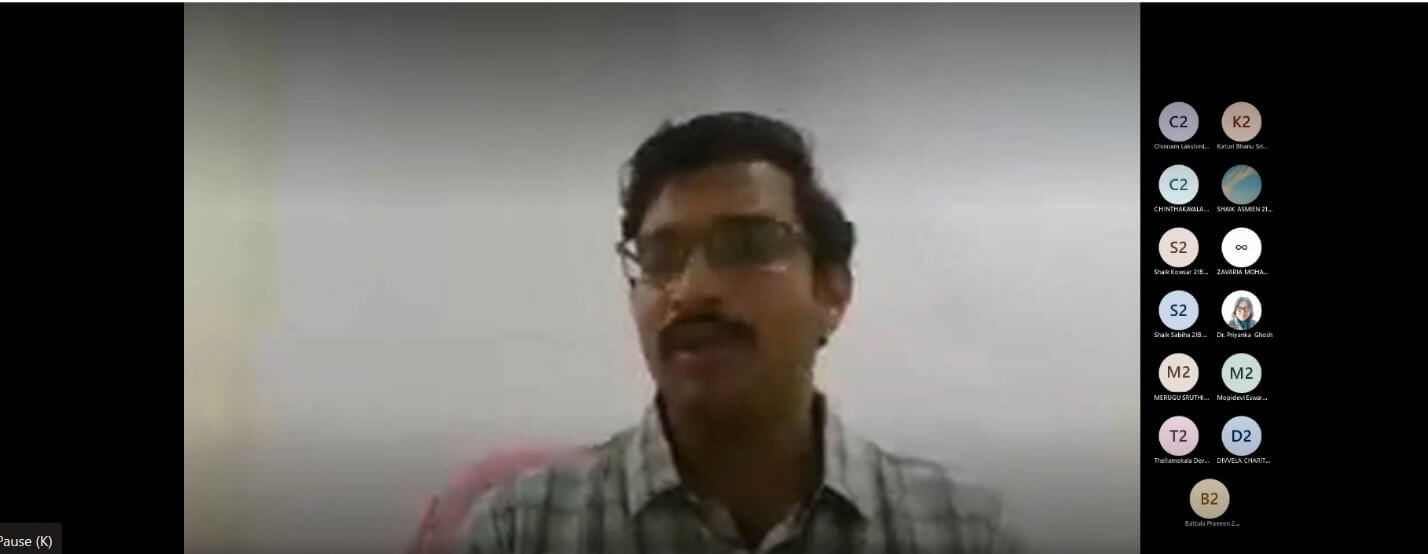
VIT-AP School of Social Sciences and Humanities (VISH) organized two guest lectures for BA/MA Public Service students in collaboration with the AKS-IAS academy on the topic titled “Nuances of the UPSC Civil Service Examination.” The first lecture was delivered on December 20, 2021, followed by another lecture on December 27, 2021. In these two sessions, students were made aware of the nuances of the UPSC Civil Service Examination. The resource person from the AKS-IAS Academy enlightened the students about various employment opportunities and exposures a student receives through such employments. The students also received information on how the UPSC examination provides scope for civil service aspirants to play a crucial role in policymaking and positively impact society. The session also included a detailed discussion on different stages of the UPSC examination: Preliminary Examination, Main Examination, and Personality Test. The resource person also discussed the general studies and optional papers students could choose for the Main Examination. Overall, in these two sessions, students were made aware of the entire UPSC examination process. The coordinator of the event was Dr Priyanka Ghosh.
International Conference: Athena 2021
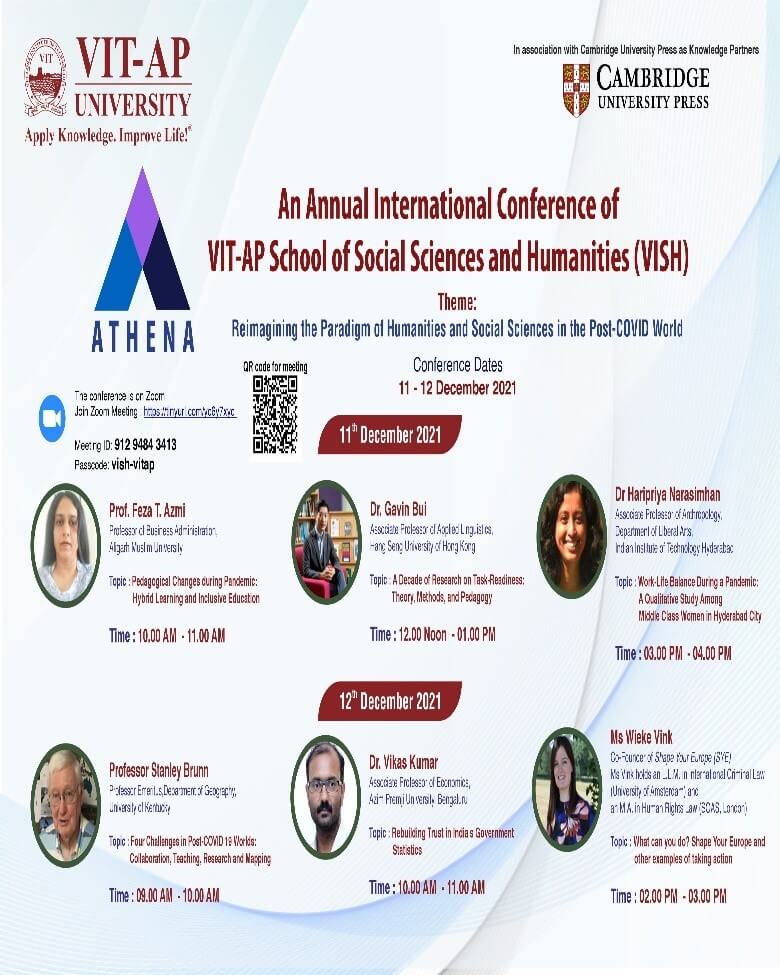
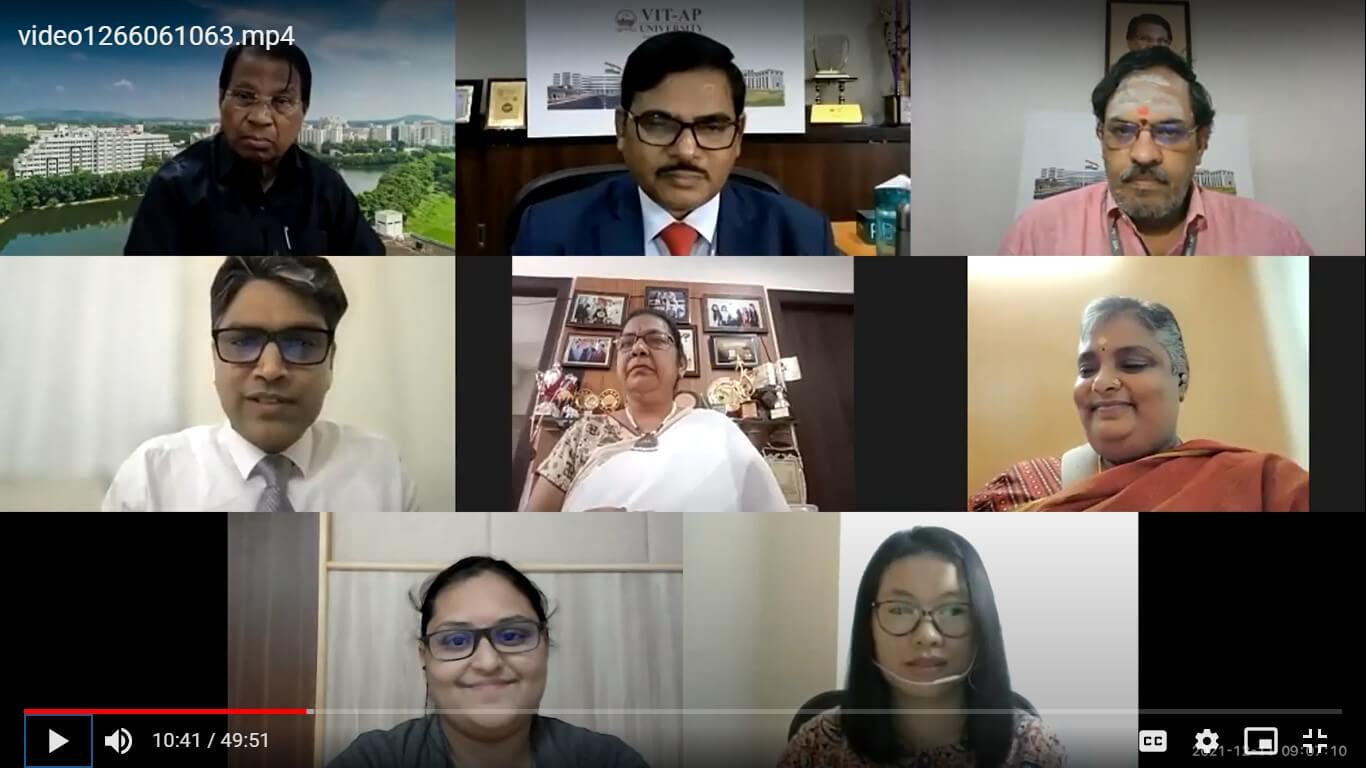
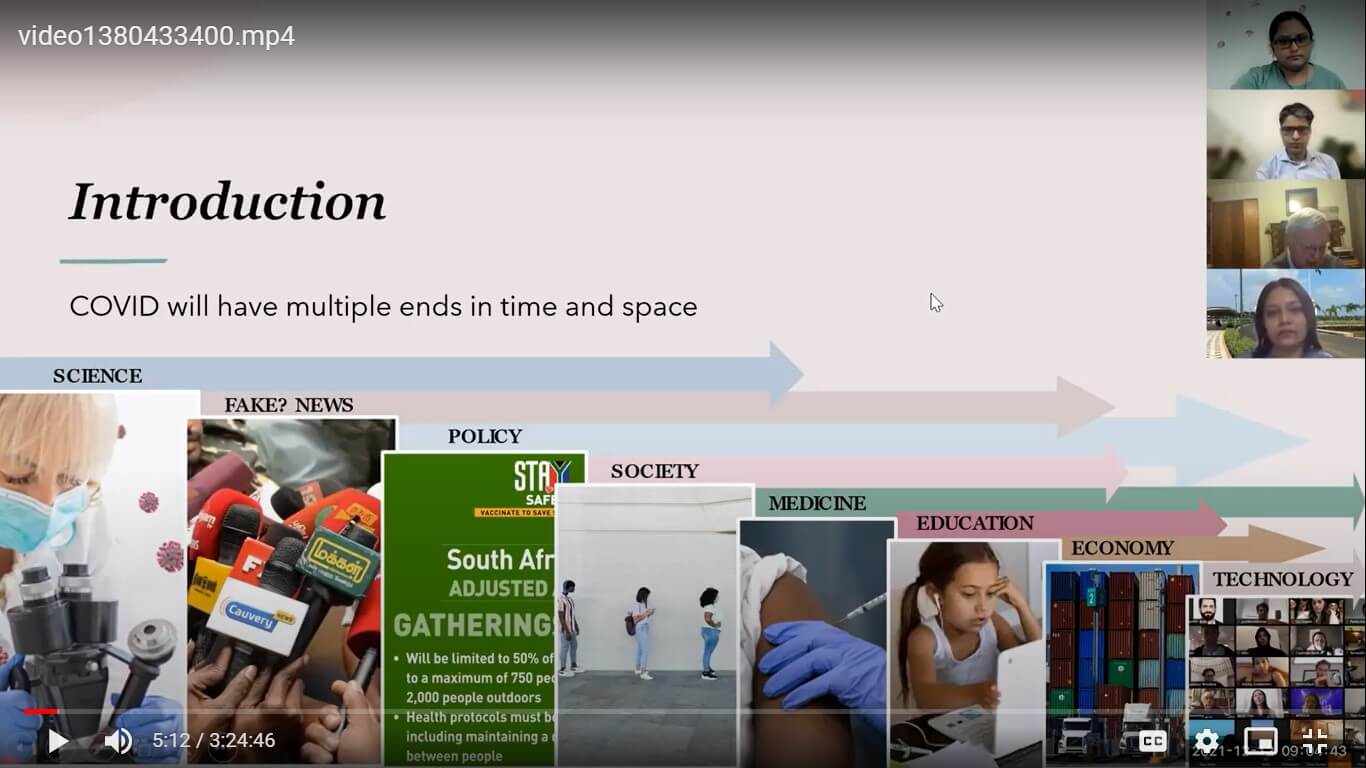
VISH organized its first-ever international conference “Athena: An Annual International Conference of VIT-AP School of Social Sciences and Humanities (VISH)” during 11-12 December 2021 in the virtual mode under the guidance and leadership of the Dean, VISH, Professor Rajneesh Mishra, and the Associate Dean, VISH, Dr Susmitha Shyamsundar and in partnership with Cambridge University Press as Knowledge Partners. The theme of the conference was “Reimagining the Paradigm of Humanities and Social Sciences in the Post-COVID World”.
The event was inaugurated on 11 December 2021 and was graced by the honourable Chancellor of VIT-AP University, Dr G. Viswanathan, the Vice-Chancellor, Professor Kota Reddy, the Registrar, Professor C.L.V. Sivakumar, Dean, VISH, Professor Rajneesh Mishra, and Associate Dean, VISH, Dr Susmitha Shyamsundar. The esteemed Chief Guest for the day was the Assistant Director-Strategy, Andhra Pradesh Tourism Authority, Govt. of Andhra Pradesh, (Vijayawada), Dr Lajwanti Naidu. The inaugural session and the conference which witnessed registration by over fifty participants received widespread coverage across both national and state newspapers.
Following the inaugural session, the conference commenced with its first guest lecture session by Professor Feza T. Azmi, Professor of Business Administration, Aligarh Muslim University who delivered a refreshing lecture on the topic- “Pedagogical Changes during Pandemic: Hybrid Learning and Inclusive Education”. Subsequently, the first plenary session was chaired by Dr Tannistha Dasgupta, Assistant Professor of English, VISH. The theme of the session was English Language Teaching and Psychology and consisted of paper presentations on topics such as online language teaching and the impact of online teaching on primary caregivers for children with autism. The second guest lecture of the conference was delivered by Dr Gavin Bui, Associate Professor of Applied Linguistics at the Hang Seng University of Hong Kong. Dr Bui’s lecture topic was “A Decade of Research on Task-Readiness: Theory, Methods, and Pedagogy”. Following Dr Bui’s detailed and highly informative lecture, the second plenary session was chaired by Dr Deepjoy Katuwal, Assistant Professor of English, VISH. The theme of this session focussed on papers by presenters from disciplines such as literature, political science, and psychology. This session was then followed by the third guest lecture for the day on the topic- “Work-Life Balance During a Pandemic: A Qualitative Study Among Middle-Class Women in Hyderabad City”. This highly interesting and relevant lecture session was delivered by Dr Haripriya Narasimhan, Associate Professor of Anthropology, Department of Liberal Arts, IIT Hyderabad. The first day concluded with the third plenary session chaired by Dr Girija Shankar Panigrahi, Assistant Professor of Psychology, VISH. The papers during this session had focused on the topics of psychology and mental health during the COVID-19 pandemic.
The second day of the conference (12 December 2021) commenced with a thought-provoking guest lecture by the esteemed Professor Stanley Brunn, Professor Emeritus, the Department of Geography, the University of Kentucky on the topic- “Four Challenges in Post-COVID 19 Worlds: Collaboration, Teaching, Research, and Mapping”. Professor Brunn’s lecture was immediately followed by an eye-opening talk by Dr Vikas Kumar, Associate Professor of Economics, Azim Premji University, Bengaluru on the topic of “Rebuilding Trust in India’s Government Statistics”. Following the two guest lectures of the morning session, the fourth and final plenary session of the conference was conducted and chaired by Dr Sipoy Sarveswar, Assistant Professor of Anthropology, Viswa-Bharati University, West Bengal. This session consisted of research papers by scholars from geography, anthropology, and English literature. The final guest lecture of the conference was an interactive and inspiring session conducted by Ms Wieke Vink, lawyer and co-founder of Shape Your Europe (SYE), an initiative by a group of students and young professionals across Europe. Ms Vink’s session focussed on the foundational requirements of starting any social-work endeavour. Her guest lecture received enthusiastic participation on the part of students and researchers alike.
The conference was concluded in the evening with a valedictory session during which the best paper prizes for the 3 best papers were announced. One of the prize winners also shared her generous feedback about the participants’ experience of the conference. The event concluded with participants expressing their eagerness for the second Athena conference in 2022. The conference was coordinated by faculty members from VISH: Ms Kanaka Himabindu Pottumutthu (Anthropology), Dr Vadakkan Neethi Alexander (English), Dr Raghavi R.K. (English), Dr Priyanka Ghosh (Geography), and Dr Tania Chakravarty (History).
Guest Lecture: Global Biome
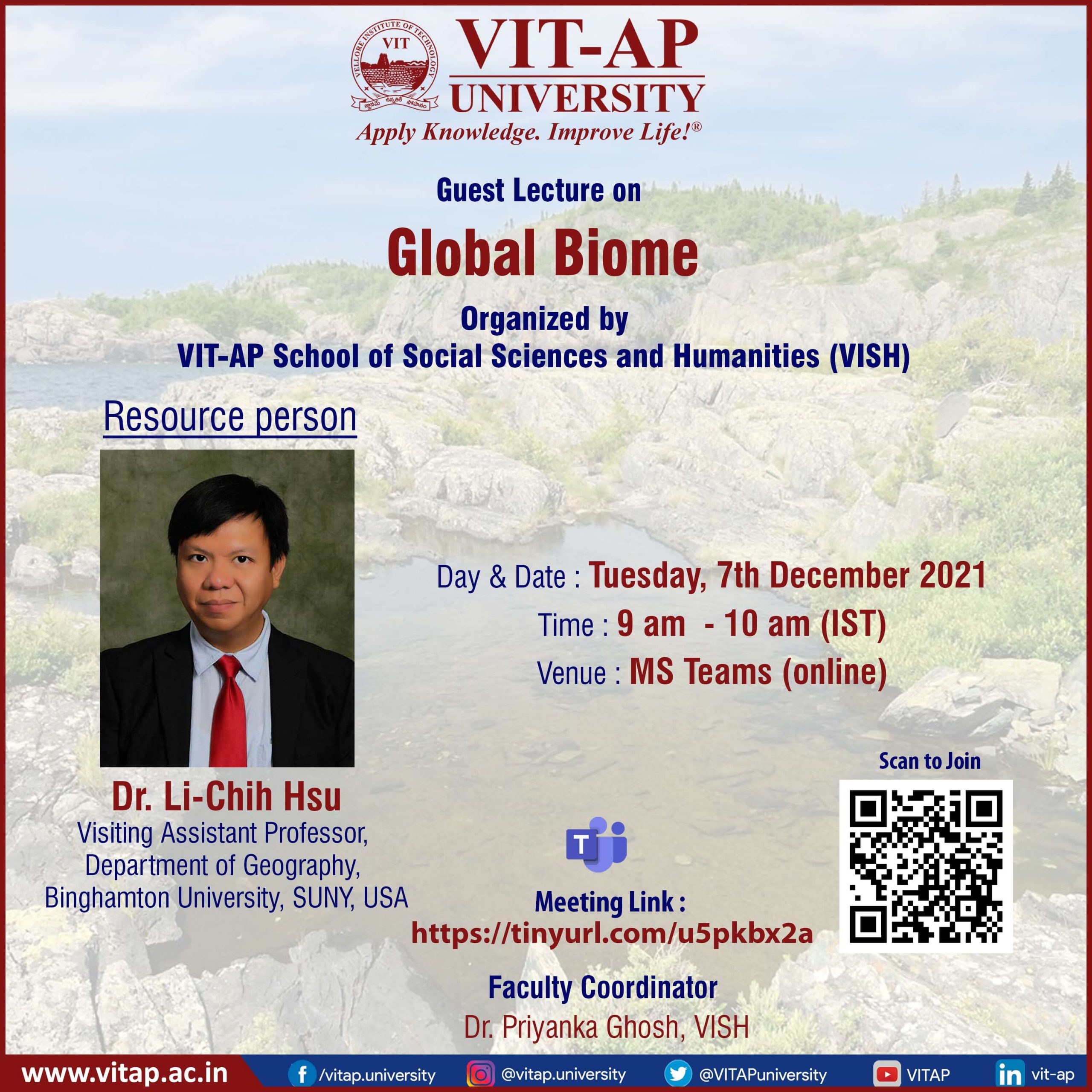
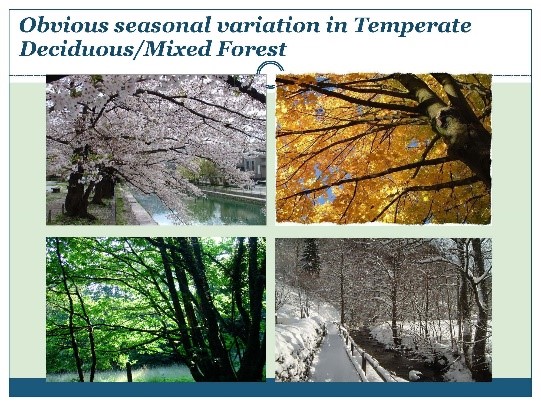
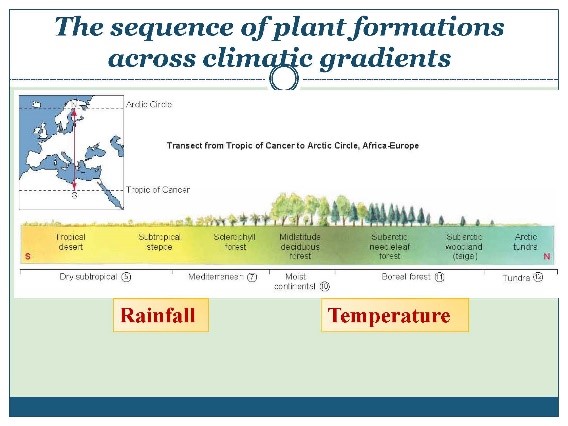
Dr. Li-Chih Hsu, Visiting Assistant Professor at the Department of Geography, Binghamton University, SUNY, USA, delivered an invited lecture on “Global Biome” on Tuesday, December 07, 2021. As a part of the “Introducing Physical Geography” course, the purpose of this guest lecture was to make students learn the characteristics of diverse terrestrial biomes of the world. At the beginning of his lecture, Professor Li-Chih discussed the ecological hierarchy of organisms from the individual level to the biome level. Additionally, he explained how a dominant vegetation type of a biome depends on climate gradients. Finally, through an interactive session, students learned about and identified the sequence of plant formations across temperature and rainfall gradients. The lecture was coordinated by Dr Priyanka Ghosh.
Workshop: Two-day National Workshop Methods and Approaches for Health Research in Social Sciences



An online Two-Day National Workshop titled ‘Methods and Approaches for Health Research in Social Sciences’ was organized in collaboration with ICMR-NIRTH, VIT-AP University and the Central University of Karnataka on 26 and 27 June 2021. More than 750 participants attended the workshop from the country and abroad. With more than 750 national and international participants, the workshop commenced with a welcome speech by Dr. Aparup Das (Director, ICMR-NIRTH). The Guest of Honour of the event was Prof. Ali Raza Moosvi. The chief guest, Prof. Balram Bhargava (D. G. ICMR, New Delhi) delivered a lecture on the importance of Health Research in Social Sciences. Likewise, Dr. S.V. Kota Reddy (Vice-Chancellor, VIT-AP University) foregrounded the significance of Social Sciences research and the vital role played by universities in R&D. Further, he highlighted the various research facilities, patent funding, innovations and incubation centres provided by VIT-AP.

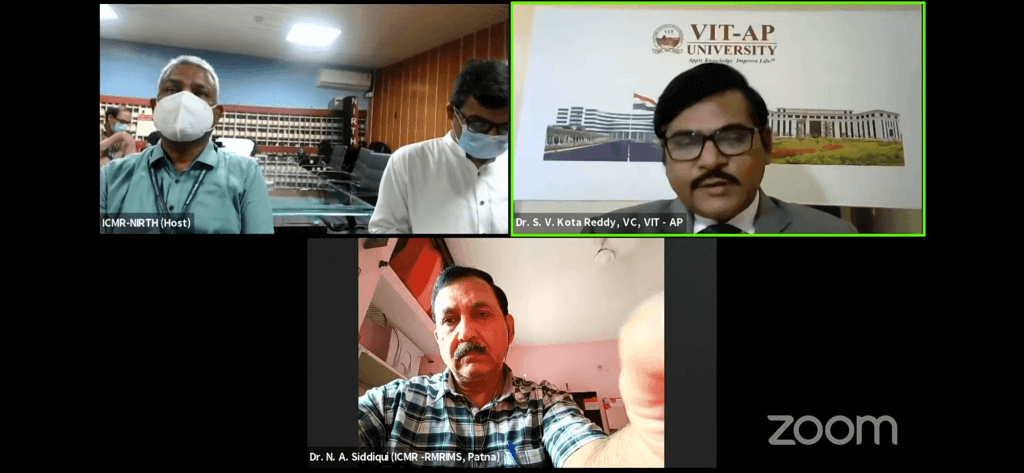
Key Note address
Prof. Nibedita Ray-Bennett, Associate Professor of Risk Management Programme, University of Leicester, UK and Founder President, Avoidable Deaths Network (ADN) delivered the keynote address on ‘Importance of Mixed Method Approach for Health Research in Social Sciences. She explained Creswell’s Mixed Method Designs and reinforced the need to foster the mixed-method approach to formulating better research practices and gaining research funding.
Technical session
Dr Jalandhar Pradhan, Associate Professor and HoD, NIT Rourkela, discussed the ‘Development of Quantitative Structured Research Tools’. He opened his talk with ‘Understanding Quantitative Research Design’. Further in his talk, he highlighted the various types of Research designs available. He also focused on the rules of a good questionnaire.
Dr Archana Kujur, Assistant professor, Department of Geography, Central University Karnataka delivered a lecture on the topic ‘Using SPSS for Quantitative Health Research’. Dr Archana spoke about SPSS Statistics and explained the view of an SPSS window, and offered a practical demonstration to the participants about the use of SPSS.
Dr Kalyan B Saha, Scientist and Head of Division of Social Sciences and ethnomedicine, ICMR-NIRTH, delivered a lecture on ‘Using ACSM in Health Research: Communicating with Communities’. Apart from discussing ACSM as a tool, Dr Kalyan spoke about the ‘Dindori Fieldwork Experience’ and explained the different measures taken to study and develop health services for the tribal people.


DAY 2, 27 June 2021
Dr Amrita Sahu, Director Kronicle Consultancy, spoke on the topic ‘Designing of Qualitative Research Tools and Data Collection’. She explained the importance of health research with the help of quantitative tools, and also the Health Complications of Victims of Child Labour Research experience. She gave a detailed explanation about the qualitative exploration of Malaysian Cancer Patients and the process adopted in the research.
Dr Ajay Kumar Gupta, Associate Professor, Mumbai University, delivered a talk on the topic ‘Using ATLAS.ti for Qualitative Data Analysis’. He discussed the types of information required for qualitative analysis and the importance of personally transcribing the collected information. Later, he explained the use of Machine Software to Analyse (ATLAS.ti) data. Dr. Gupta advised the participants to aim to bring a change and help people with their research.


Dr Roli Mathur, Scientist F, ICMR-NCDIR, Bengaluru discussed the ‘Ethics in Doing Health Research’. She explained the principles of ethics and the general guidelines for ‘Health Research’. Further, she explained the role of a researcher, the possible ethical challenges that one might face during research, and provided a detailed explanation about the role of the ethics committee (EC). The next speaker, Dr Ritu Priya Mehrotra, Professor, Center of Social Medicine and Community Health, Jawaharlal Nehru University. She discussed the significance of social sciences in health research. Her lecture focused mainly on the developments of social sciences in health largely from the 1950s-60s. Prof. Mehrotra explained aspects such as Explanatory Frameworks and Plural Epistemologies – The politics of knowledge and Policy and Planning. Also, she briefly discussed the implications for research, i.e., who is going to benefit, and advised that the implications need to be kept in mind while developing the research plan. She concluded her session by stating “The values that underlie health concerns and public health – Holism, caring, equality, empowerment of all.”
Dr Nishant Saxena delivered the vote of thanks and concluded the workshop.
This event was coordinated by Dr Nishant Saxena, Scientist B, ICMR-NIRTH, Dr Madhulika Sahoo, Assistant Professor, School of Social Sciences and Humanities, VIT-AP University, and Dr Sanjit Sarkar, Assistant Professor, Department of Geography, Central University Karnataka.
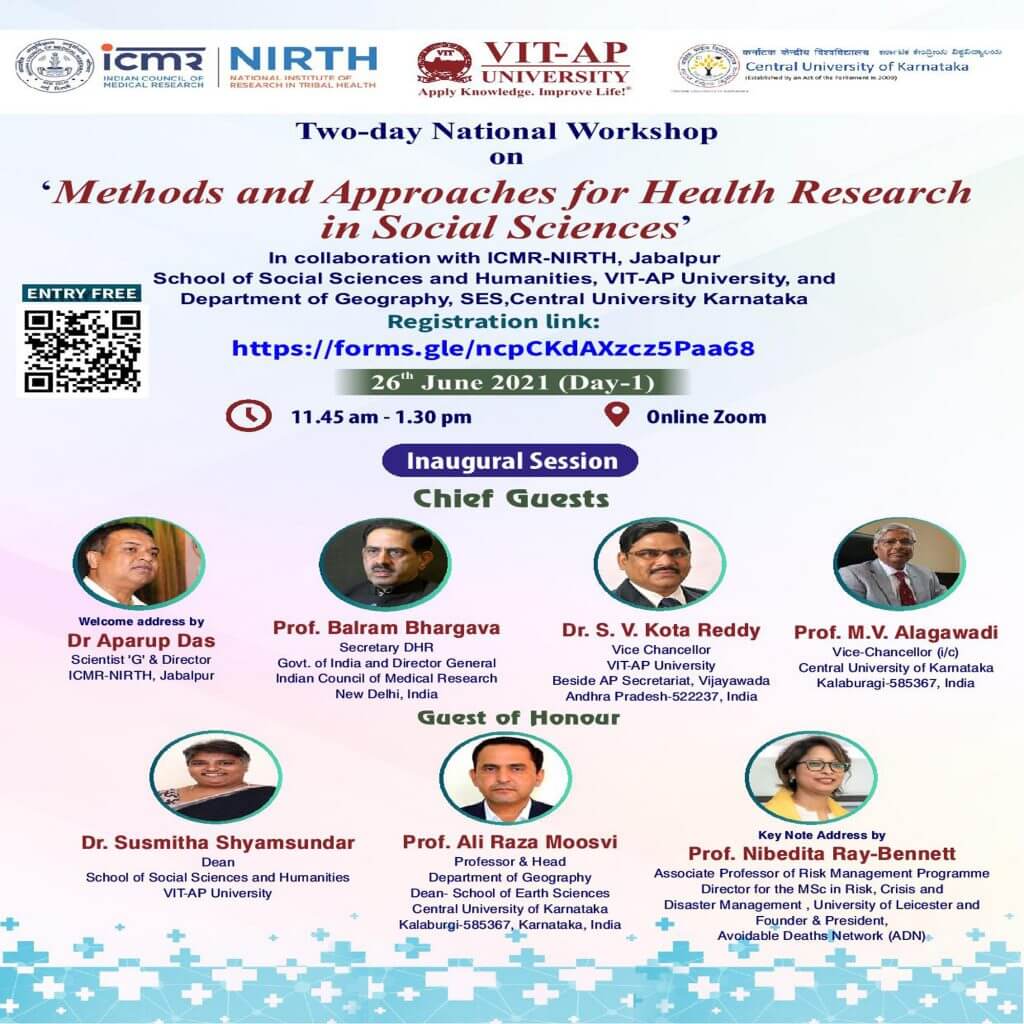
WORKSHOP: REALISE YOUR CIVIL SERVICES DREAM
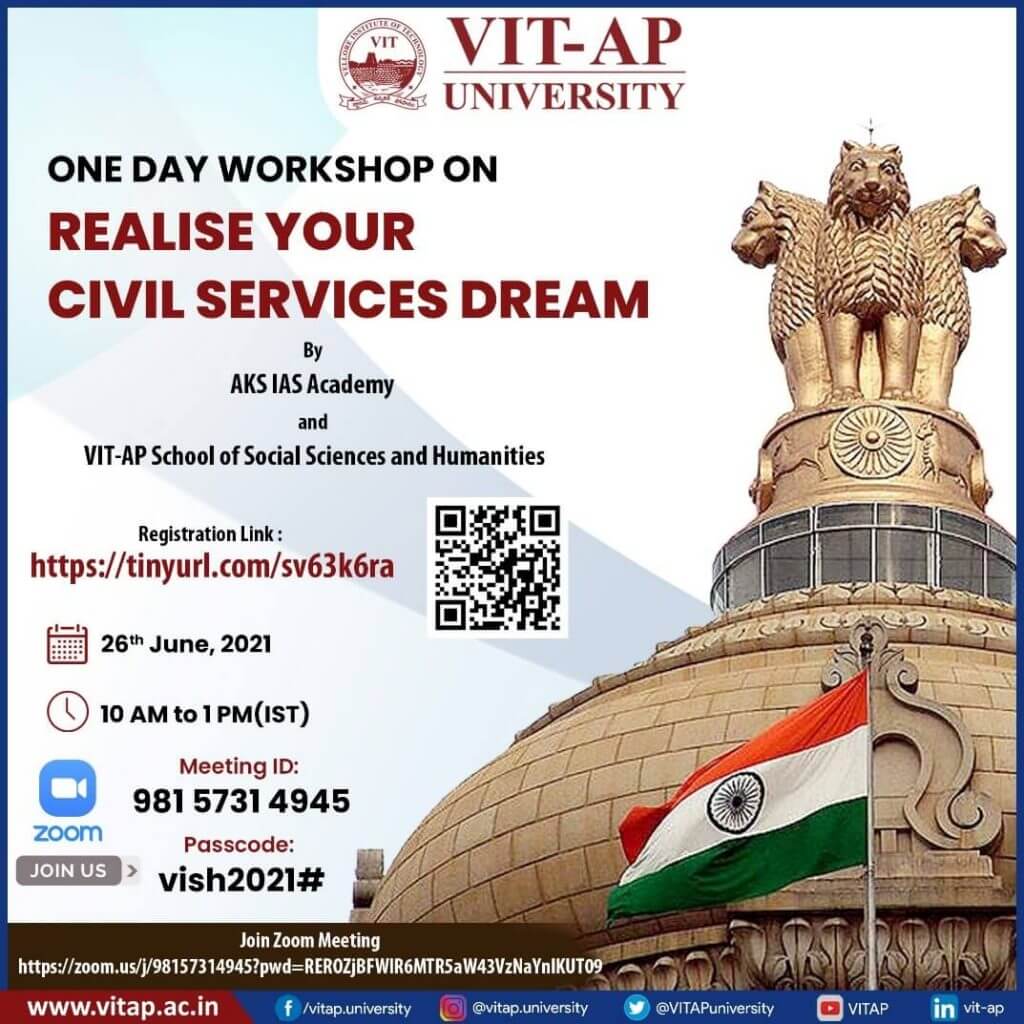
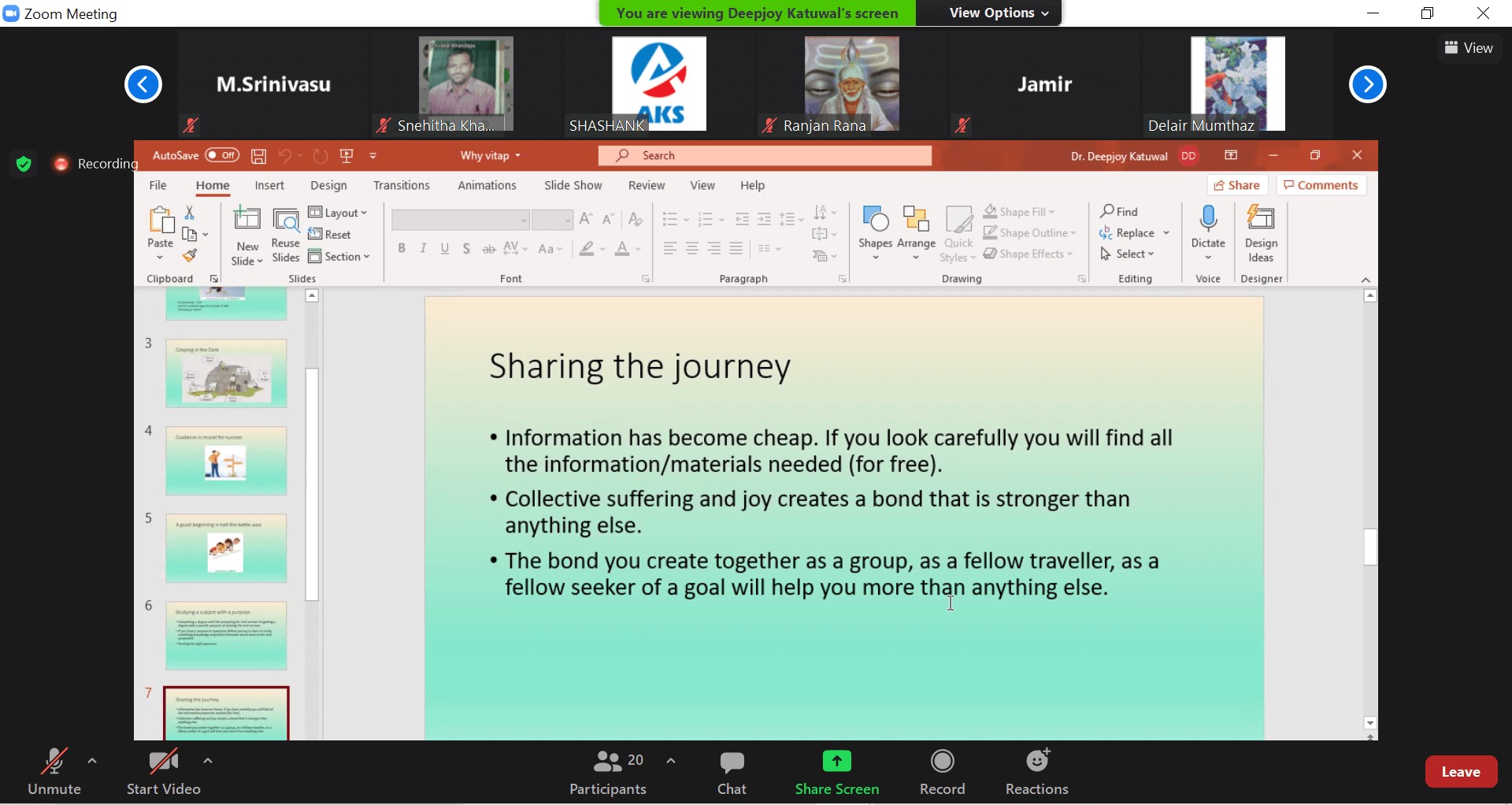
An online one-day workshop “Realise your Civil Services Dream” was organized on 26 June 2021 by VIT-AP School of Social Sciences and Humanities (VISH) in collaboration with AKS Academy. This workshop was aimed at school students and prospective aspirants for careers in the Civil Services and Public Services in India. To orient the students towards the realization of their dreams to serve the nation as a government bureaucrat, a series of speakers, both from within VIT-AP and from the esteemed institute AKS academy, shared information about the B.A./M.A. Public Services programme offered by VIT-AP.
Mr. M.A. Srinivasan, faculty member from AKS Academy and expert on Indian History and Archaeology, and Buddhist Studies, spoke at length to the students on the mental and practical preparation that students would be required to perform to qualify for the highly competitive Civil Services exams. He briefed the students about the many steps in the preparation for the competitive exams, while stressing on the need for holistic and continuous ethical and intellectual rigour.
Following this, Dr. Deepjoy Katuwal, faculty member from VIT-AP School of Social Sciences and Humanities (VISH) enlightened students about the Herculean task that the Civil Services examinations constitute and emphasized on the requirement for aided-learning and specialized coaching to succeed in these highly competitive exams. Next, Dr. Pankaj Narke, faculty member from VISH guided the participants through an active session by answering student queries and effectively highlighting the unique opportunities the B.A./M.A. Public Services programme that VIT-AP offers to its students. Dr Narke foregrounded the many advantages that the institute promises: an excellent student-teacher ratio, personalized mentorship, faculty members and students from across states in the country, a multi-cultural learning environment, special training in English language and soft-skills, and intensive exam-oriented training in the core-subjects for the Public Service exams, among many others. The event was coordinated by Ms Himabindu Pottumuthu.
Guest Lecture: Artificial Intelligence (AI) in Cross-Cultural Studies: An Ethical input in Developmental Process
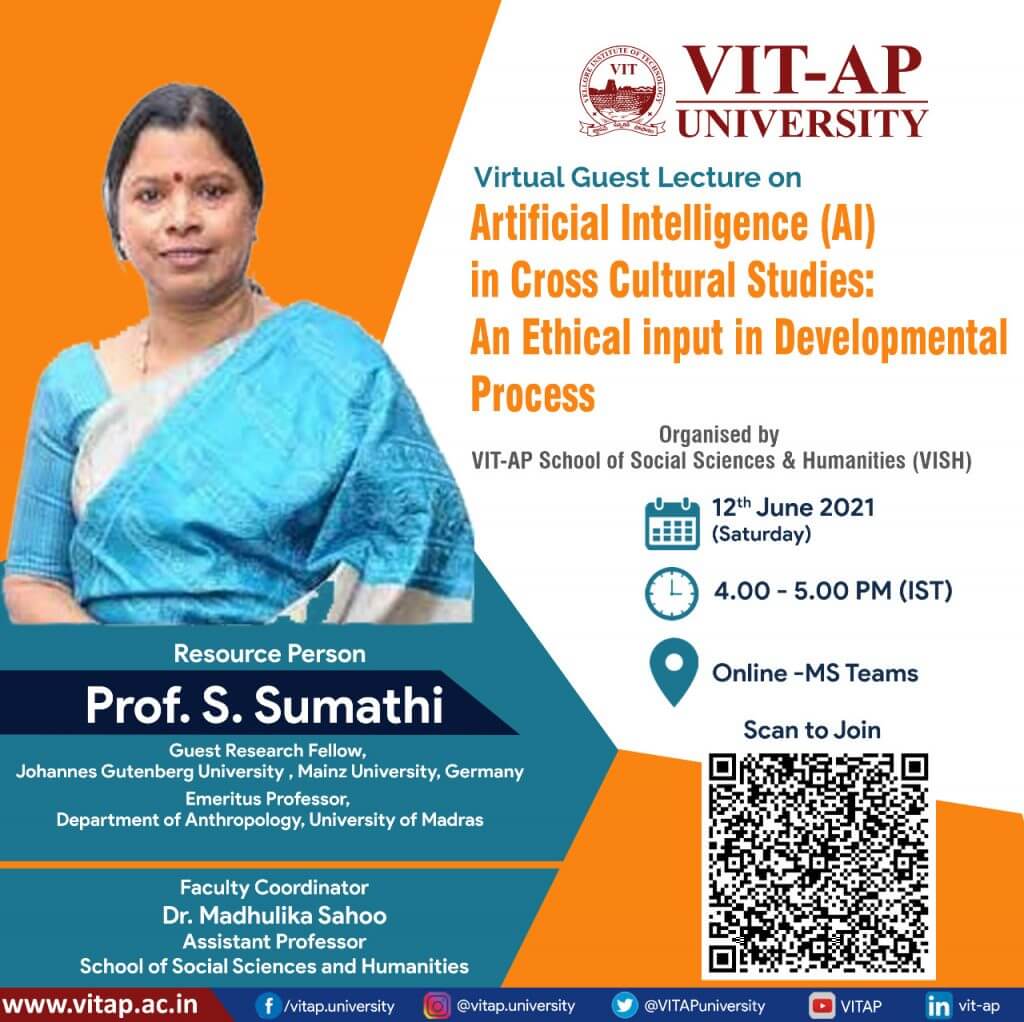


The virtual guest lecture on “Artificial Intelligence (AI) in Cross-Cultural Studies: An Ethical input in Developmental Process” was organized on 12th June 2021 by the VIT-AP School of Social Sciences and Humanities. Prof. S. Sumathi, Emeritus Professor Anthropology, University of Madras delivered the guest lecture. To her credit, Prof. S. Sumathi is not only a guest research Fellow, Johannes Gutenberg University, Mainz University, Germany but also the Principal Investigator of AIFORA from India. She introduced the topic by stating that currently, humanity is in a postmodern state of evolution and development which can be actualised using various anthropological school of thoughts. She integrated the concept of societal development with artificial intelligence and reinforced the argument that AI is an adept tool for societal development in the future. Prof. Sumathi further stated that anthropology and technology merge when we need to curate data using logical and scientific methods and implement field-level understanding to generalize the output. Next, she discussed problems we face today when it comes to development that includes environmental crisis and other global catastrophes. She also emphasized in her talk that the future of human interaction will inevitably be through technology. However, to advance the functioning of AI, data is required which demands further research in this area. Prof. Sumathi explained that since AI models on the problems of the past and build solutions, the process of data collection moves beyond curation and entails observation and analysis. She illustrated this with relevant examples and case studies (e.g., situation of migrant labours during COVID). Prof. Sumathi ended the talk by emphasizing the need to treat AI as a multidisciplinary field that will not only includes technological understanding but also social and psychological understanding. The event was coordinated by Dr Madhulika Sahoo.
Guest Lecture- Technical Communication: Industry Interaction
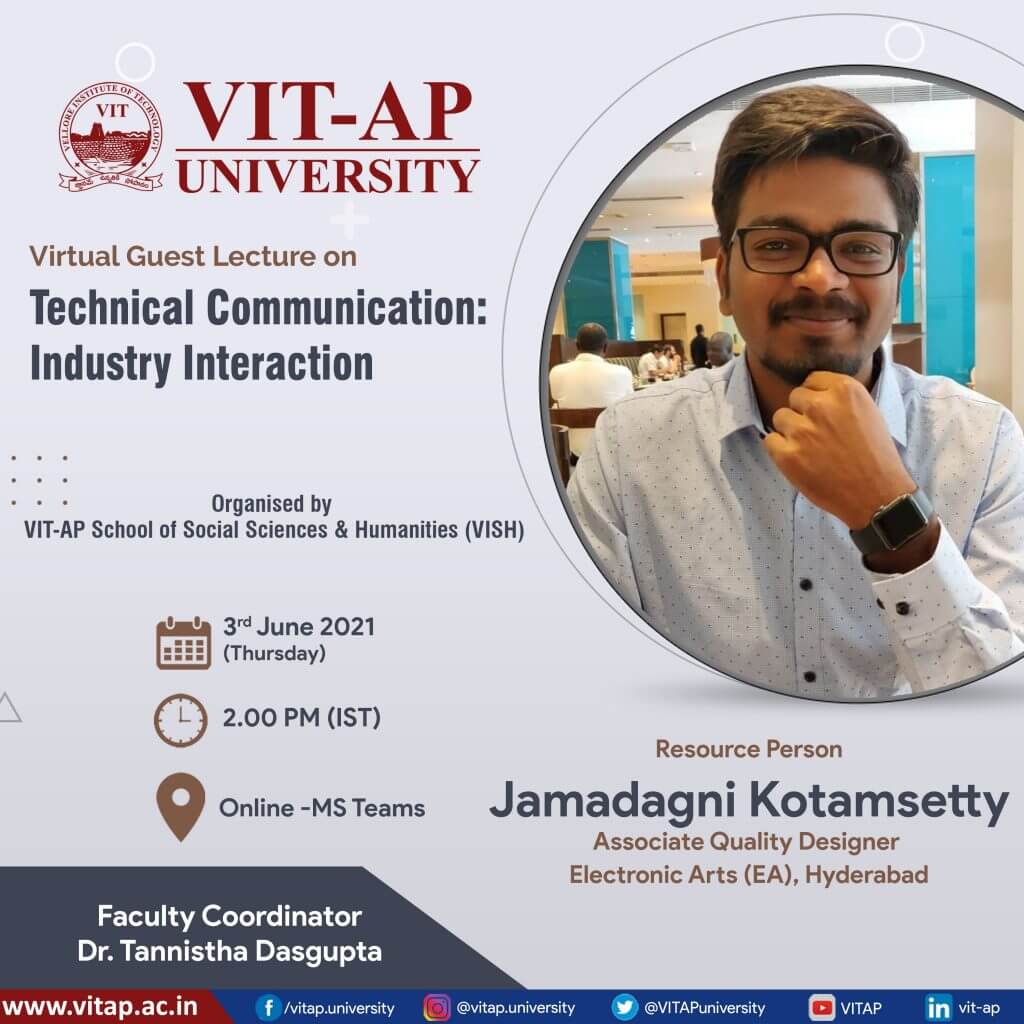


Jamadagni Kotamsetty, Associate Quality Designer at Electronic Arts (EA), Hyderabad, delivered a virtual guest lecture on 3 June 2021 at 2 pm IST. He interacted with a group of students of the university to provide the perspective of the industry on technical communication. In the talk, he provided a solution-based approach to technical communication and reporting. Mr Kotamsetty opened his talk with the purpose and structure of a technical report, followed by the types of technical communication that usually take place in the workplace. Next, he discussed the various types of reports that an engineer needs to create daily to communicate with the team. The different types of reports highlighted in his talk were incident report, daily status report, project status report, build report, IM conversations, and meeting invites. He also informed the students about the jargons of the industry that they need to be familiar with for smooth integration into the workplace. At the end of his presentations, students asked questions and requested to throw some light on the workplace challenges for a fresher. The event was coordinated by Dr Tannistha Dasgupta.
Two-Day Webinar – Contemporary Research Praxis in Social Sciences and Humanities



VIT-AP School of Social Sciences and Humanities (VISH) organised a two-day webinar on “Contemporary Research Praxis in Social Sciences and Humanities” on 29th and 30th May 2021. Aimed at discussing prospective research in the field of Social Sciences and Humanities, the webinar attracted over 65 students and scholars from 50 colleges and universities in the country. In addition, a few international scholars from the Middle Eastern countries also joined the spirited discussion. The webinar started with an inaugural address by the Dean of VISH, Dr. Susmitha Shyamsundar, who spoke about the significance of research in academia and the need for conducting webinars that provide information about contemporary research trends in Social Sciences and Humanities.
Dr. Avishek Parui, Assistant Professor, Department of Social Sciences and Humanities, IIT Madras was the first speaker of the day. His lecture was titled, “The Research Road in Memory Studies.” Dr. Parui gave a brief overview of Memory Studies, various kinds of research currently being conducted in this field, and exciting new interdisciplinary research opportunities. Following his illuminating lecture, we had Dr. Rajni Lamba, Anthropologist and CEO, The Rural Environmental Enterprises Development Society, Punjab our second speaker for the day. Her lecture was titled, “Importance of Anthropology and Sociology in Interdisciplinary Research in Social Sciences.” With her extensive experience of working with marginalised communities in India, Dr. Lamba highlighted the need and impact of doing research in Social Sciences. She elaborated the significance of using ethnography to understand and solve contemporary social problems.
The Second Day’s first session was delivered by Dr. Rajkumar Eligedi, Assistant Professor, Department of English, Prince Sattam Bin Abdulaziz University, Saudi Arabia. In his lecture titled, “Contemporary Trends in Interdisciplinary Humanities”, Dr. Eligedi gave an elaborate outline of Humanities’ turn towards interdisciplinary research. Also, he explained various research possibilities that a prospective scholar can explore in the disciplines of Humanities, particularly in translation studies. The last speaker of the day was Dr. Pankaj Narke, Assistant Professor, School of Social Sciences and Humanities, VIT-AP University. As a representative of VISH, Dr. Narke demystified popular misconceptions about conducting research in English Language Studies. In his lecture, “Exploring Research Opportunities in English Language Studies” he explicated multifarious disciplinary and interdisciplinary research that can be explored in the field. Further, he gave a brief overview on initiating and designing research. Each of these sessions was followed by a lively interaction between the speaker and the audience, and after Dr. Narke’s session, participants interacted with the School’s faculty members.
The webinar concluded with Dr. Shyamsundar delivering the vote of thanks


Workshop- Sustainable Smart Cities

A five-day workshop was conducted by VIT-AP School of Social Sciences and Humanities (VISH) from 5 April to 3 May 2021. The IEEE Madras section was the knowledge partner of the event. The workshop focussed on discussing the concept of sustainable smart technologies with experts from various fields in social sciences and related disciplines.
VISH did a five-day workshop, spread across a month. Each session lasted for three hours, where two speakers spoke for an hour each and the remaining one hour was for discussion.
- 1. 5 April 2021 (Monday)
- 2. 12 April 2021 (Monday)
- 3. 19 April 2021 (Monday)
- 4. 26 April 2021 (Monday)
- 5. 5 June 2021 (Saturday)
Day – 1
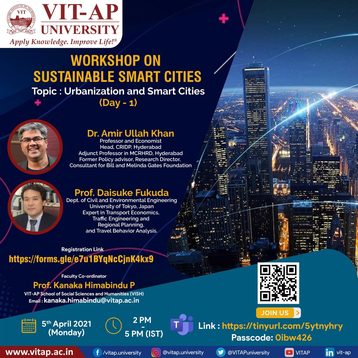
Dr. Aamir Ullah Khan gave an overview and philosophy of smart cities and sustainability-related topics. Dr. Aamir discussed municipality administration in cities like Pune, Hyderabad, Mysore, Gujarat, Mumbai, and Delhi. He also talked about the importance of solid waste management, solar power, smart transport, etc. for the development of sustainable smart cities.
Dr. Daisuke Fukuda gave case studies from Korea and Japan. First, gave a sample study of Songdo International Business District (SIBD) which is a smart city built on 1,500 acres of reclaimed land in the Republic of Korea. The growing economic importance of cities and the necessity to address environmental issues have led both the partner countries to develop local solutions for energy management. He further added that as leaders of sustainable technology and services, European and Japanese companies could benefit from advanced cooperation on Smart City development and management. Following the accident at the Fukushima nuclear power plant, Japan has further adjusted its energy policy. The two economies could improve their models and enhance their competitiveness on a global scale. To assess the opportunities for partnership between Japan and the EU in this regard, the talk investigated the Japanese Smart City policy, from the context in which it is embedded to the different types of projects that have been initiated. Smart City projects throughout Japan had focussed on:
- fostering energy security and efficiency
- boosting local development economically and socially
- enhancing regional and global competition
Day – 2
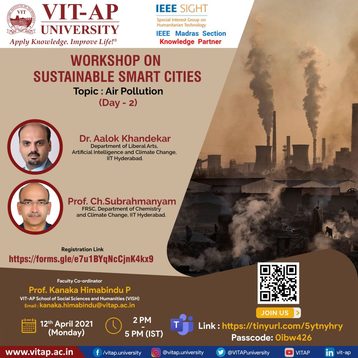
Dr. Aalok Khandekar spoke about the science, technology, and society’s (STS) perspective regarding smart cities. His study with his team on six cities across the world later spread to many other popular tier 1 and tier 2 cities. Air pollution becoming a key issue of concern and the sociological perspective in making a city fight with sustainability, were discussed with the participants.
Prof. Ch. Subramanyam gave an elaborate explanation about various causes of air pollution and further explained the ways to combat it. He primarily focused on the role of controlling industrial and vehicular emissions. Most modern vehicles are fitted with them, as standard. People are looking at ways of living with poor air quality, whether it is from the smog in Delhi or an unexpected change in wind direction bringing with it factory pollutants from the industrial estate as concluded by the professor.
Day – 3
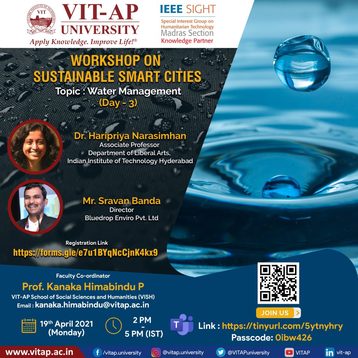
Mr. Sravan Banda spoke about his start-up about sustainable water management and its significance. Further, he discussed a few case studies that signalled the dire need to focus on water management.
Dr. Haripriya Narasimhan spoke about the cultural and anthropological perspective of water. Relevant ethnographic studies of water were discussed in her lecture. In the later part of the talk, she discussed her research work on sustainable smart cities, in Hyderabad and Kakinada done by her research scholar.
Day – 4
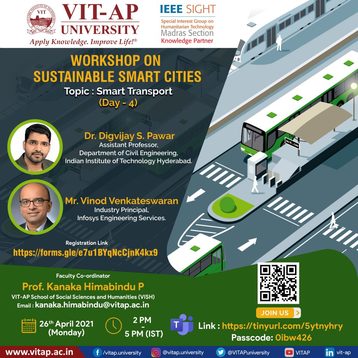
Dr. Digvijay S. Pawar – Dr Pawar began his talk by informing that a total of 599 highway projects covering around 12,903 km of national highways have been sanctioned, incurring an expenditure of INR 108,000 crore (US$ 16.2 bn) over the next 5 years. Next, he spoke about the technology which they have developed in IIT Hyderabad for better traffic management. The sensor technology would help in determining traffic in a congested area. A working model of the same is successfully implemented in IIT Hyderabad, however, Dr. Pawar mentioned that the model requires further improvement.
Mr. Vinod Venkatesan – shared his industry experience regarding electric vehicles. He mentioned that the Indian market for electric vehicles is still nascent, as the challenge is to augment charging infrastructure in big cities immediately and to promote migration to electric vehicles. It has been projected those electric vehicles could account for approximately 5% of the Indian car market, or 175,000 cars, by 2017, while the global market for vehicles could reach about 20 million cars by 2020. Smart parking assist uses sensors which is a latest development in vehicle technology. The chassis and the driveline are also equipped with sensors and cameras that help in parking. Creating technology for inexperienced drivers and learners was one of the focuses. He concluded his lecture by stating that, the upcoming technology increases safety, efficiency and comfort in driving and parking.
Day – 5
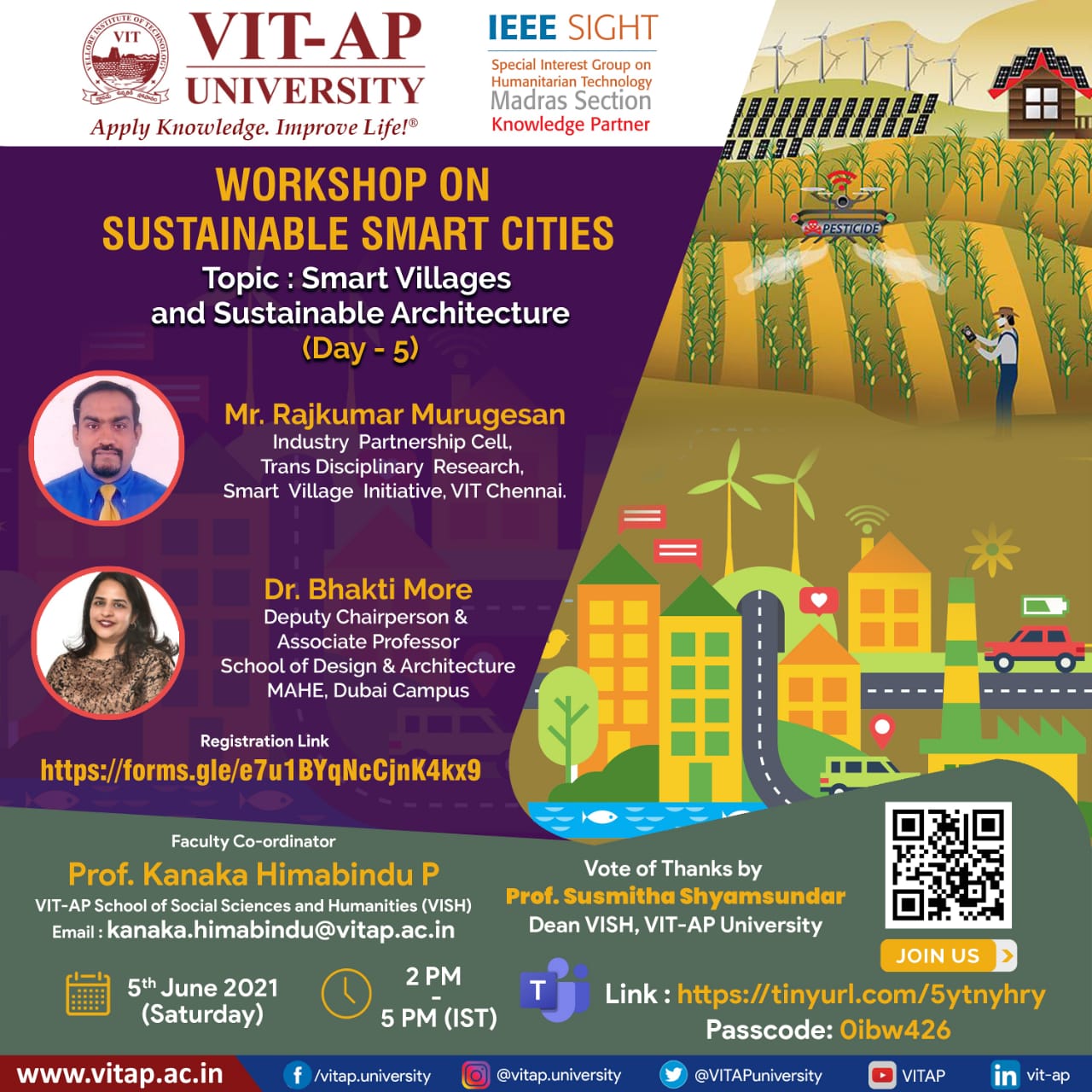
Mr. Rajkumar Murugesan spoke about VIT Chennai’s initiative on smart villages. Smart agriculture has become the key focus of study according to him. He explained the ongoing work of rural-urban interaction and possible solutions for making villages smart. He further told all the students to think in such lines to develop agriculture, infrastructure, etc. by displaying model villages.
Dr. Bhakti More being an expert of architecture gave an effective and relatable talk on sustainable architecture. She shared images of different types of architecture which were effective to regulate temperature in particular areas. Towards the end of her session, she conducted some fun exercises for the participants to make it more interactive.
Overall, the five-day workshop received a good response from both in-house and external audience. All the sessions were contemporary, thought-provoking, and interactive. The event was coordinated by Prof. Kanaka Himabindu Pottumuthu.
Guest Lecture- Materials Development: Redesigning the Existing Content for Teaching Effectively
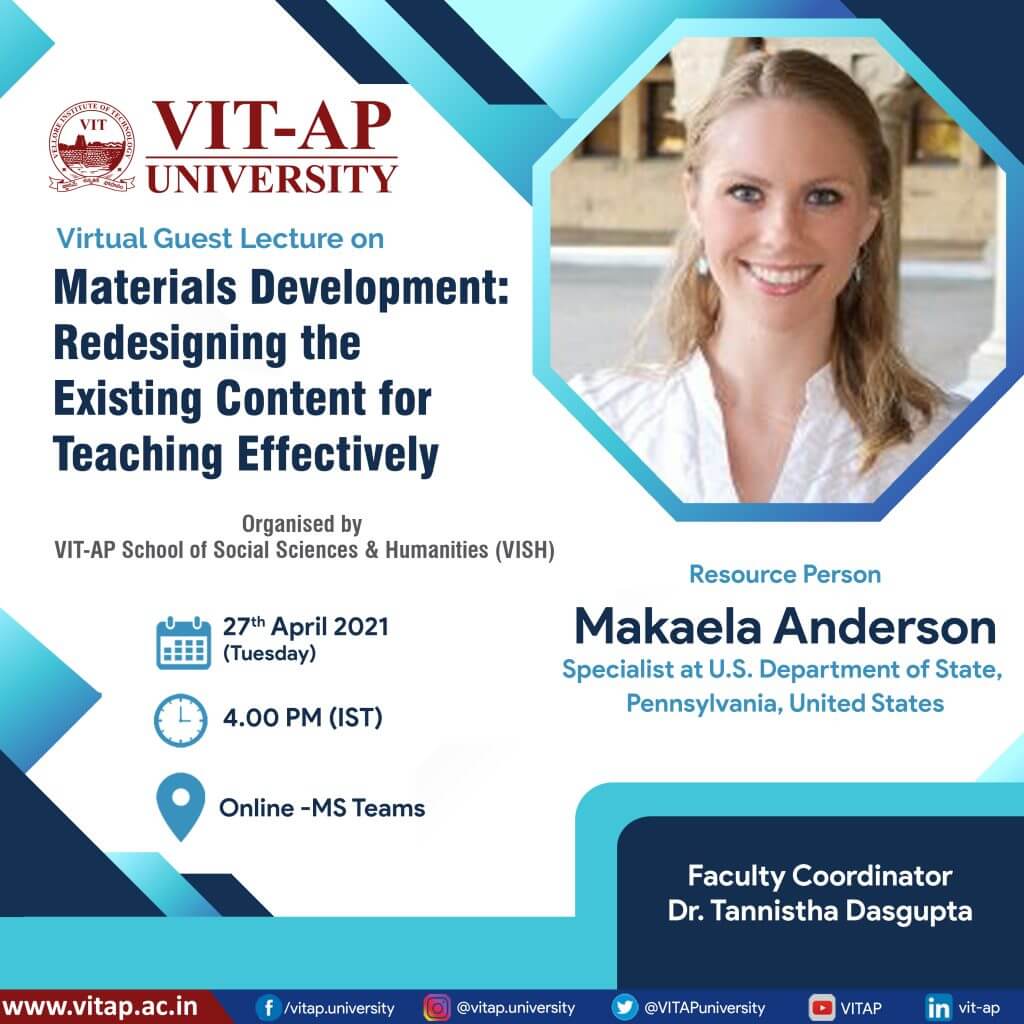
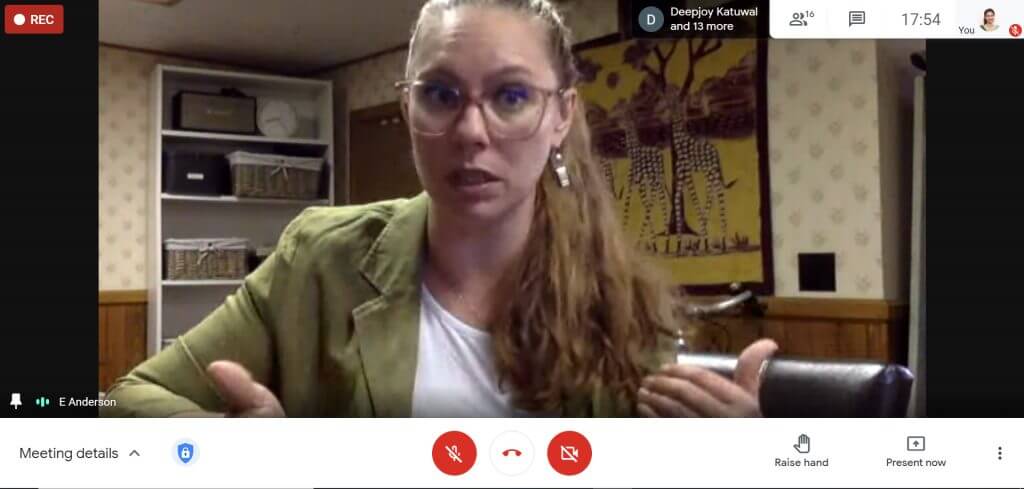
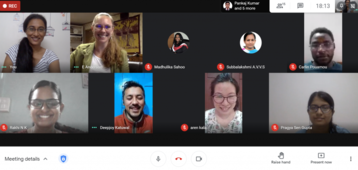
Makaela Anderson, Specialist at the U.S. Department of State, Pennsylvania, United States was invited to deliver a guest lecture on 27 April 2021 at 4 pm IST. She opened her talk with the discussion on the need to redesign materials and the relationship between teaching and materials. She stated that teachers need to redesign materials to promote critical thinking through language, avoid monotony, address multi-level classroom, and involve more relatable content. Then she shared her strategies and ideas that could be considered for redesigning materials. Some of her strategies included using different versions of the same material in a multi-level classroom, involving advanced learners as assistants, finding out leaner’s passion, using interesting social media content, using relatable content like movies, music, comics, graphic novels, and podcasts. Makaela also demonstrated how existing teaching materials can be redesigned to teach effectively both in the face-to-face classroom and in the online mode. This was followed by a highly interactive session between the resource person and the faculty members. The insights given by the resource person was highly appreciated by the faculty members. The session ended with the vote of thanks by Dr Madulika Sahoo. The event was coordinated by Dr Tannistha Dasgupta.
FDP- The Importance of Language in Developing Interdisciplinary Research
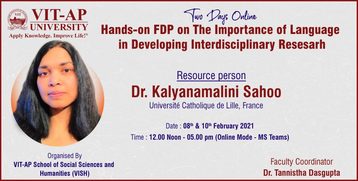


An online Faculty Development Programme (FDP) was organized by the School on 8 & 10 February 2021. The resource person of the programme was Dr. Kalyanamalini Sahoo from the Université Catholique de Lille, France. On day one, Dr Sahoo discussed ‘Language & Interdisciplinary Research’ and ‘Cognitive Linguistics Typology.’ On day two, Dr Sahoo spoke on ‘Language Contact in India: A Sociolinguistics Perspective of Indian English’. The talk was divided into two areas: ‘Indian English’ and ‘Language in Society’. Following her illuminating speech, faculty spent time deliberating various challenges in language teaching. The programme was coordinated by Dr Tannistha Dasgupta.
FDP- Towards better Online Teaching – Learning
An online FDP titled ‘Towards better Online Teaching’ was organized to acquaint the faculty with advance applications that would facilitate online teaching. There were4 four sessions on 16, 17, 18, and 20 July 2020, respectively. All of them provided a hands-on training on online teaching and assessment practices. The titles of the four sessions were as follows:
- a) MS Teams – for Language Teachers
- b) Digital Content / Task Readiness
- c) Language Assessment – Online Tools
- d) Examination Requirements


a) The first session on MS Teams – for Language Teachers was conducted on 16 July 2020. She familiarized faculty with the new Learning Management System (LMS) that the university had recommended. Faculty were offered a virtual training on how to conduct classes on MS Teams which involved multiple aspects like how to create a class/team, add class materials, conduct a class, share screen, take attendance, and add apps. Dr. Tannistha also shared several useful links and tips pertaining to the topic. The session ended with answering queries of faculty members regarding the platform. The resource person of the session was Dr Tannistha Dasgupta.
The second session was conducted on 17 July 2020 on the topic, “Task Preparedness or Task readiness while using Digital Content for Online Classes”. The session was conducted to help the inhouse faculty adapt to the new Digital teaching environment and the readiness of the content used in the online classes. The resource person of the session was Dr. Susmitha Shyamsundar, HoD, Languages.
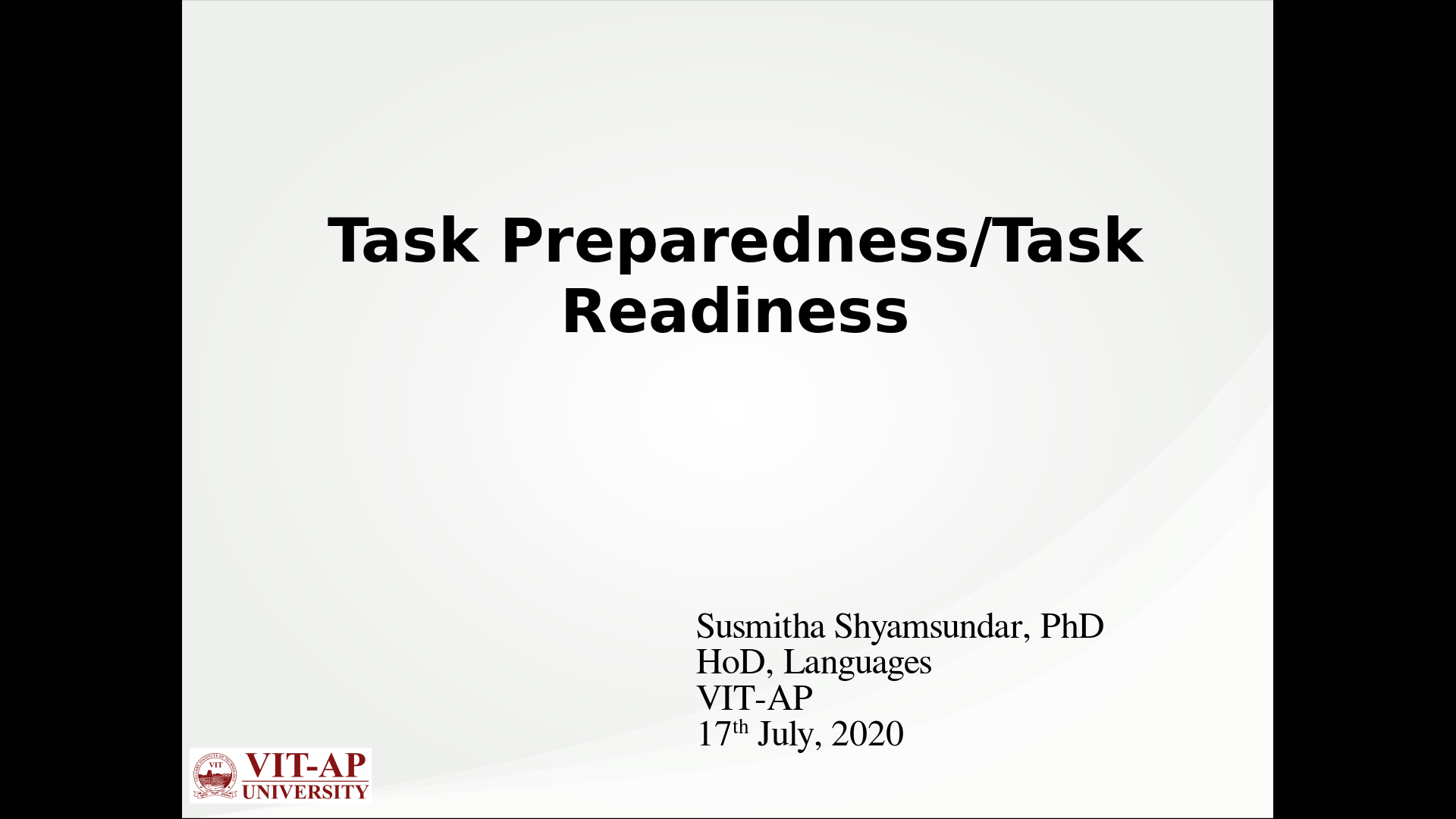

The third session on Language Assessment – Online Tools was conducted on 18 July 2020. In this session, various online tools were introduced to the faculty for online teaching and assessment. This was a hands-on session were using different online tools for teaching LSRW skills, vocabulary, polling, quiz, creating poster and infographics, dialogue creation, brainstorming, rubric creation, screen casting was practiced. Also, online readability checkers, plagiarism checkers, and online resources were shared with the faculty members. The resource person of the session was Dr Tannistha Dasgupta.
The fourth session titled “Examination Requirements- Getting introduced to the Exam Cloud platform” elucidated the online assessment procedure of VIT-AP University. As it was the work from home phase and the exam cloud platform was new to the faculty, this session helped them familiarize with the online platform of Exam cloud. The hands-on training offered in this session for uploading the question paper and evaluation of answer scripts was helpful for the faculty. The resource person of the session was Dr. Susmitha Shyamsundar
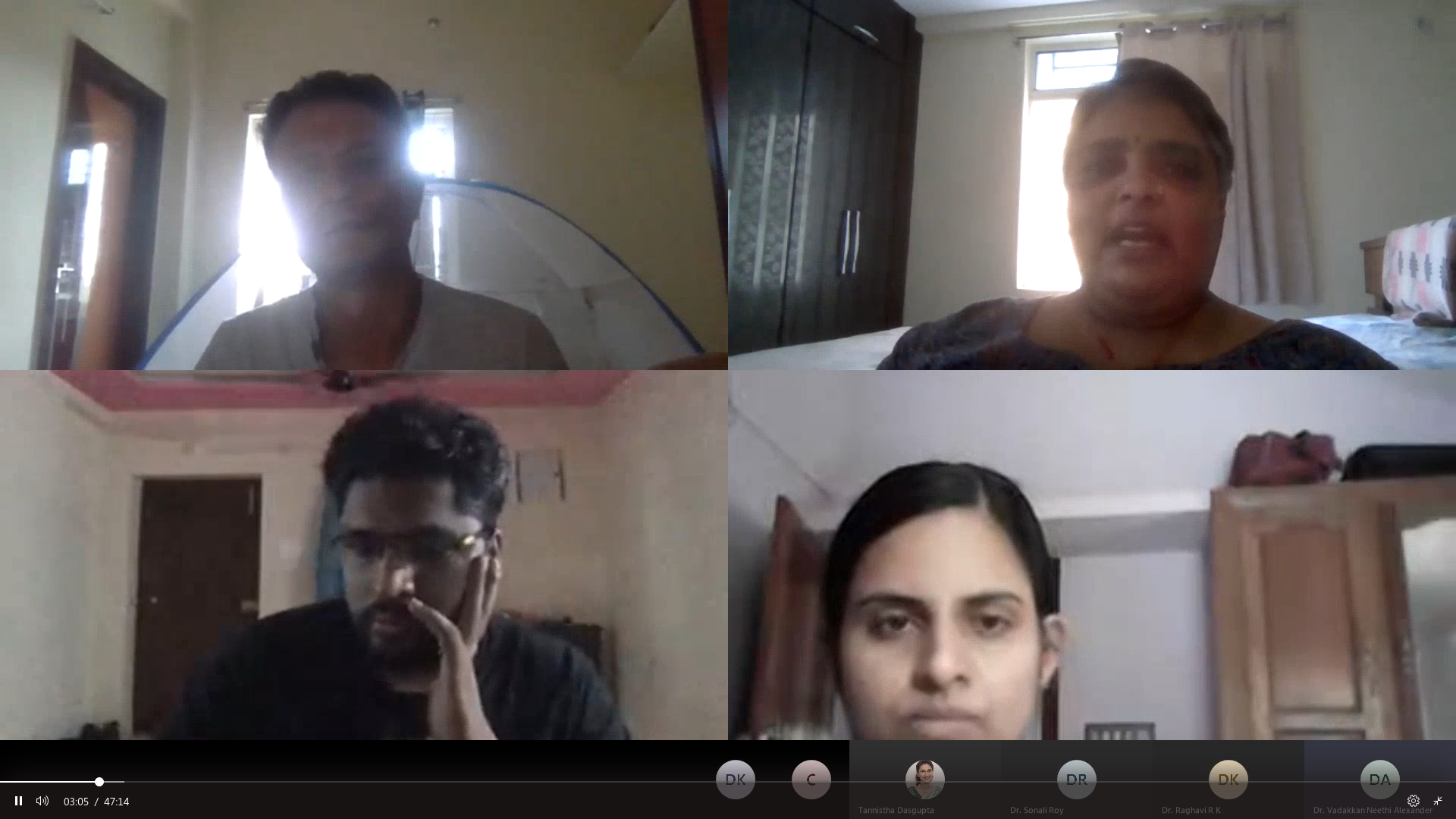
Webinar – Higher Education Opportunities in France
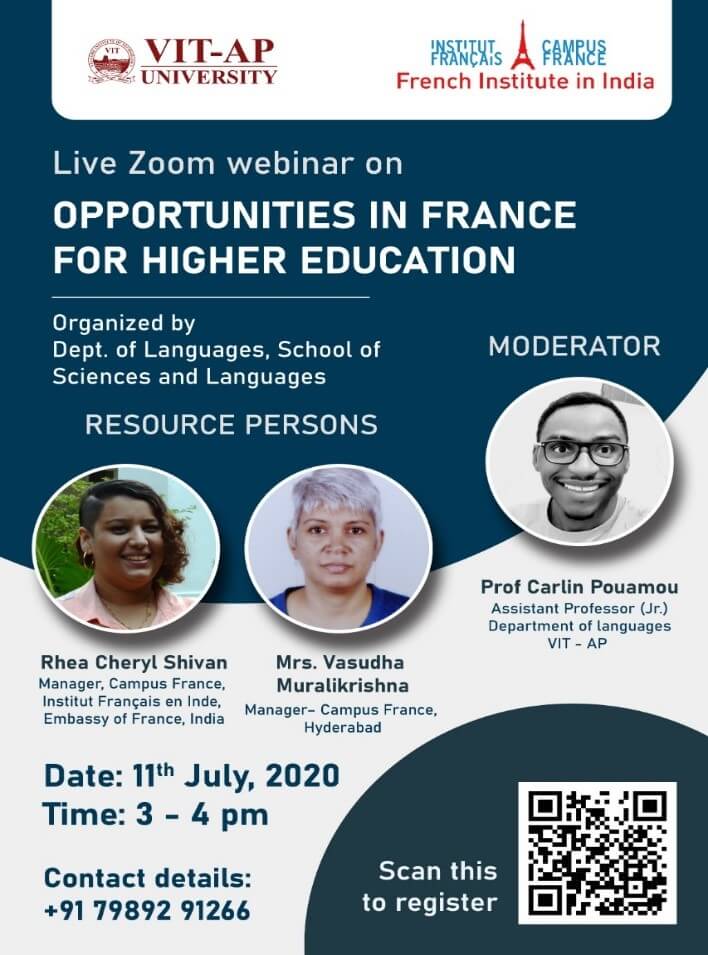
For the benefit of our engineering and business school student, a webinar titled ‘Higher Education Opportunities in France’ was organized on 11 July 2020 in collaboration with Campus France India, and the French Institute (IFI). Befittingly, Ms. Vasudha Murali Krishna; Manager of Campus France Hyderabad, Ms. Rhea Shivan; Manager of Campus France Chennai, Mr. Eric Perrotel; Attaché of cooperation for French Language in South India, Ms. Rajni; Manager of Scholarships, department of IFI at the Embassy New Delhi and Mr. Aman Kulkarni; VIT Vellore alumni pursuing M.Sc. in France were the invited speakers for the webinar. At the outset, the session began with a congratulatory announcement on Charpak 2020 scholarship winners from VIT. Later, Ms Rajni elaborately explained the various scholarships that are available for students at the level of master’s and research. Subsequently, Mr. Perrotel discussed the significance of the French Language in a technologically dominant and digitally empowered world. Next, Ms Rhea elucidated the advantages of choosing France as a destination for Indian students and Ms. Vasudha apprised the audience on the role of Campus France. Lastly, Mr. Aman Kulkarni shared his first-hand experience at Campus France, and he spoke about the pre-departure workshop for students organized by Campus France. In the end, students had an interactive Q&A session with all the guest speakers and profited from a dynamically digitally empowered platform to collaborate with each other. The programme was coordinated by Prof Carlin Pouamou.
FDP- Lacan, Language and Education
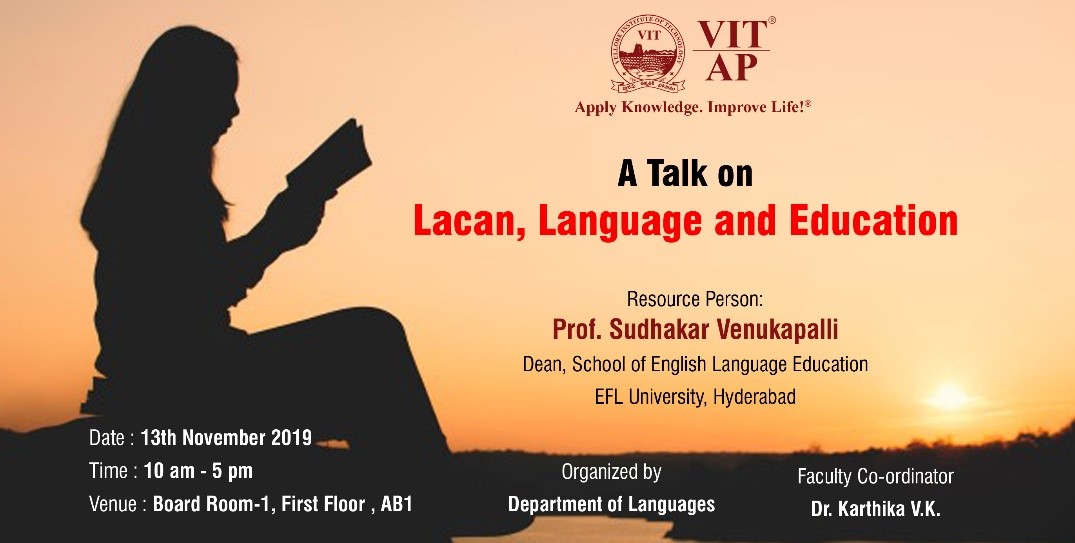
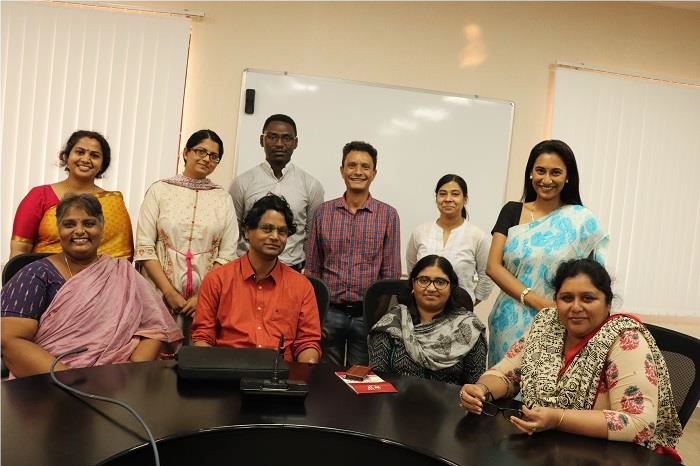
A one-day Faculty Development Programme was organized on 13 November 2019. The Dean of School of English Language Education, EFL University Hyderabad, Dr. Sudhakar Venukapalli was the resource person of the programme. Dr. Sudhakar elaborated the theories of Psychoanalysis postulated by Jacques Lacan. He explained how the theories of Lacan differ from the Freudian notion of Psychoanalysis. In the post-lunch session, the theories of Sigmund Freud’s were discussed. The faculty members of the department made outstanding contribution to the discussion by bringing in their experiences as well as case studies. The programme was coordinated by Dr Karthika V.K.
FDP- Effective Teaching: Strategies & Methods
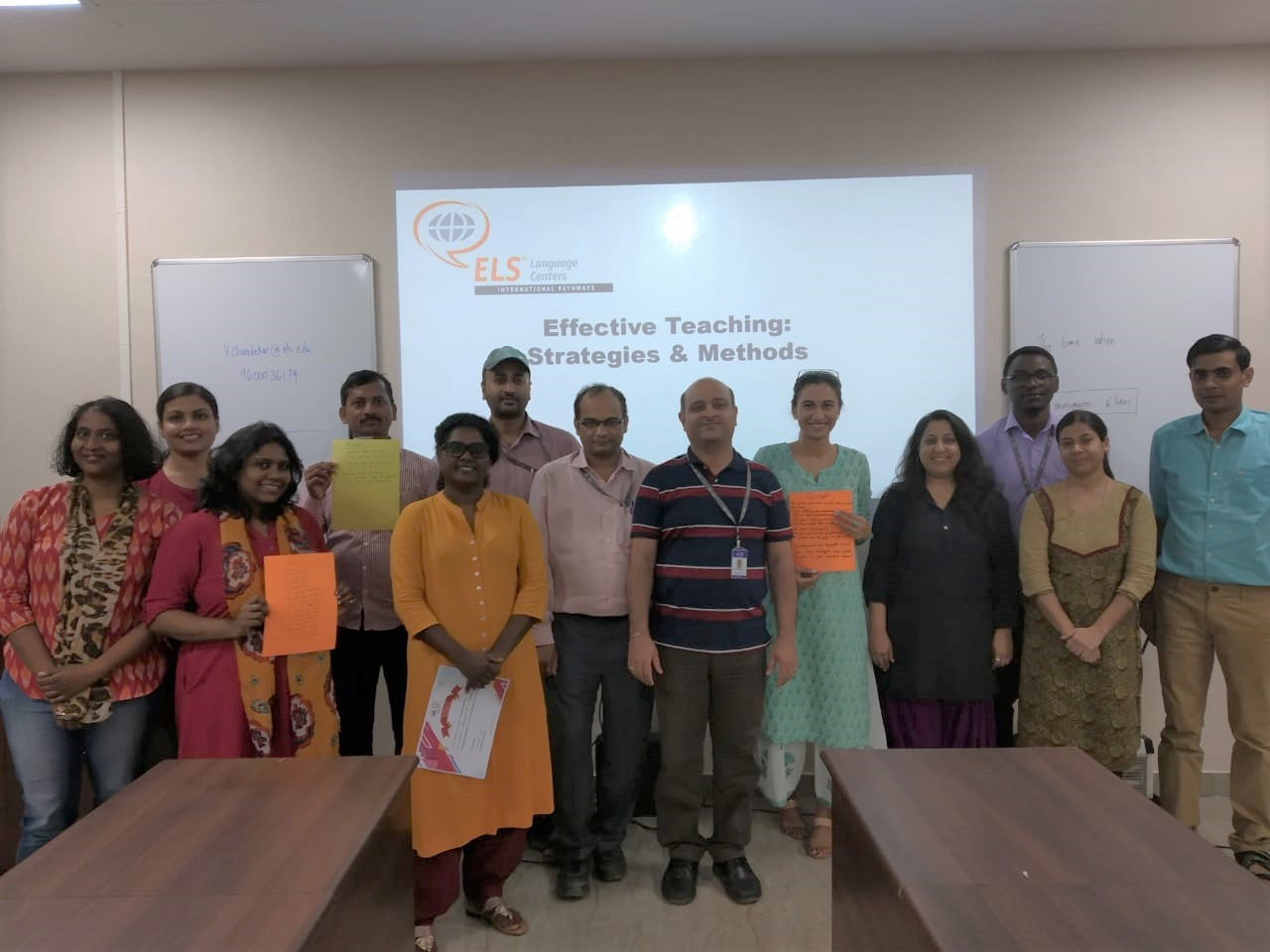
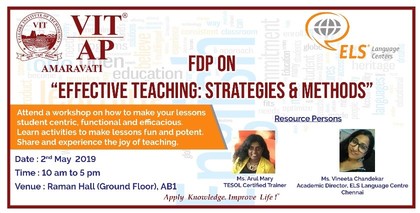

A one-day Faculty Development Programme (FDP) was organized on 2 May 2019. The resource persons of the programme were Ms. Vineeta Chandekar, the Academic Director at ELS Language Center at Chennai, and Ms. Arul Mary, trainer for corporate employees and international students. The programme began with a session on how to design student centric lessons that are functional, efficacious, and enjoyable at the same time. This was followed by participants taking part in various activities designed by the resource persons. The FDP concluded with exchange of ideas and answering queries raised by the participants. The programme was coordinated by Dr Tannistha Dasgupta.
Workshop- Syllabus Design and Materials Production for Effective ELT Practices
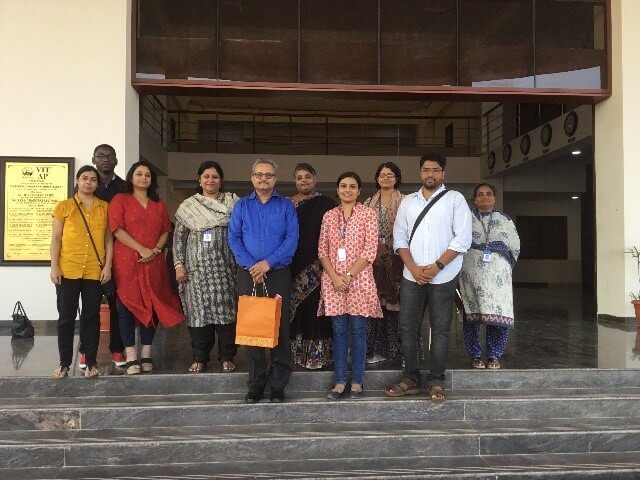
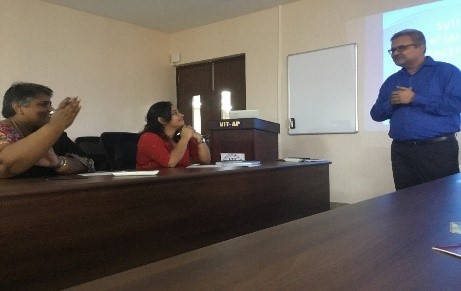
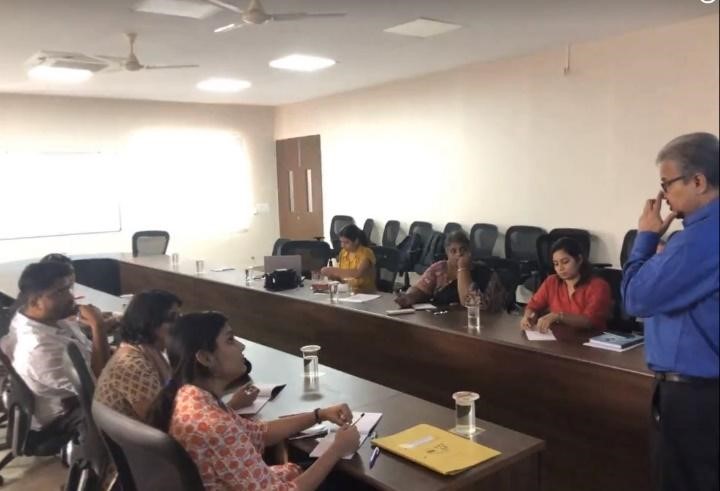
A workshop was conducted on the 25 March 2019 on designing syllabus and producing materials for effective teaching-learning practices. Dr Kishore Kumar, Head, Dept. of ESL Studies, The English and Foreign Languages University, was invited as the resource person. The workshop was divided into two sessions. In the first session, Dr Kishore Kumar discussed the standard practices of curriculum and syllabus design and how learners’ needs should be reflected in curriculum. The second session focused on developing teaching materials that would suit learners’ interest, level of understanding, accessibility for learners as well as teachers, cultural and contextual familiarity of materials, and potential learning outcomes. Dr Kishore shared some important online tools that could be used while teaching English language and testing learners’ level of proficiency at the same. The programme was coordinated by Dr Pankaj Narke.
Workshop- Role of Language in Media
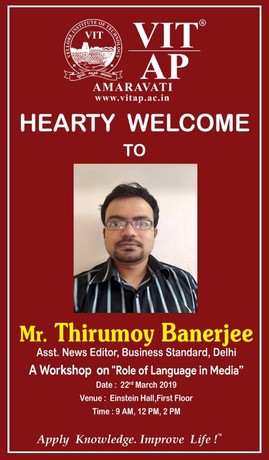
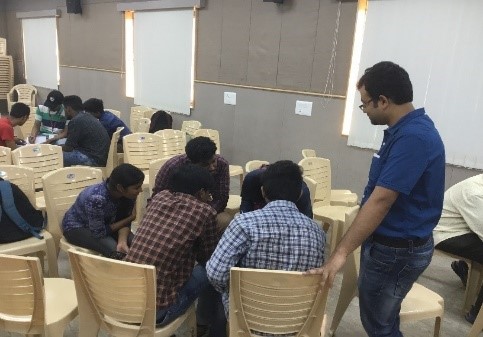
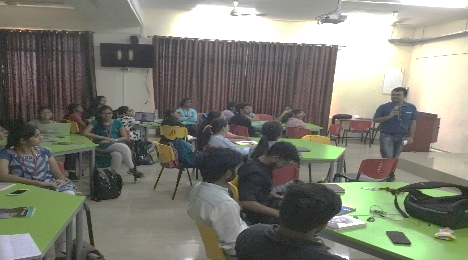
Three workshops were conducted for students and faculty by Mr. Thirumoy Banerjee, an industry expert from The Business Standard media house, New Delhi, on 22 March 2019. He focused on the norms of the English language that media industry follows, editing process, and filtering of the content. Mr. Banerjee provided hands-on training to the participants in editing news items. The highlight of the workshops was his presentation on the opportunities for engineering and management students in the media industry. The content shared by the resource person was highly appreciated by all the participants. The programme was coordinated by Dr Pankaj Narke.
Workshop- Soft Skills Development in collaboration with SMART Training Resources India PVT.LTD
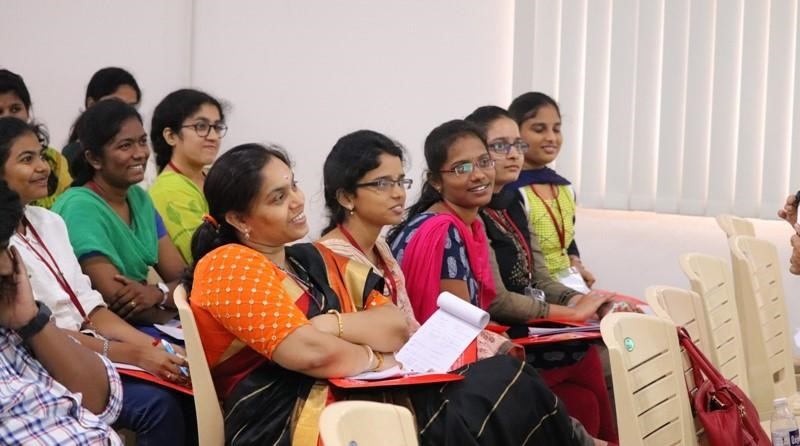
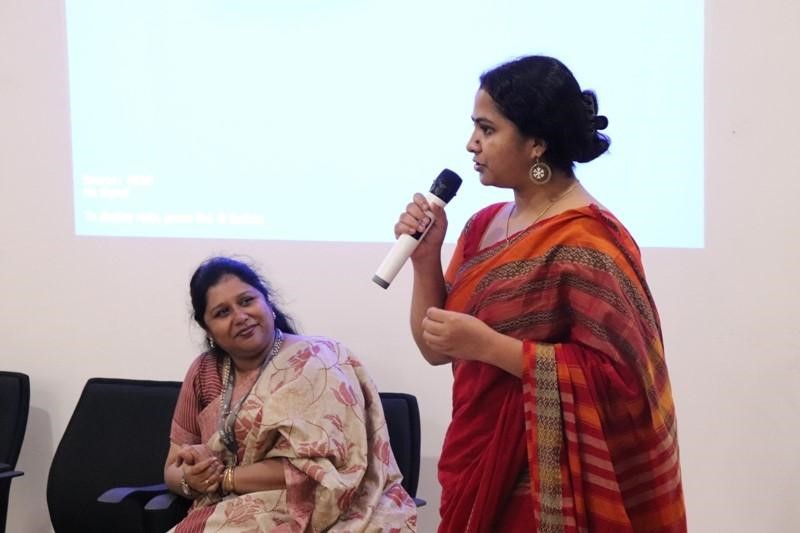
The first national level workshop was conducted on 25th August 2018 with Ms. Gowri Balasubramanyam as the resource person. Around 35 participants from various universities and colleges from Andhra Pradesh, Telangana and Tamil Nadu participated in the workshop. The resource person addressed various strategies that individuals can employ to monitor their soft skills efficiency and she offered great insight into the practice of self-reflection in developing and enhancing soft skills. She discussed in detail how important these skills are in polishing one’s social acceptance as well as employability. The programme was coordinated by Dr Karthika V.K., Dr Rasheda Parveen and Prof Pragya Sen Gupta.
FDP- Worlds are Made by Words: Language and Construction of Power
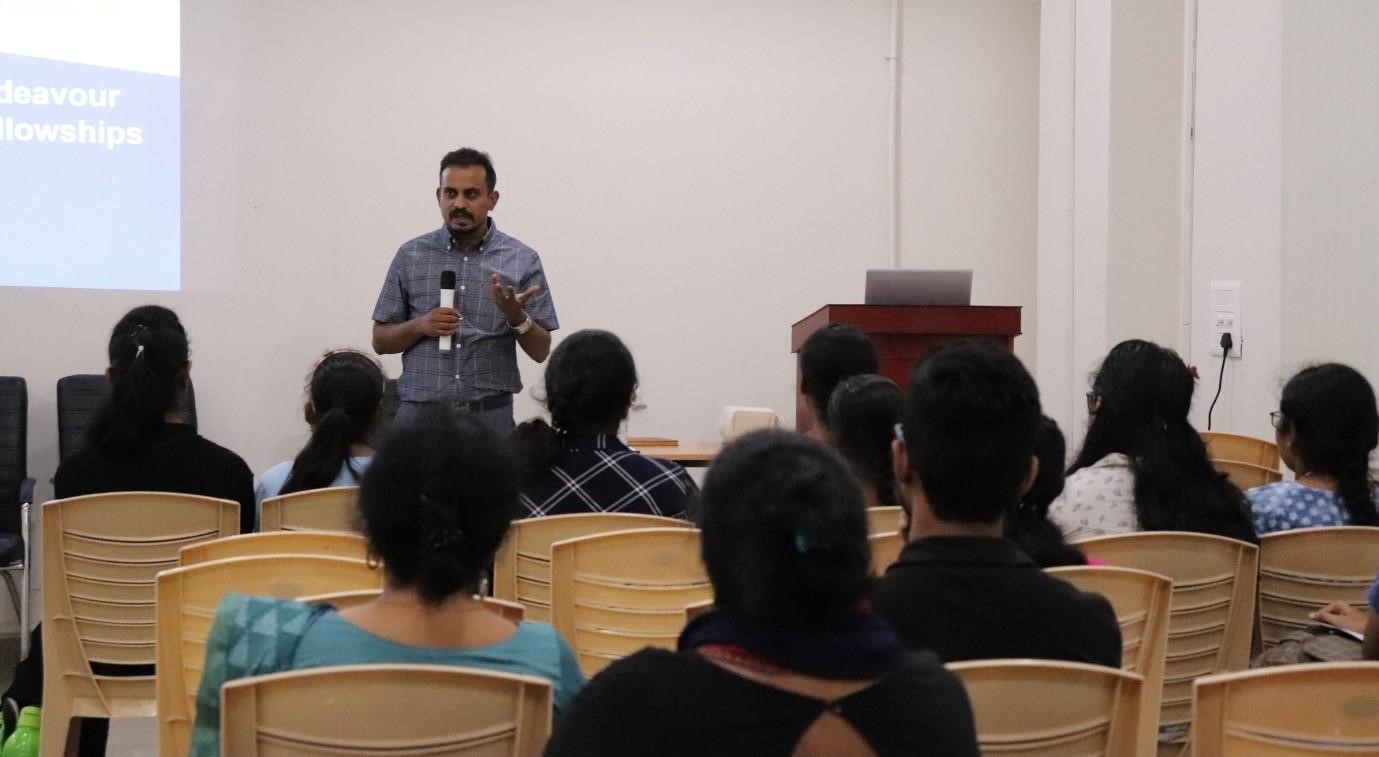
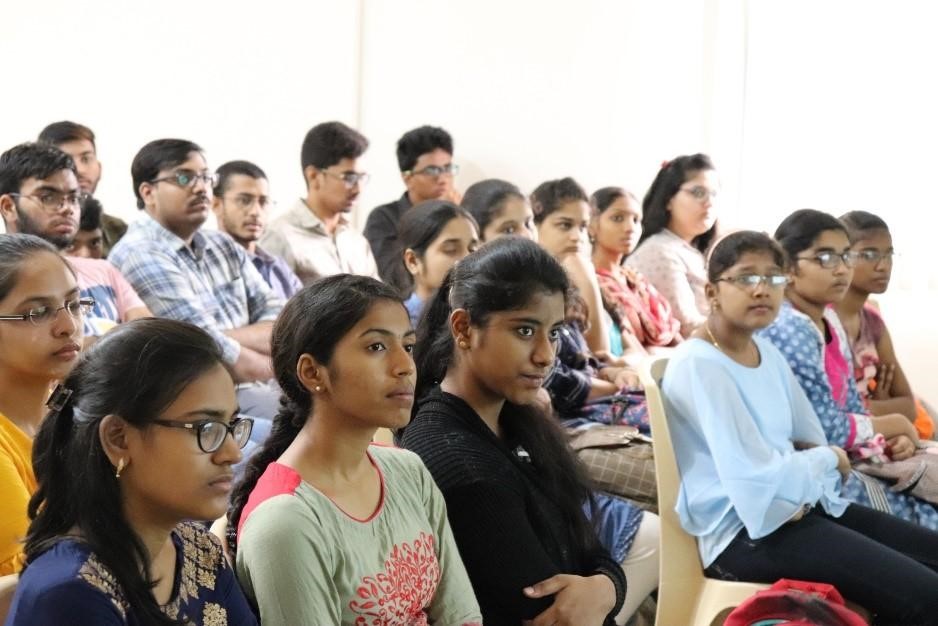
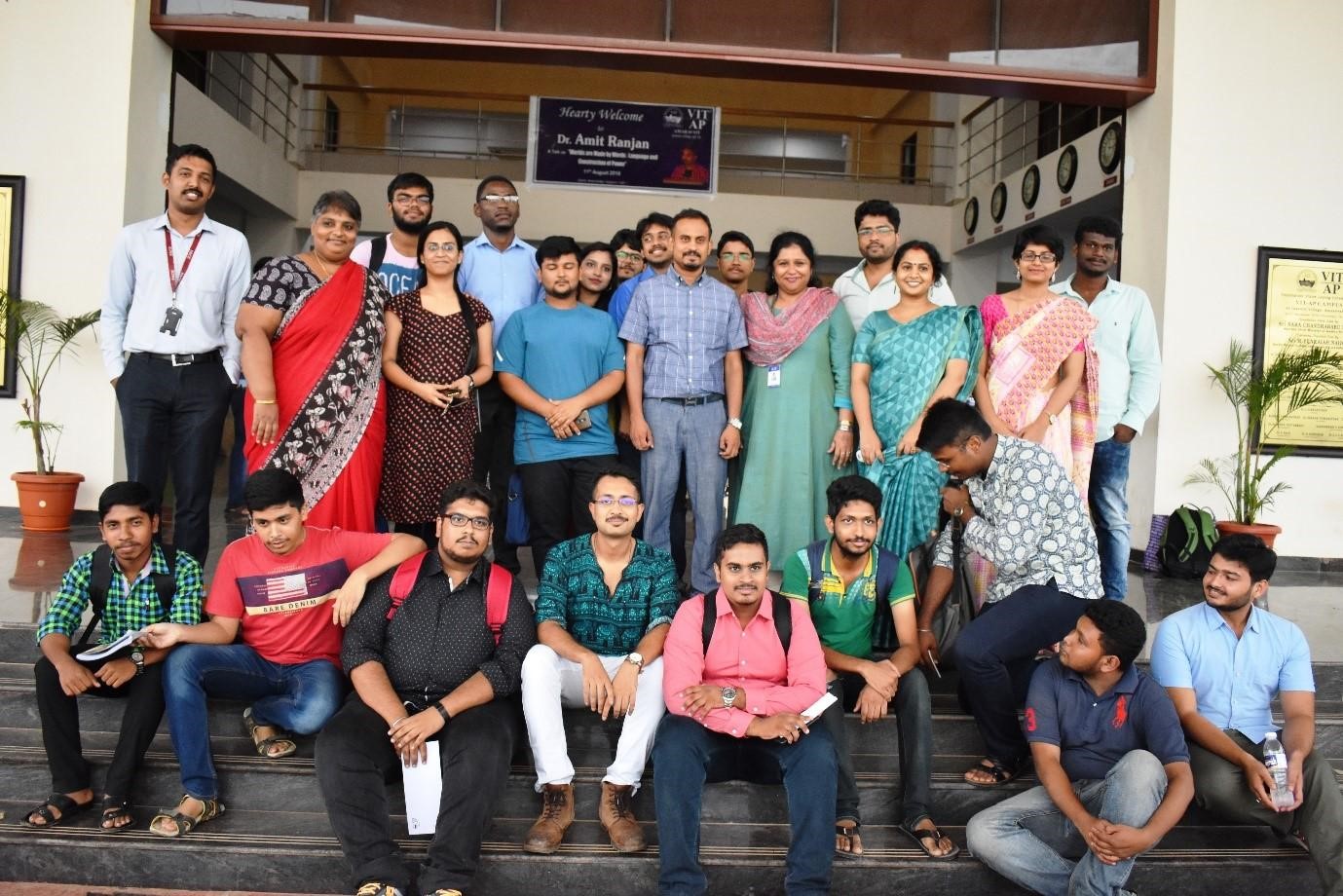
An FDP was conducted on 11 August 2018 in which Dr Amit Ranjan, the Australia Awards Ambassador, a faculty at NCERT, Bhubaneswar, and a renowned Indian English Poet, delivered a series of lectures on the theme ‘Talking to the future: Dara and Sarmad’s challenge to the language of power.’ In this talk he addressed the students and faculty members and discussed how power was constructed and how power constructed words/poetry. This was followed by the launching of his newly published anthology Find Me Leonard Cohen I’m Almost Thirty. In the end, there was a poetry reading session where he read excerpts from his book and interpreted it for his listeners. The programme was coordinated by Dr Karthika V.K.
Workshop- From Researching to Publishing: A Re-walk 2.0
A one-day workshop for faculty members and research scholars was conducted on 24 March 2018. The workshop was led by Dr Santosh Mahapatra, Assistant Professor at BITS Pilani, Hyderabad. The resource person introduced the possible ICT tools that can be used in the classrooms to enhance the learning output. Faculty members actively engaged in a discussion in which they shared their classroom experiences and the nature of tools that they use. The resource person provided great insight into the ways in which web 2.0 can effectively operate in language classrooms and how data can be obtained by using them which eventually will help teachers to get engaged in classroom research. Dr Mahapatra spoke in detail about action research initiatives the teachers can take up and detailed the ways in which such research enriches the professional development of the teacher-researcher. The programme was coordinated by Dr Karthika V.K.
